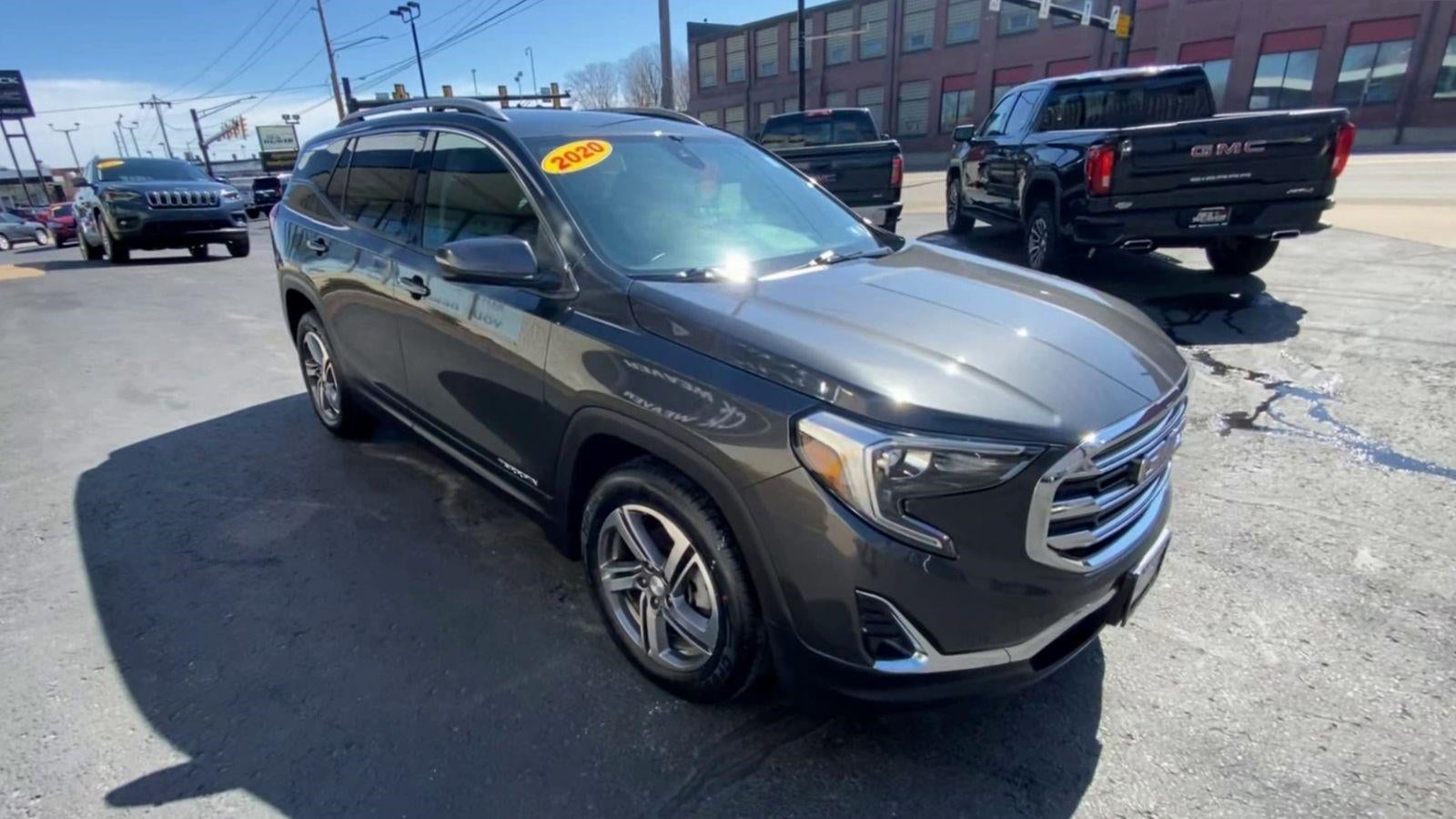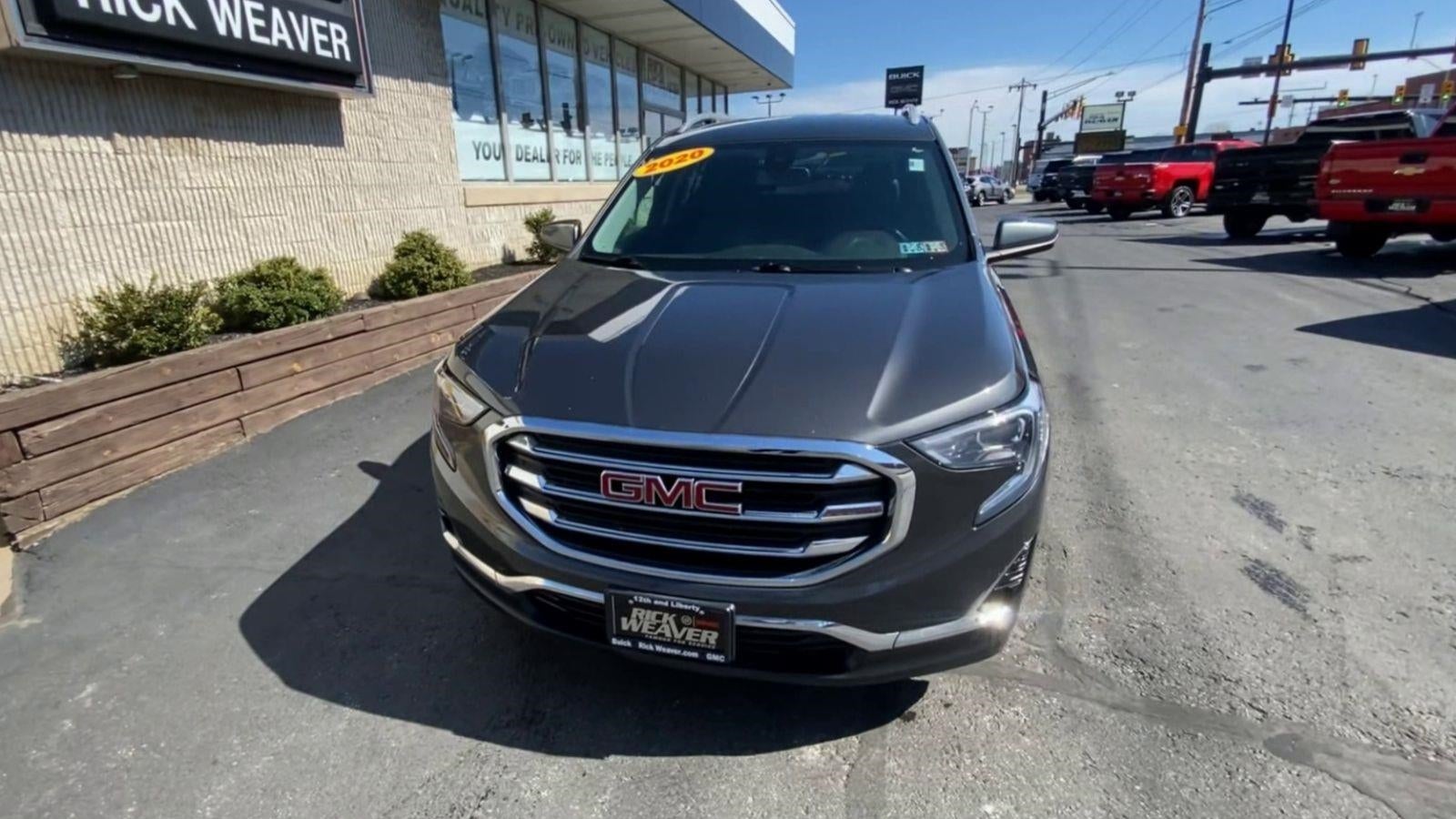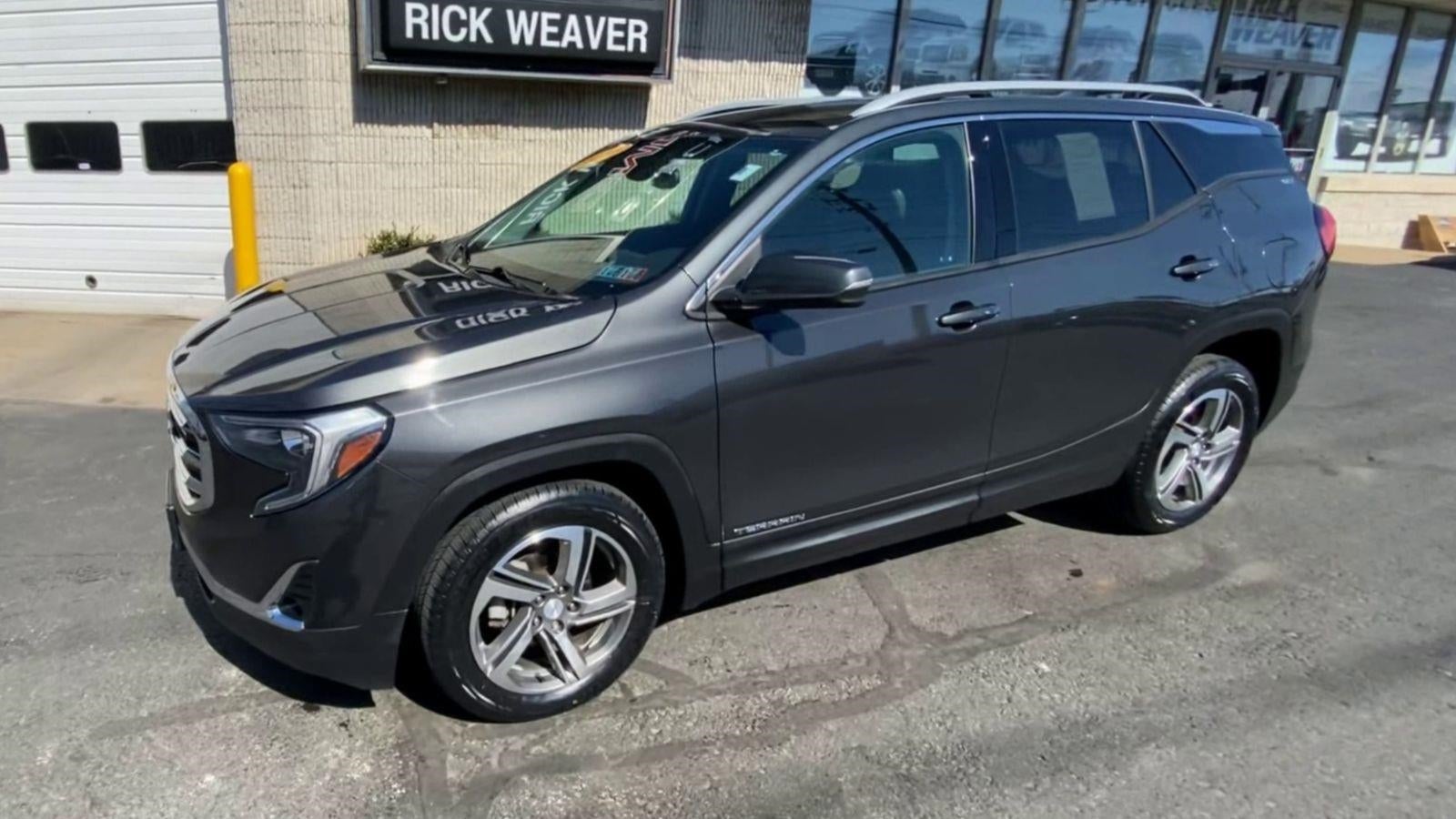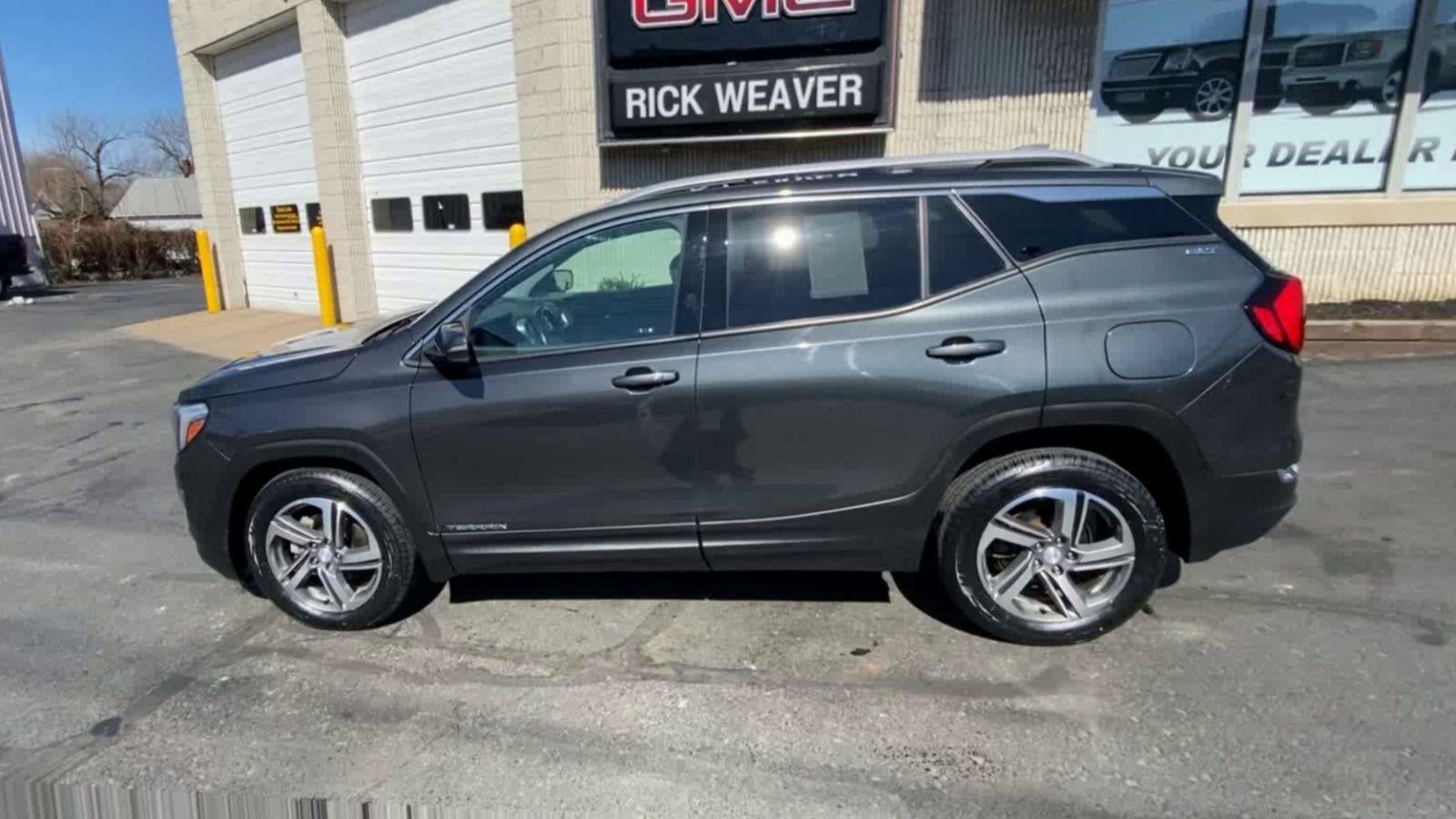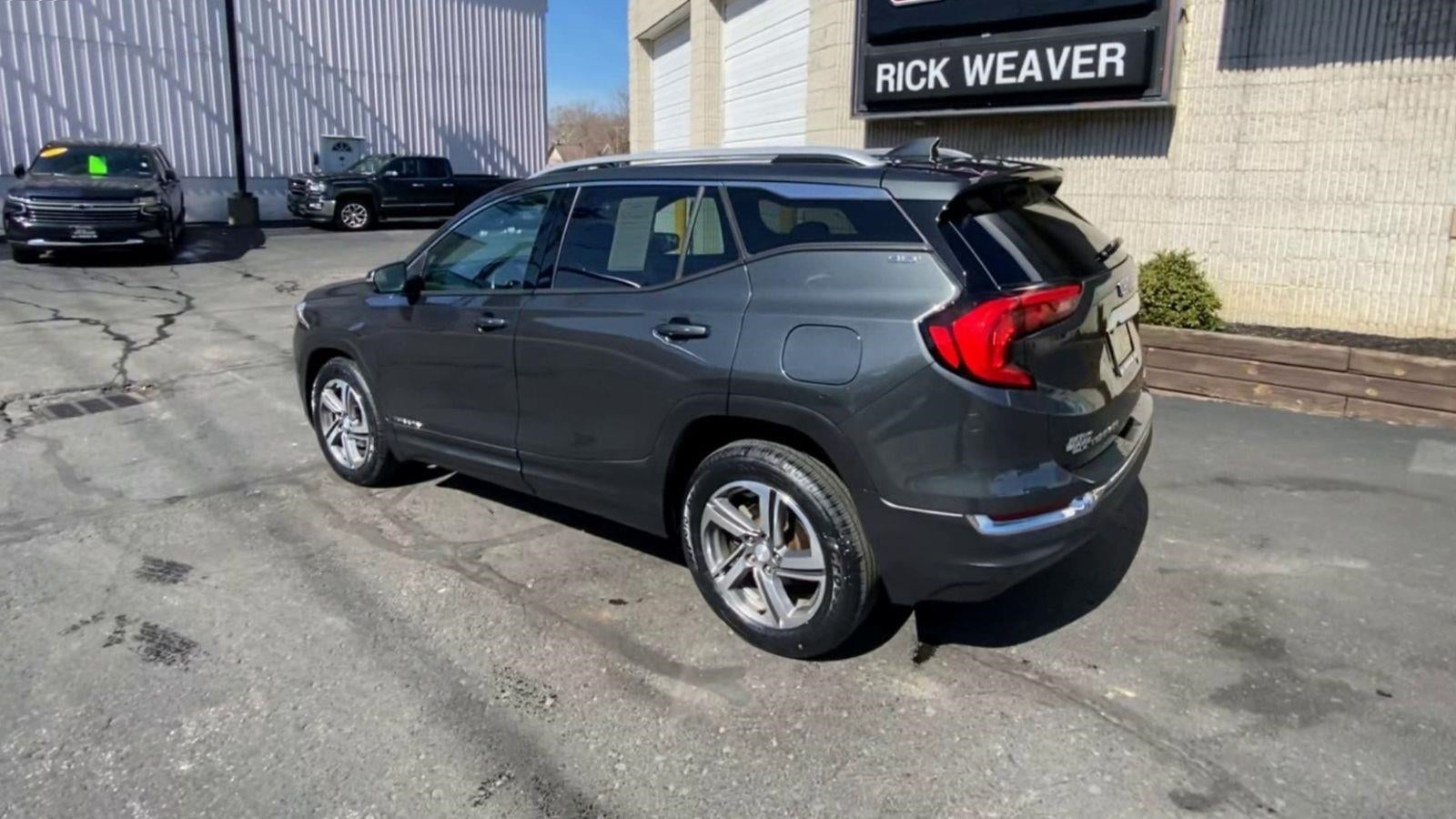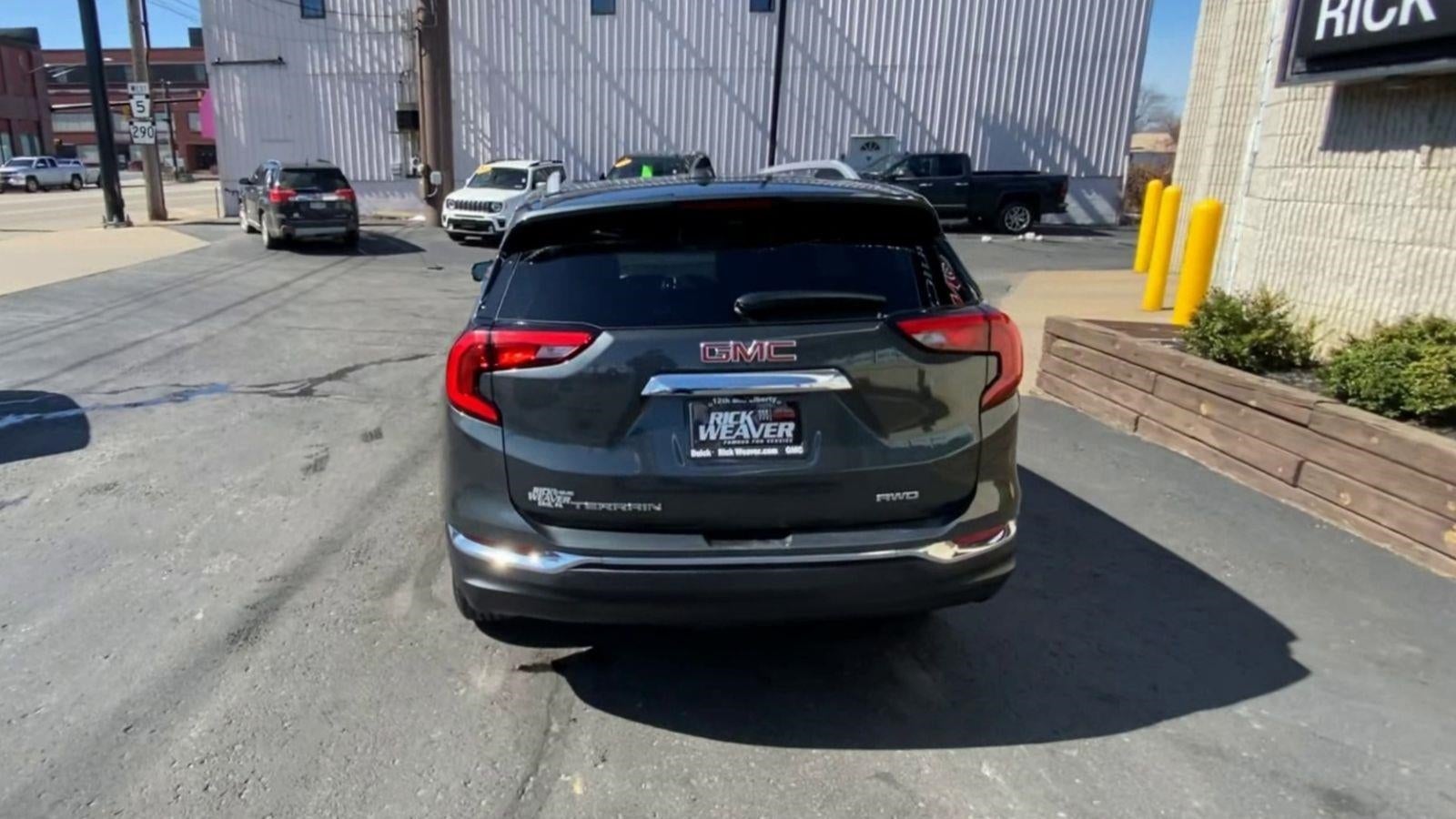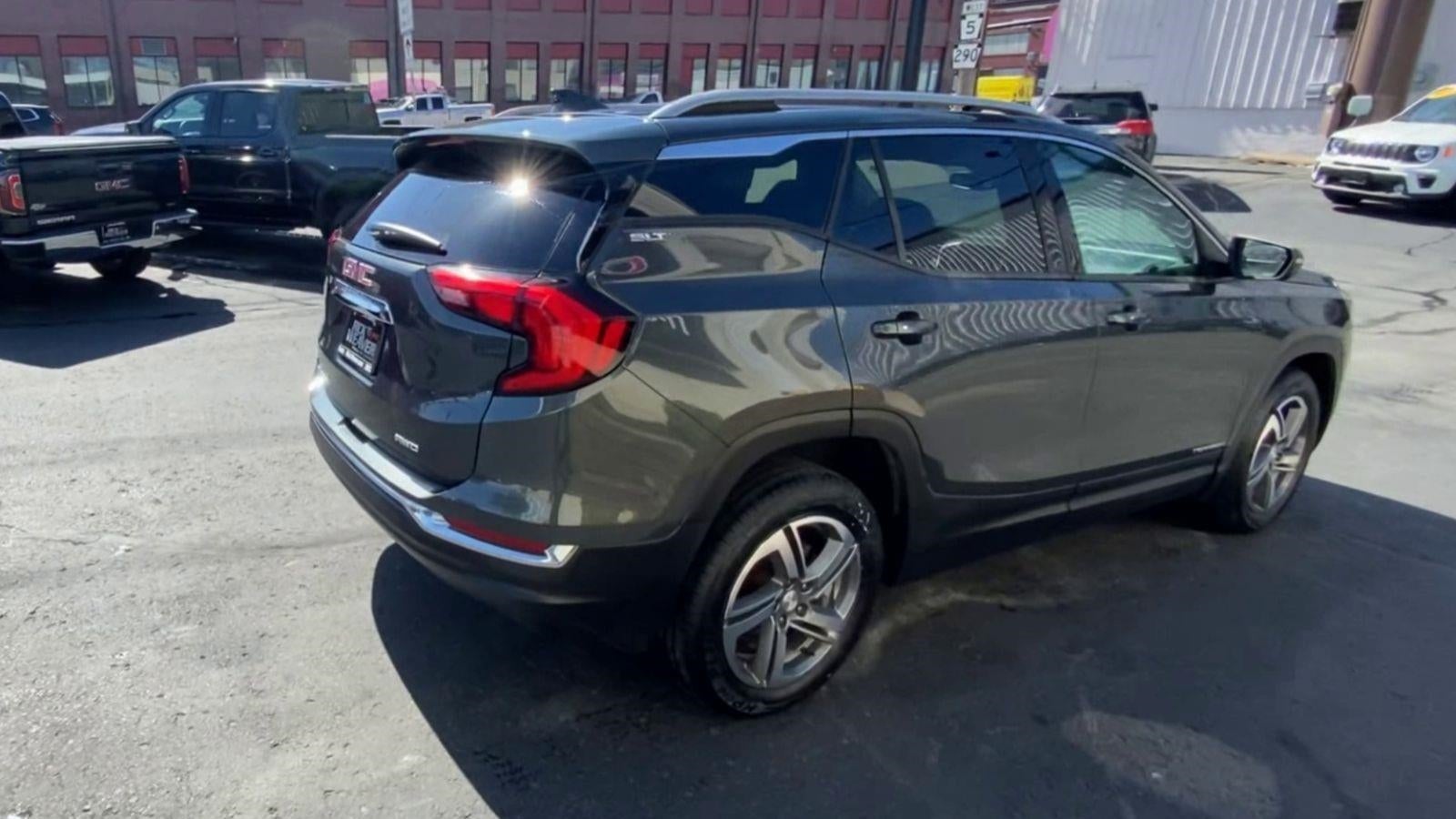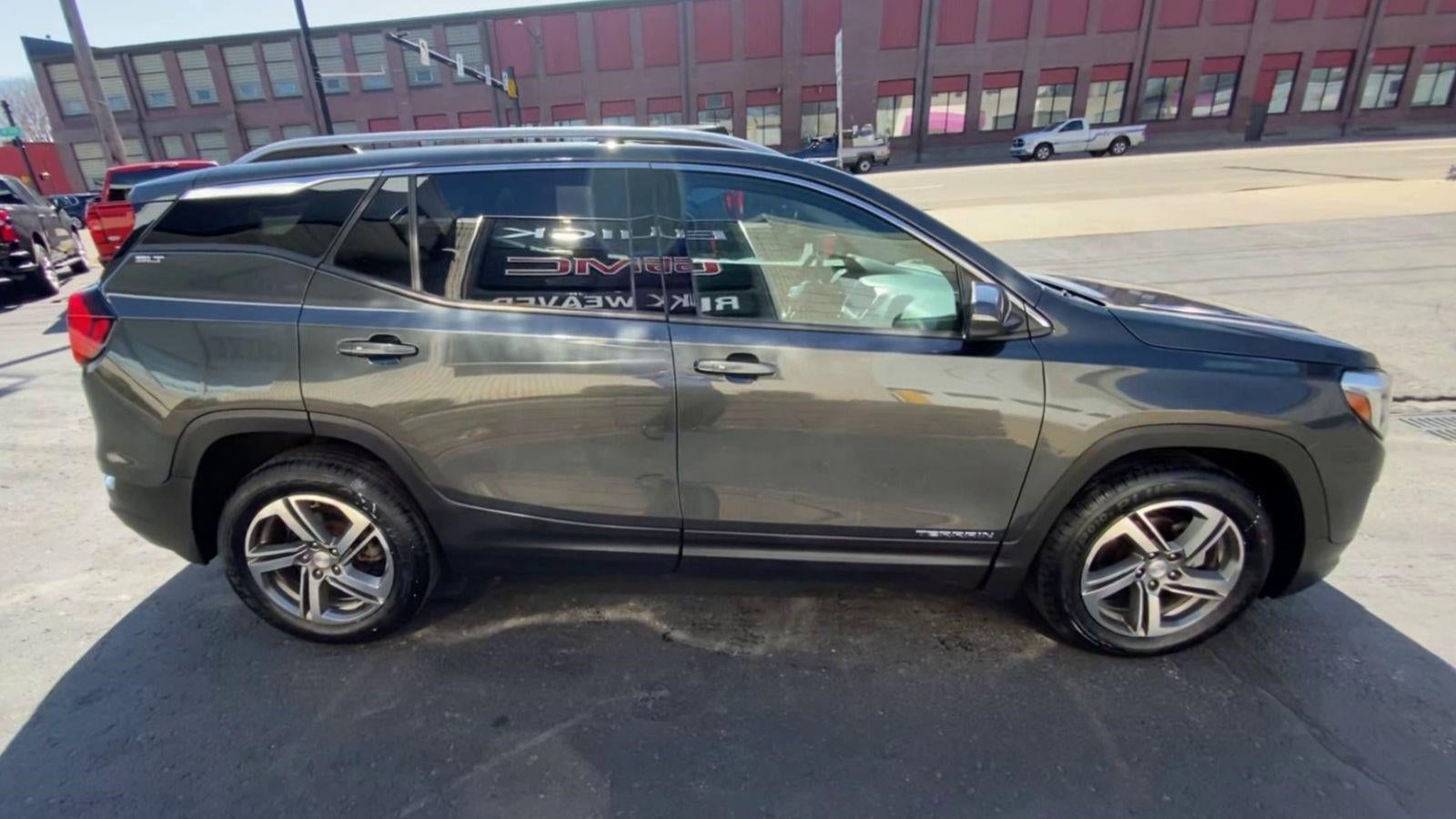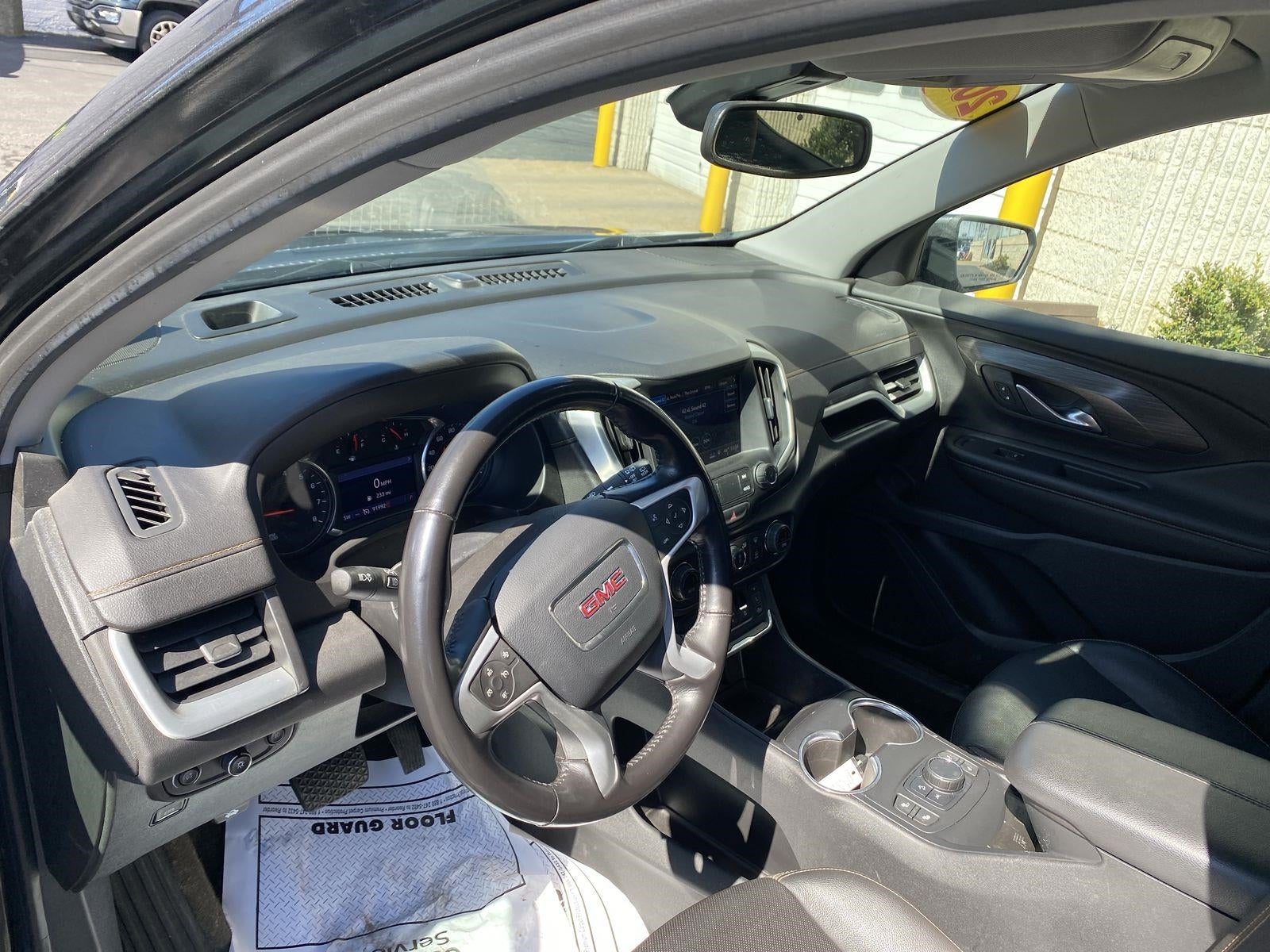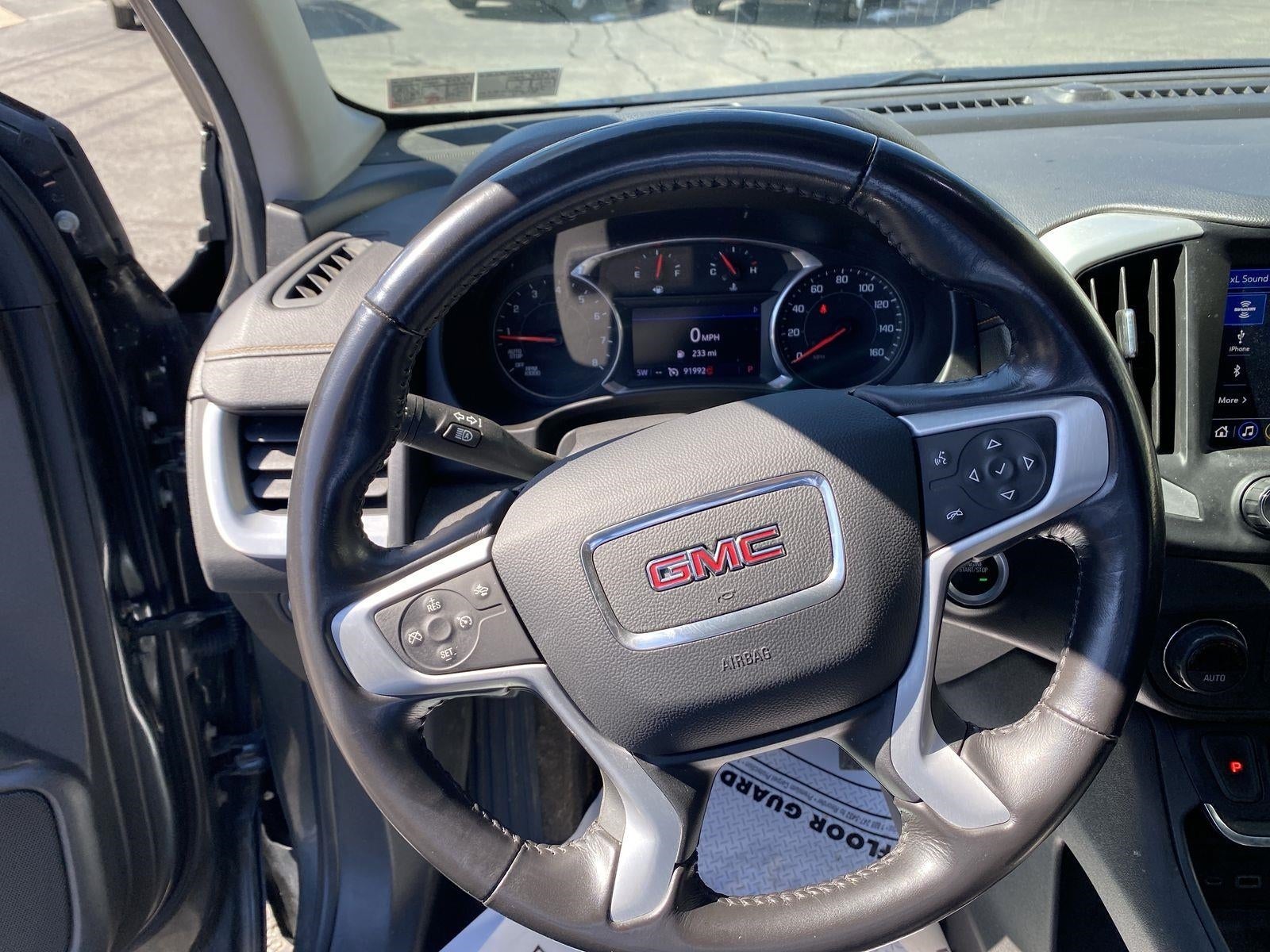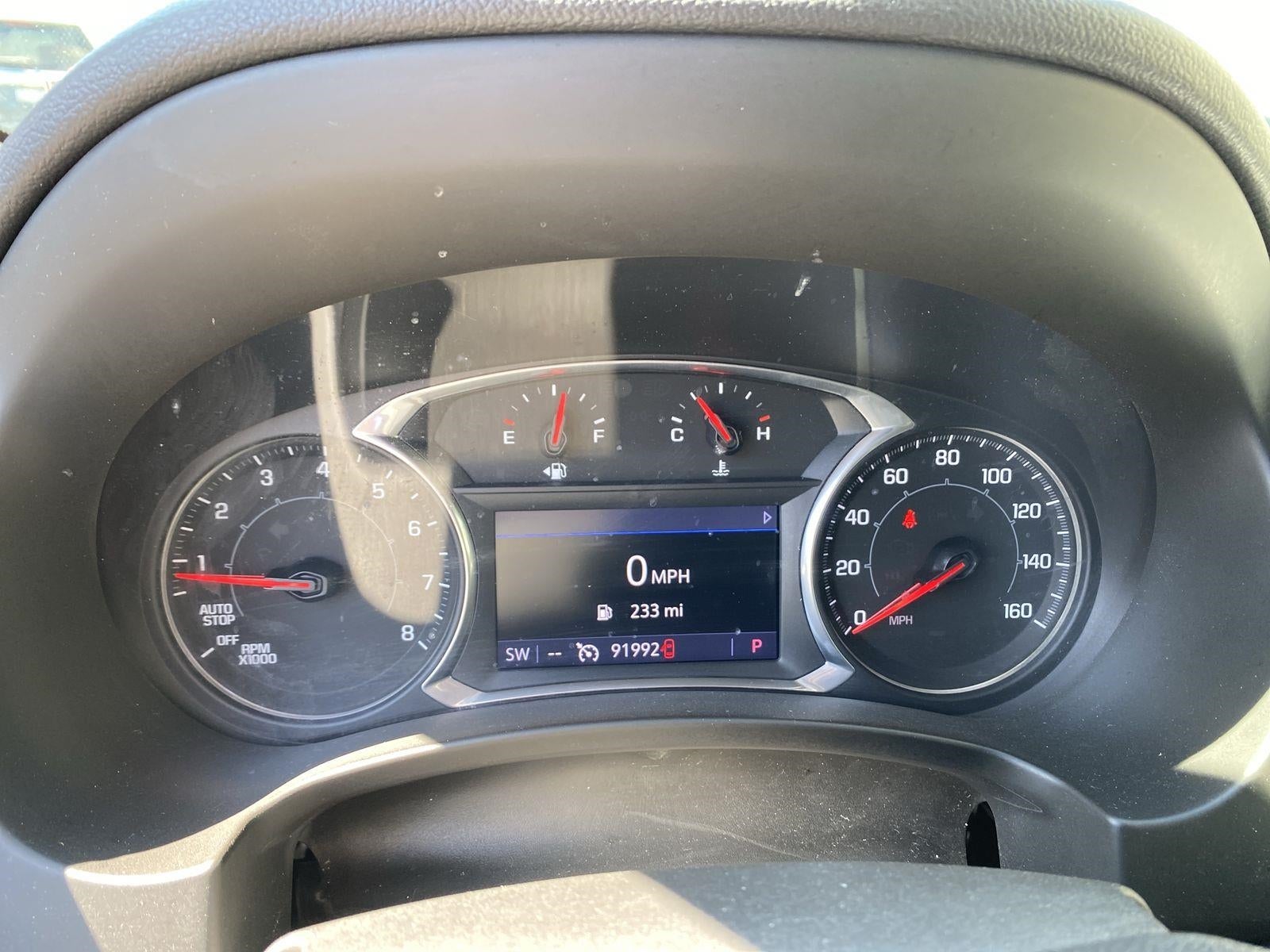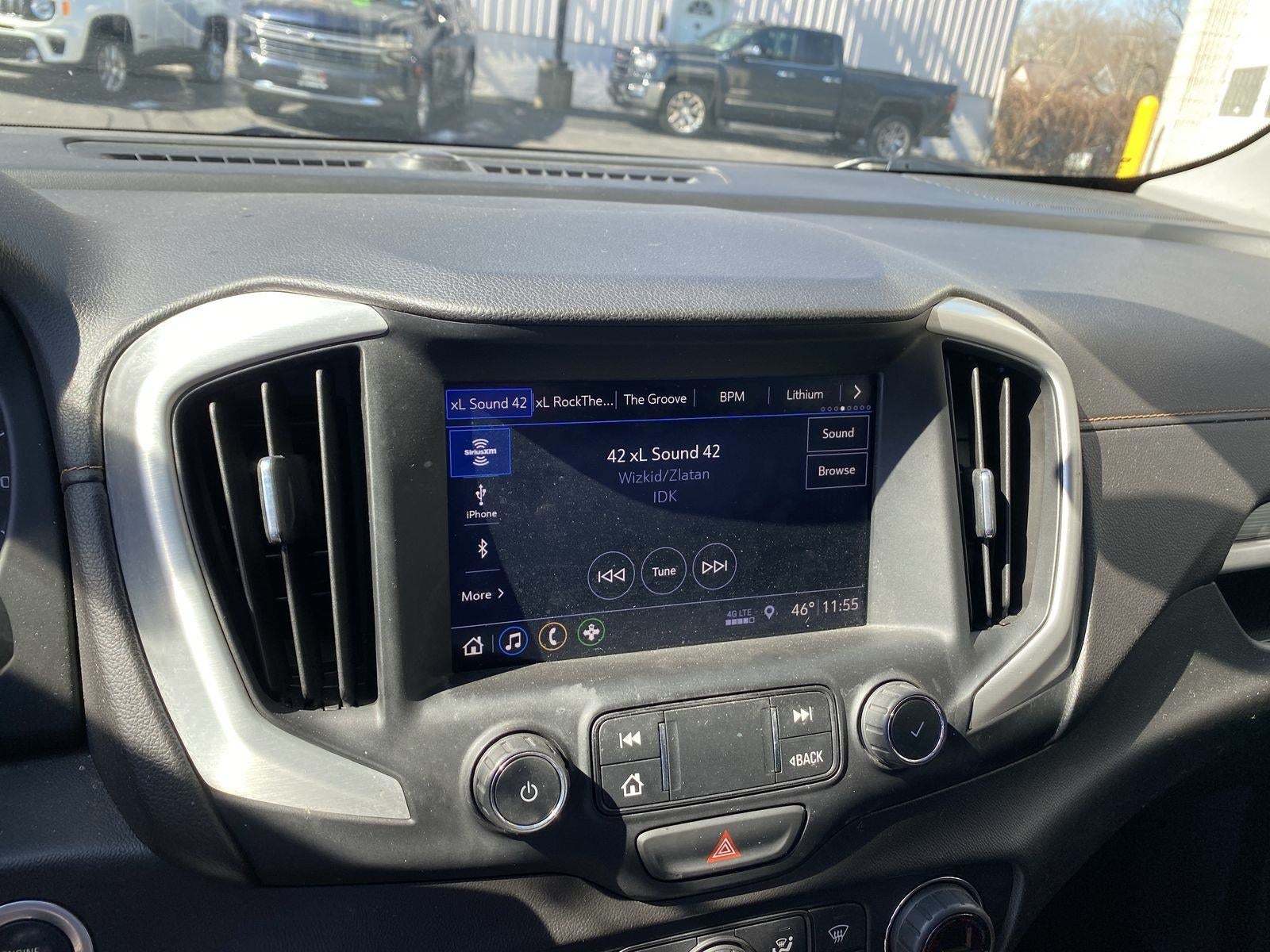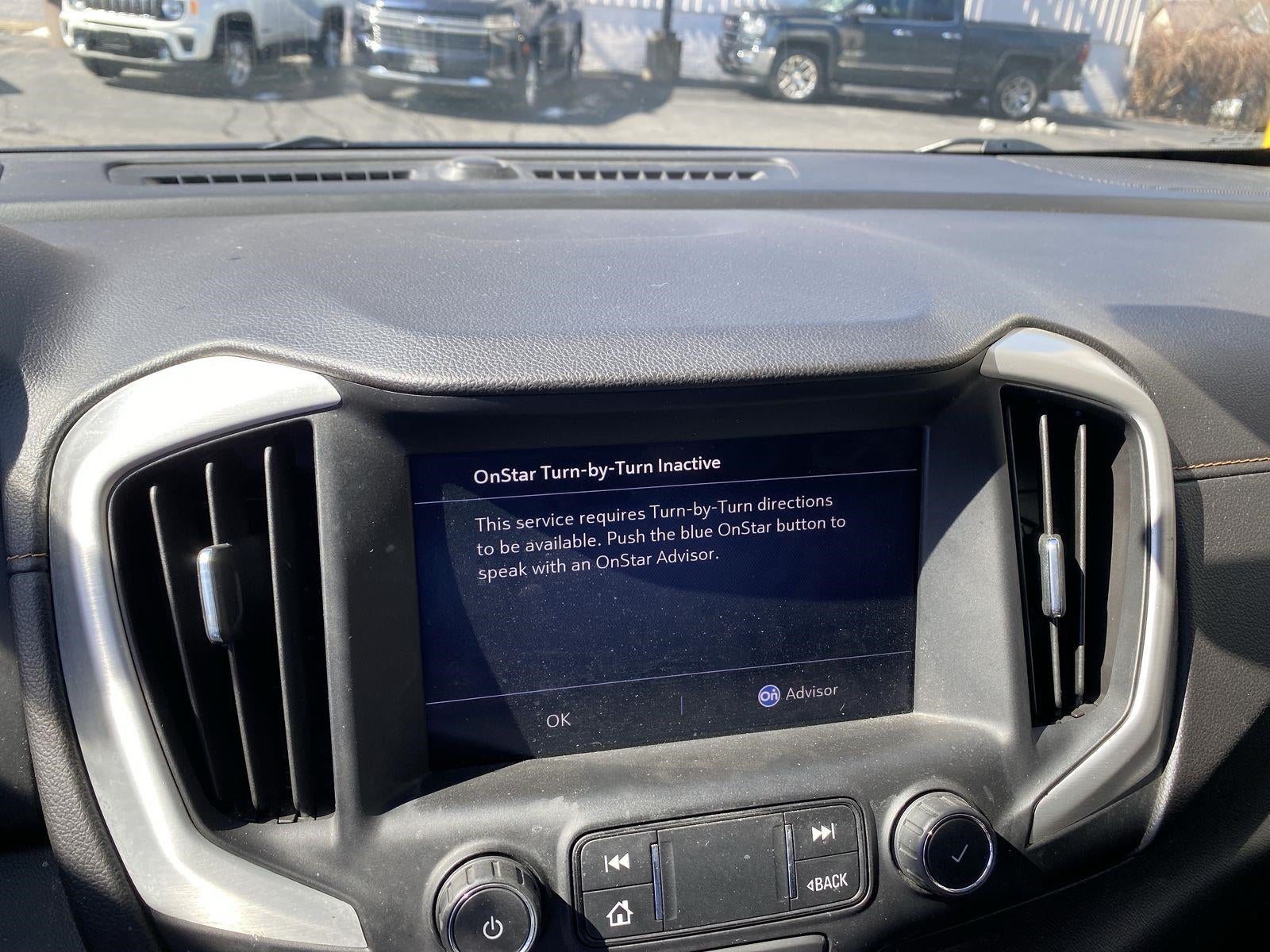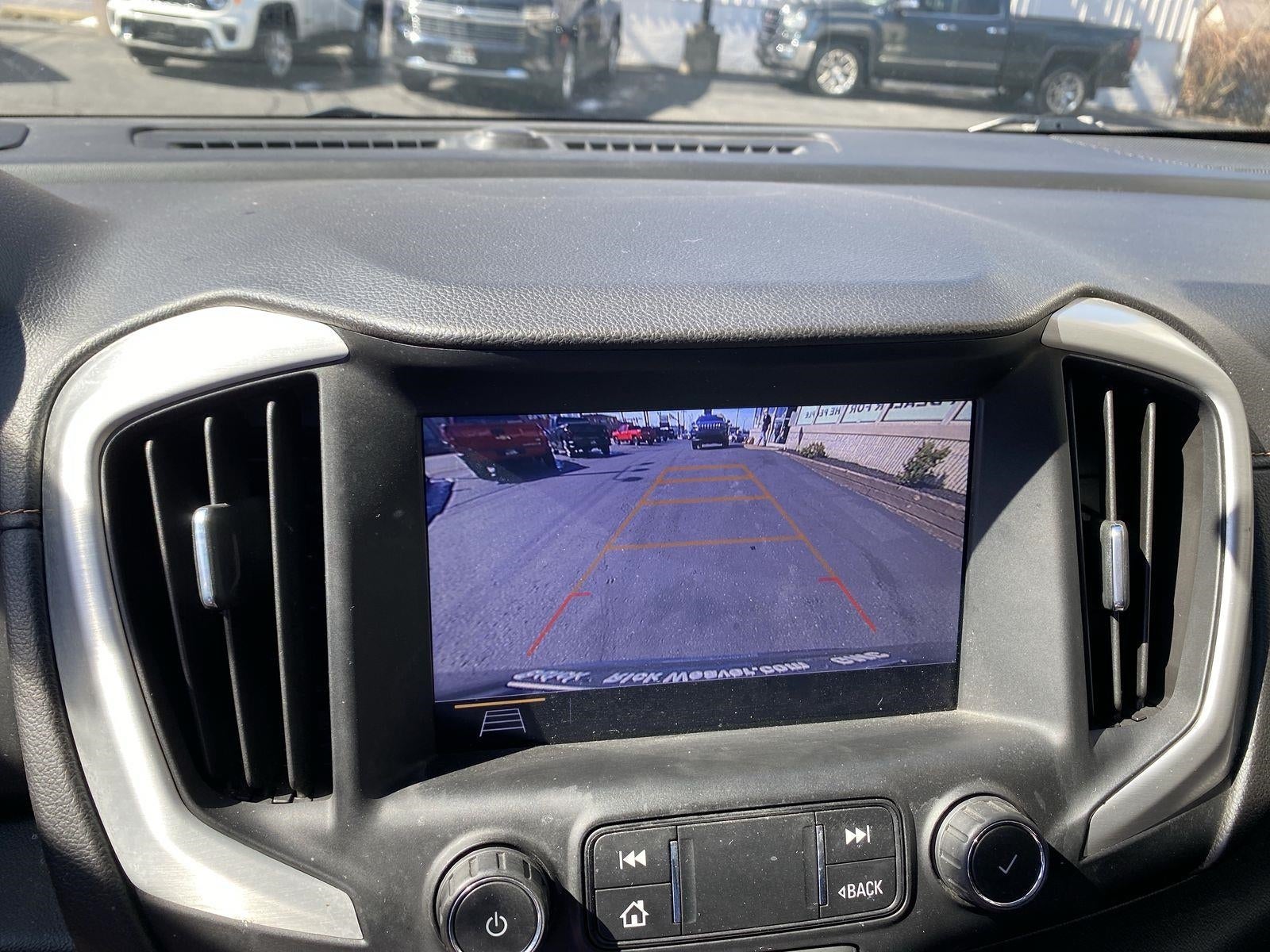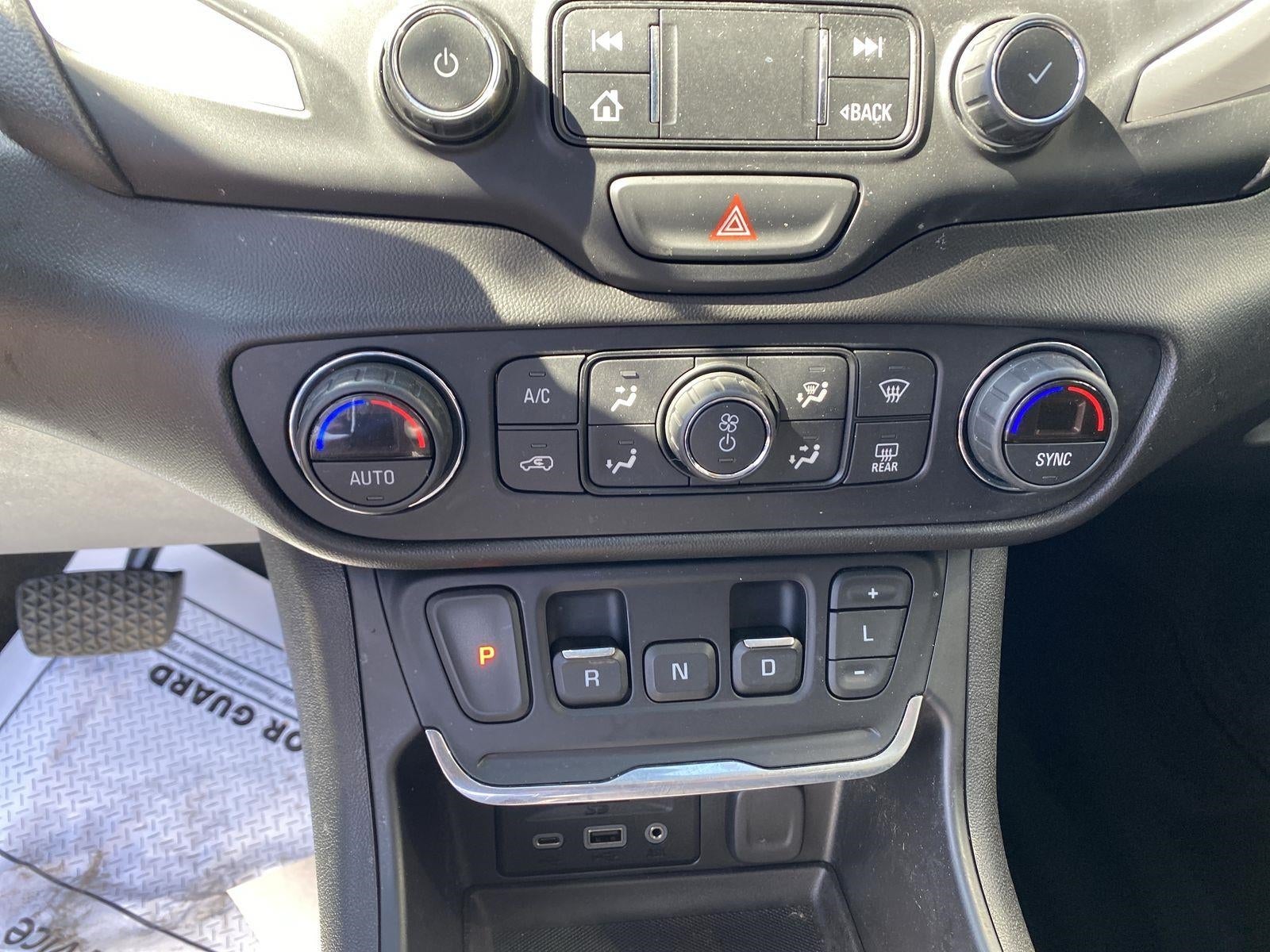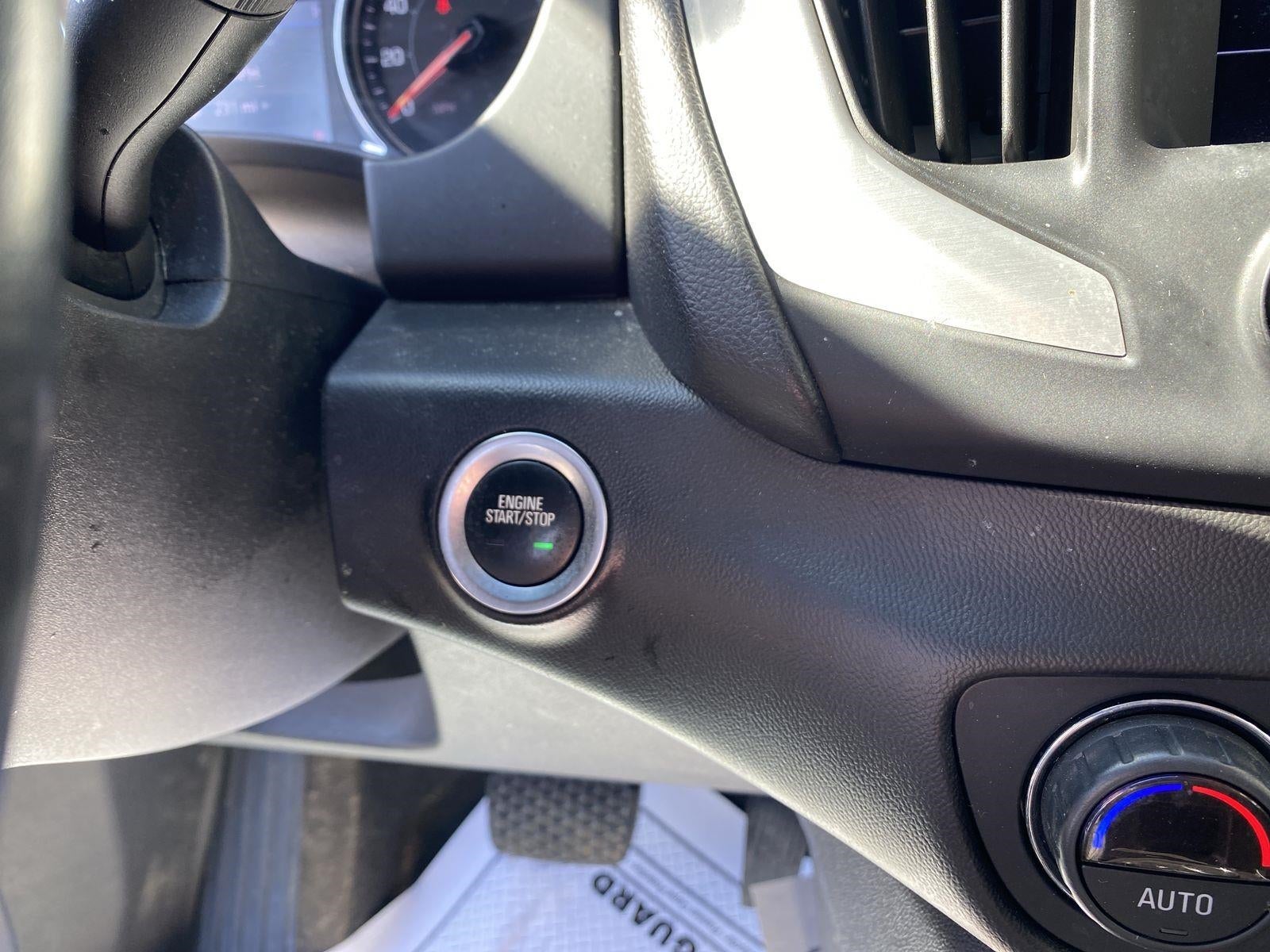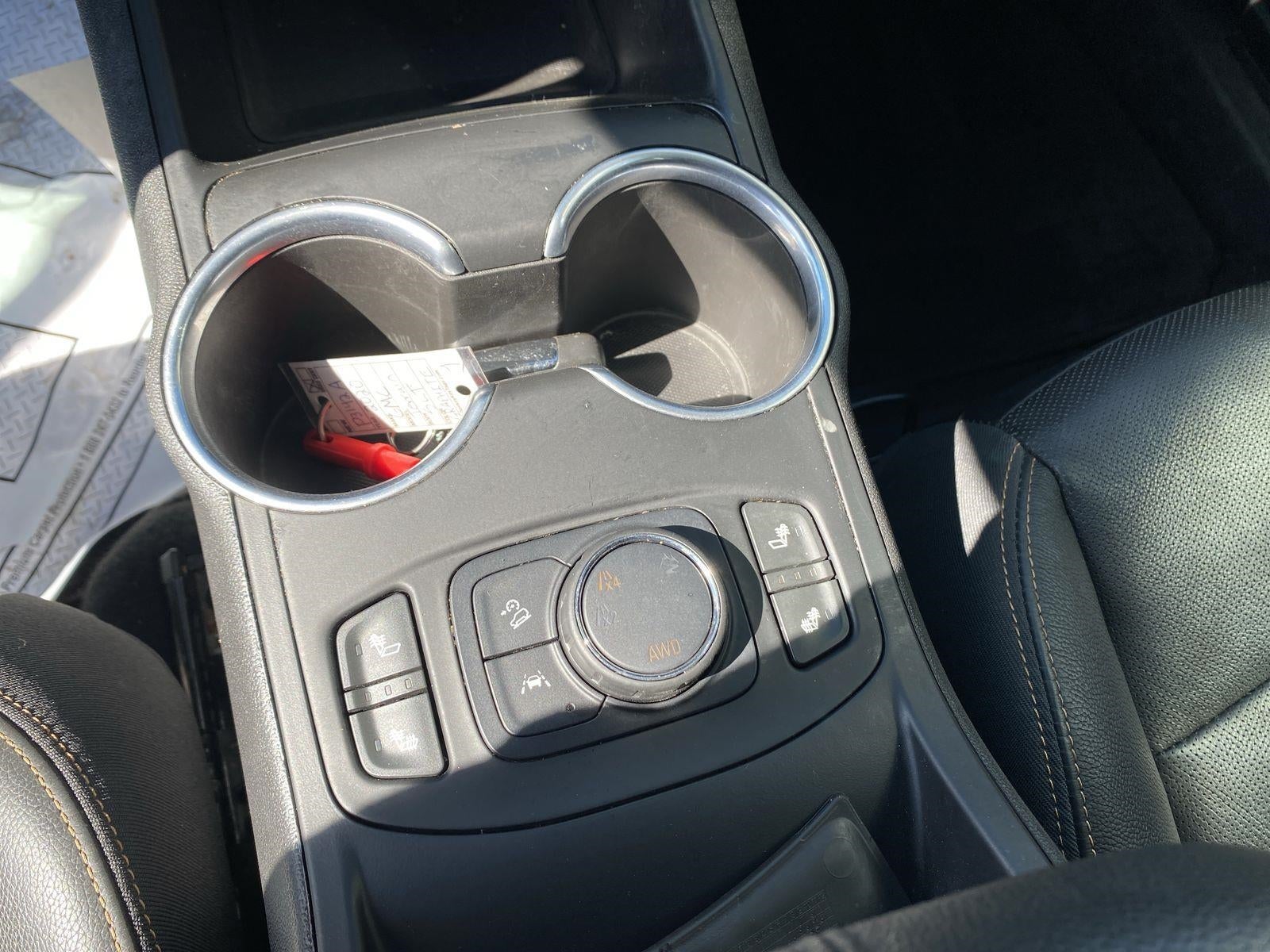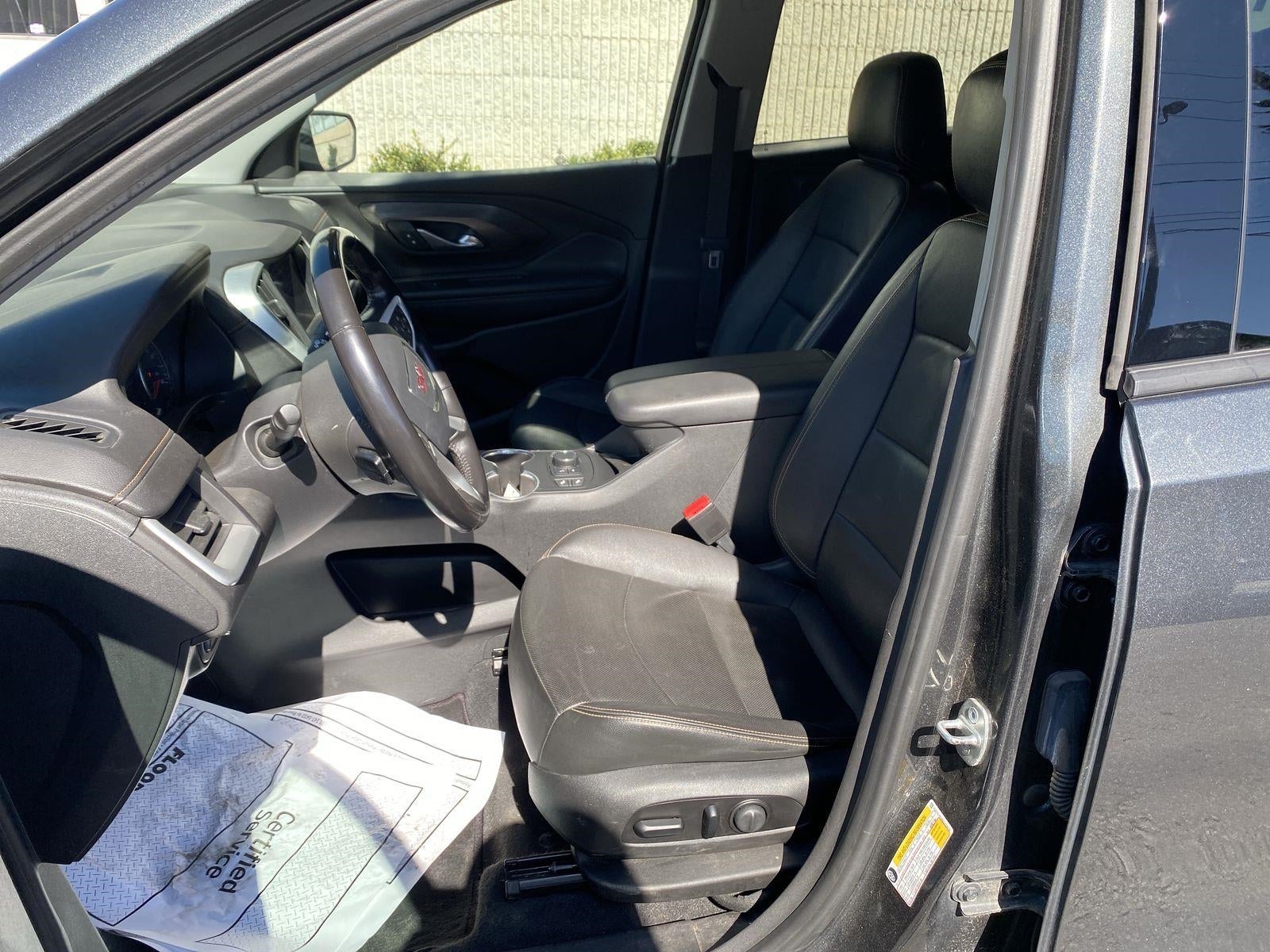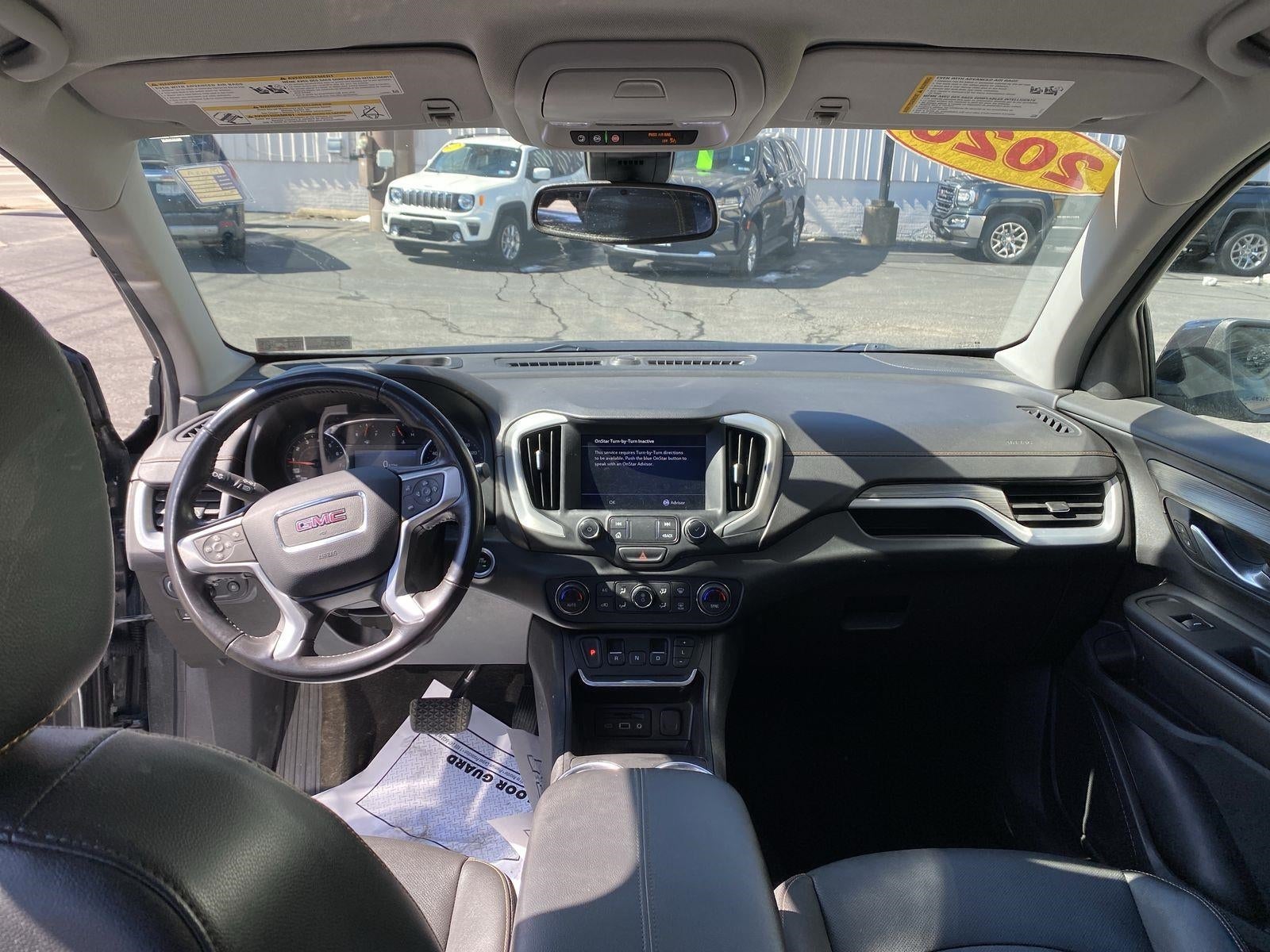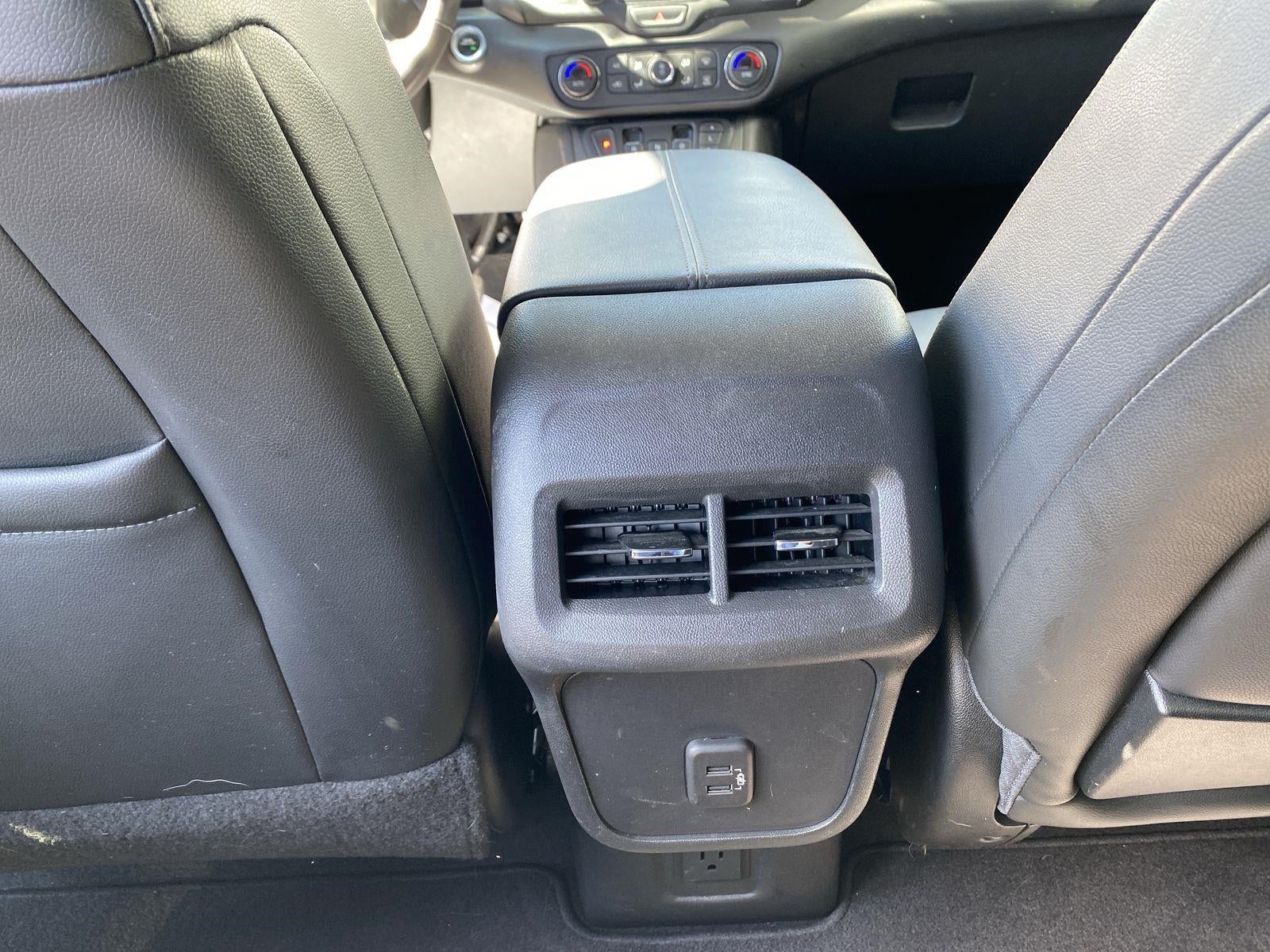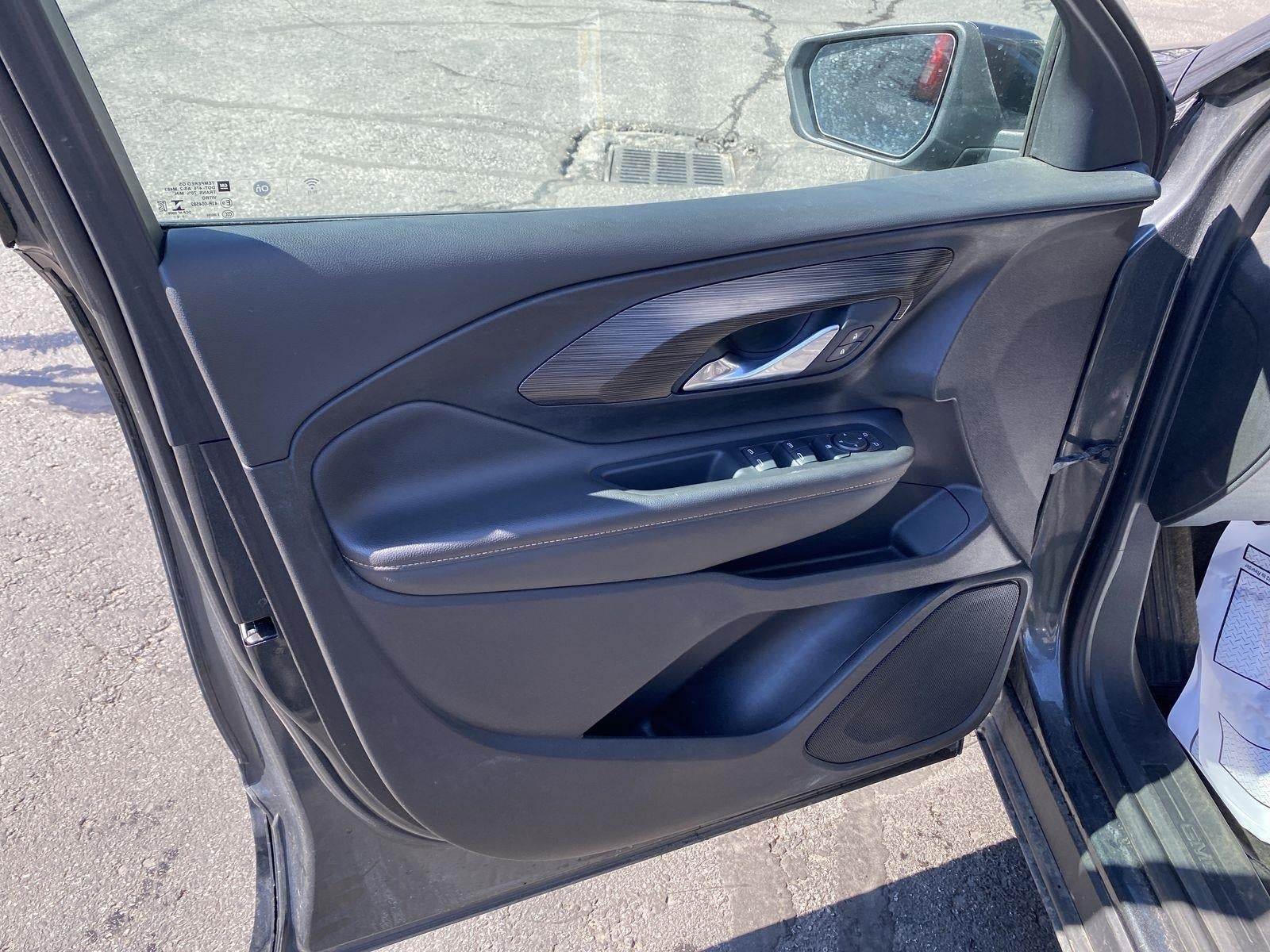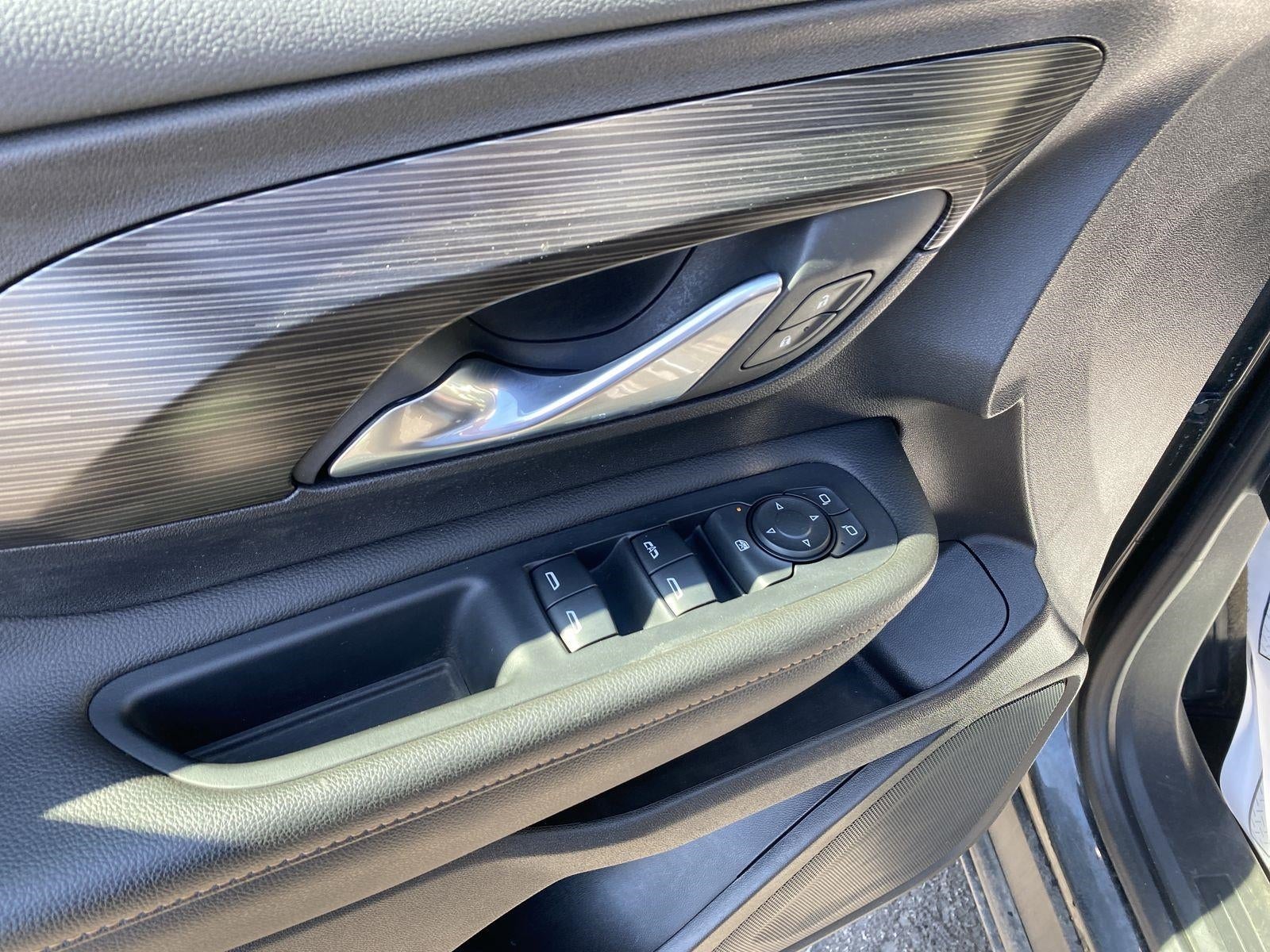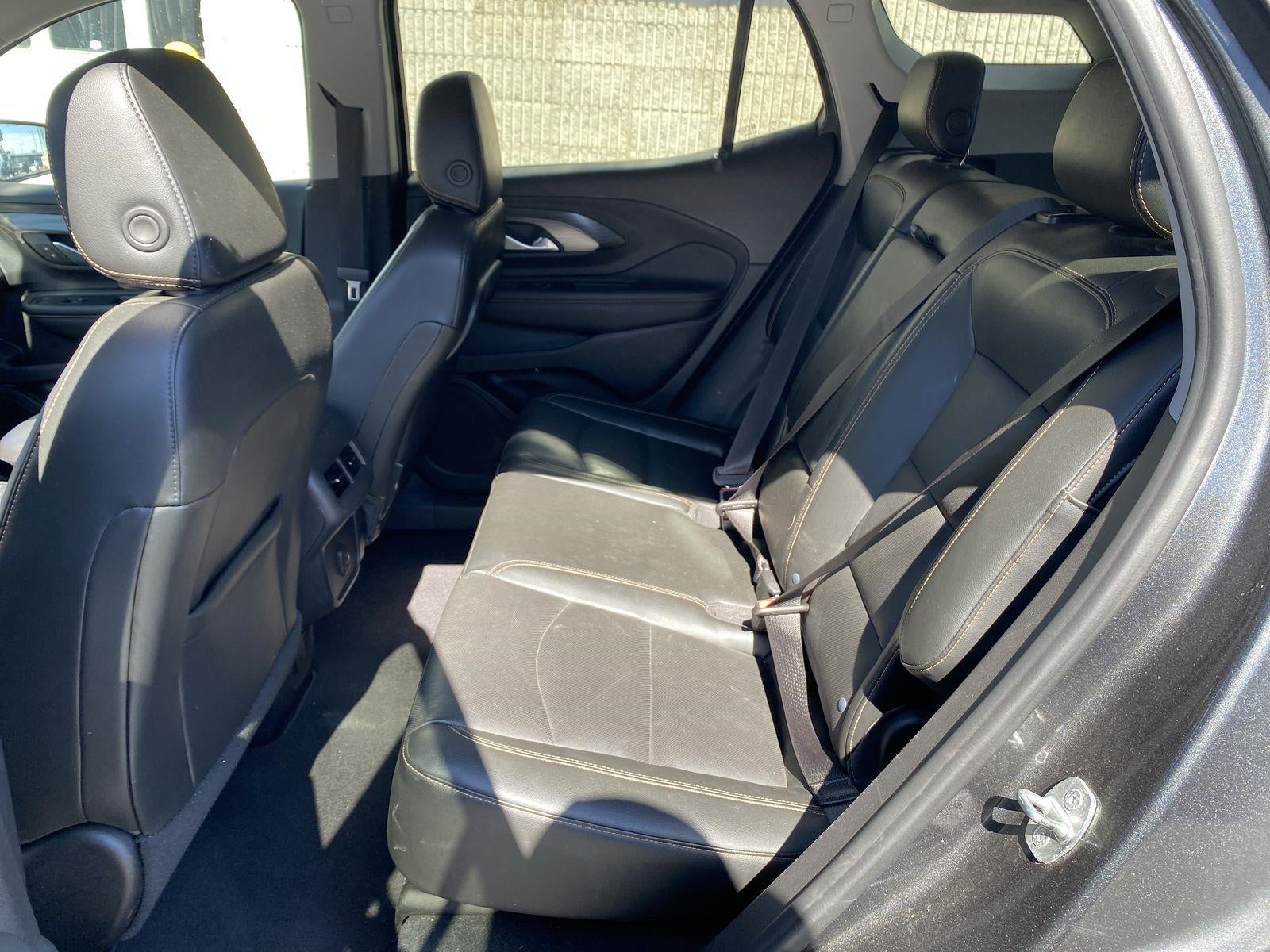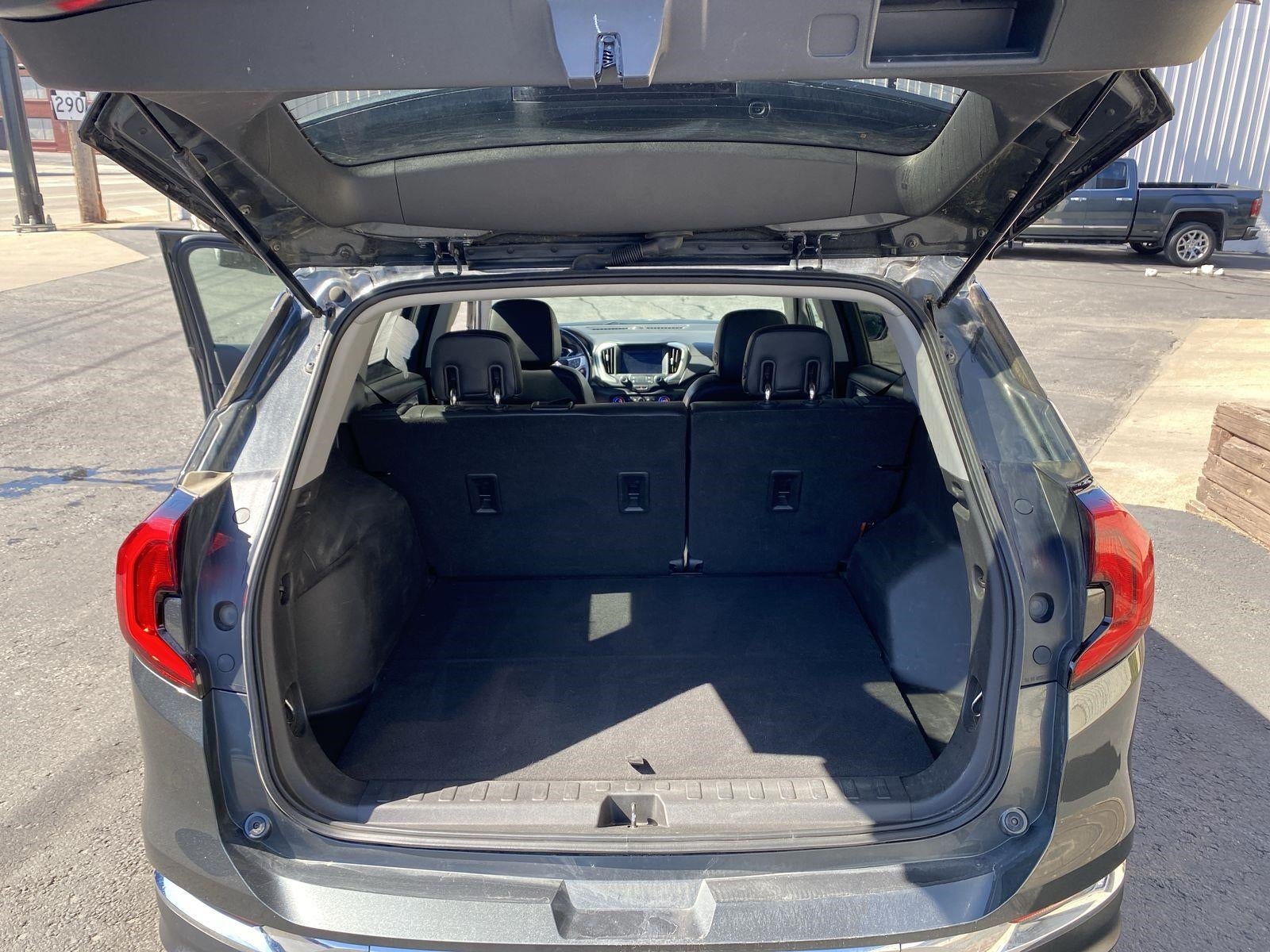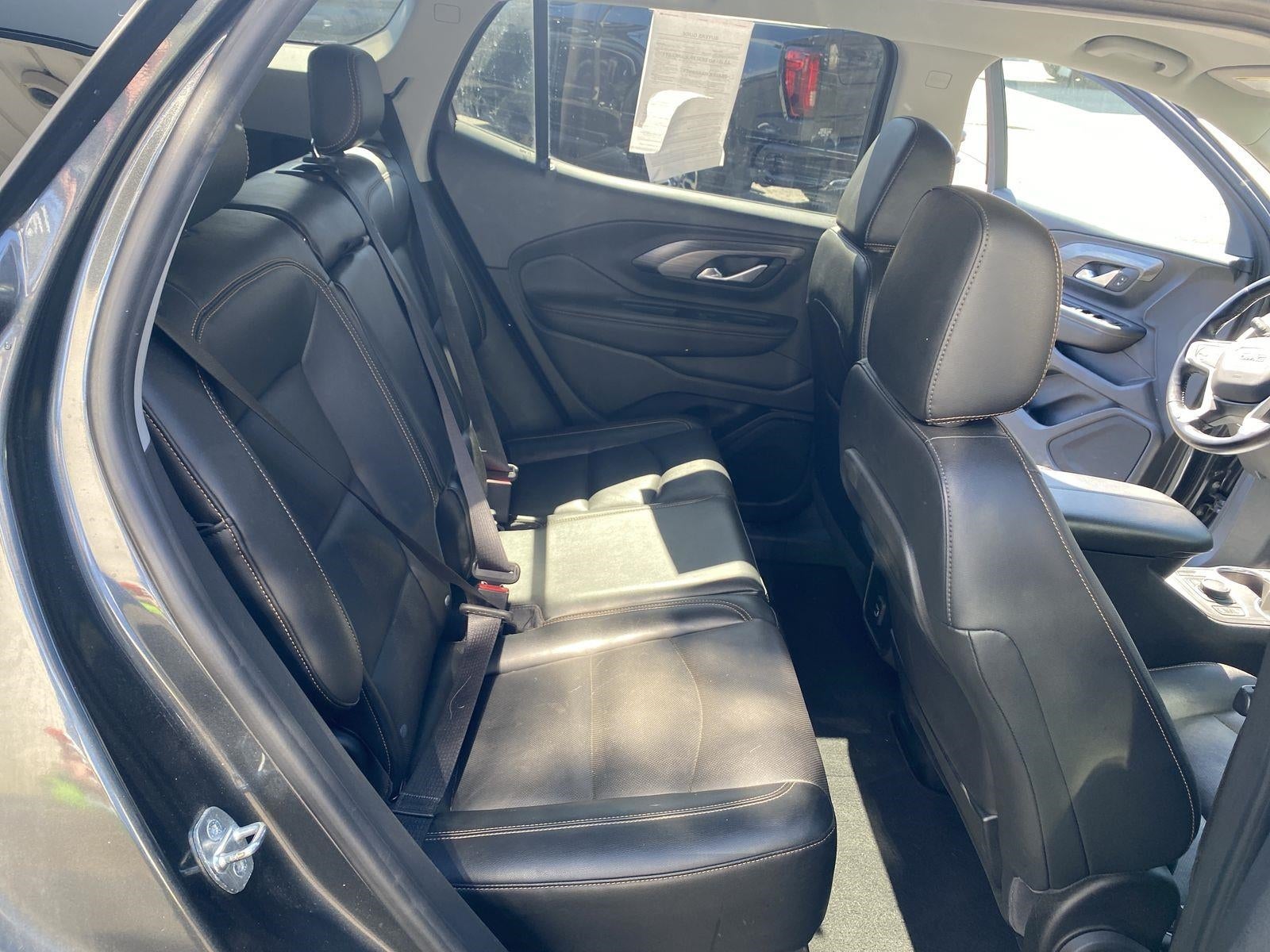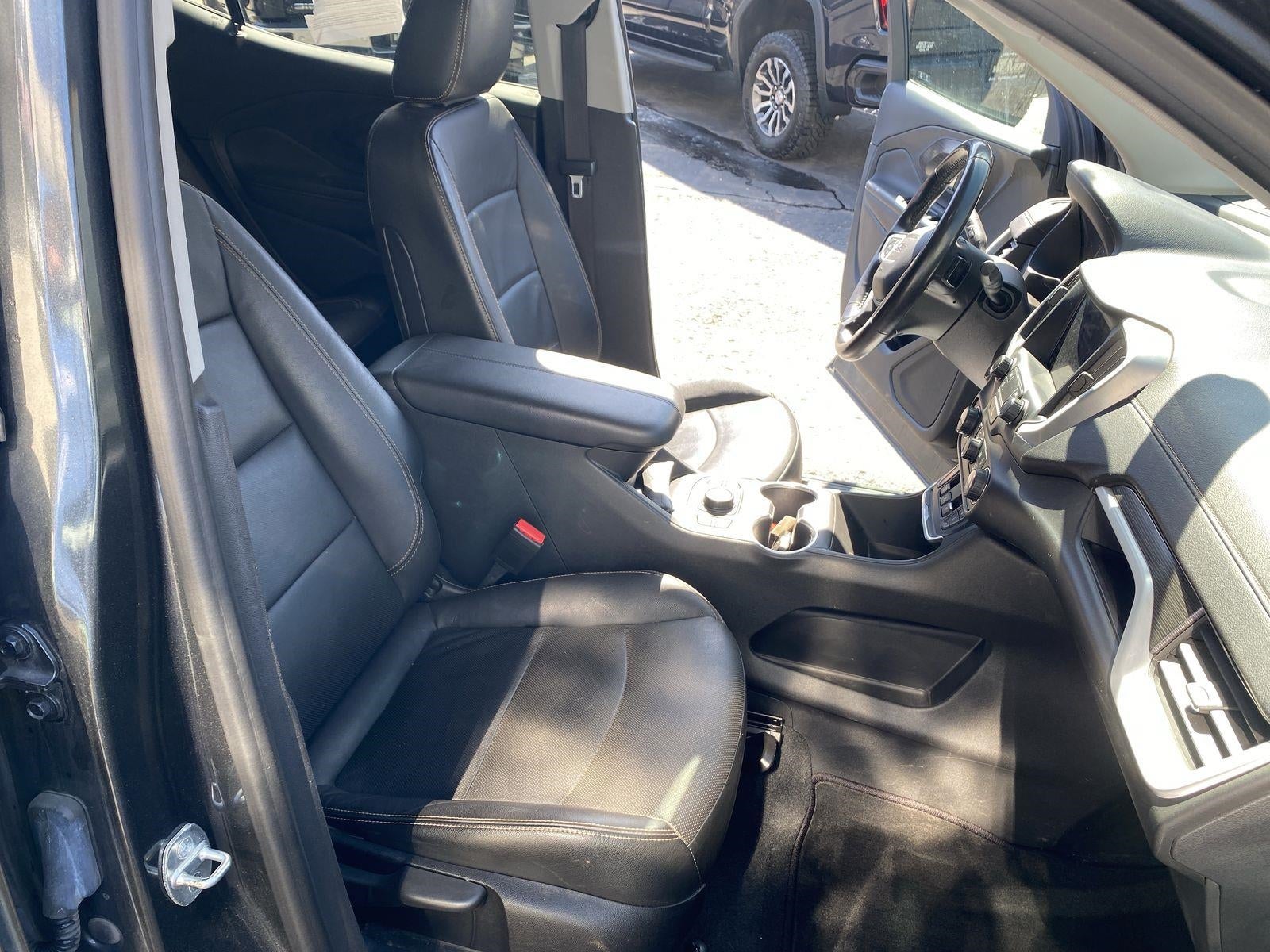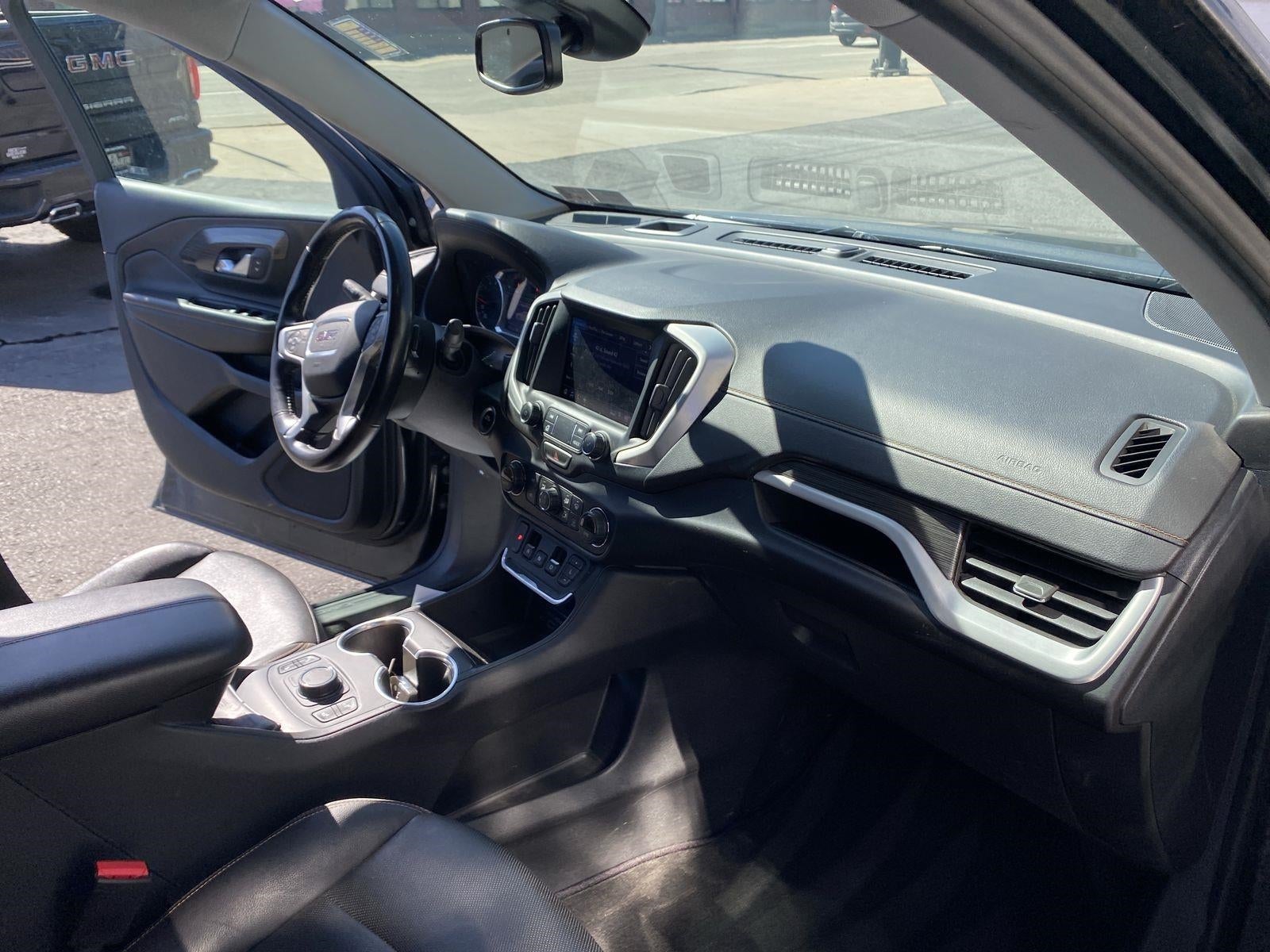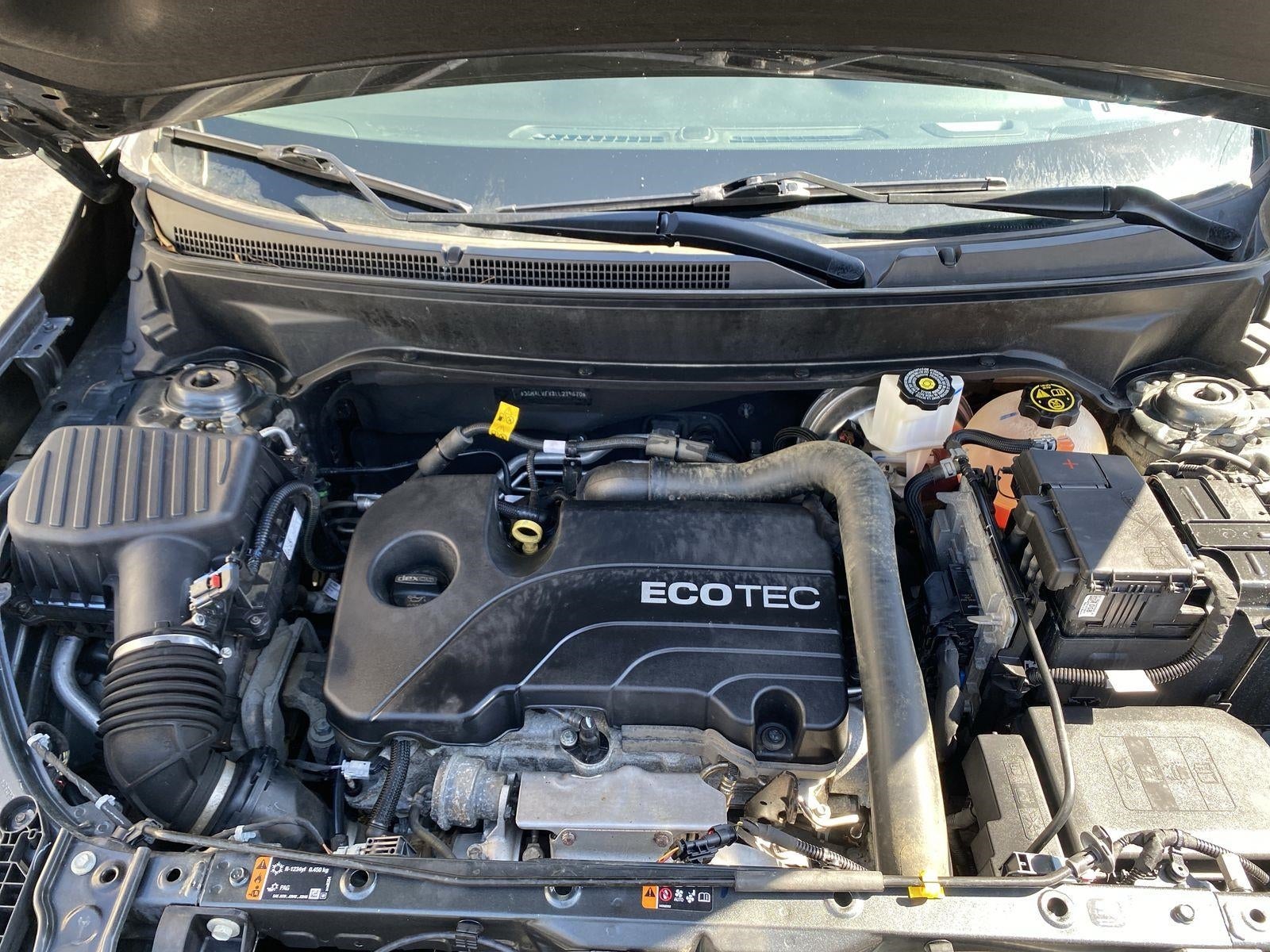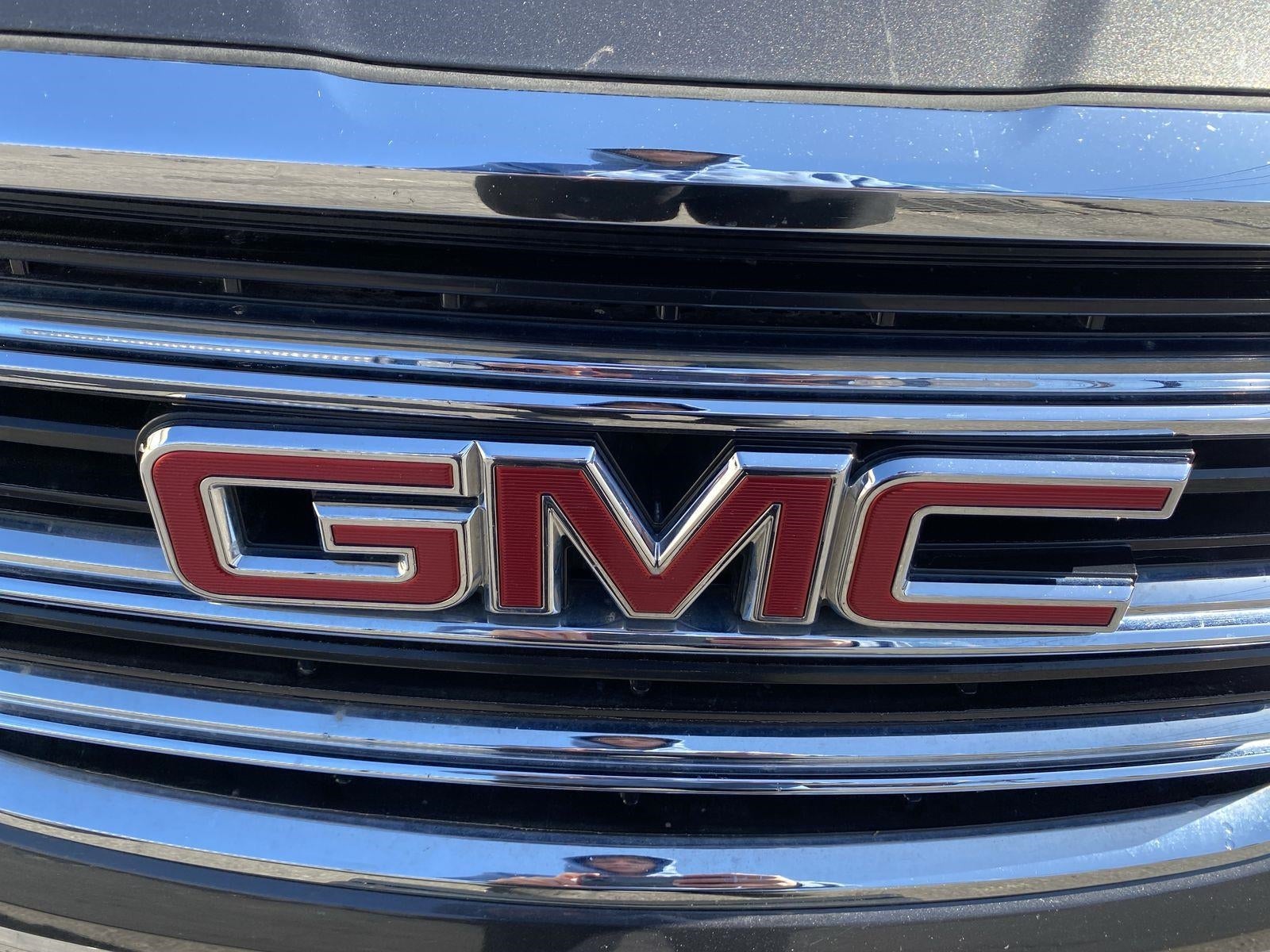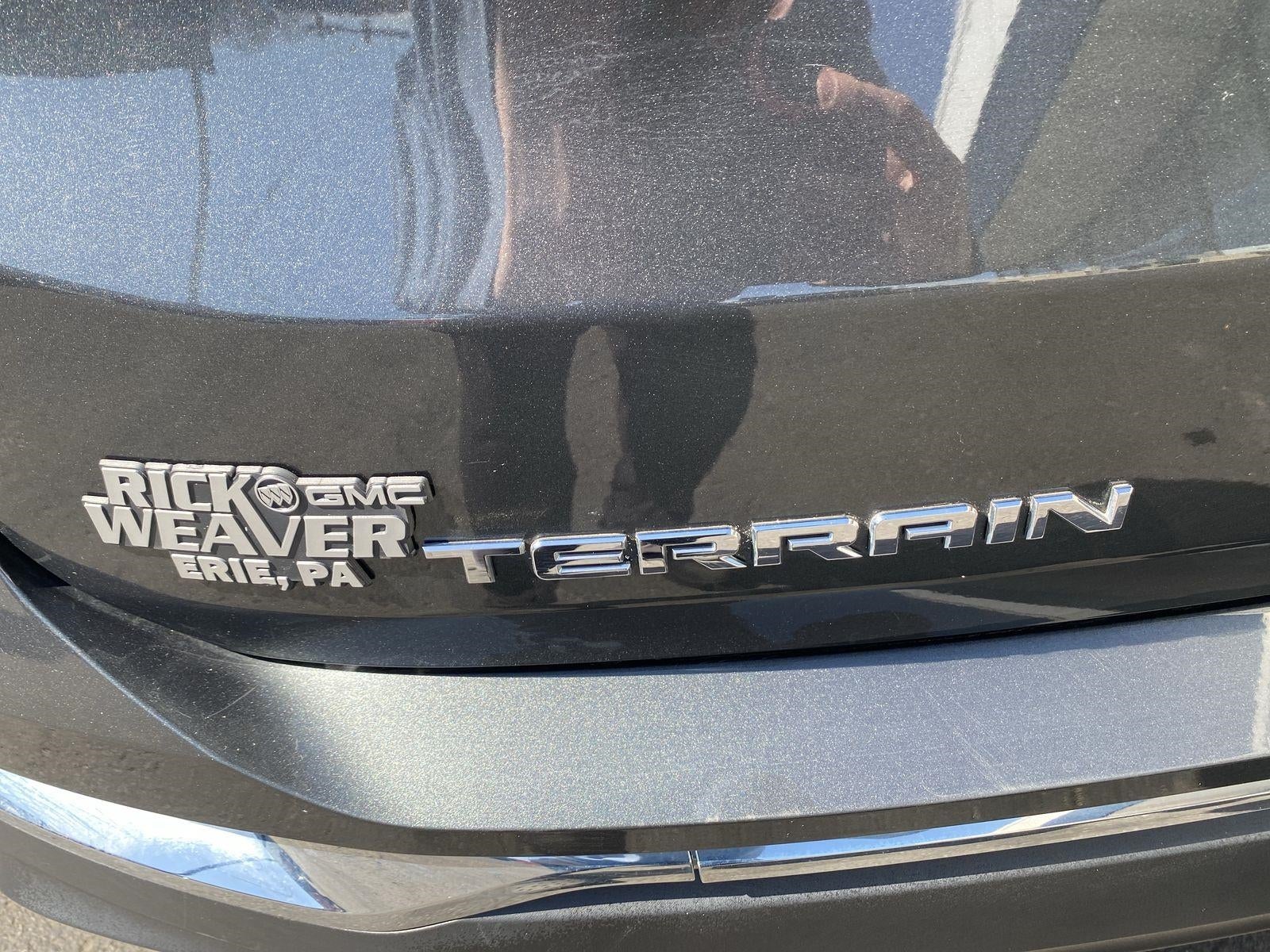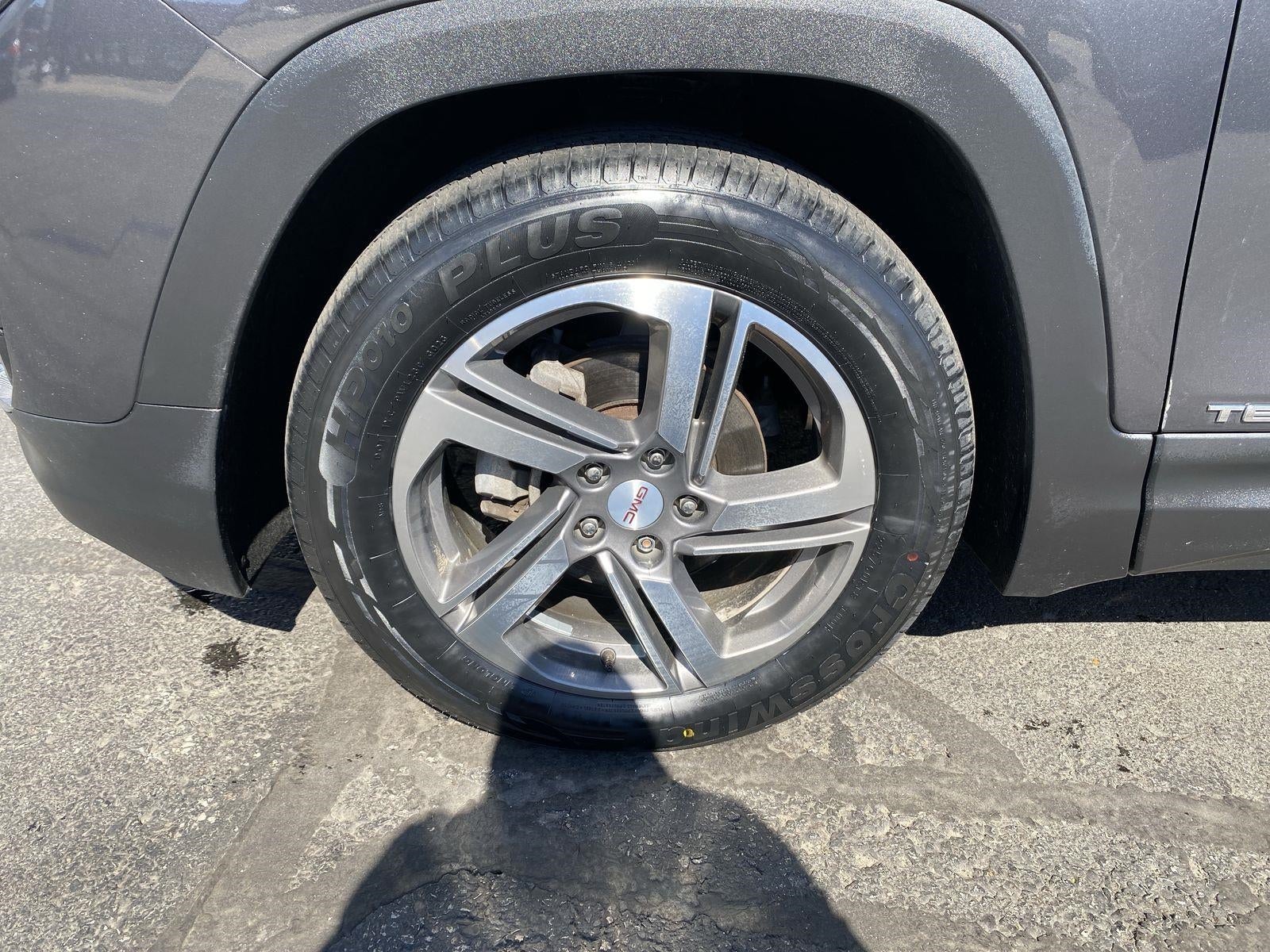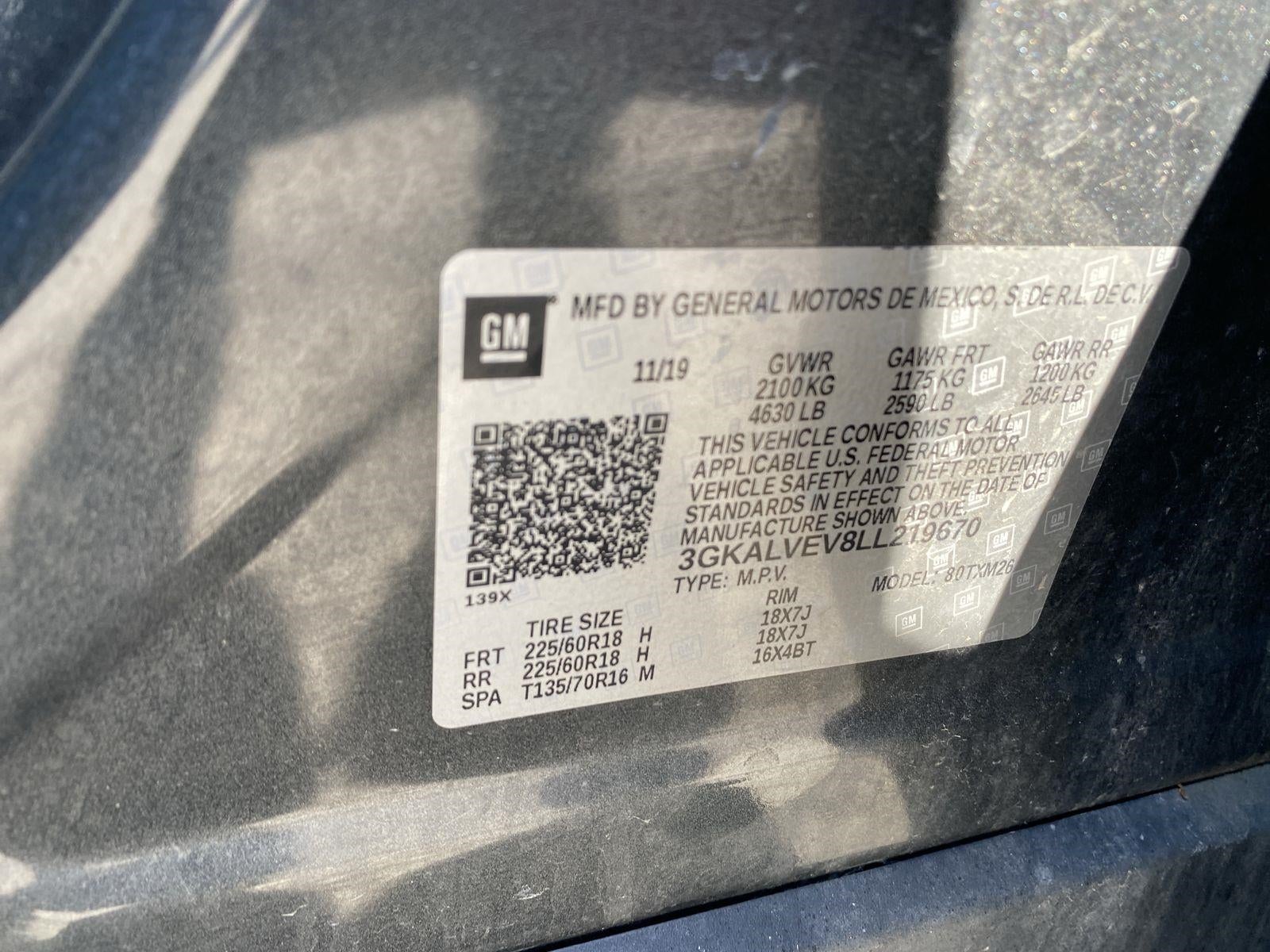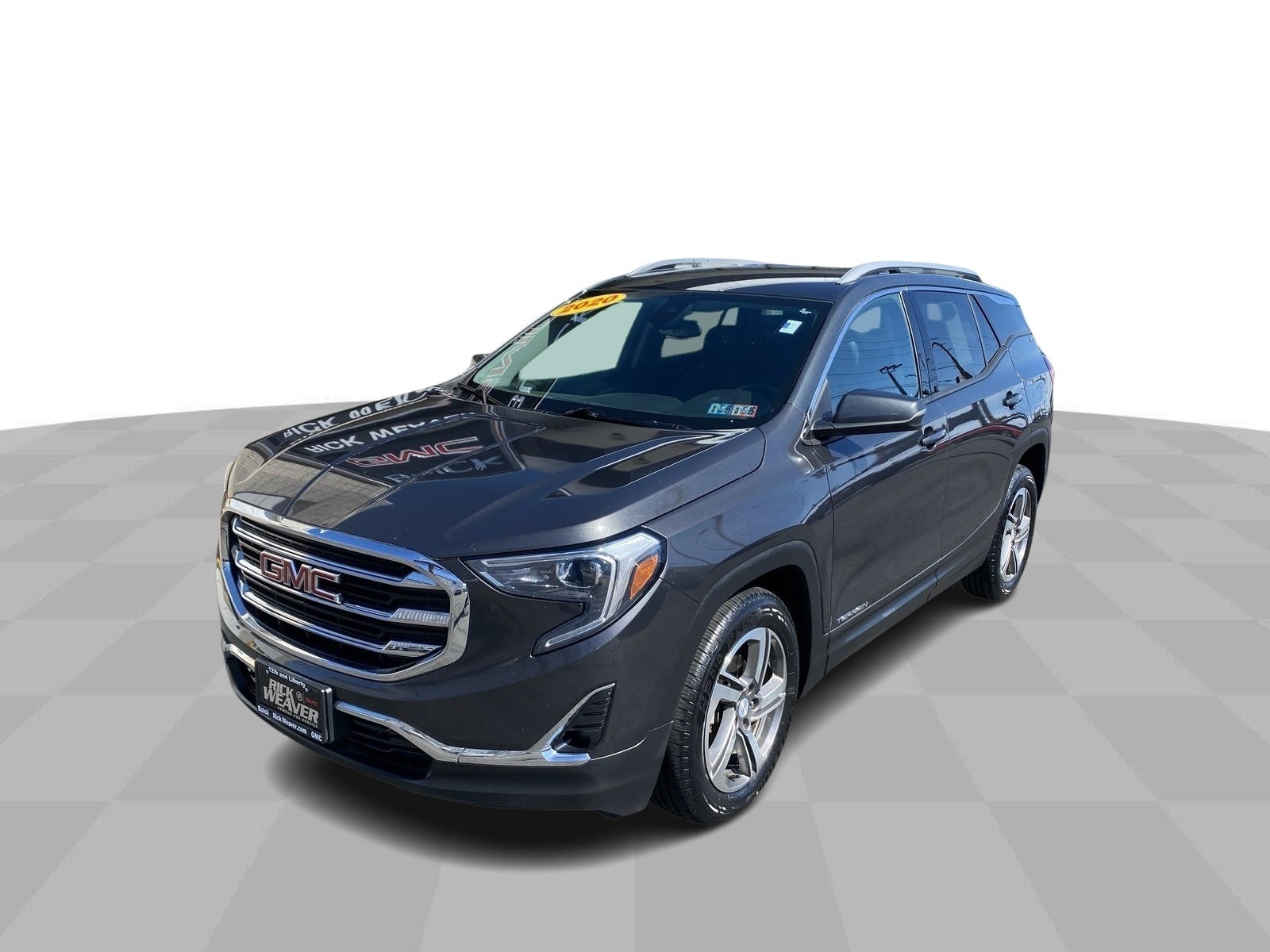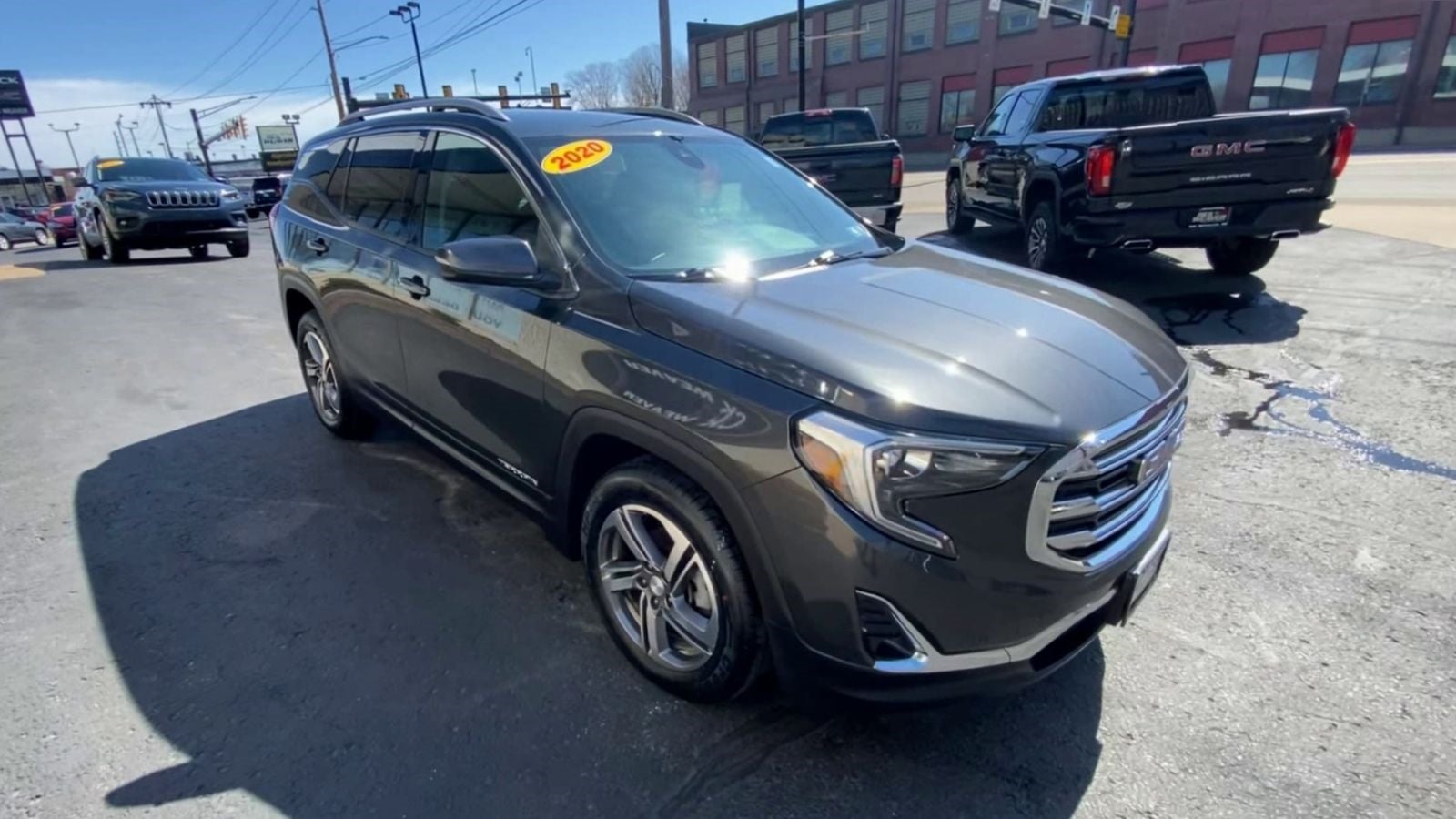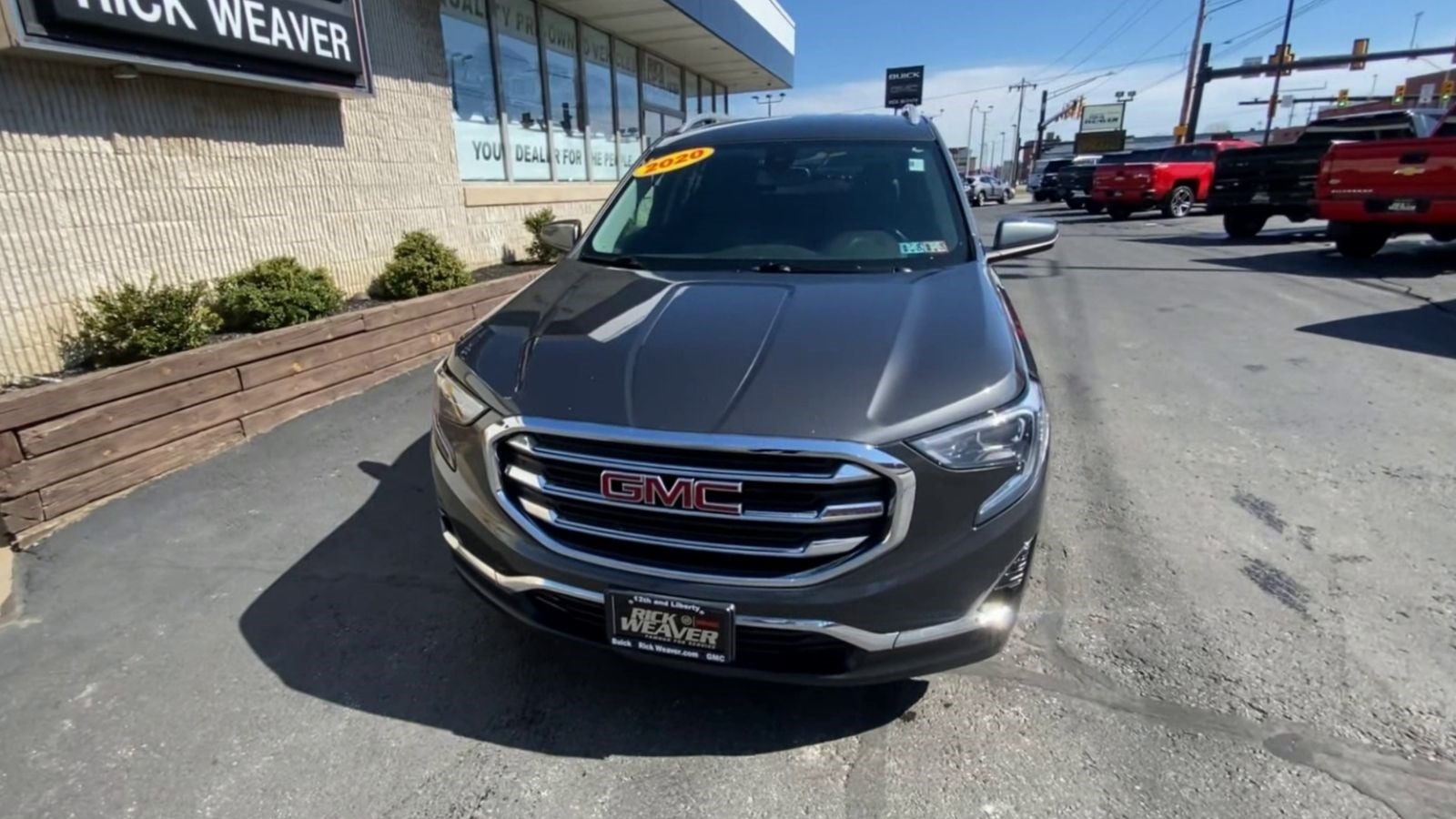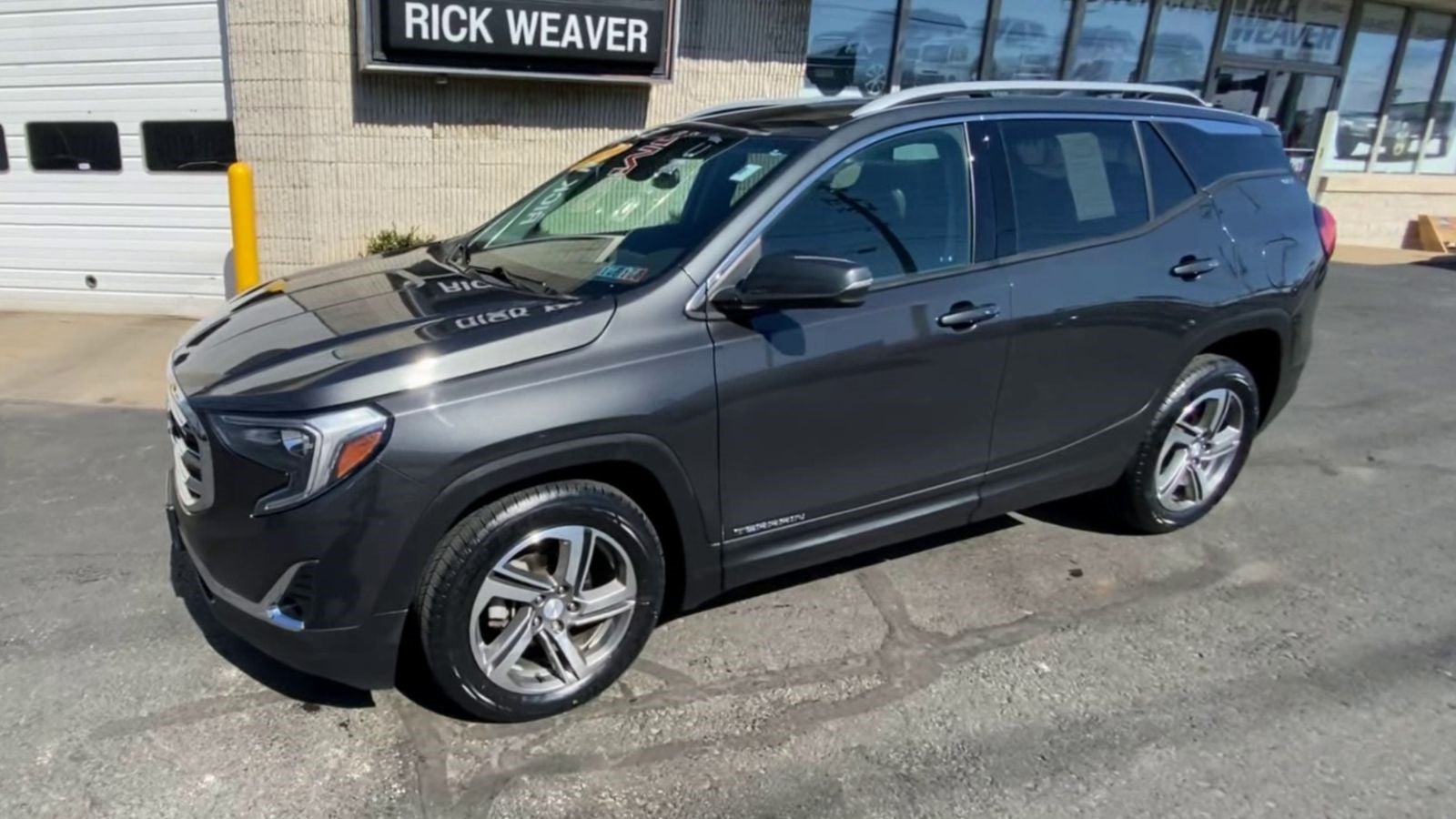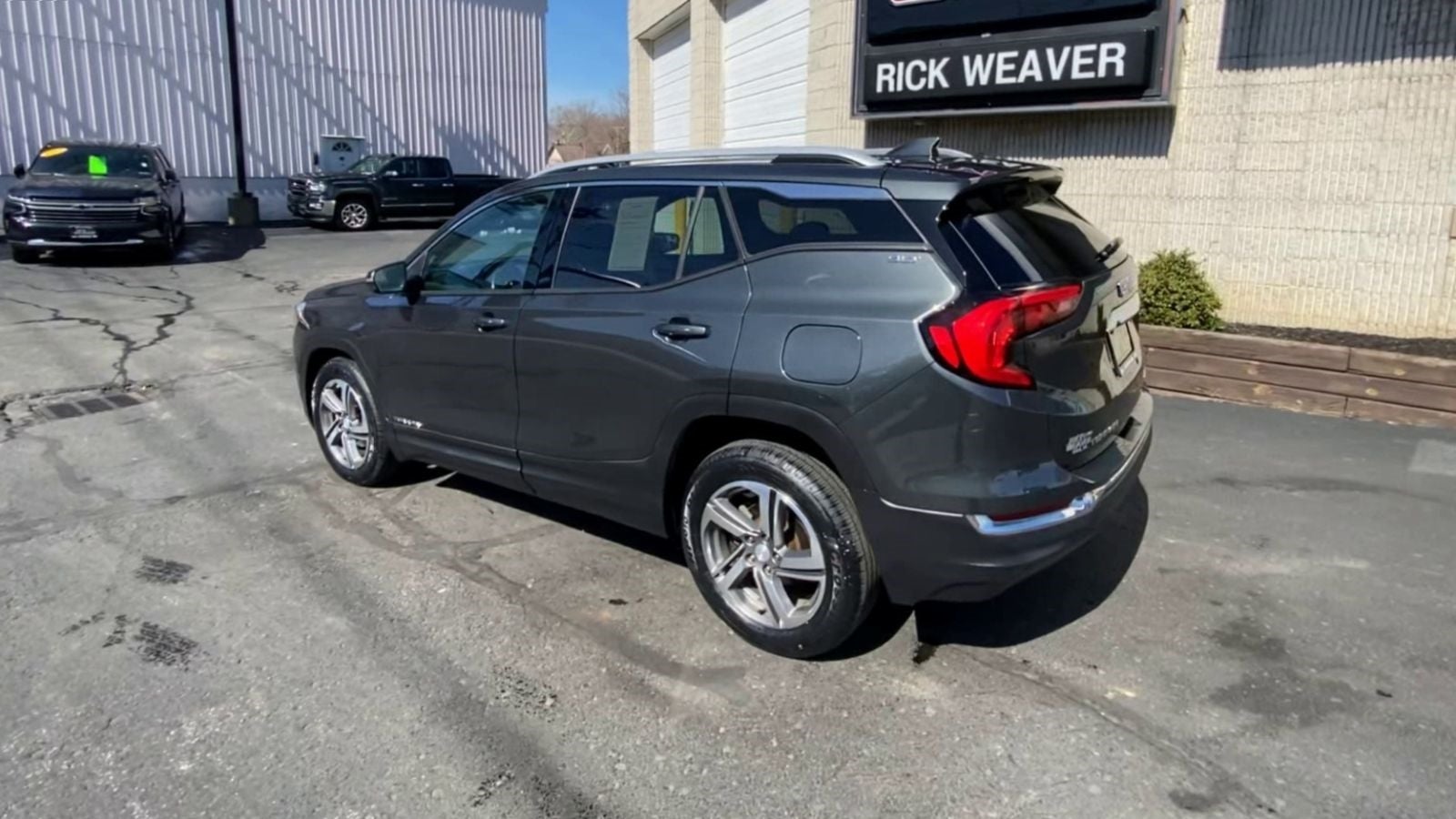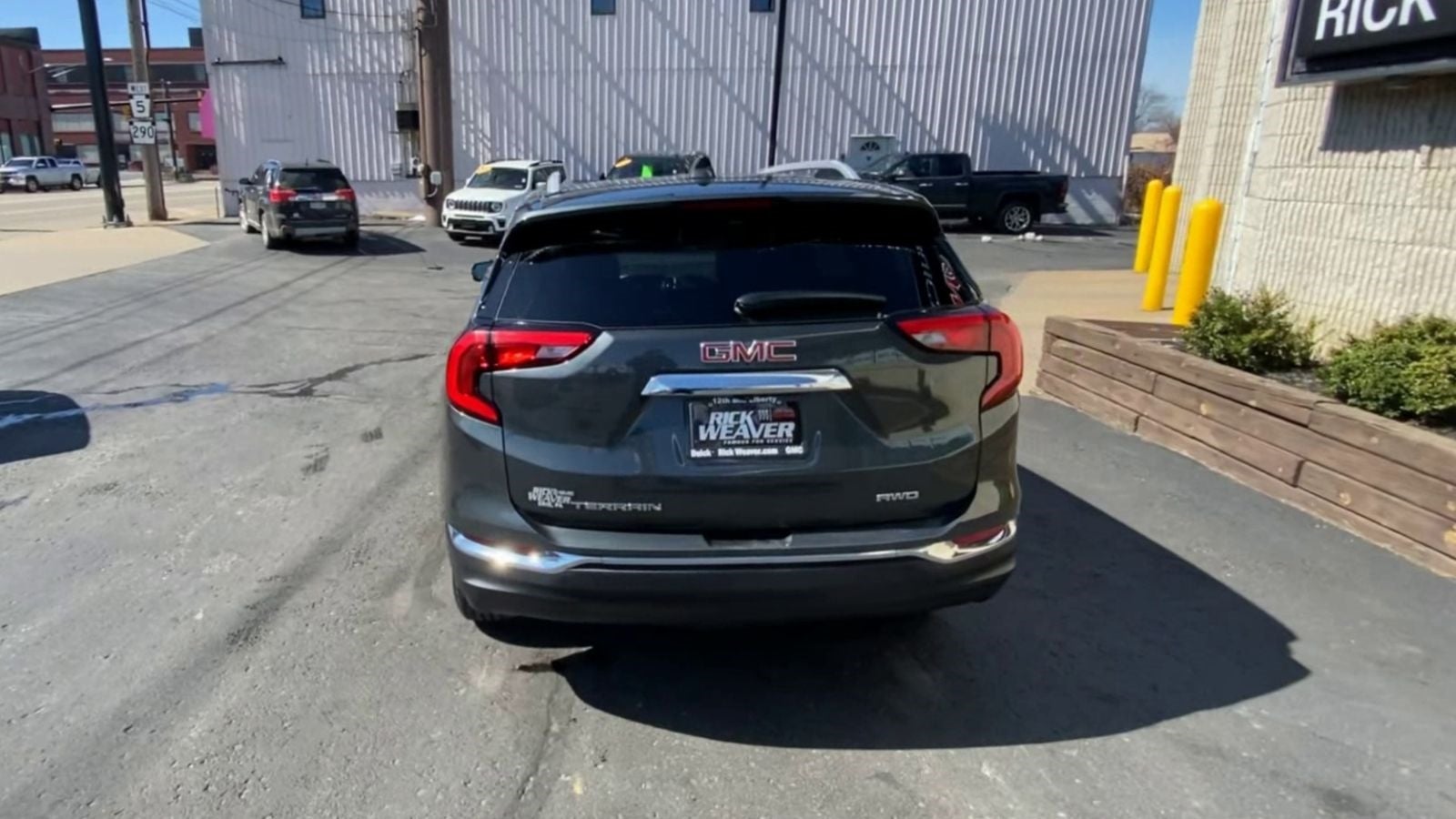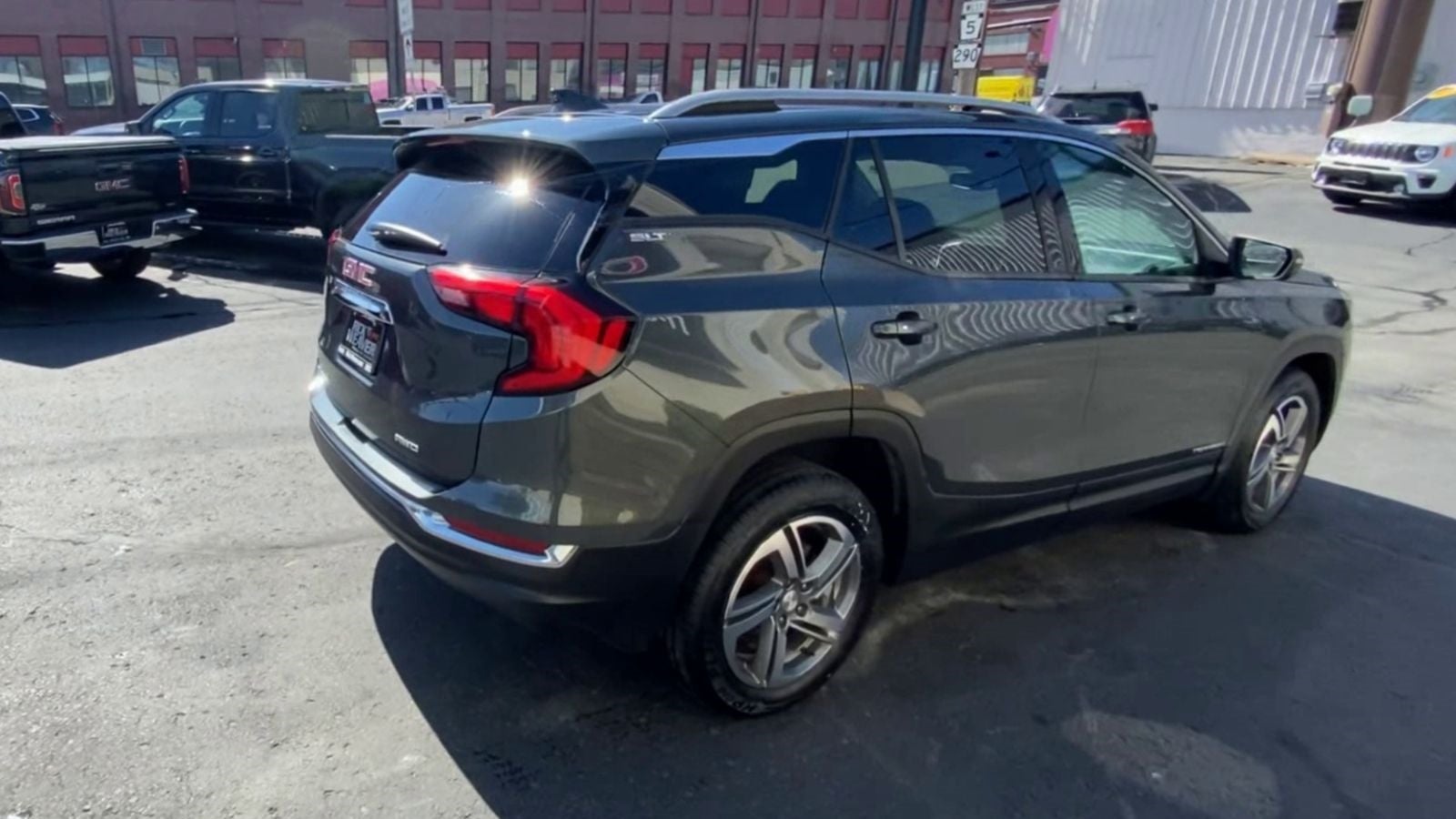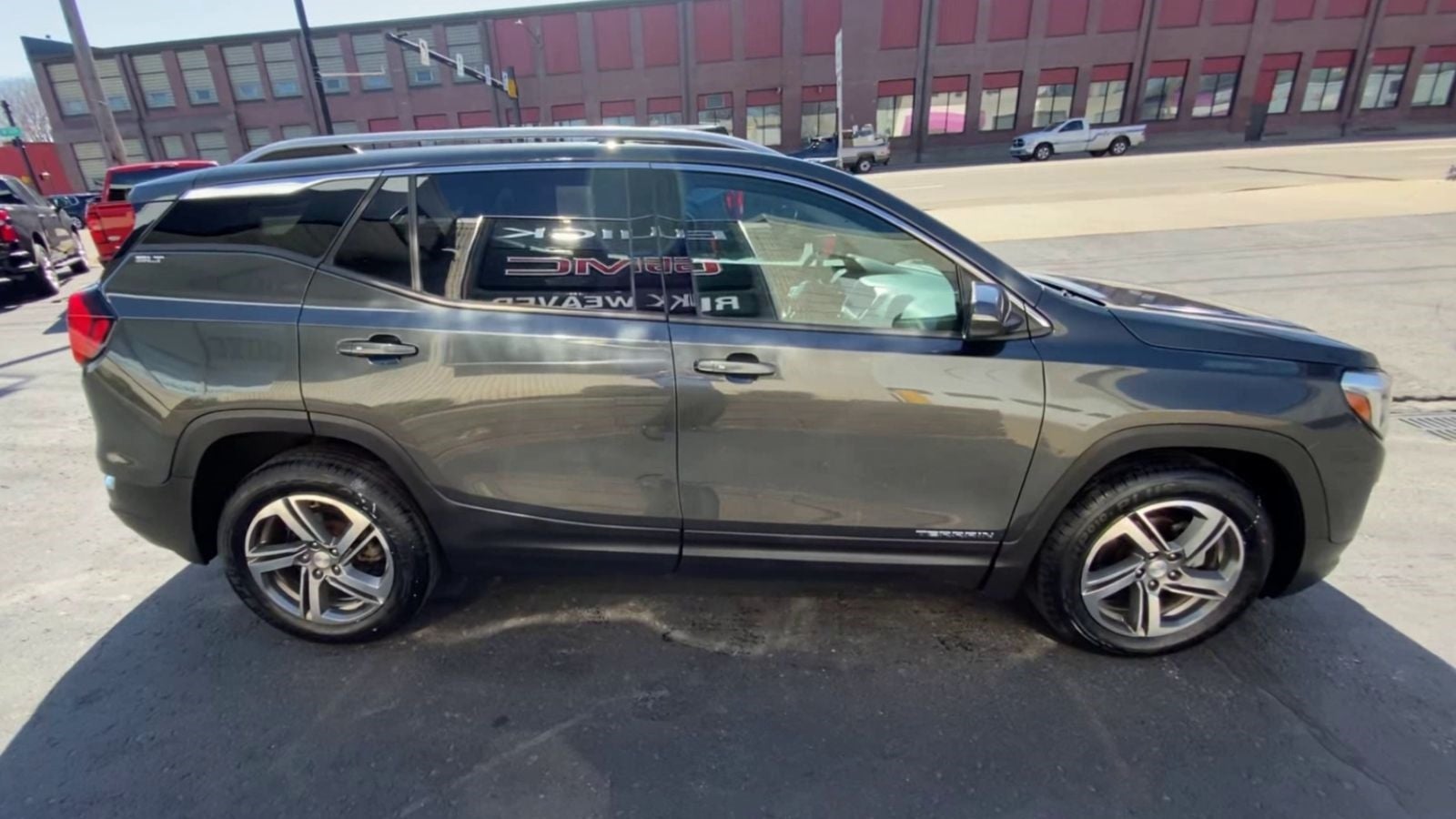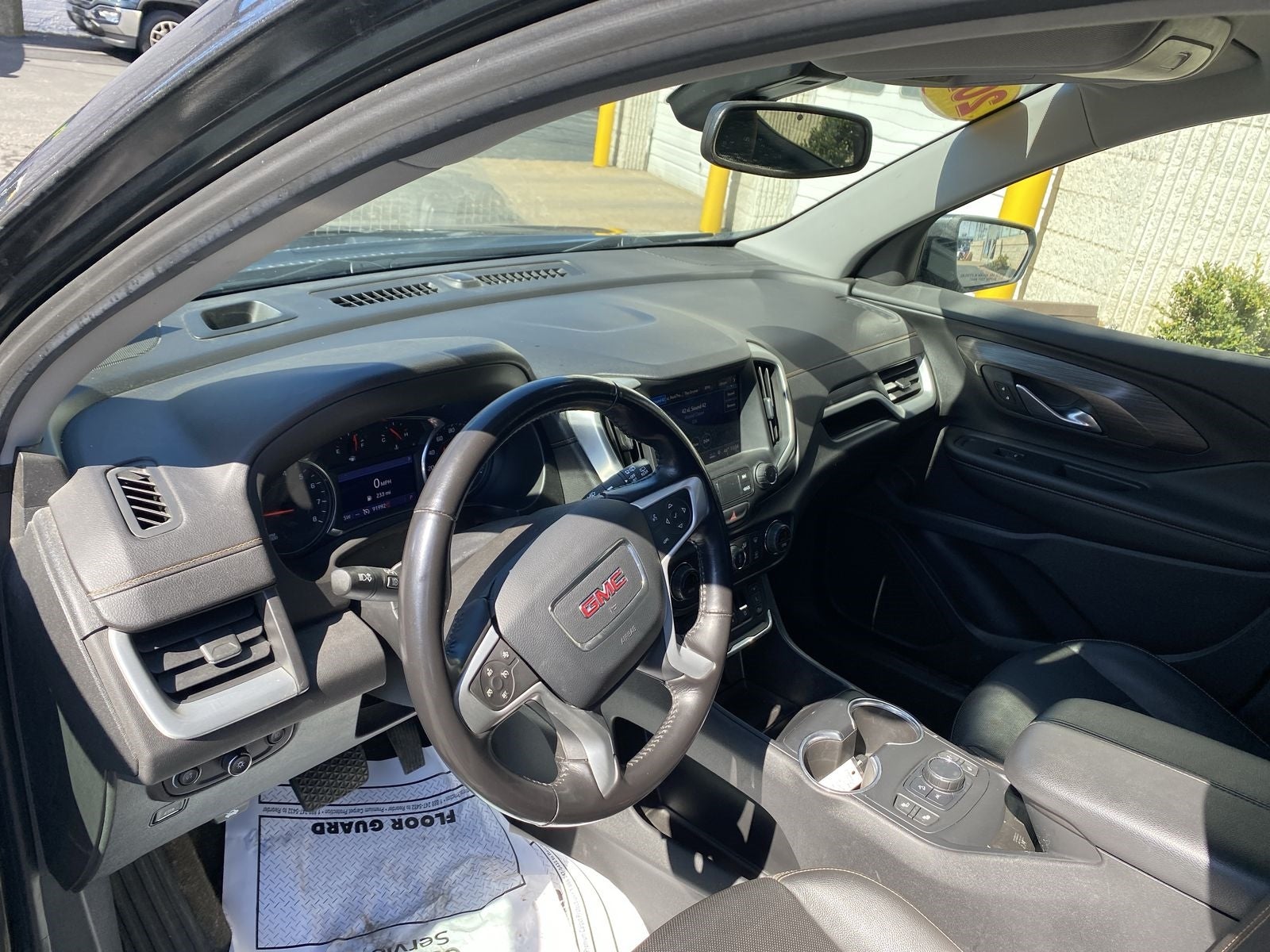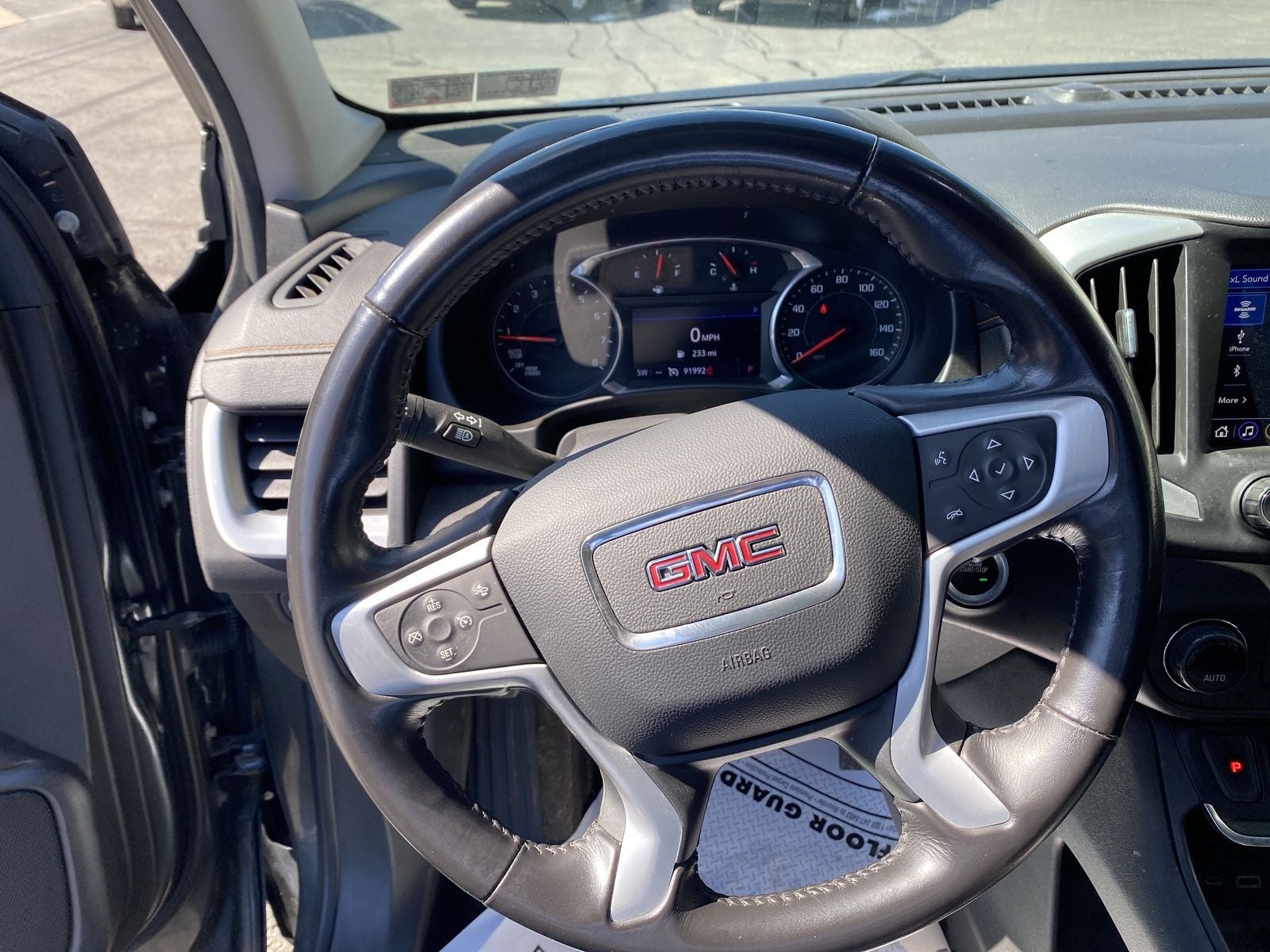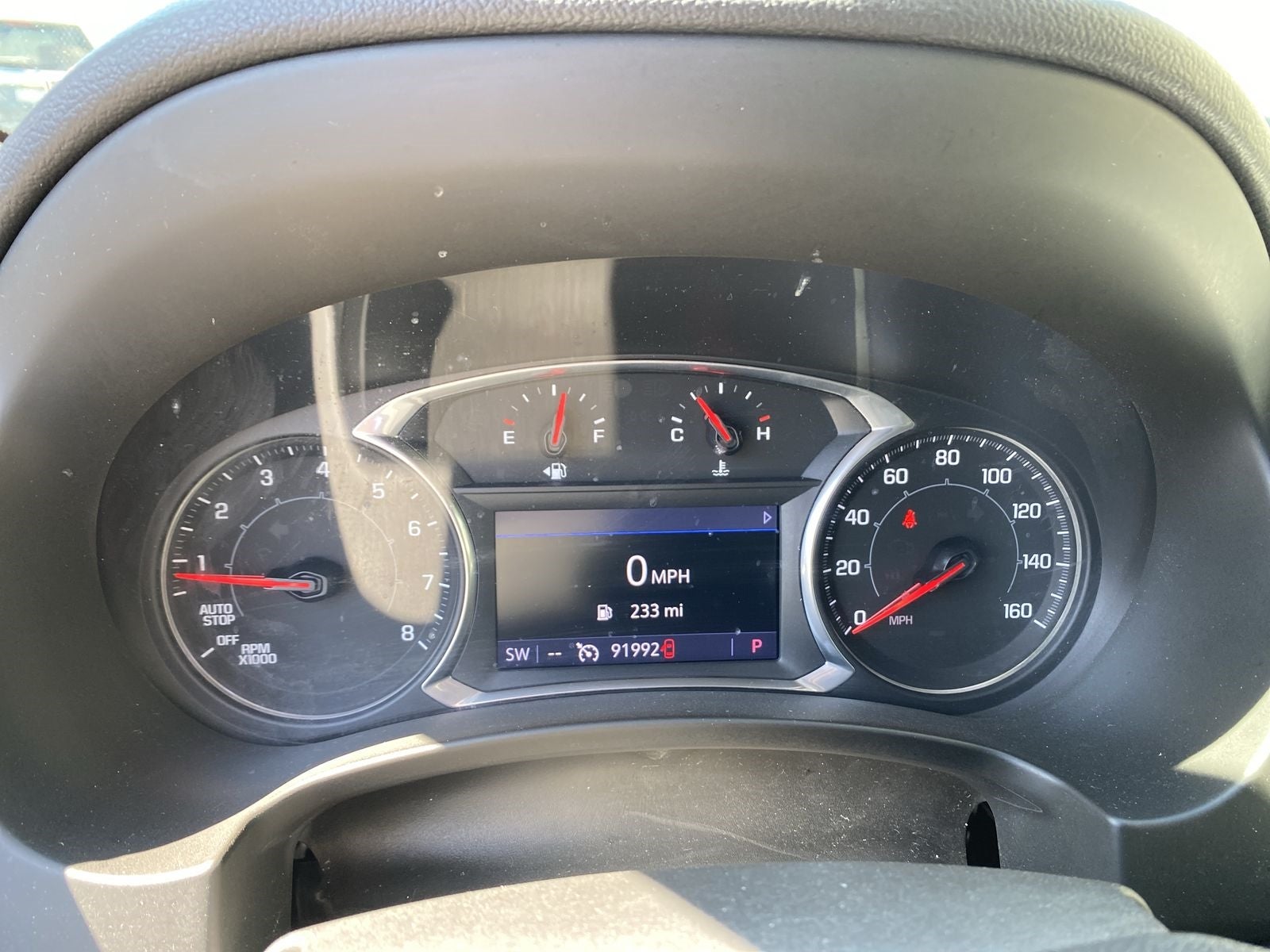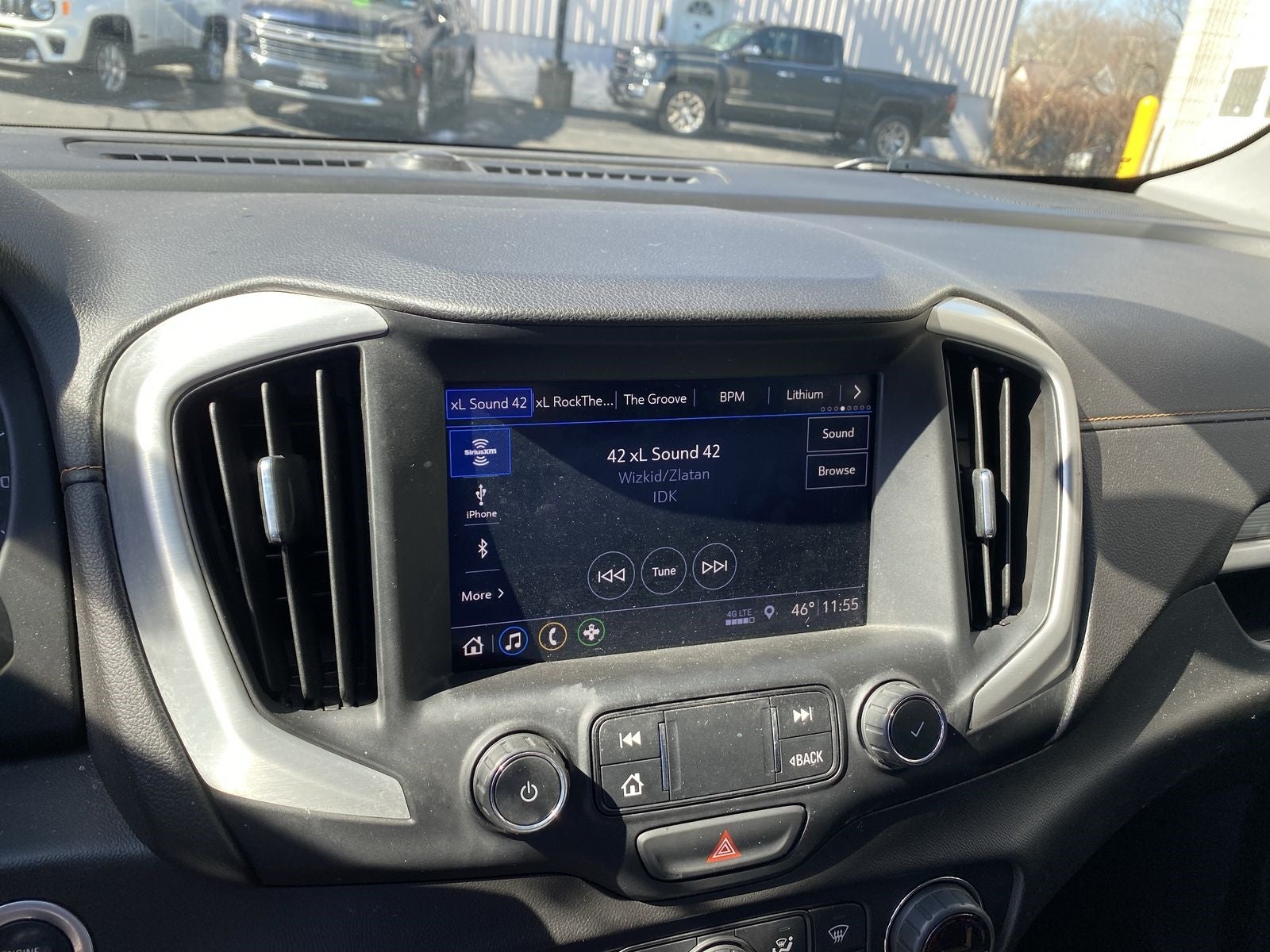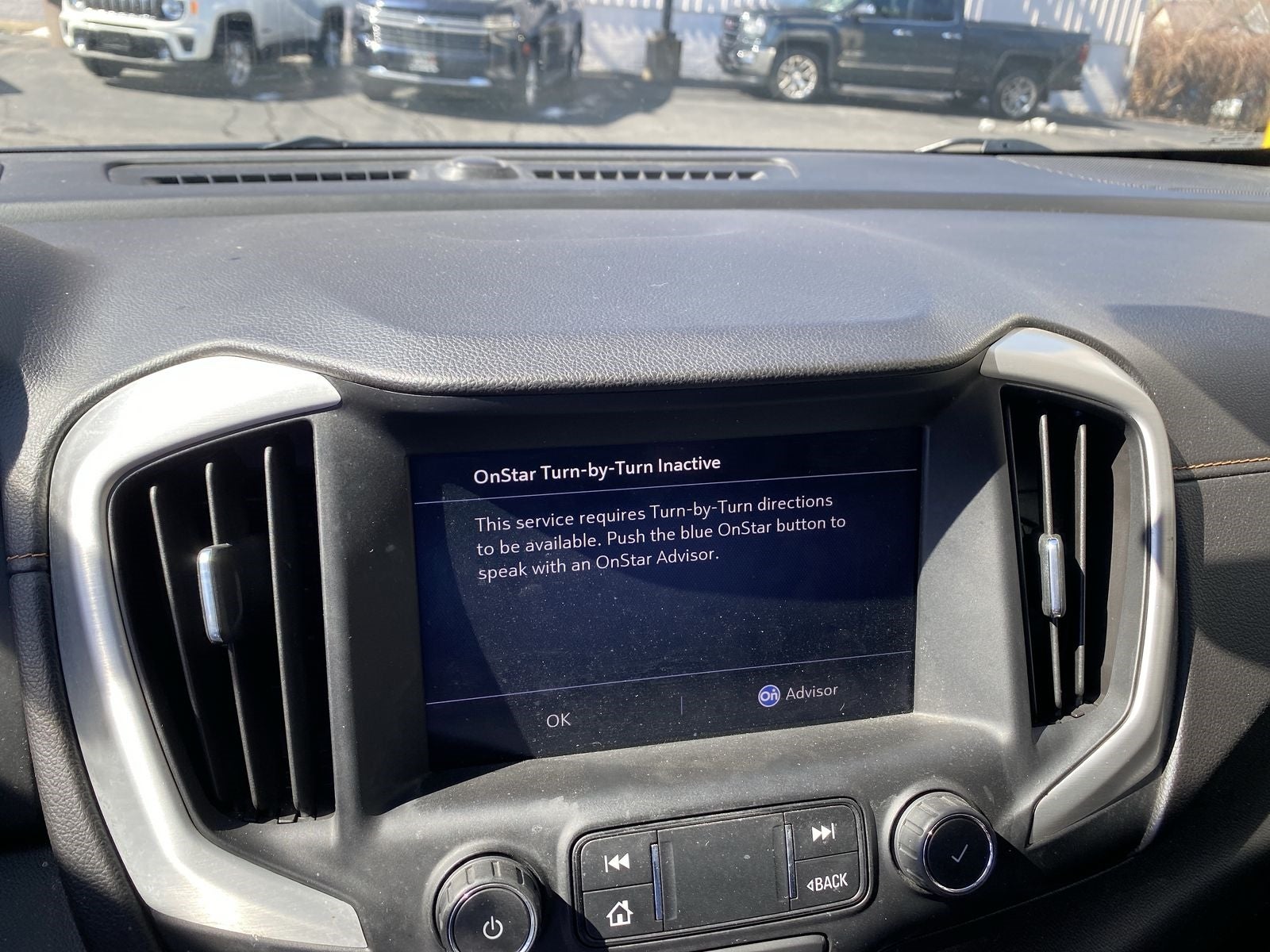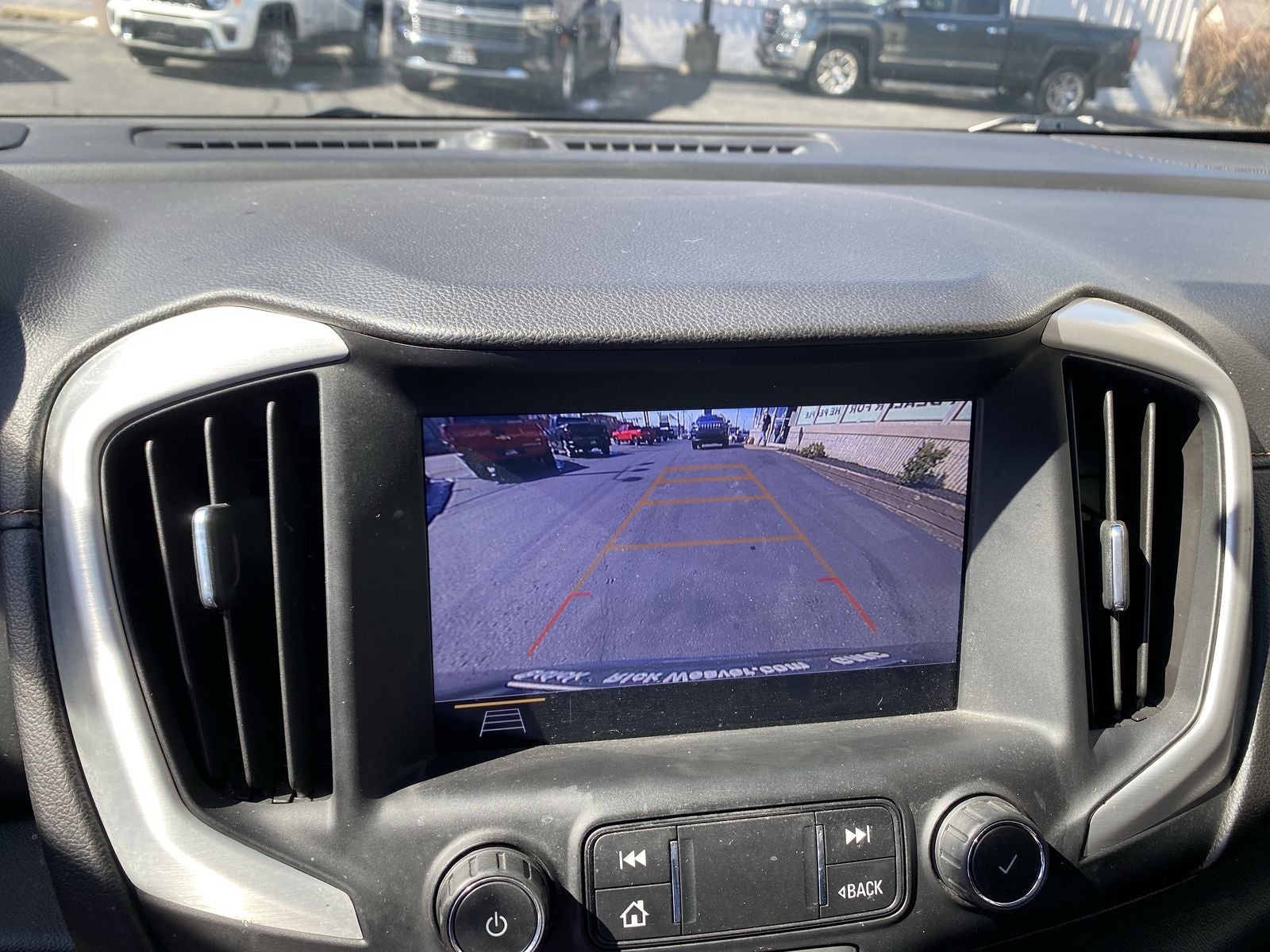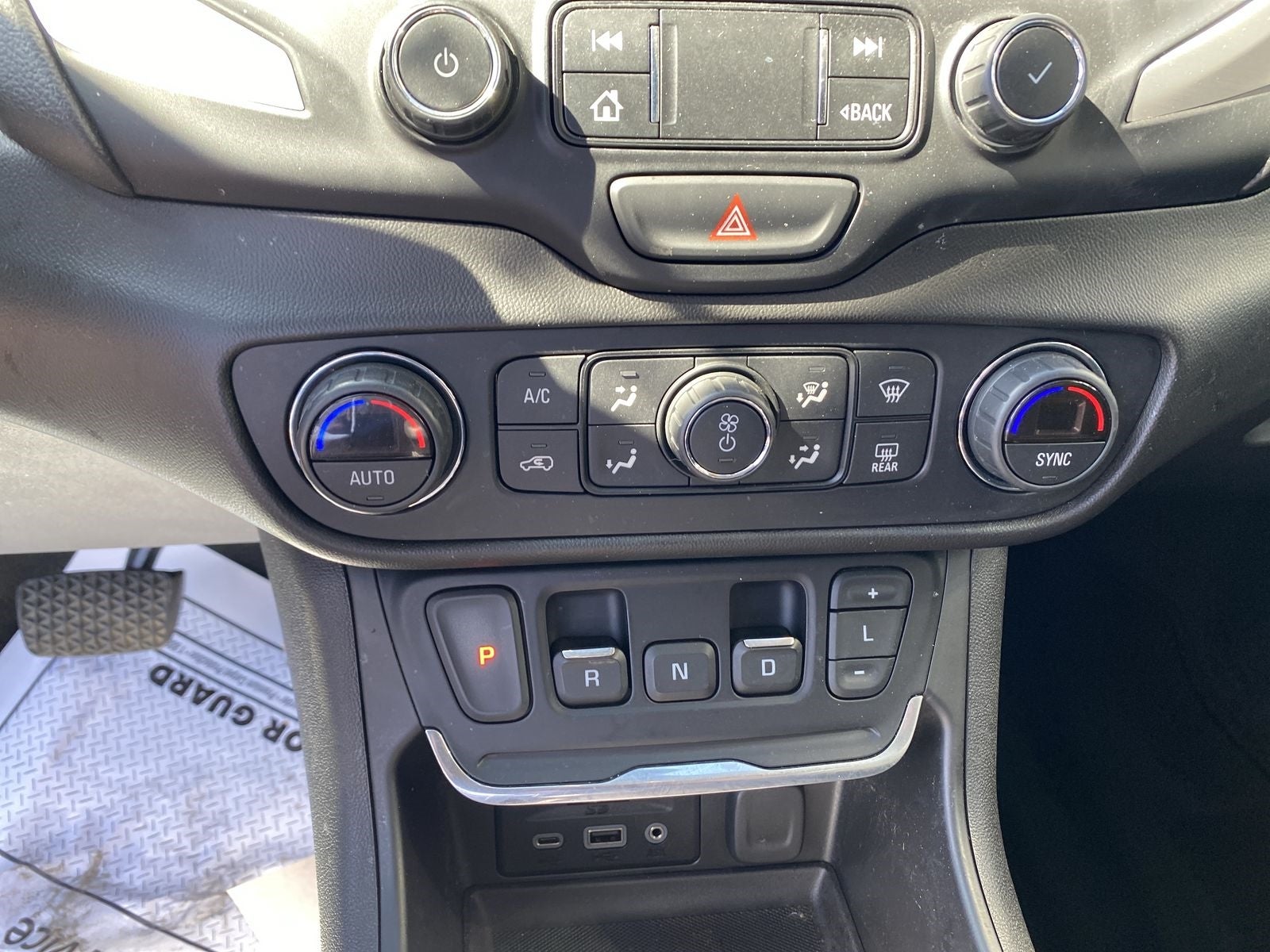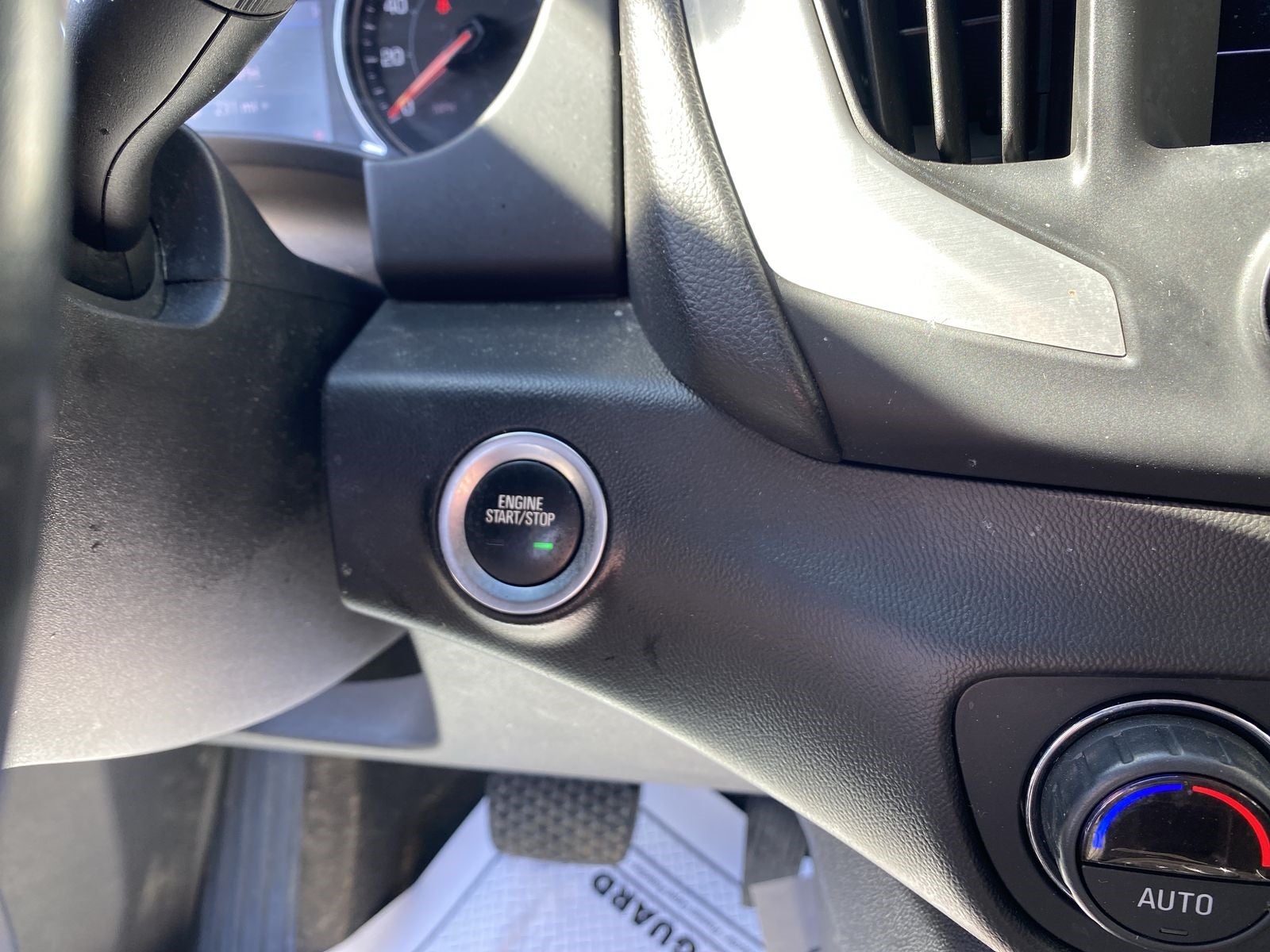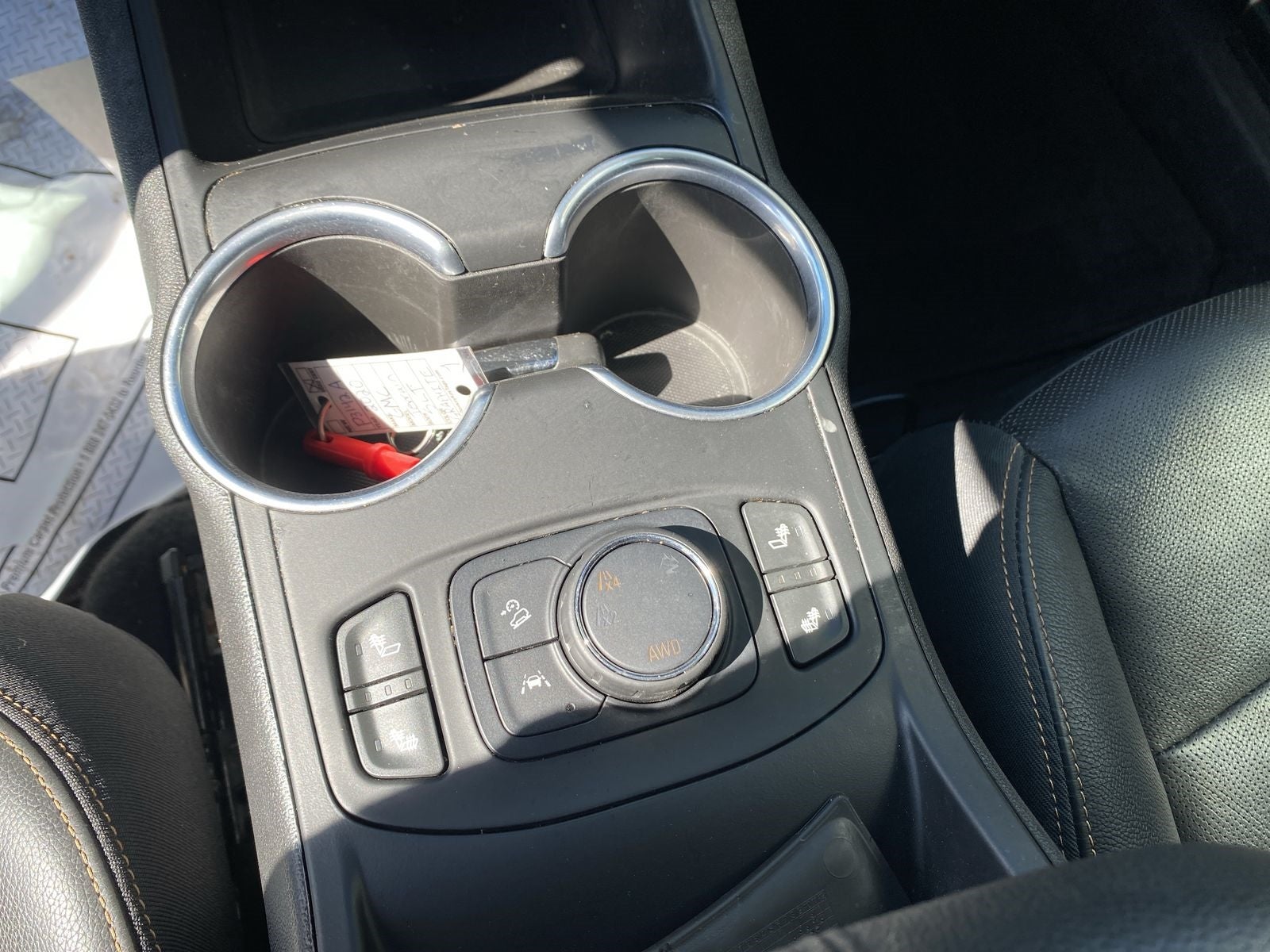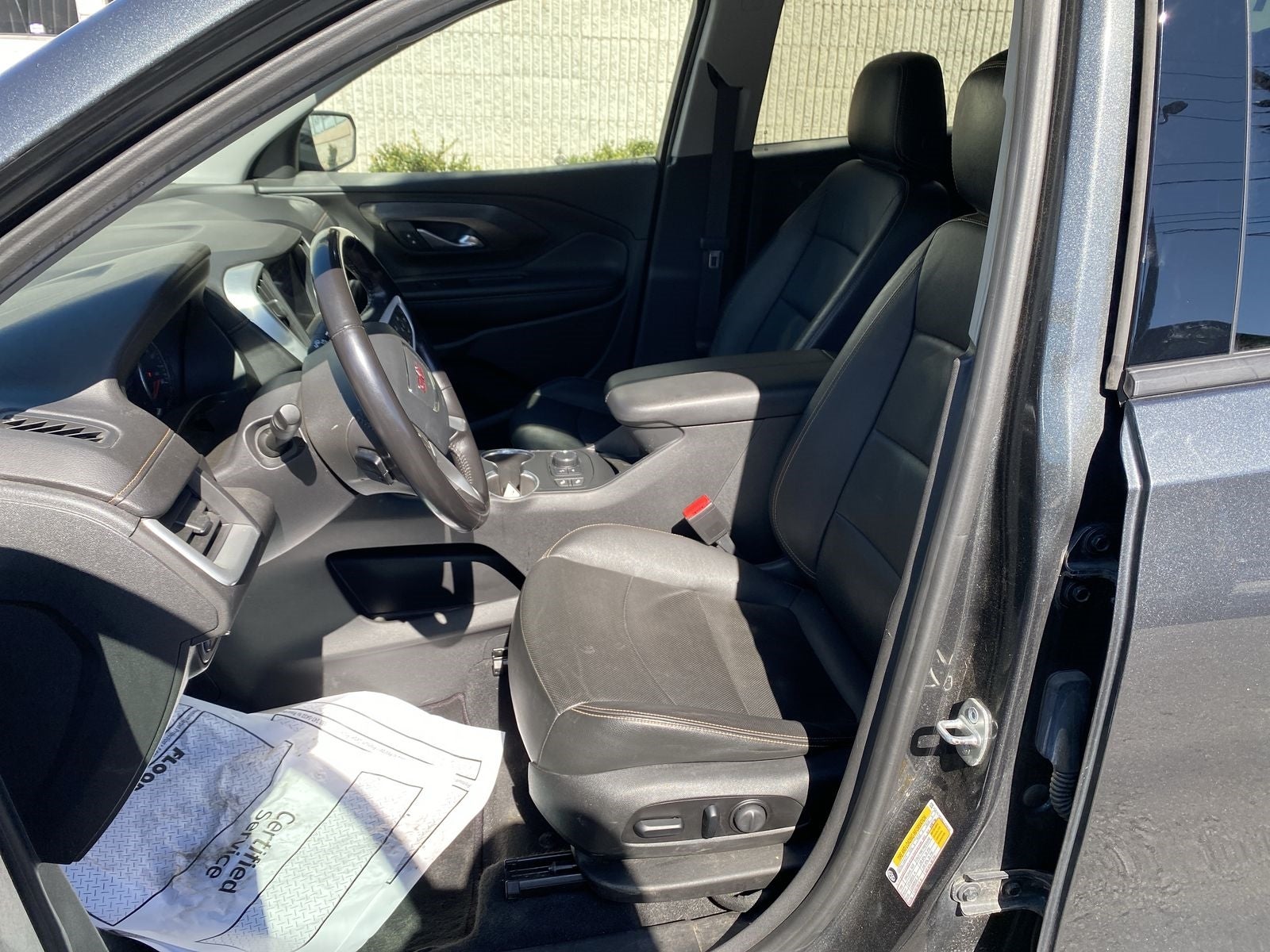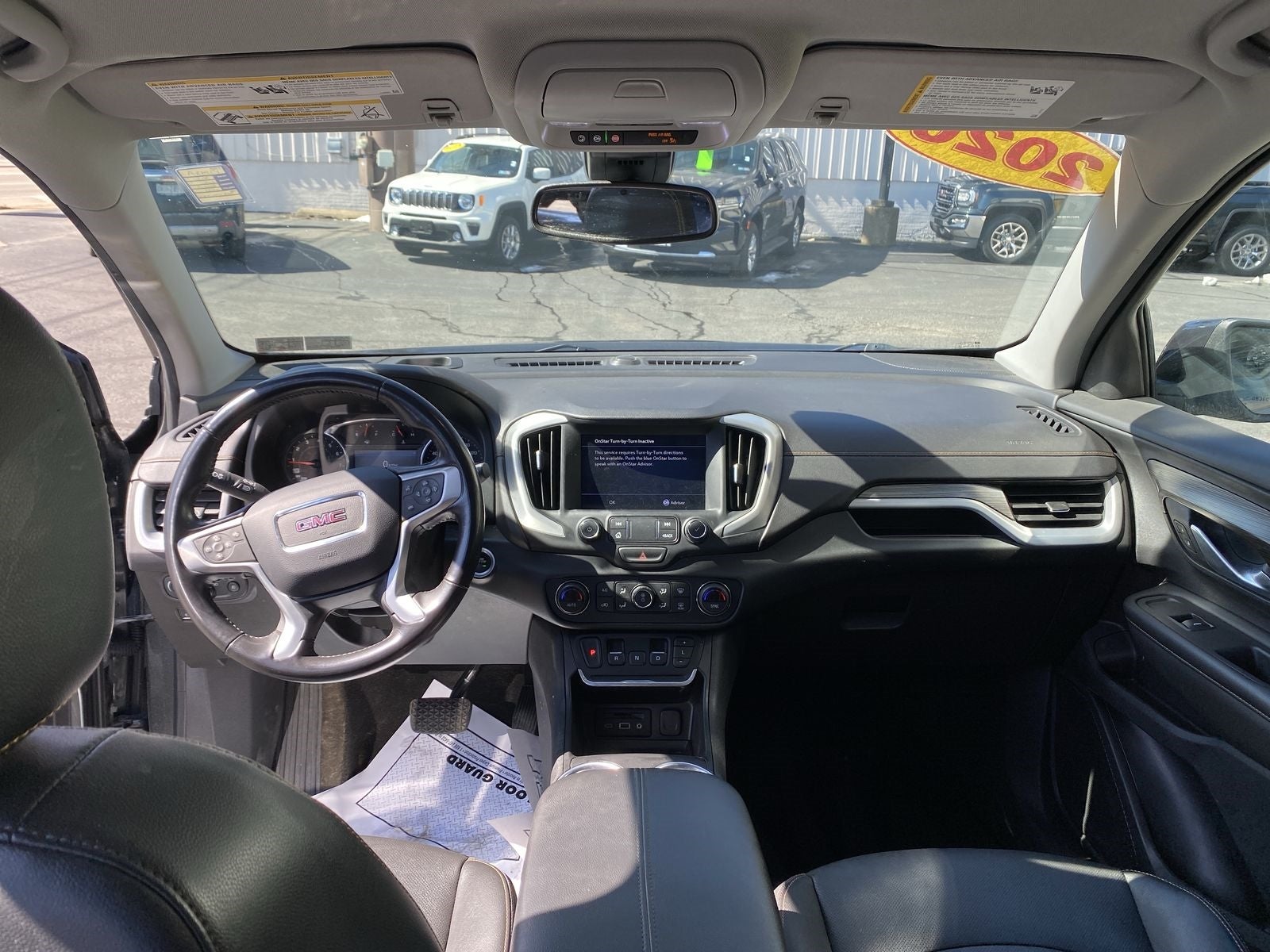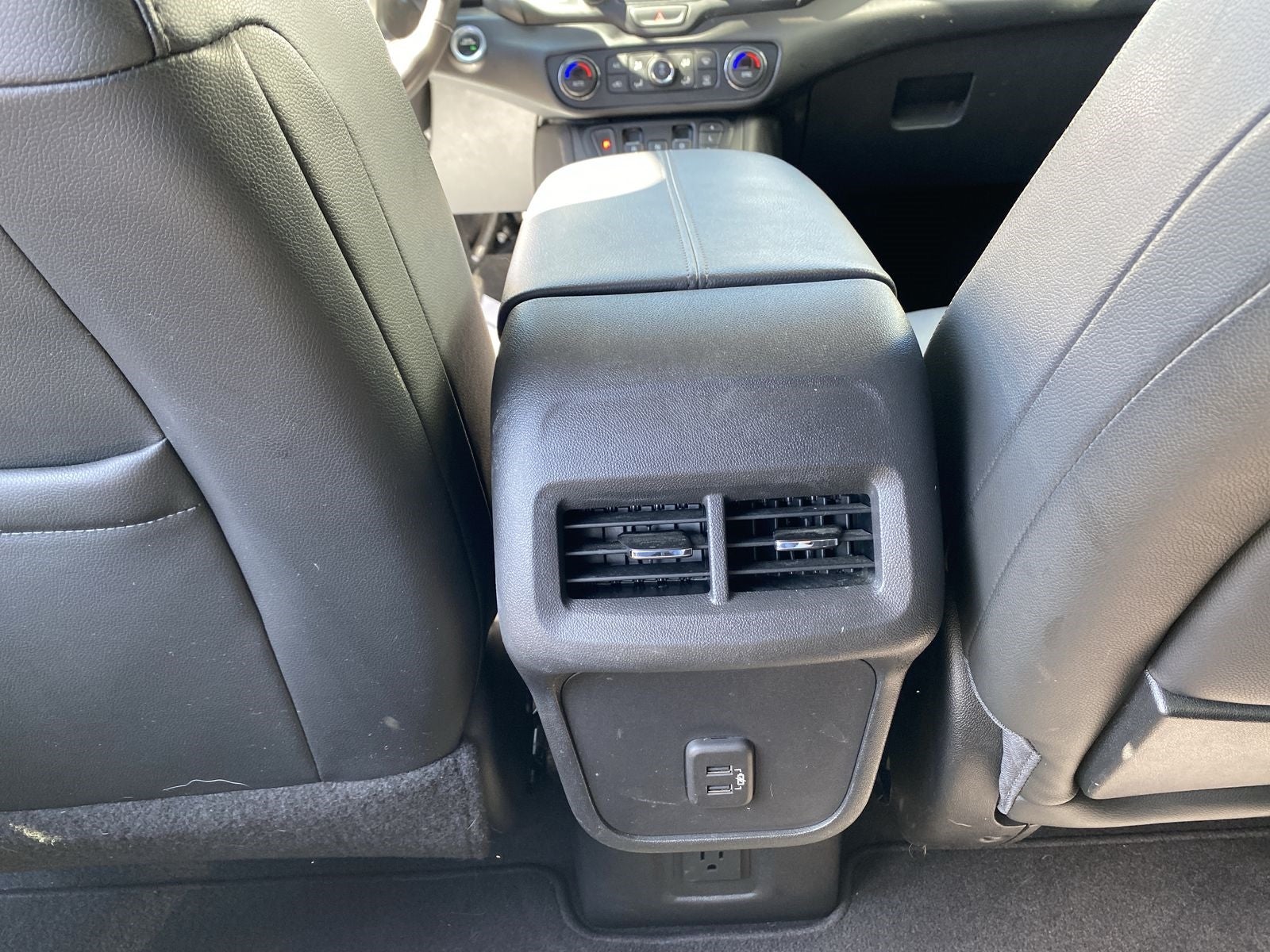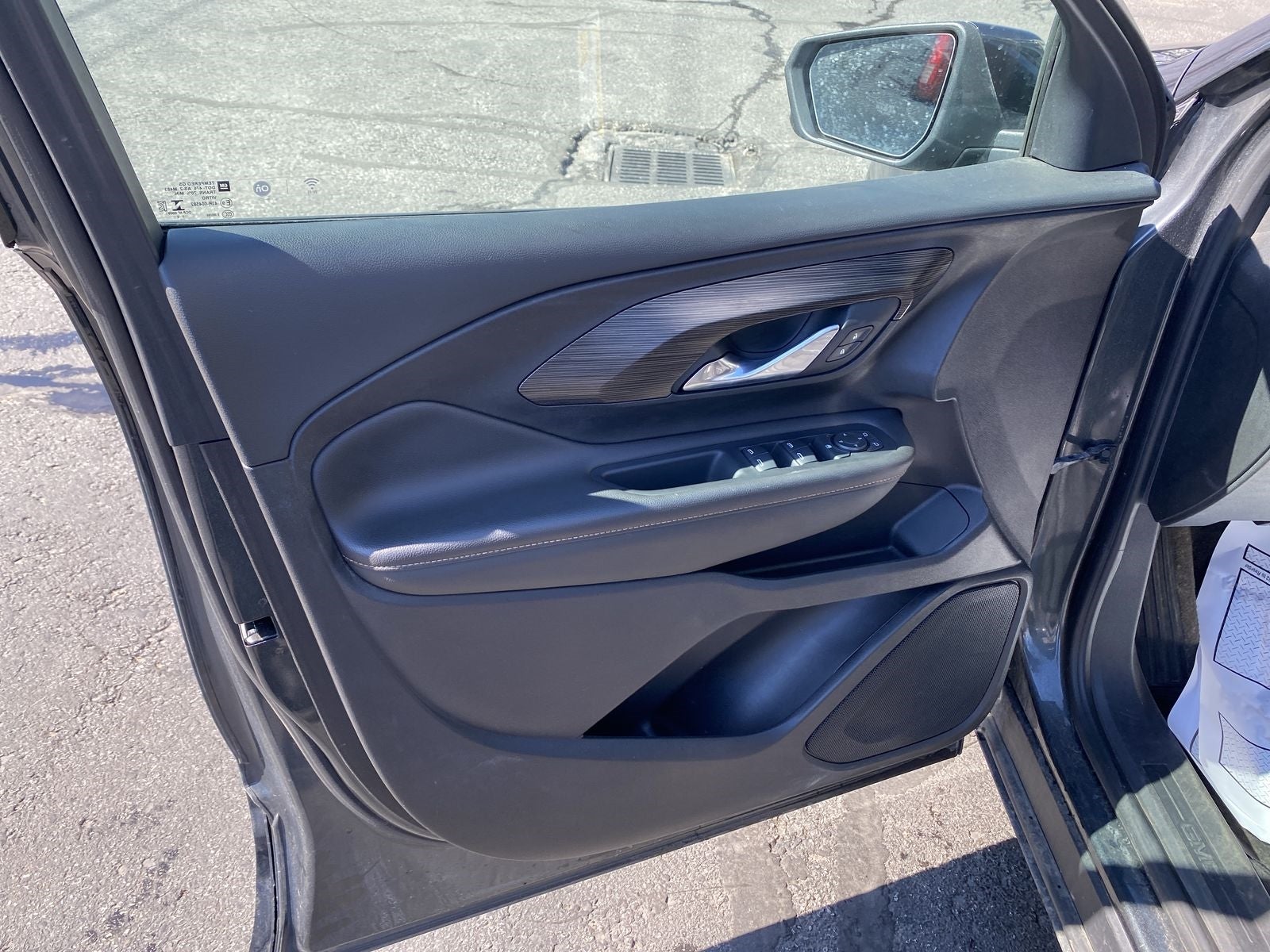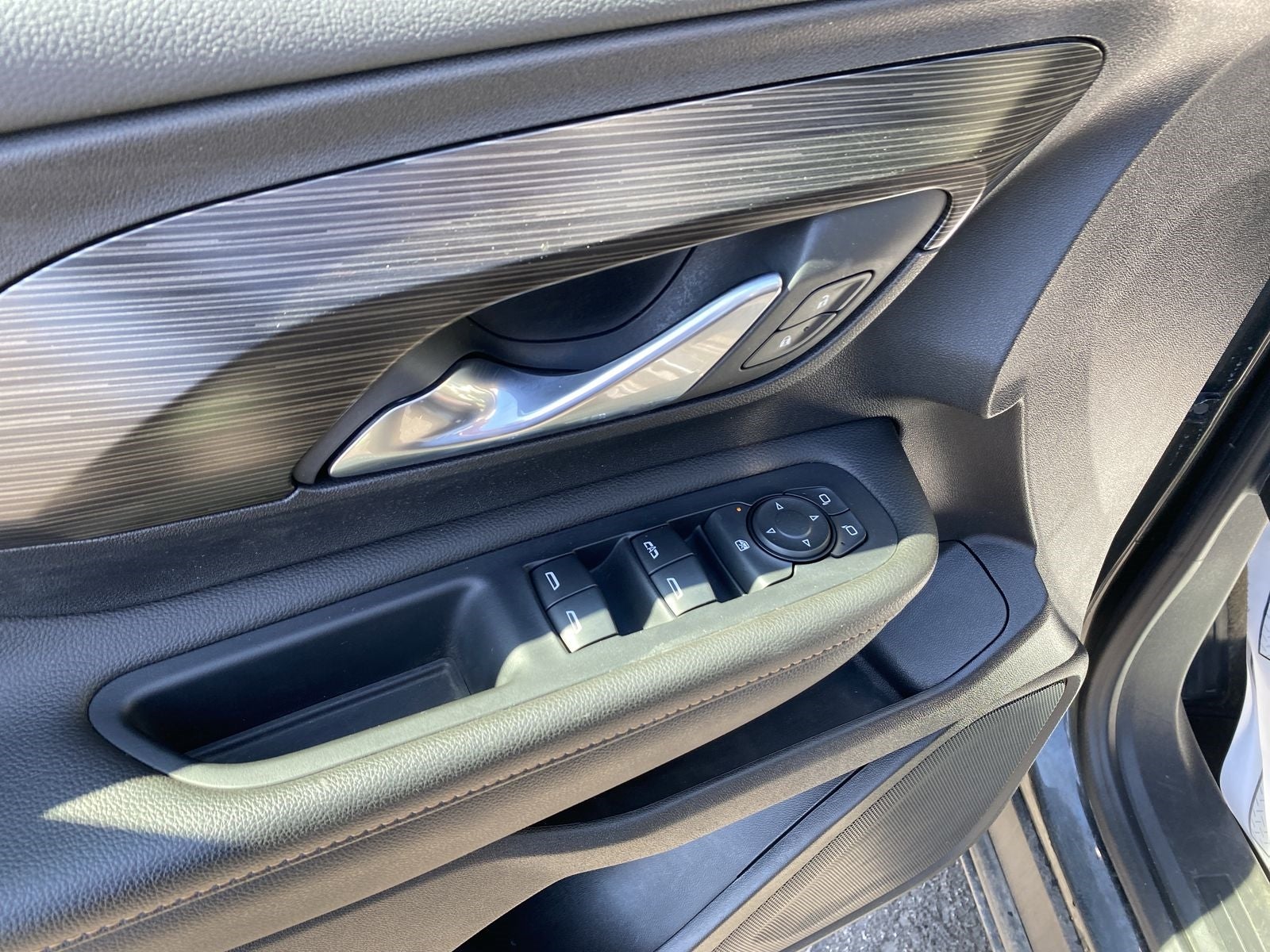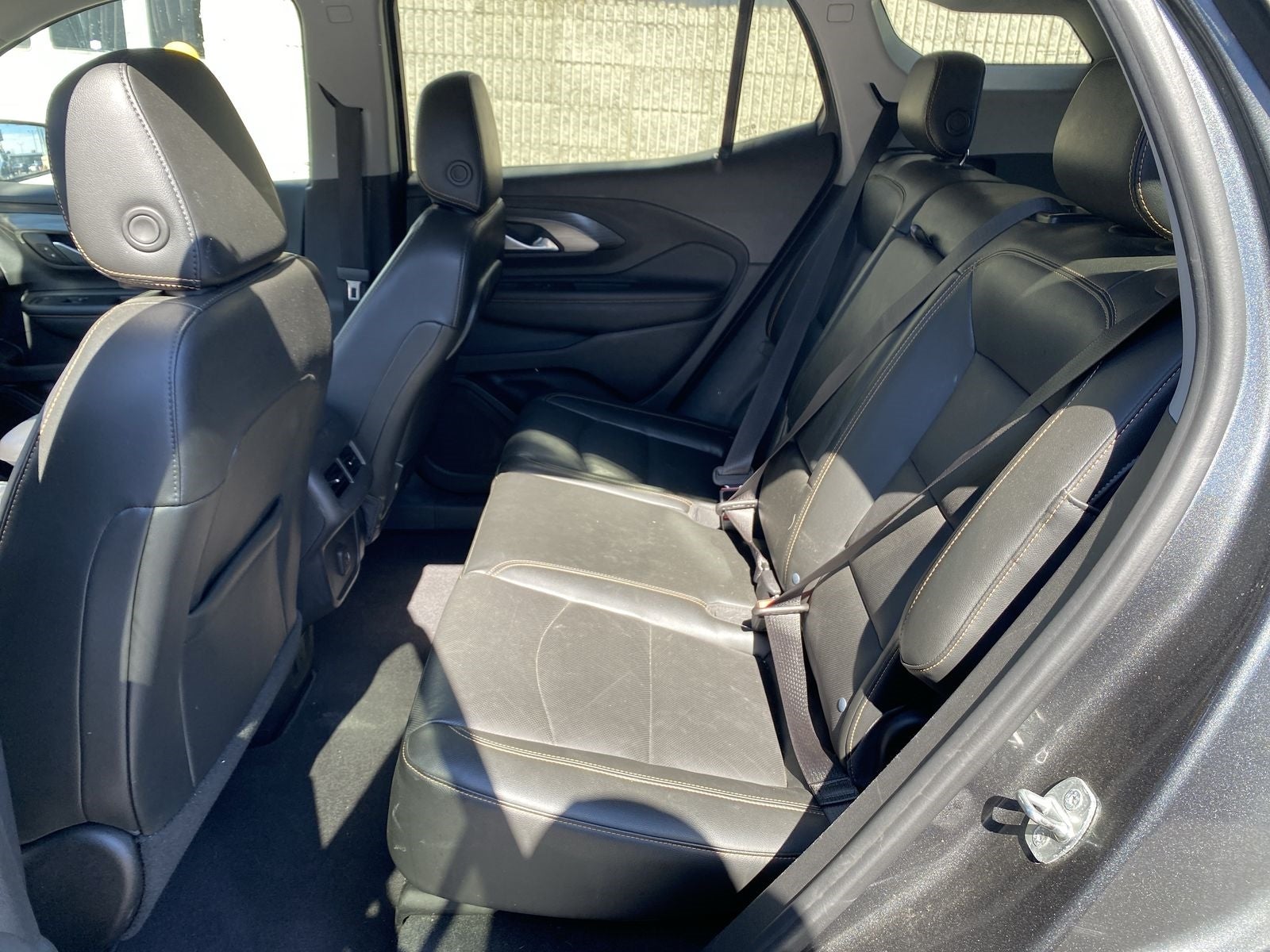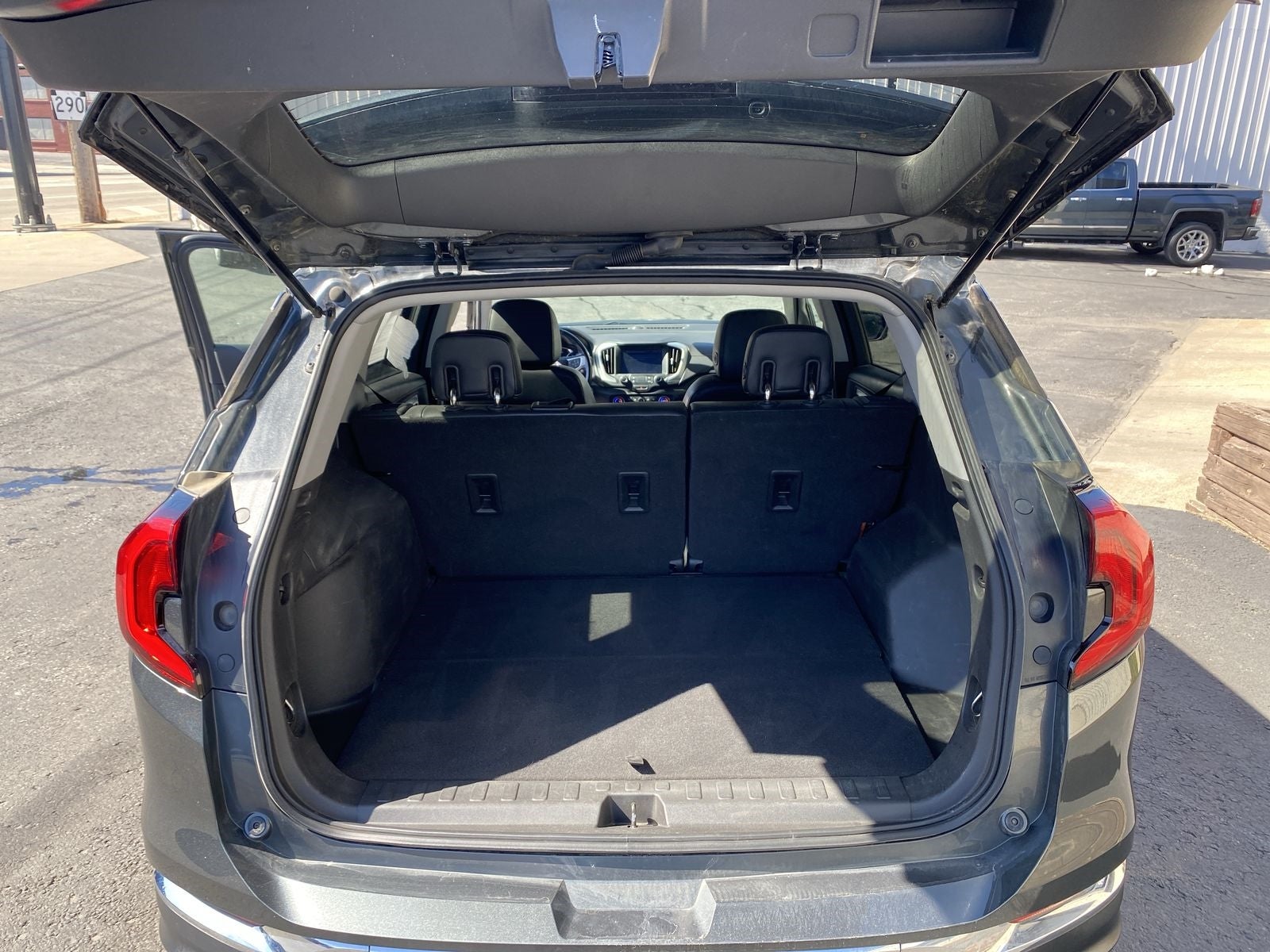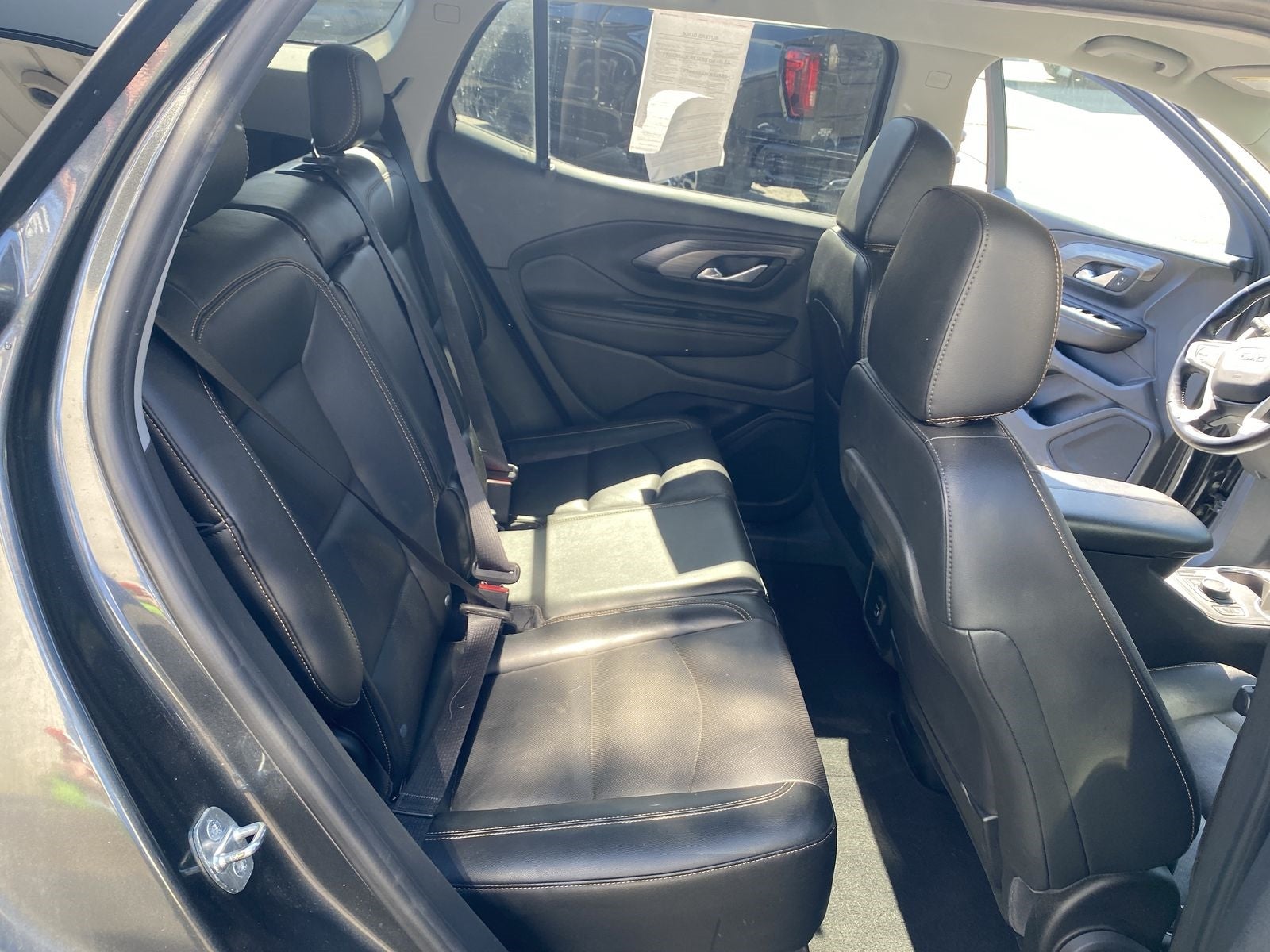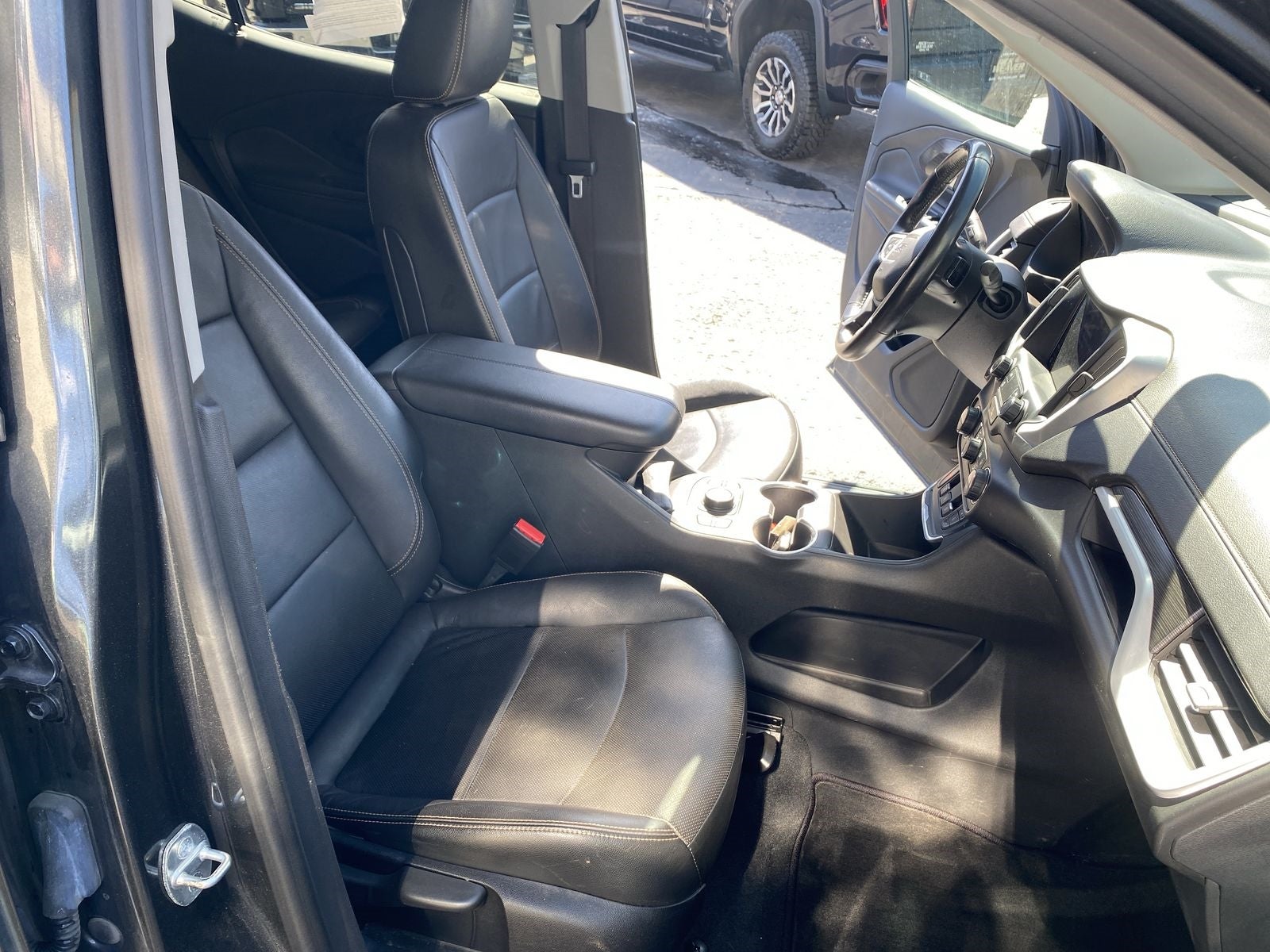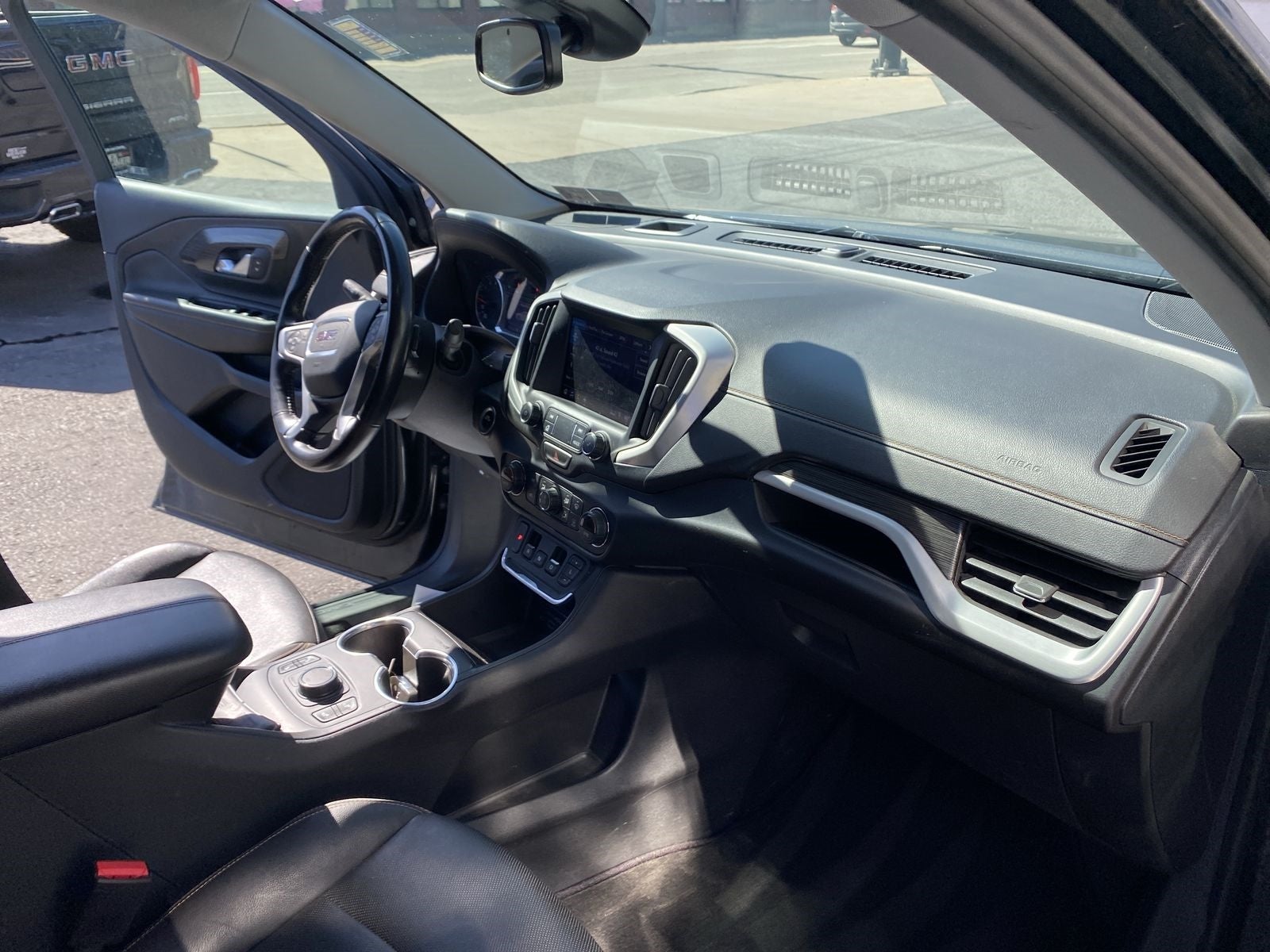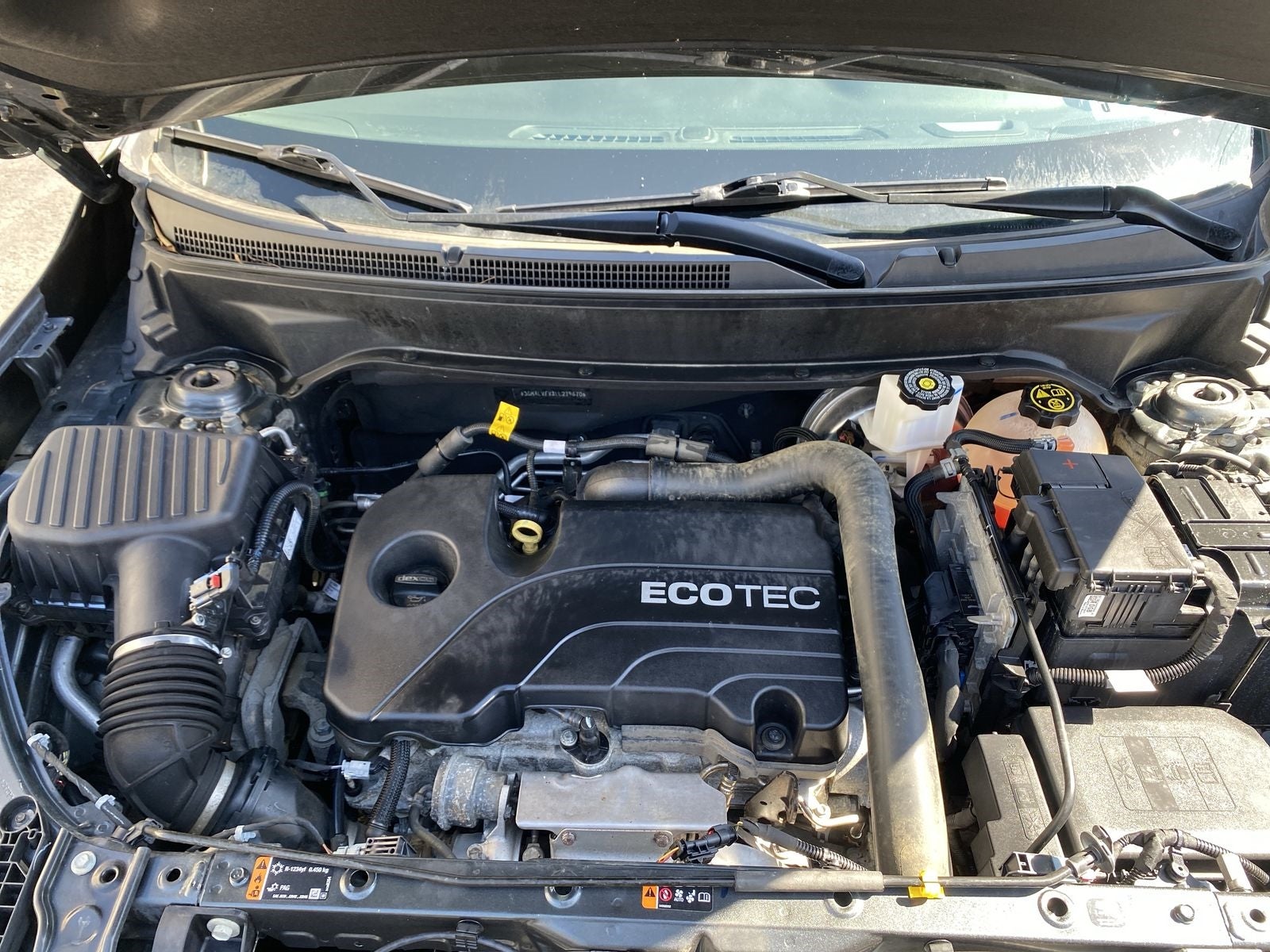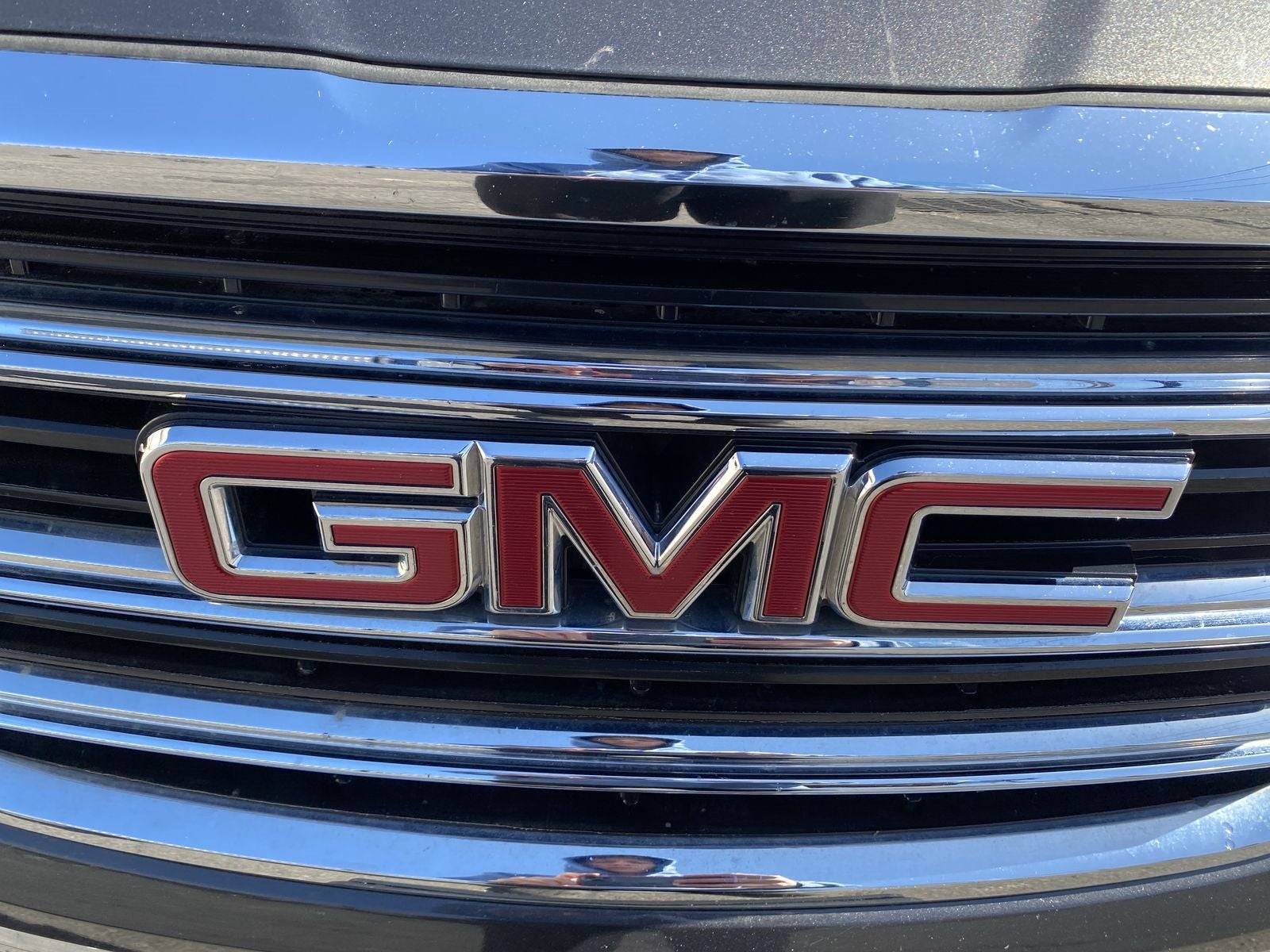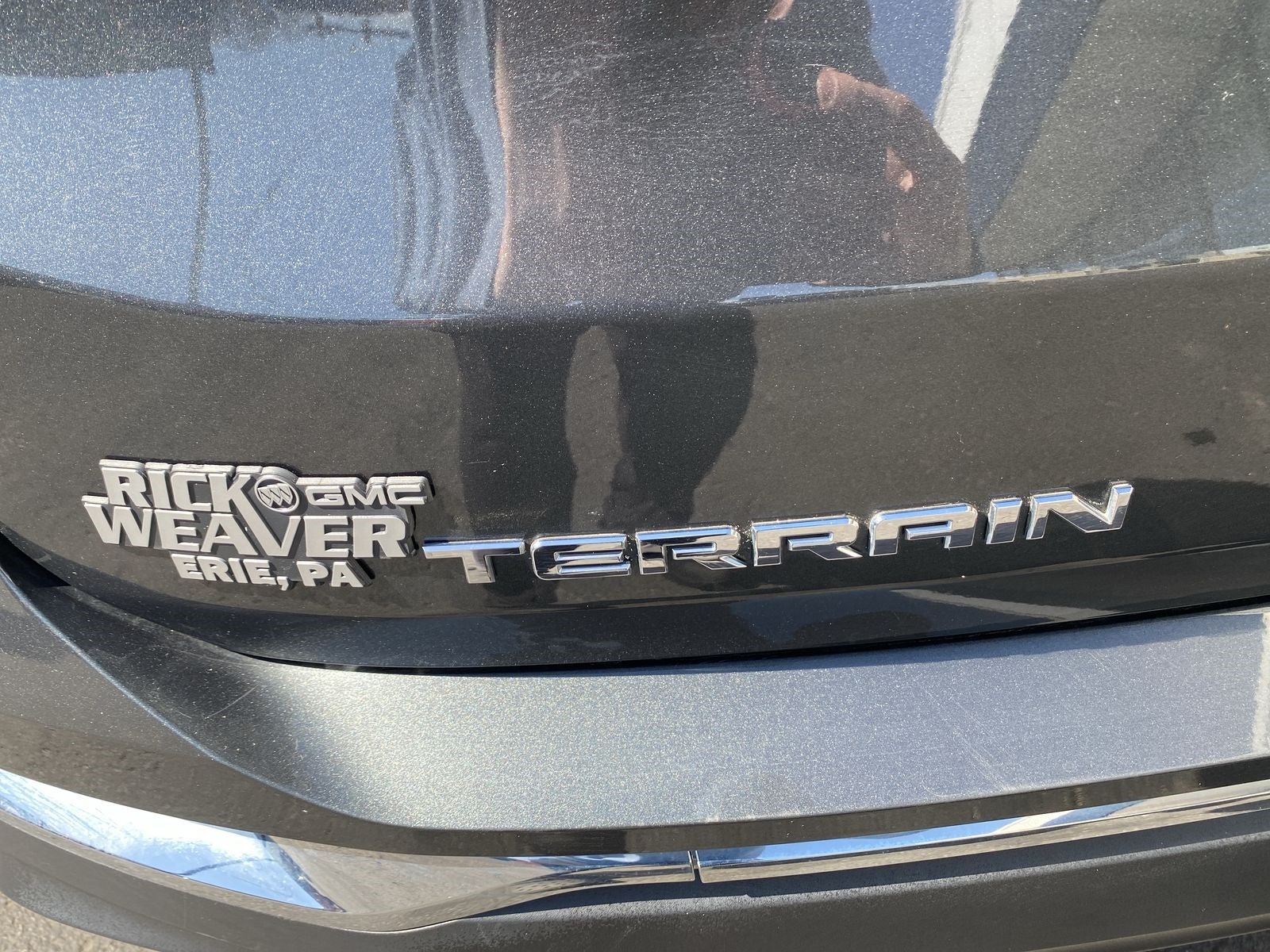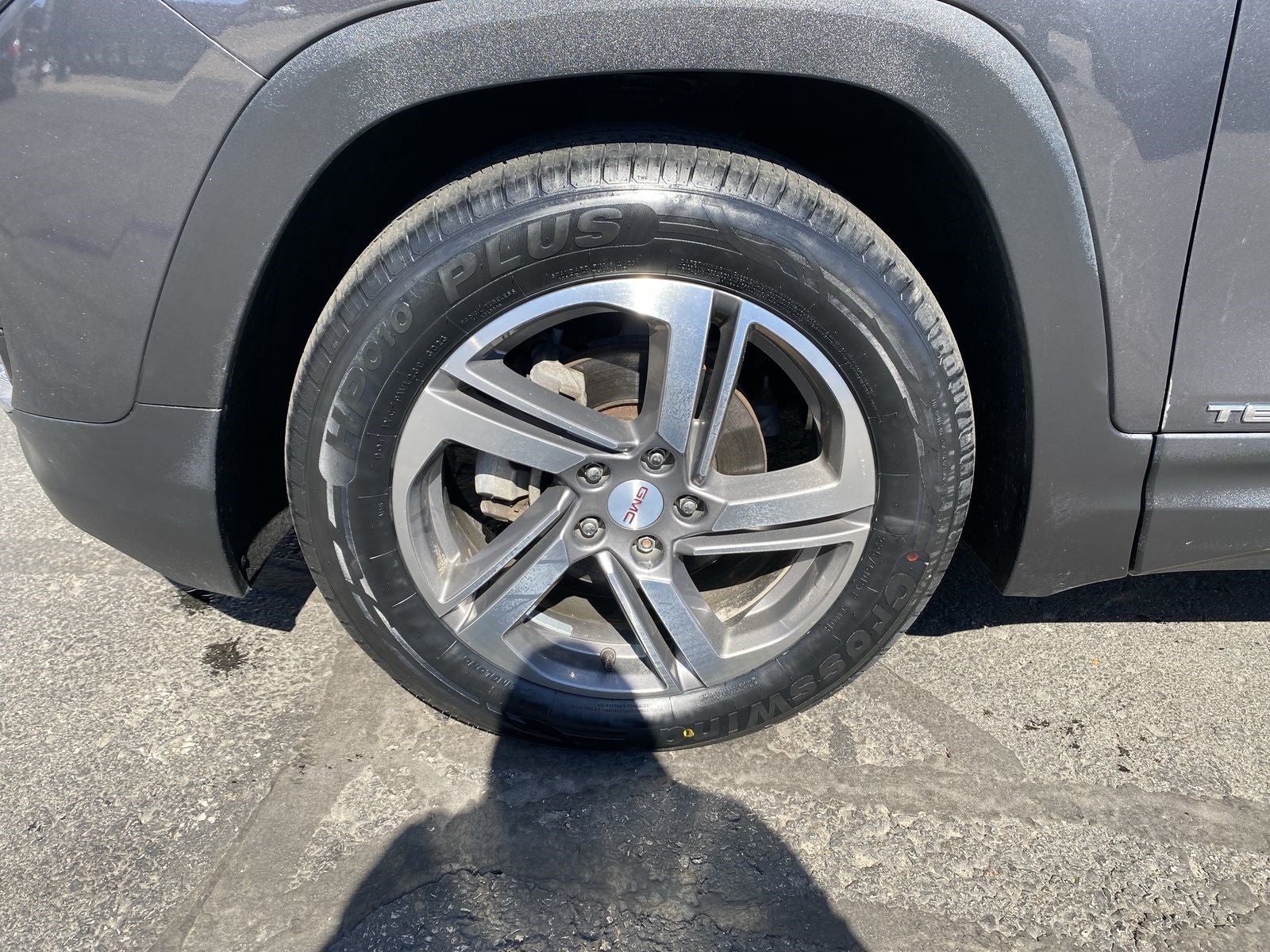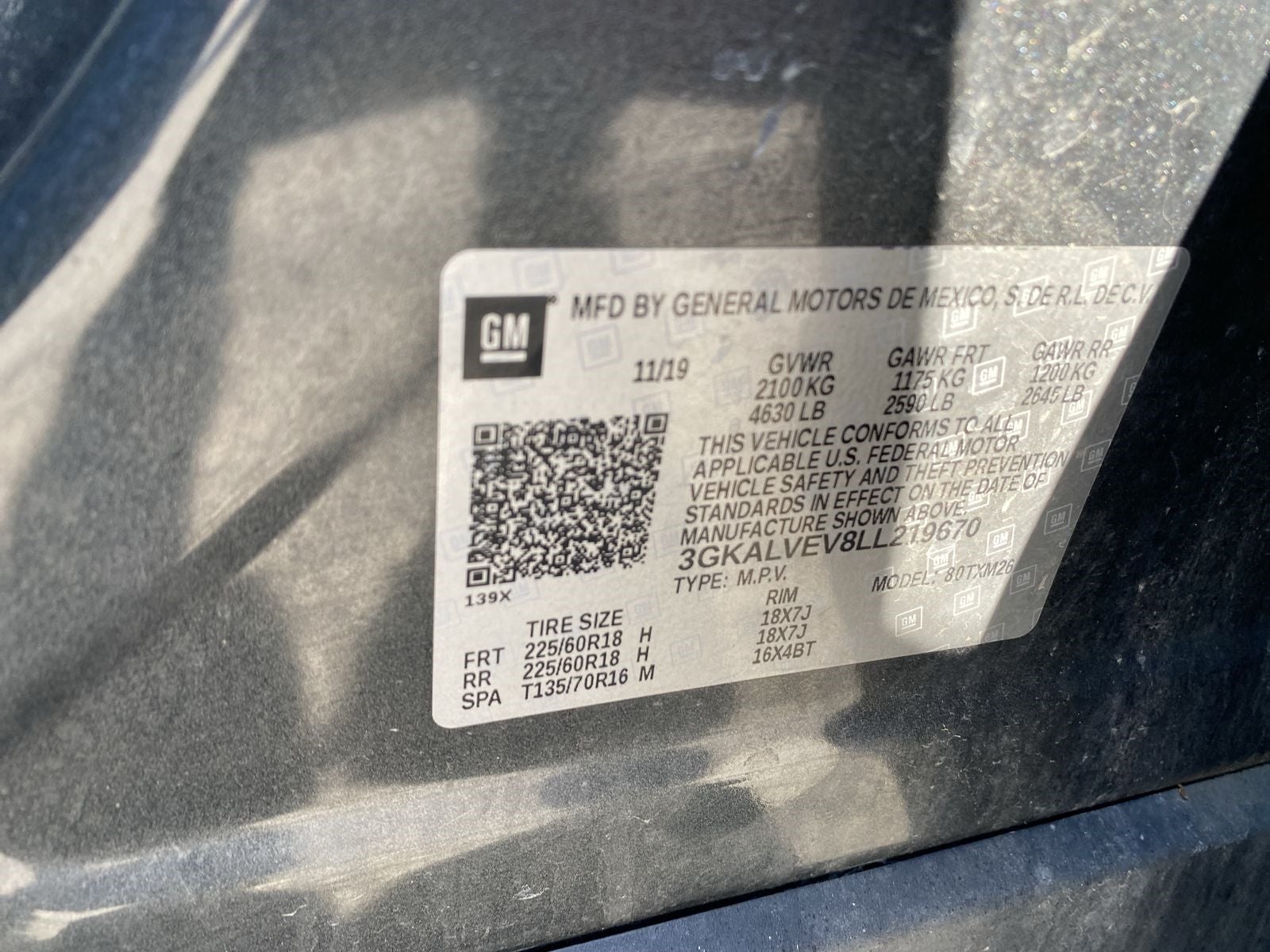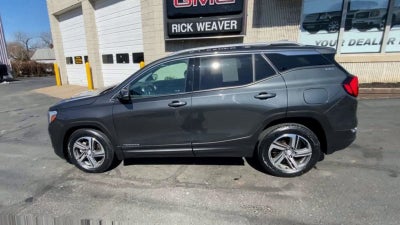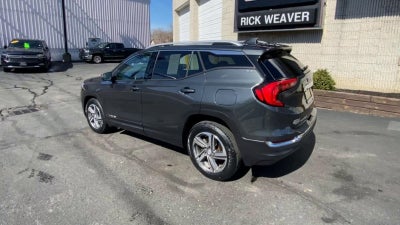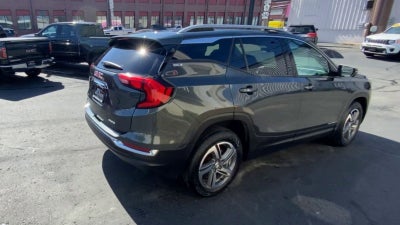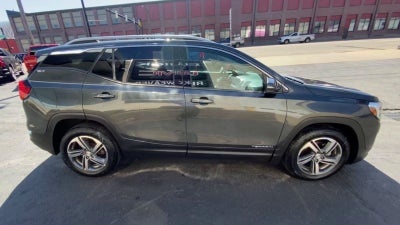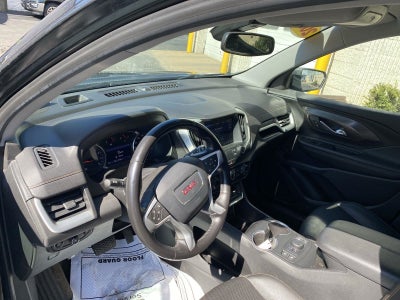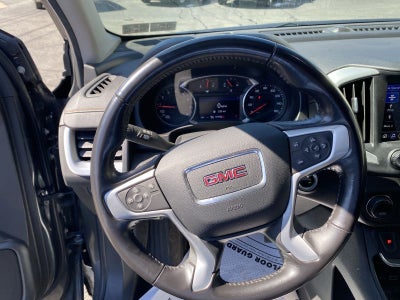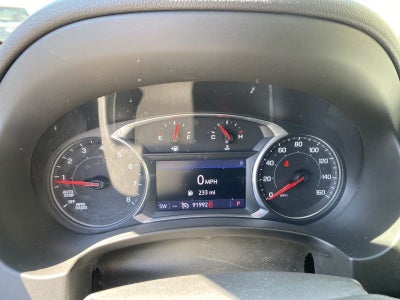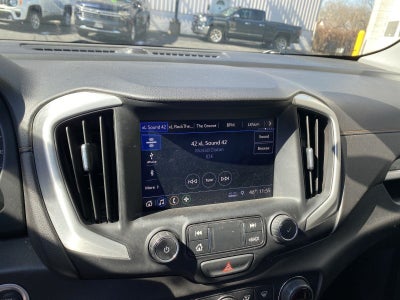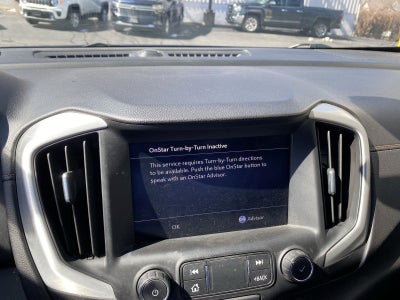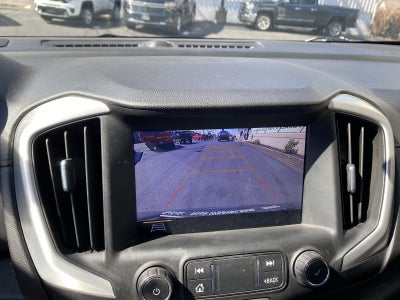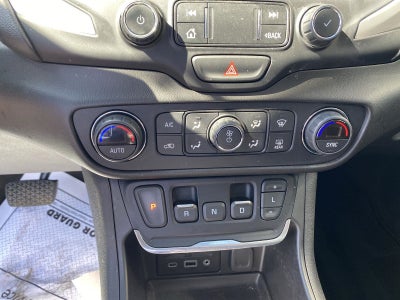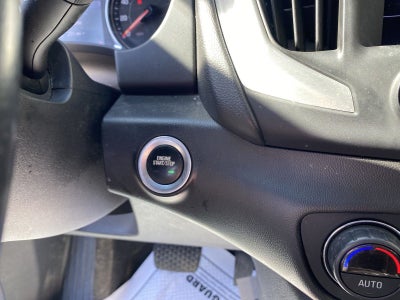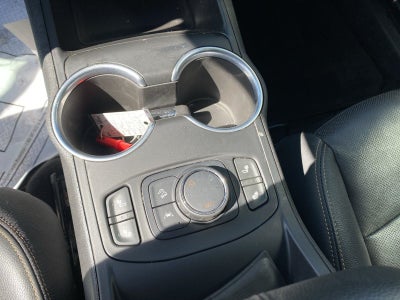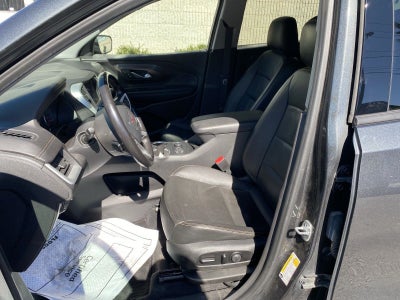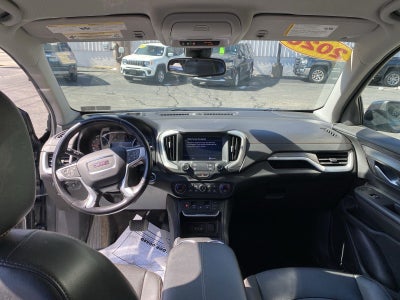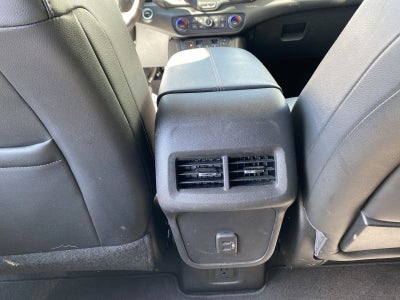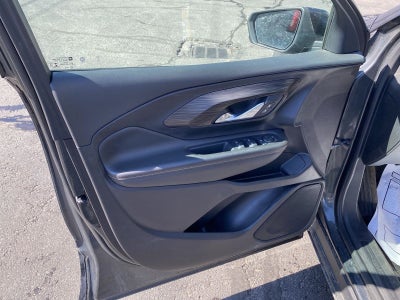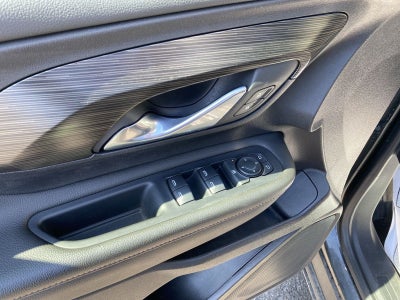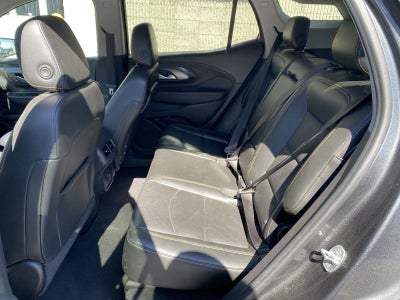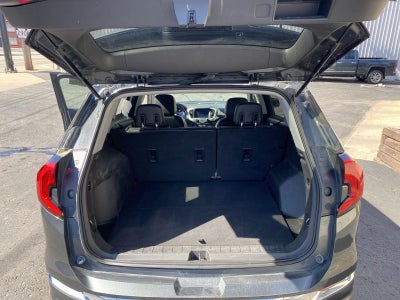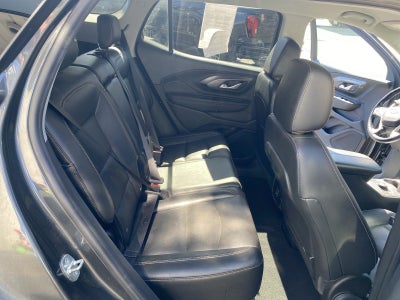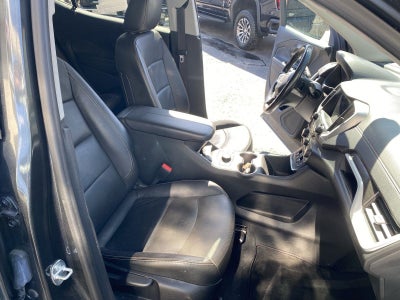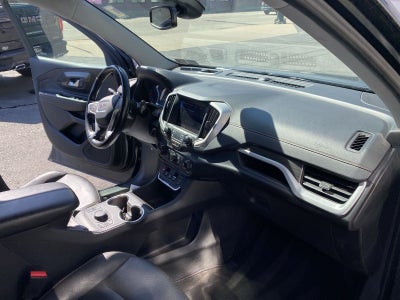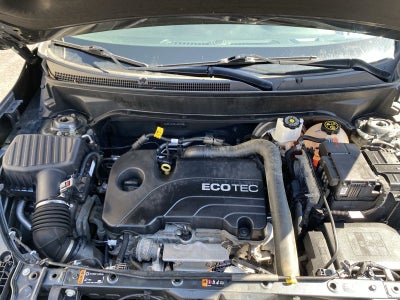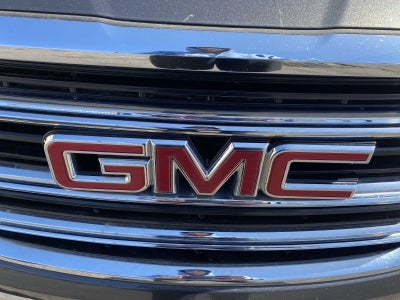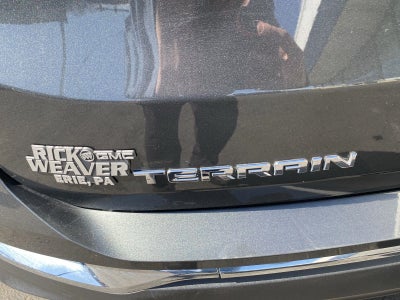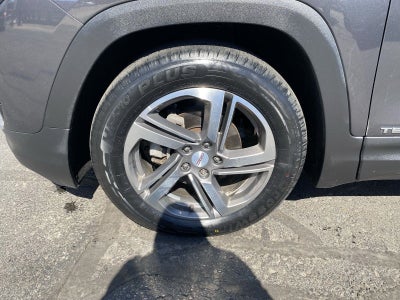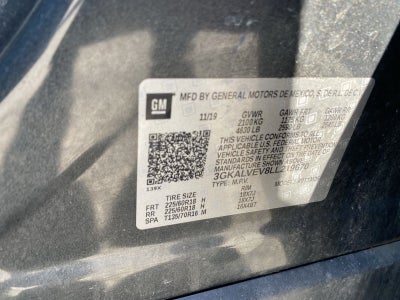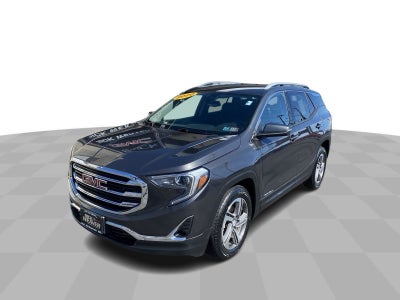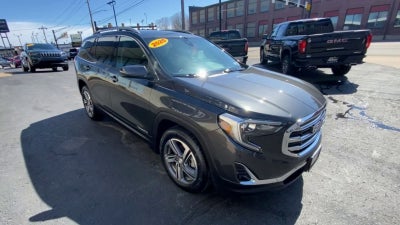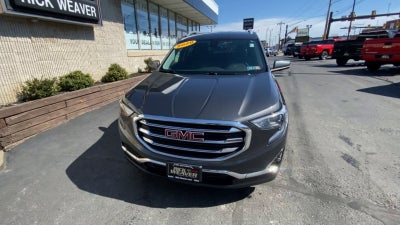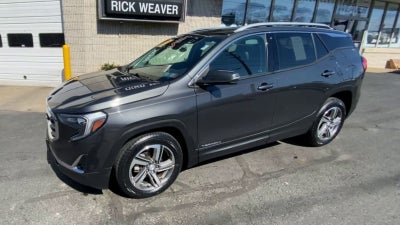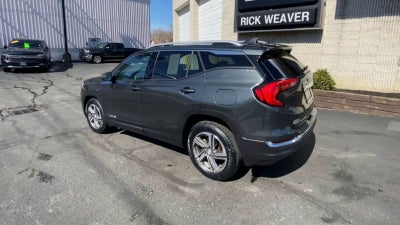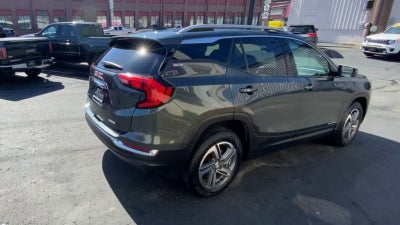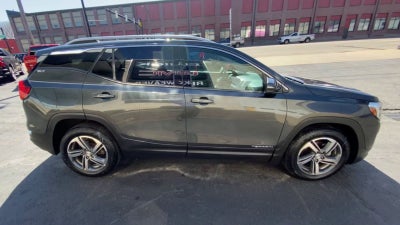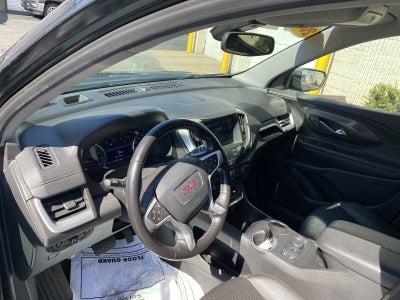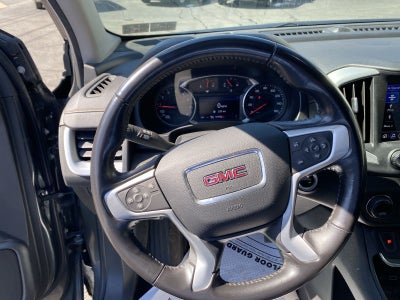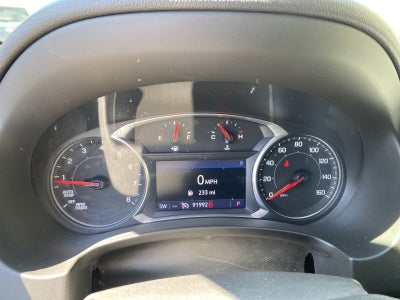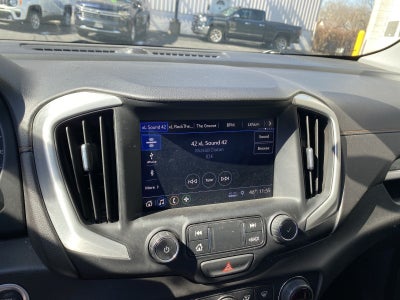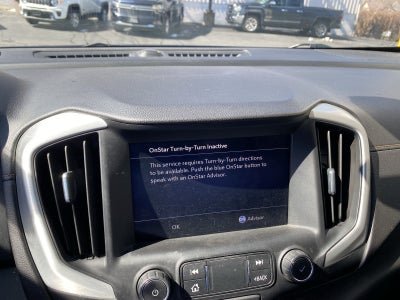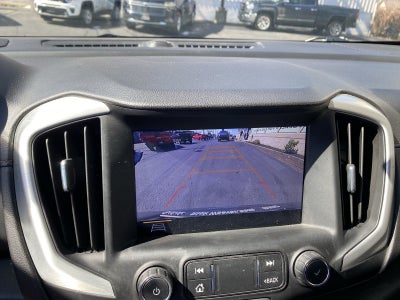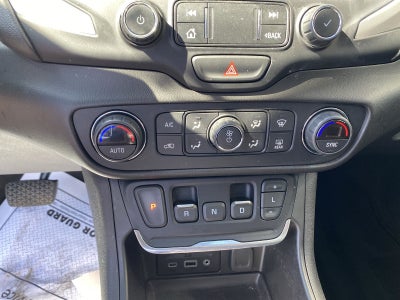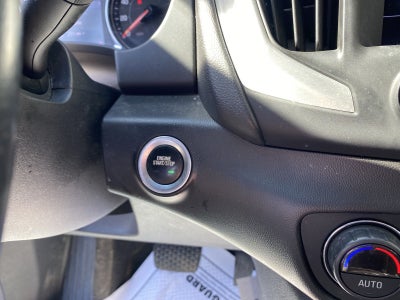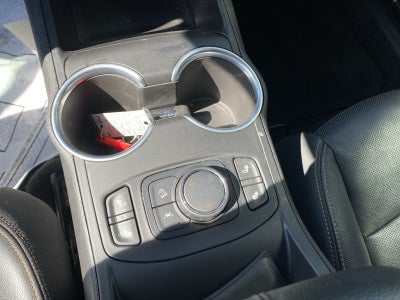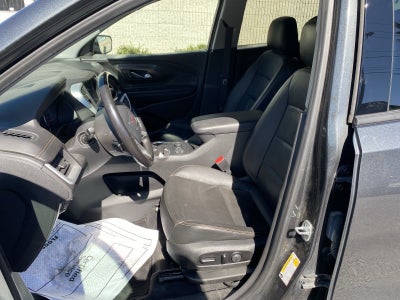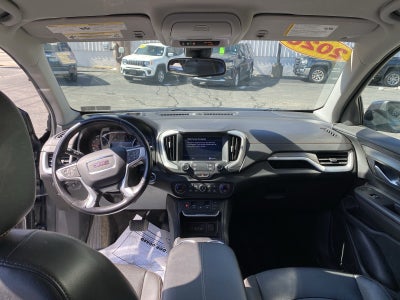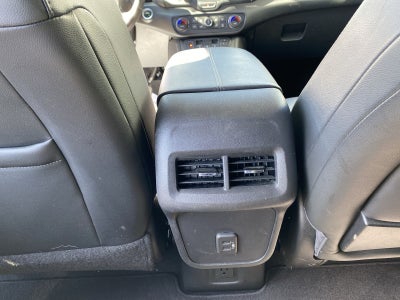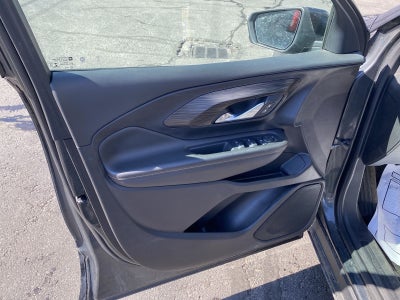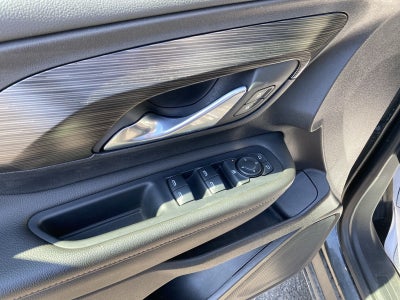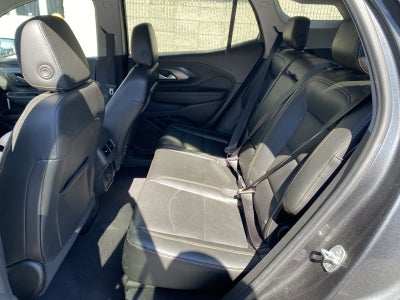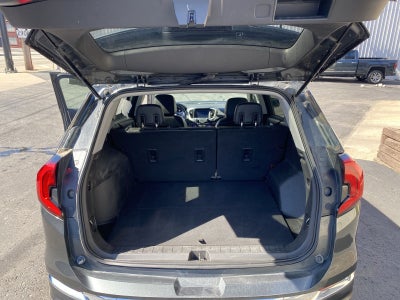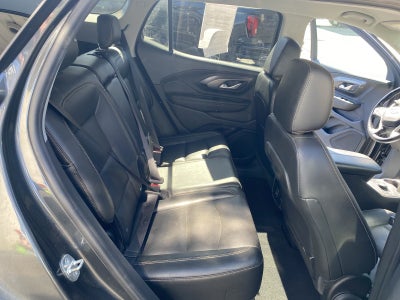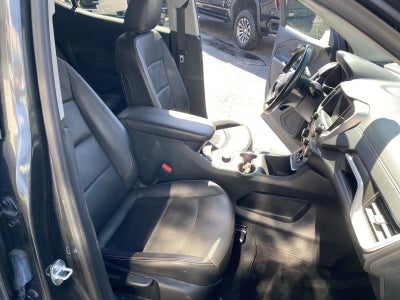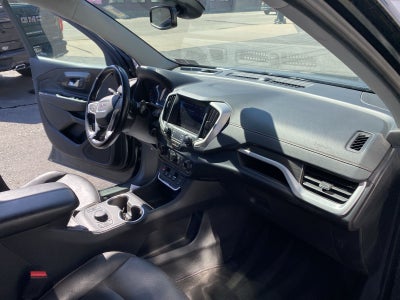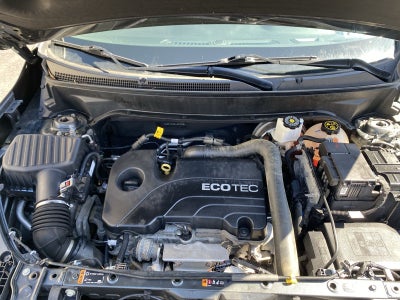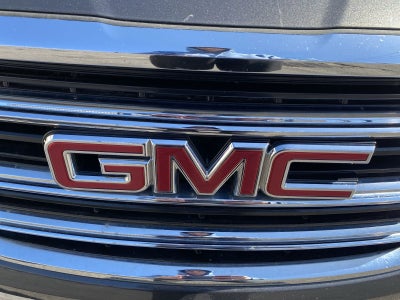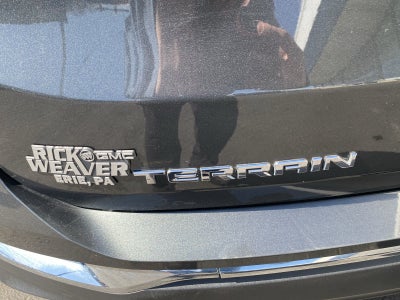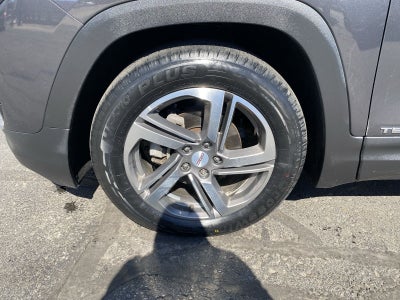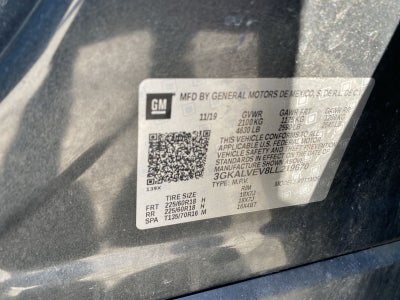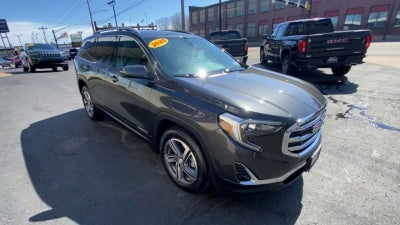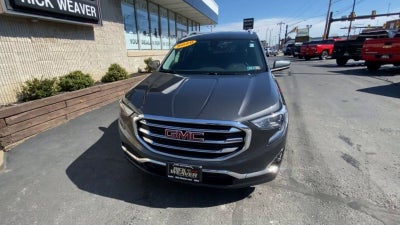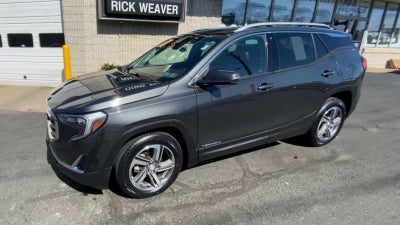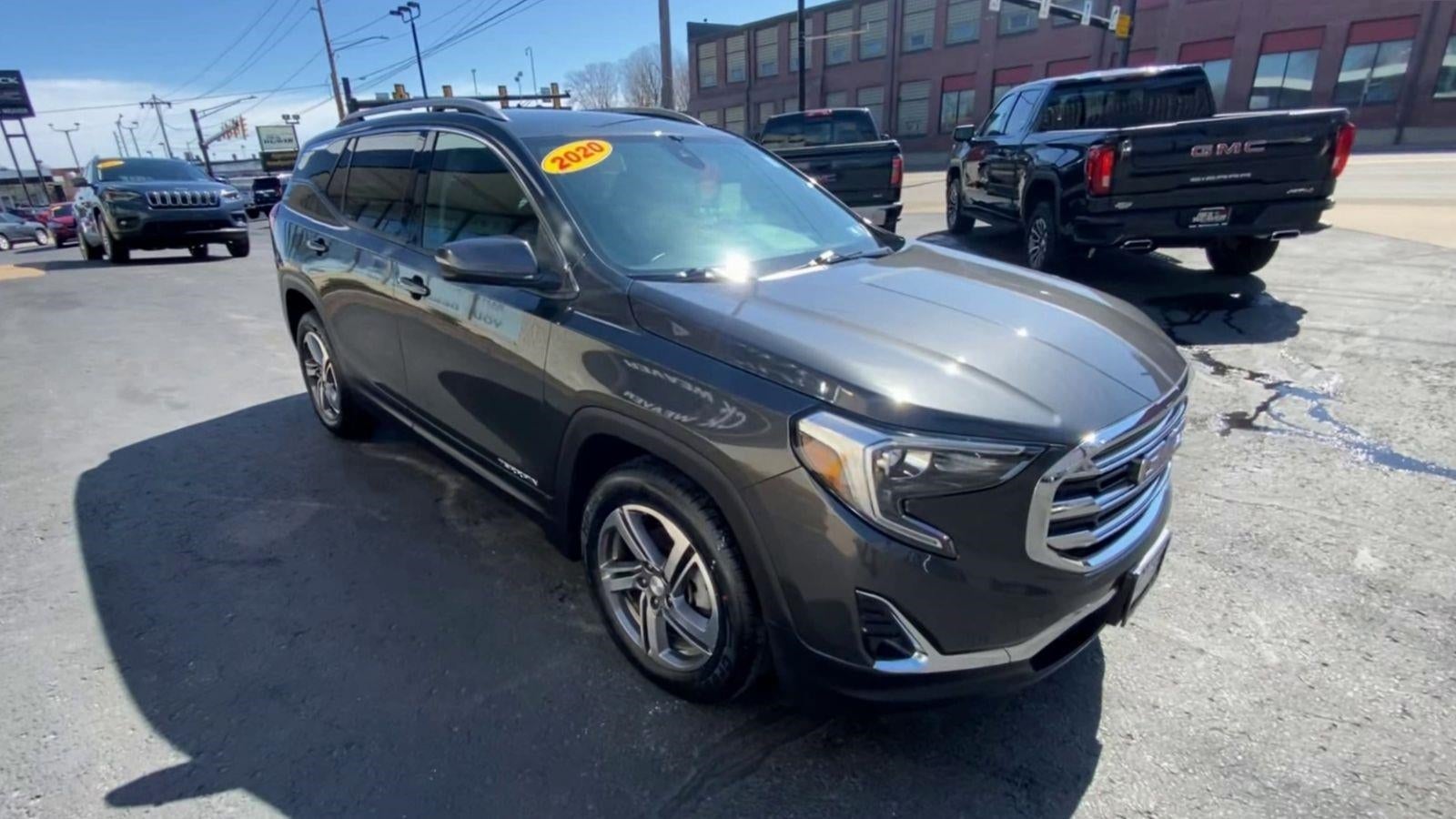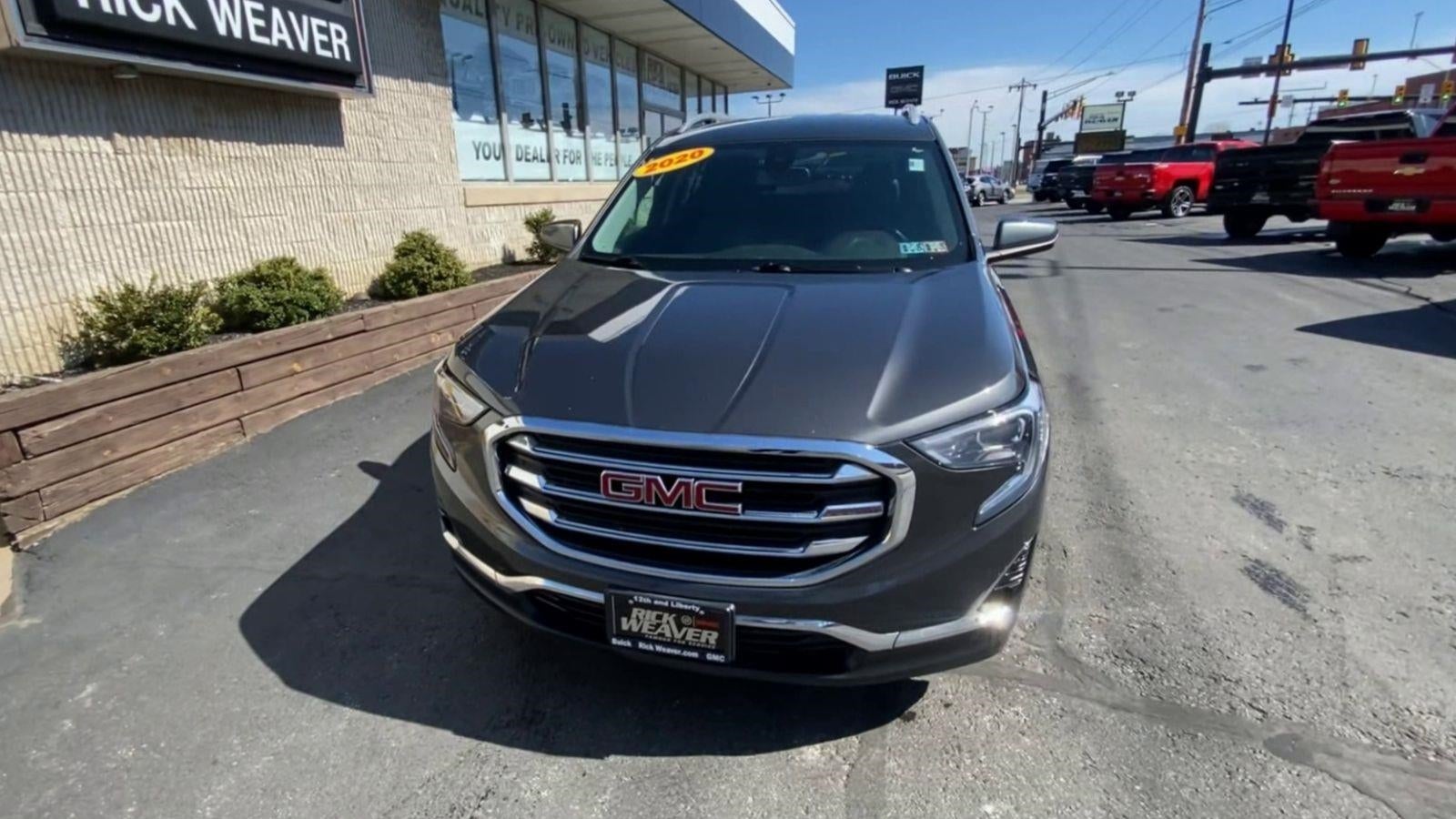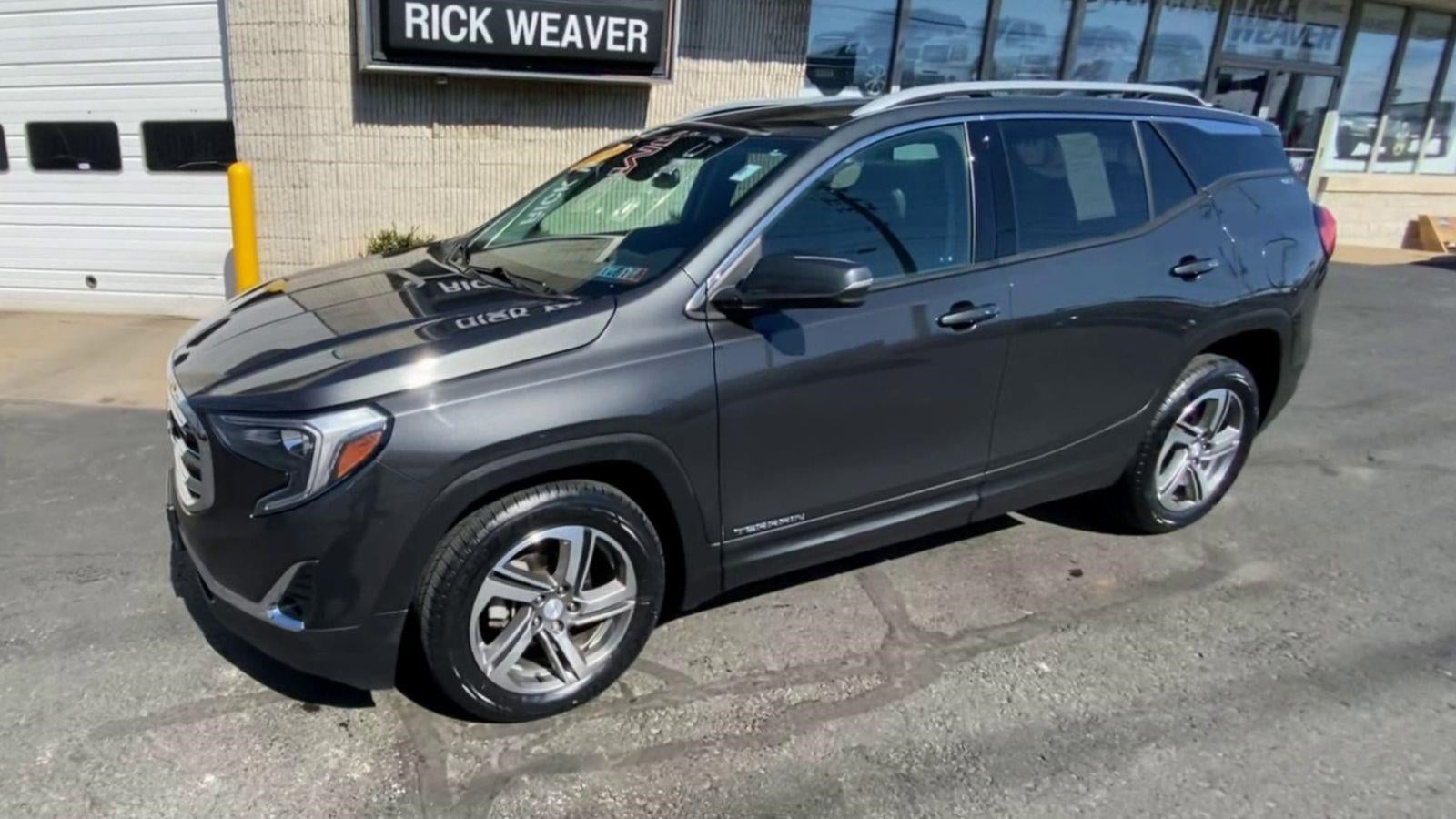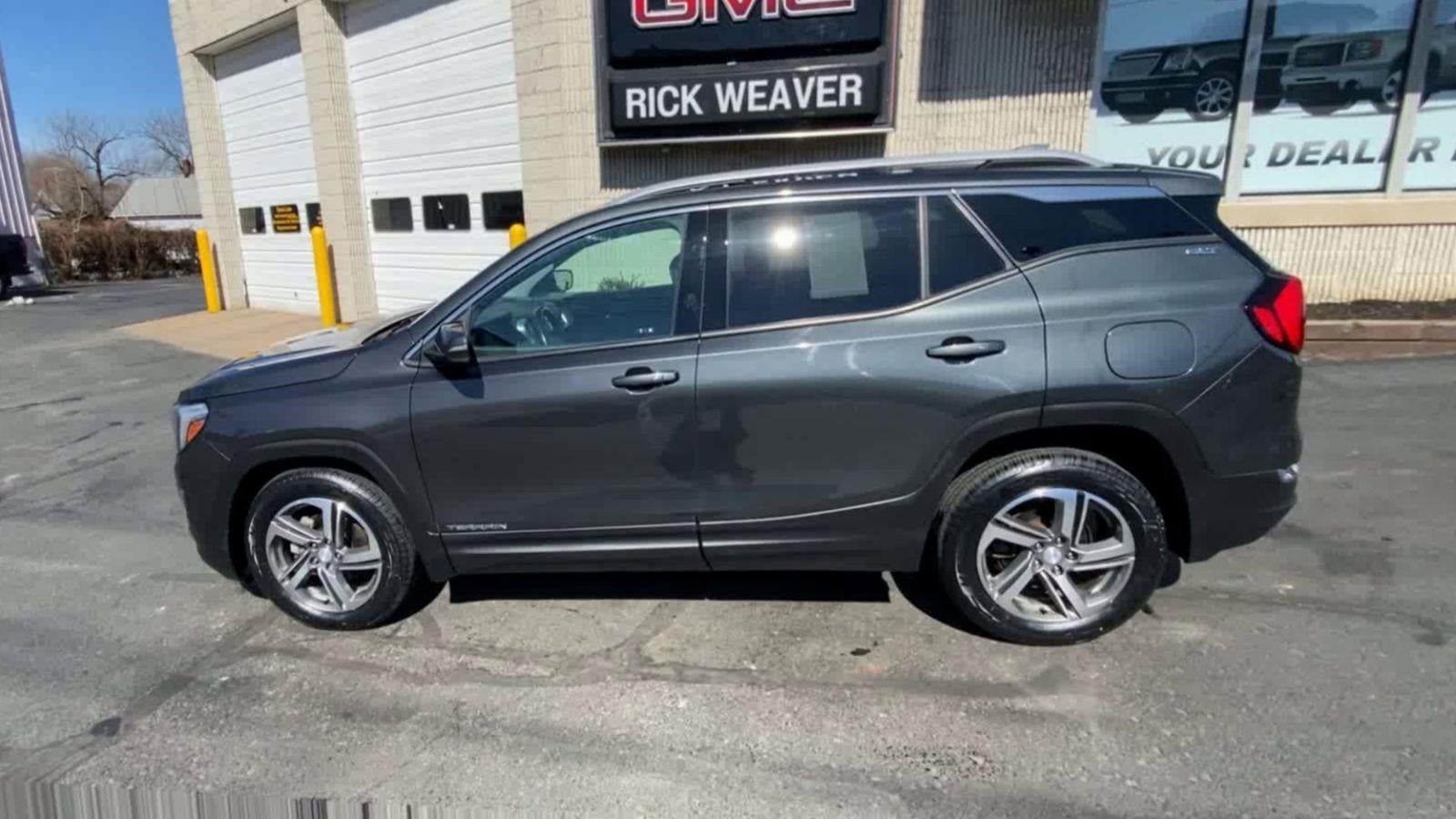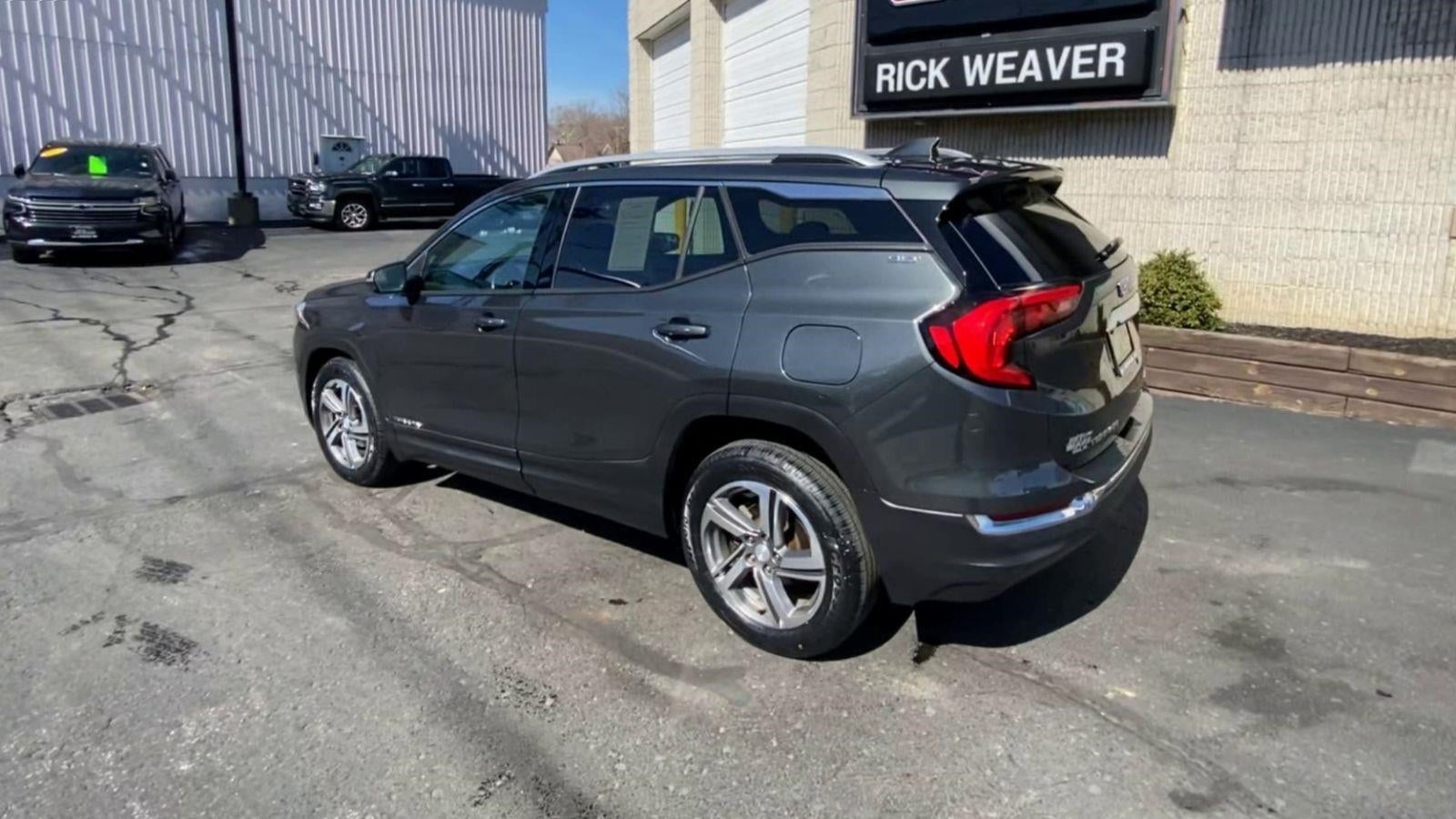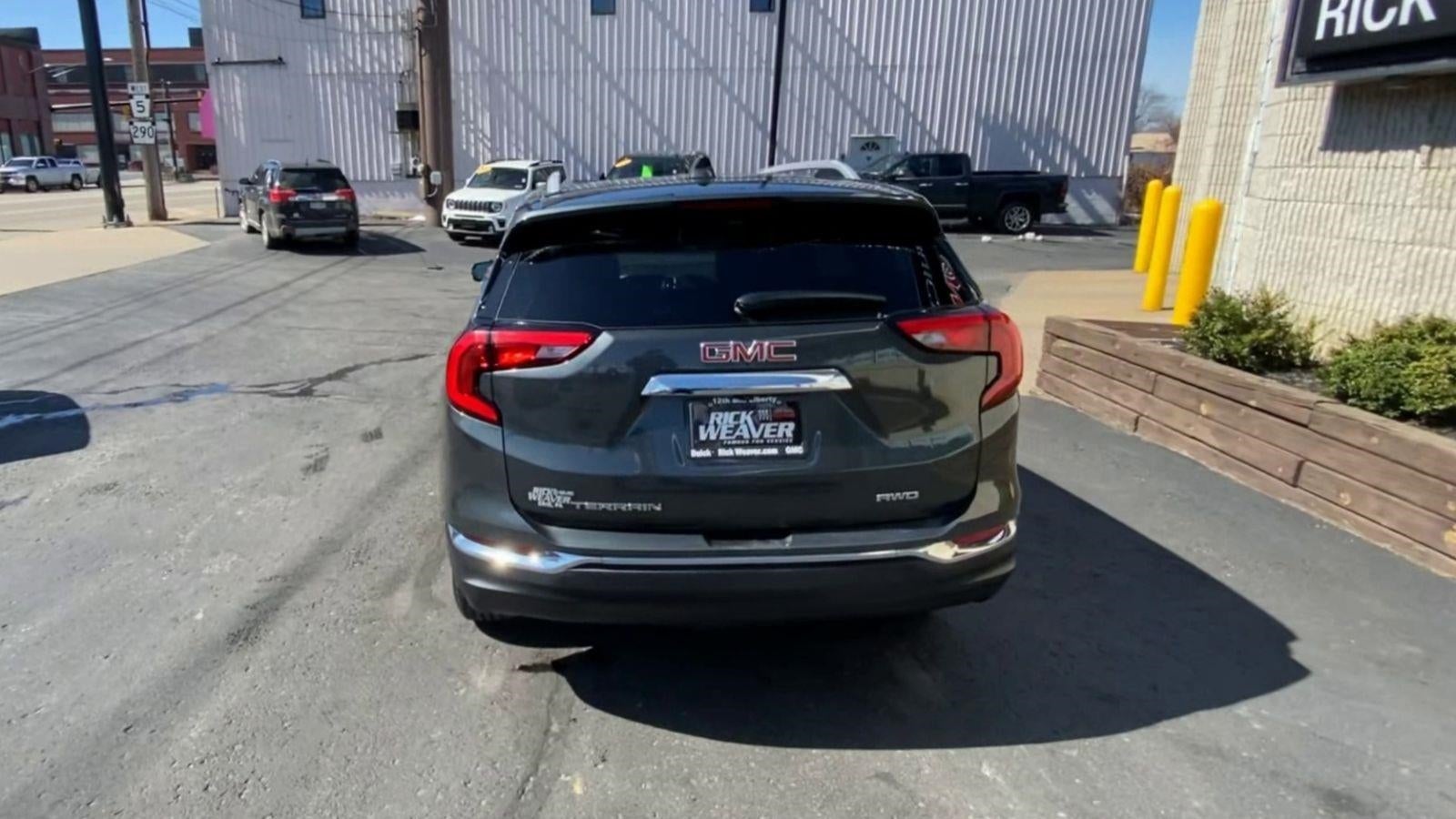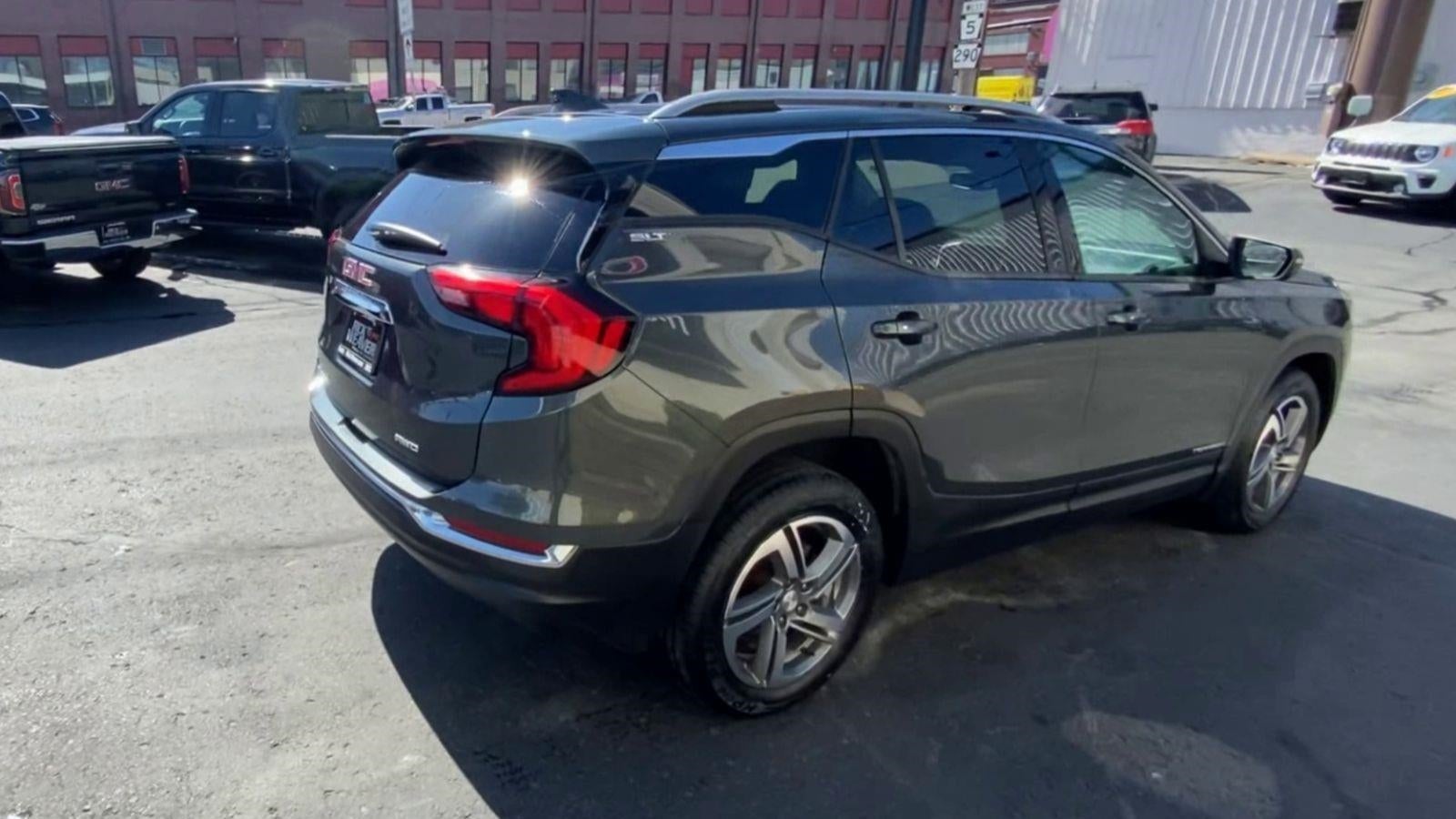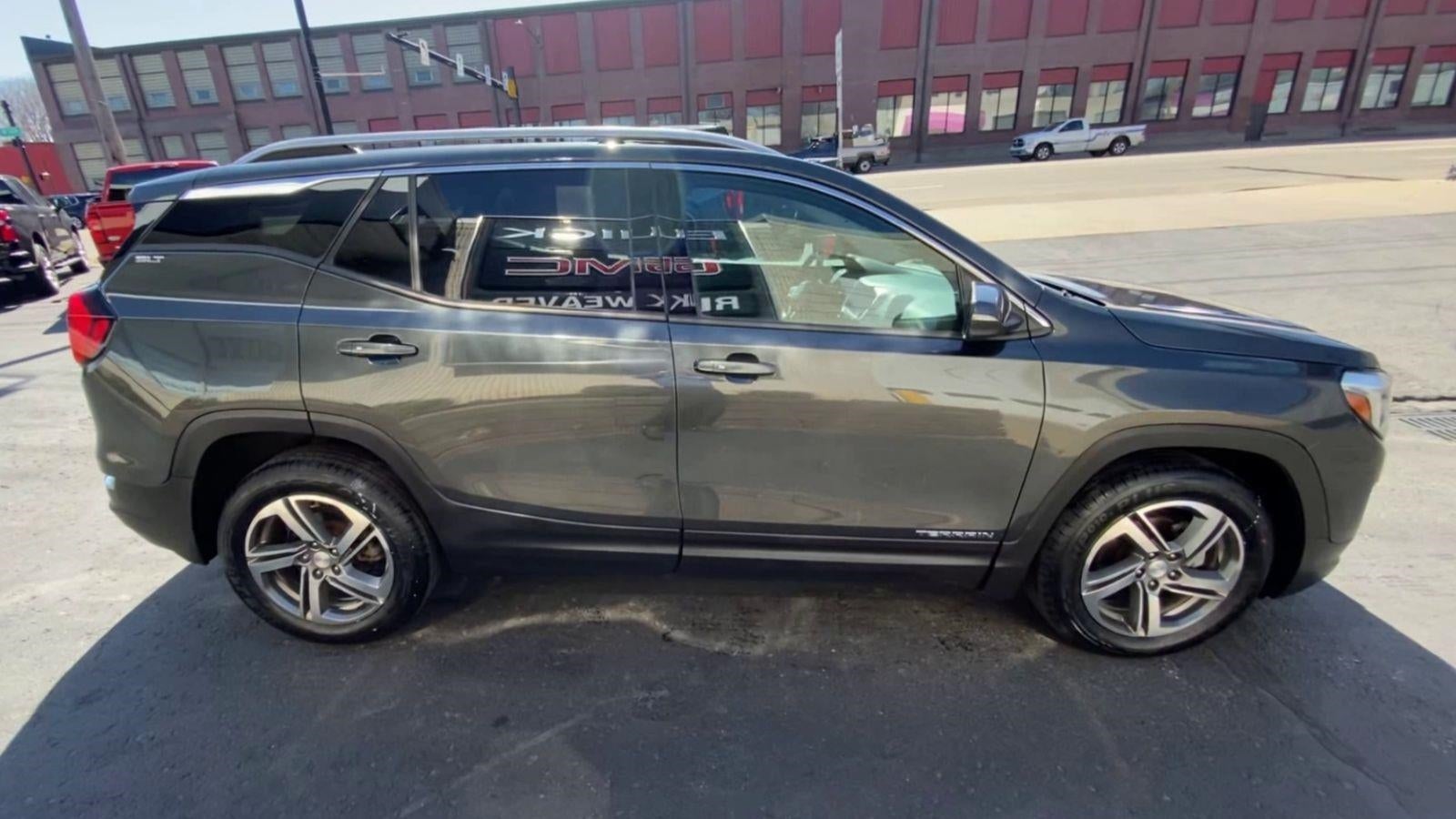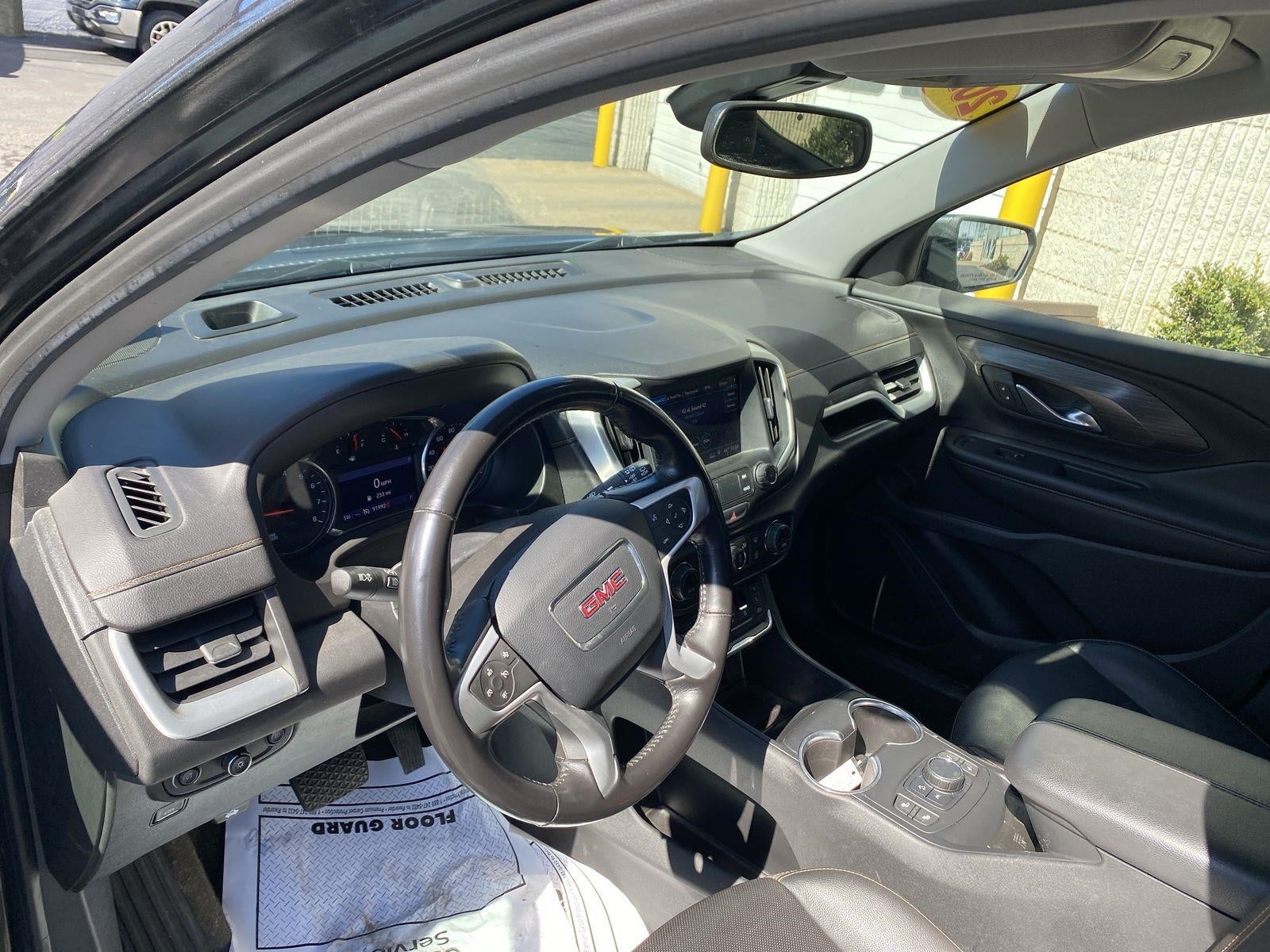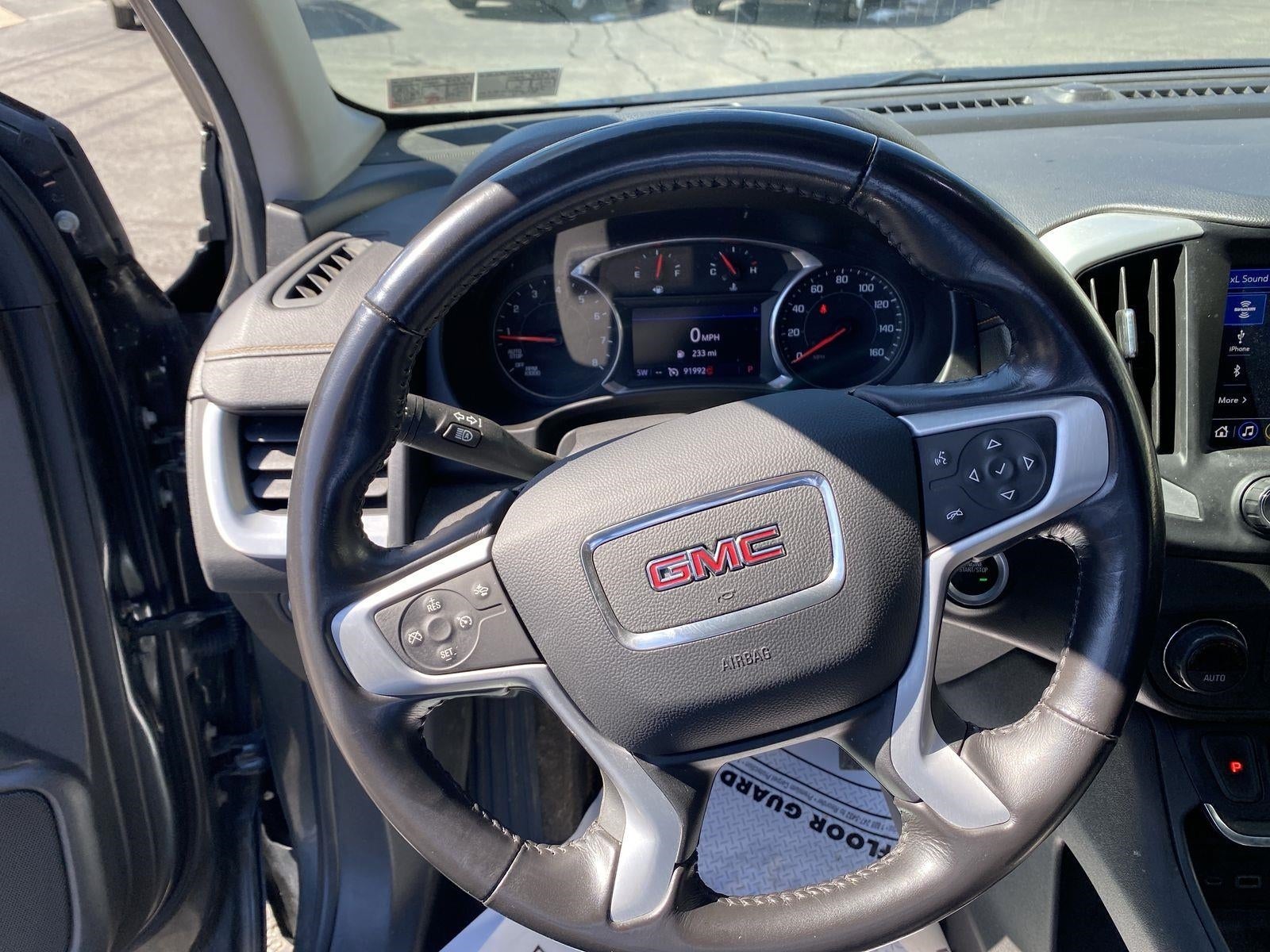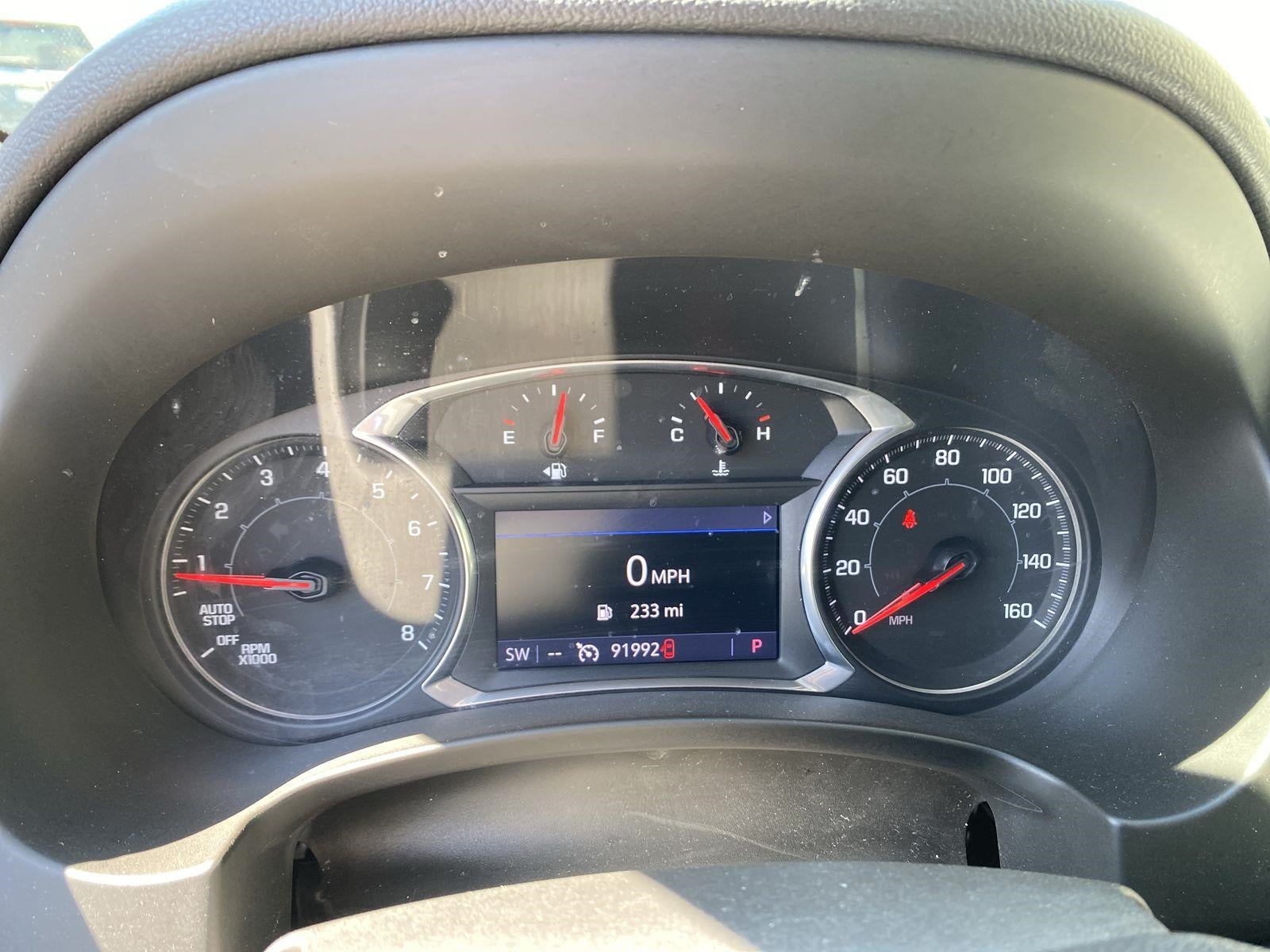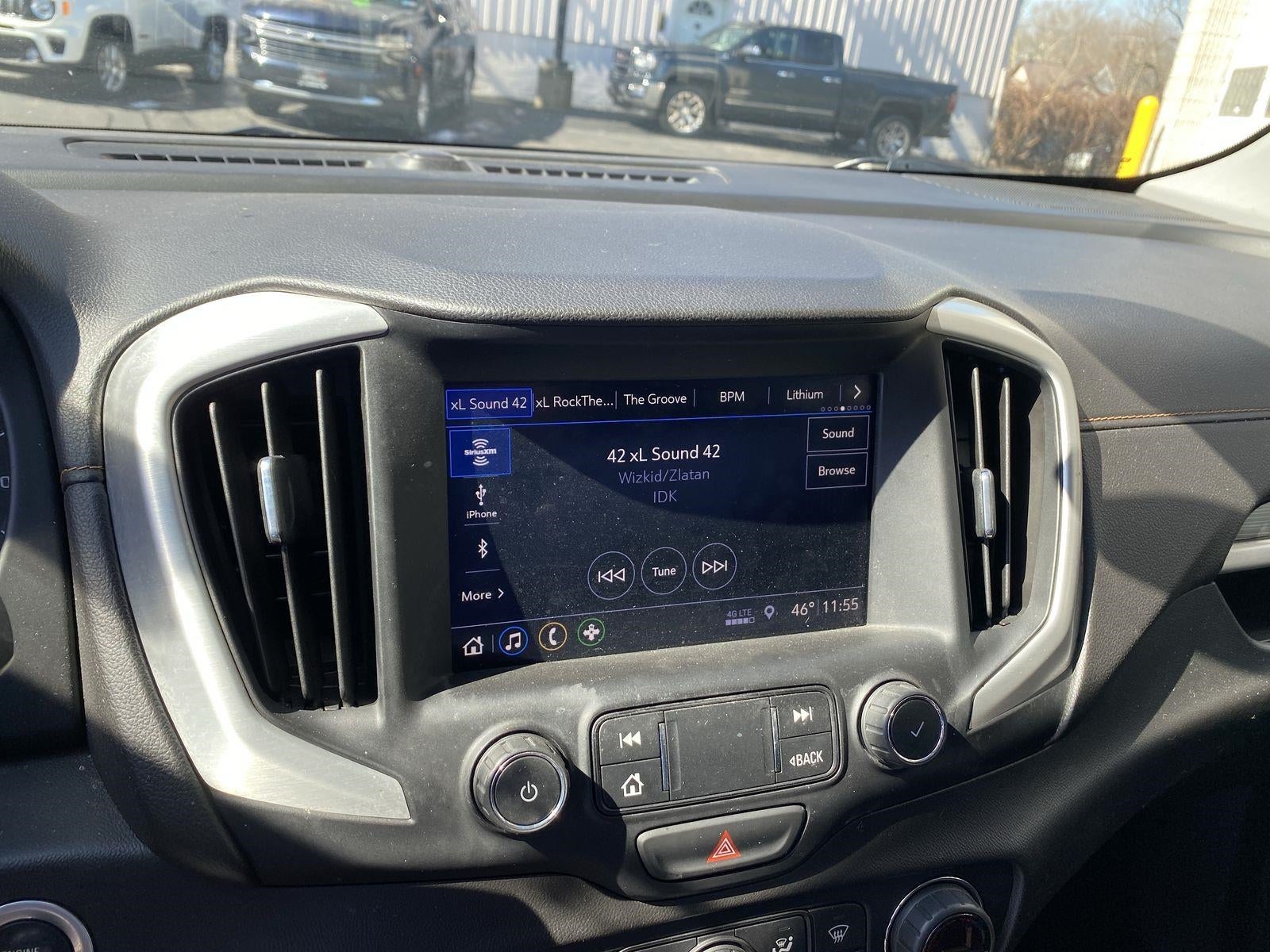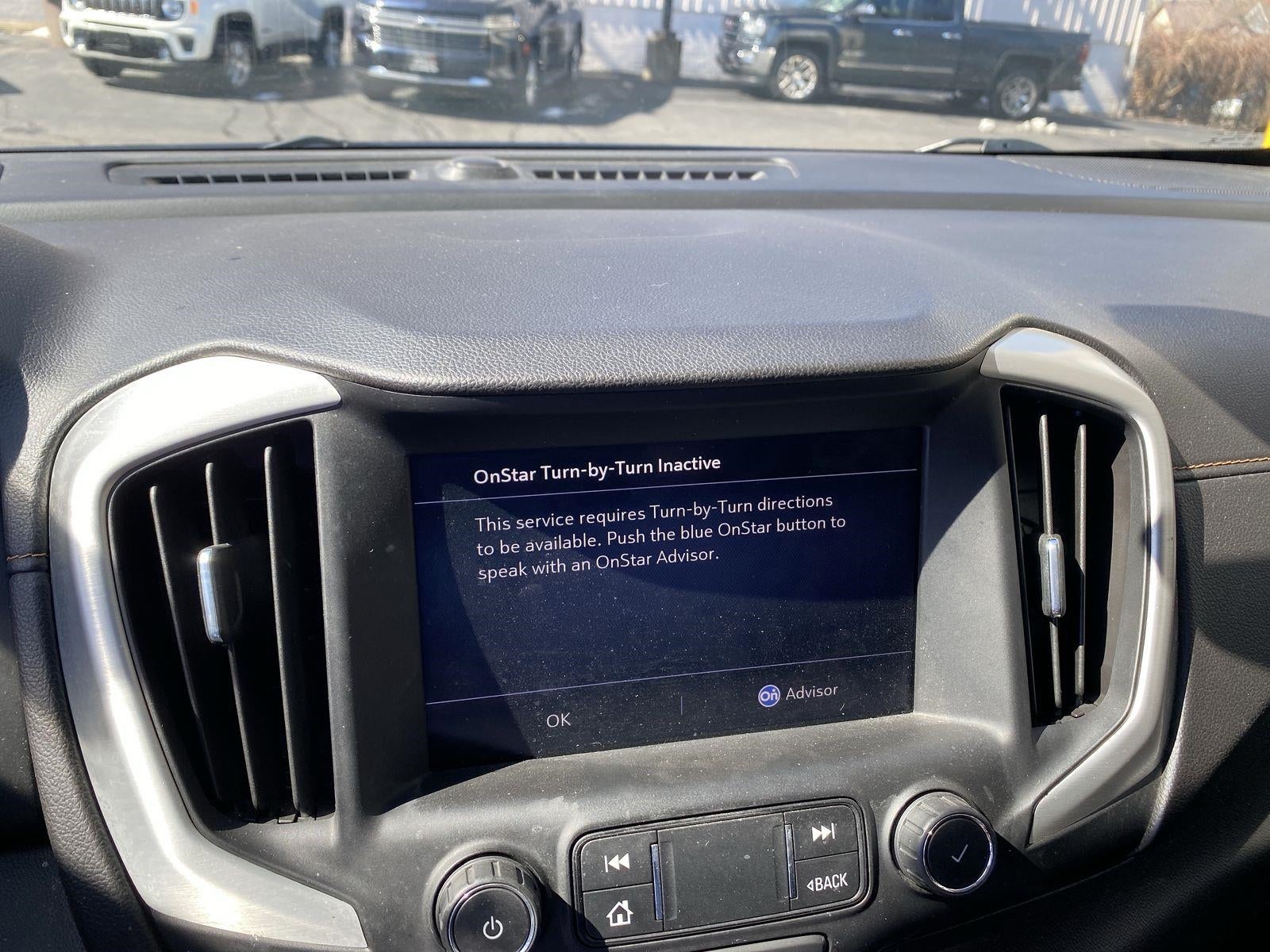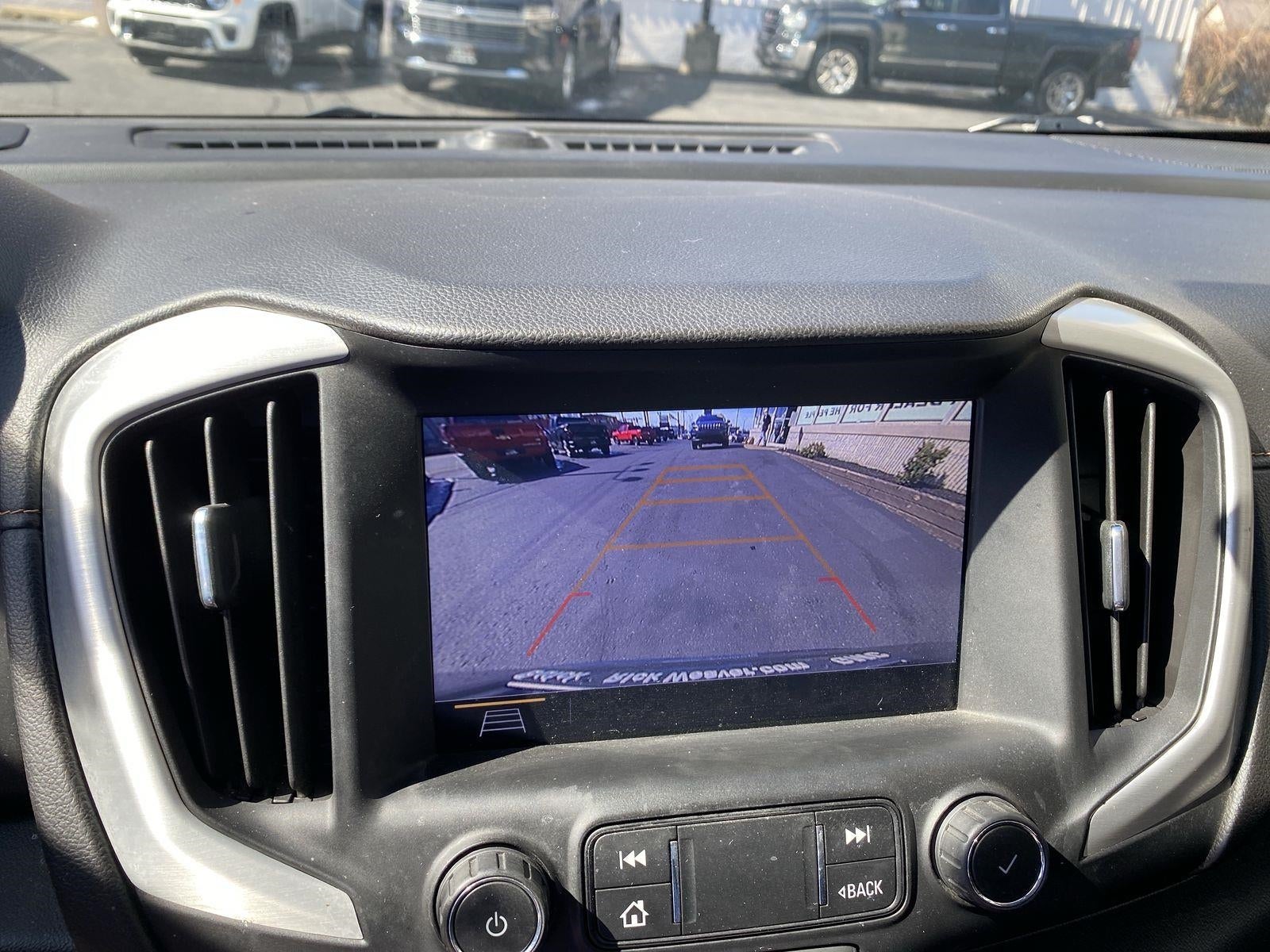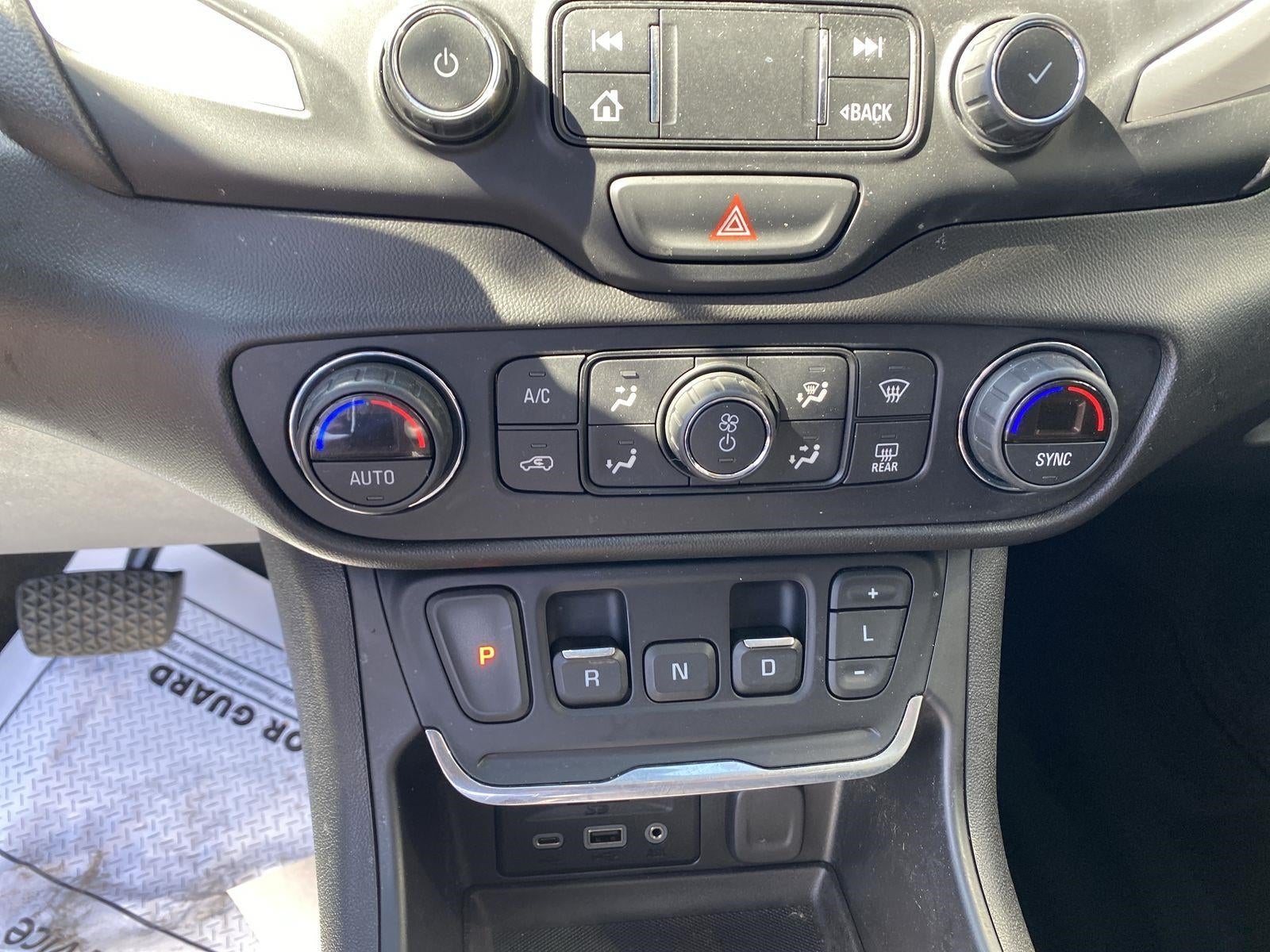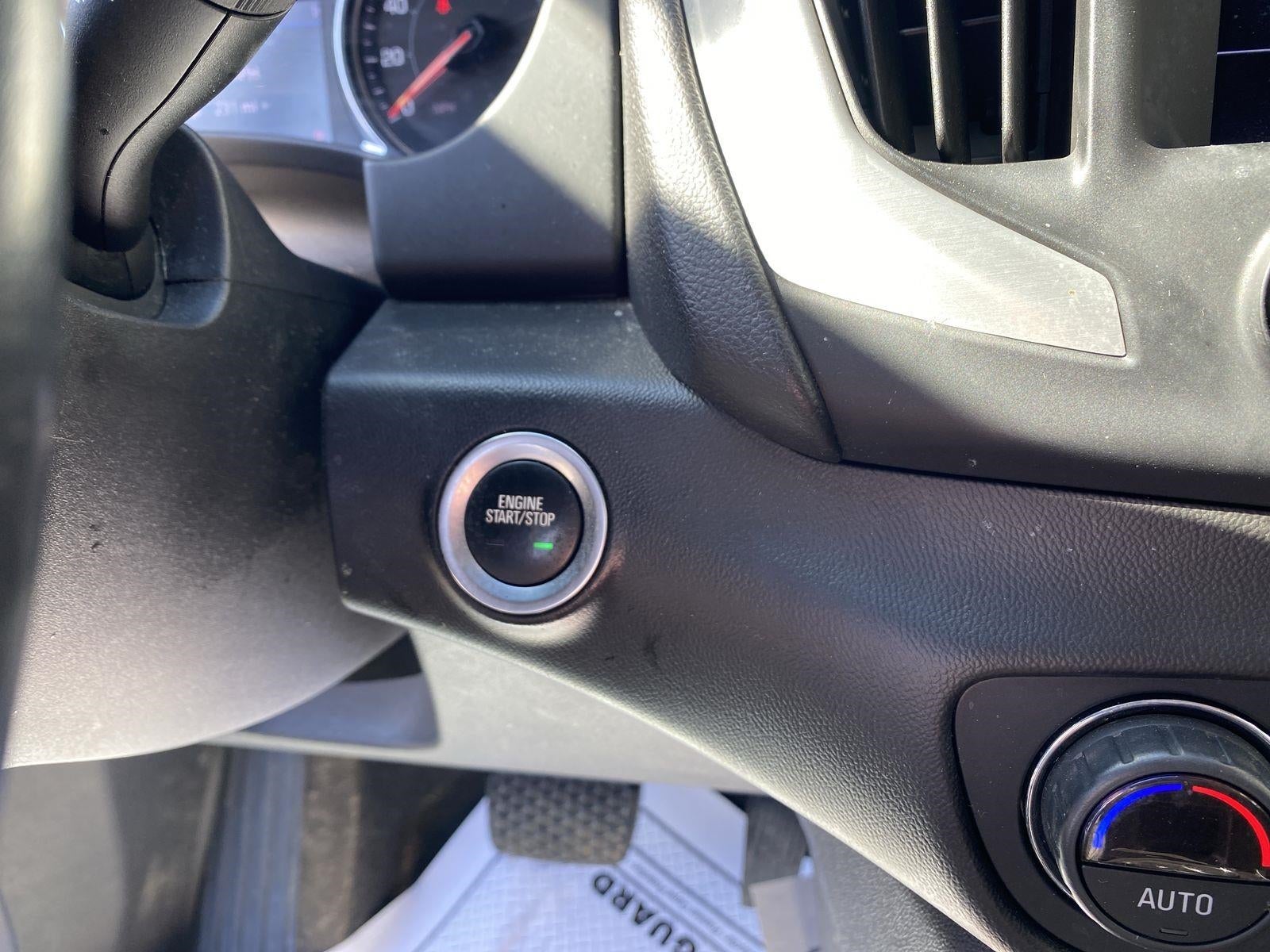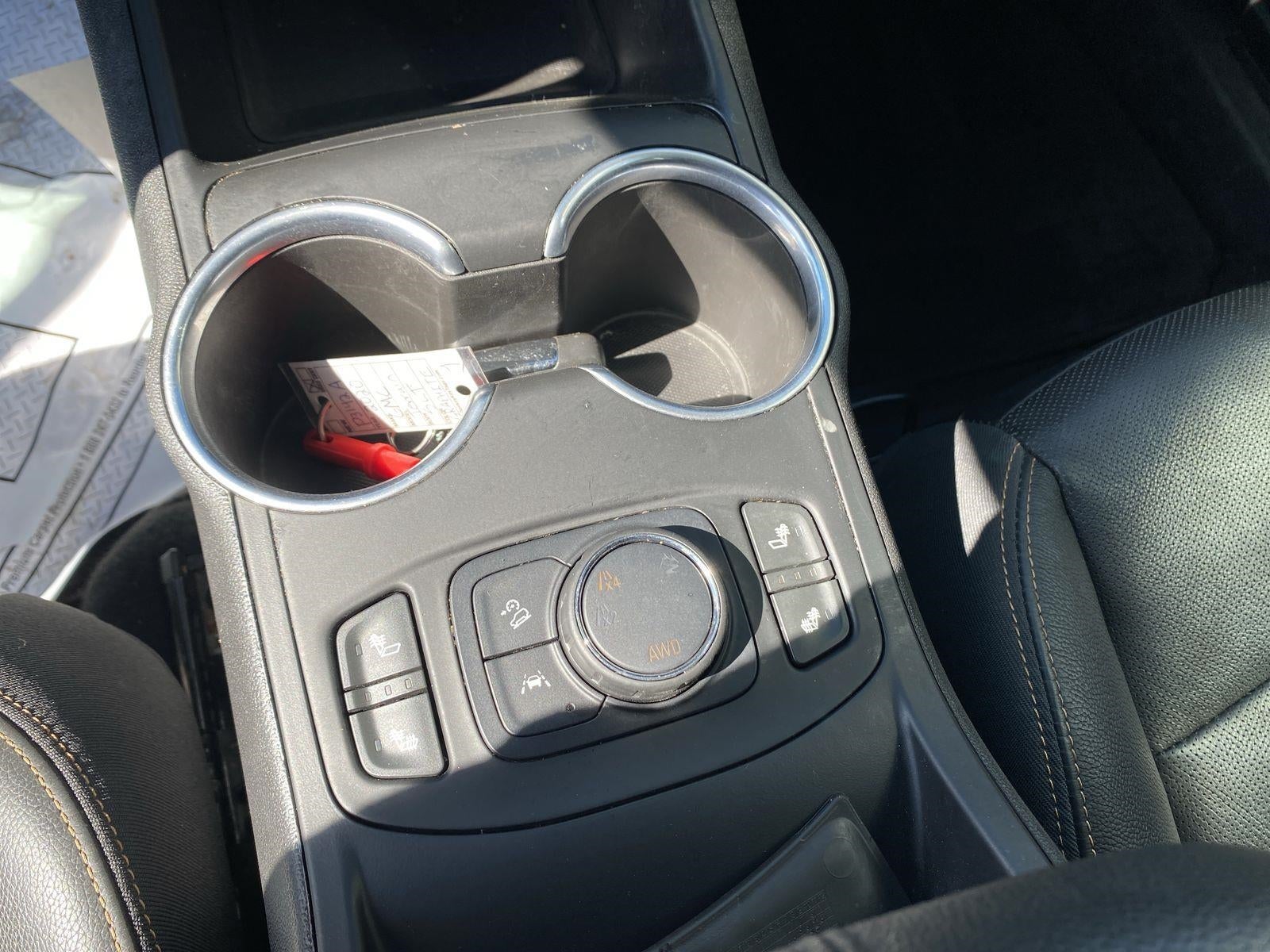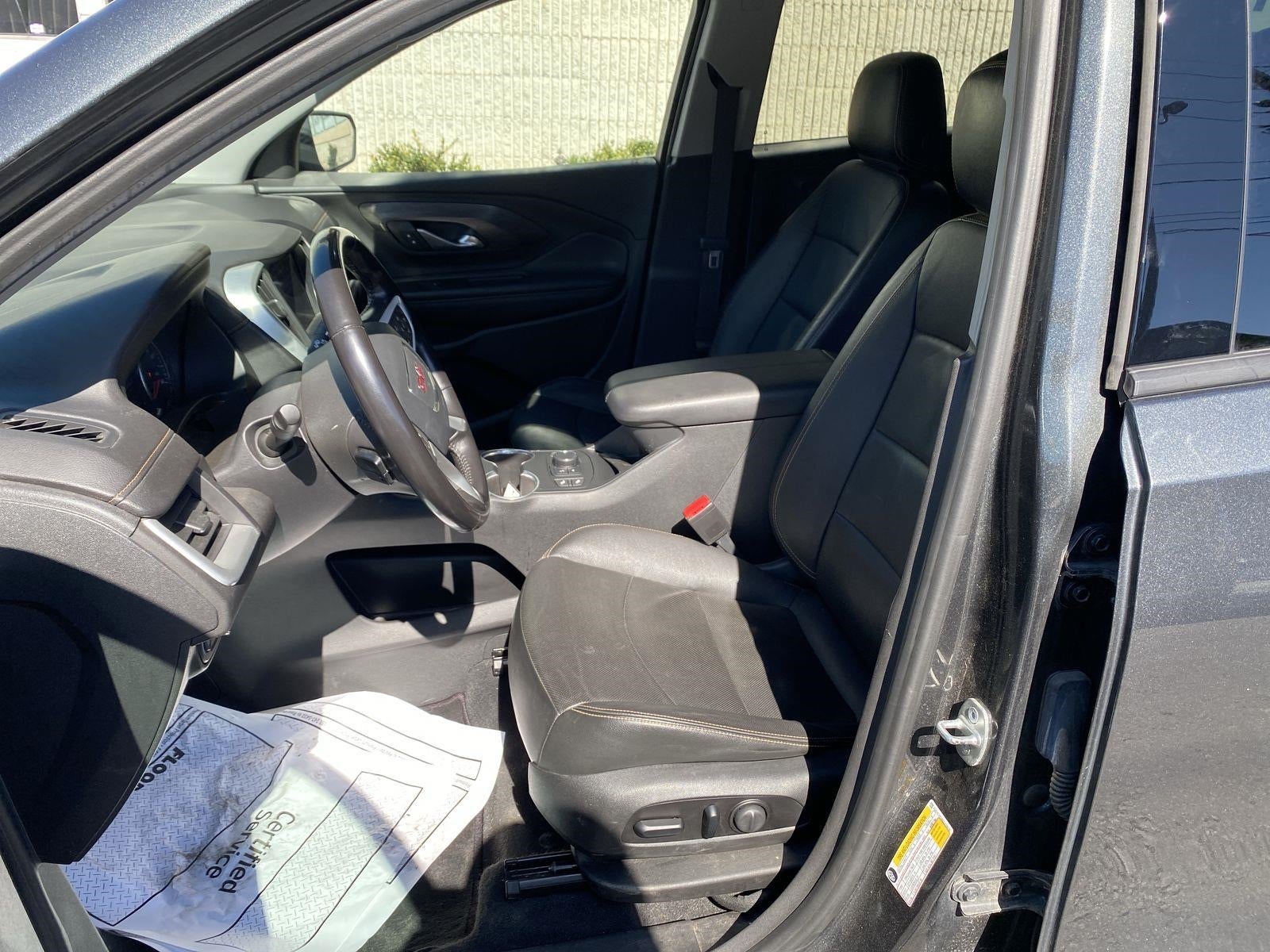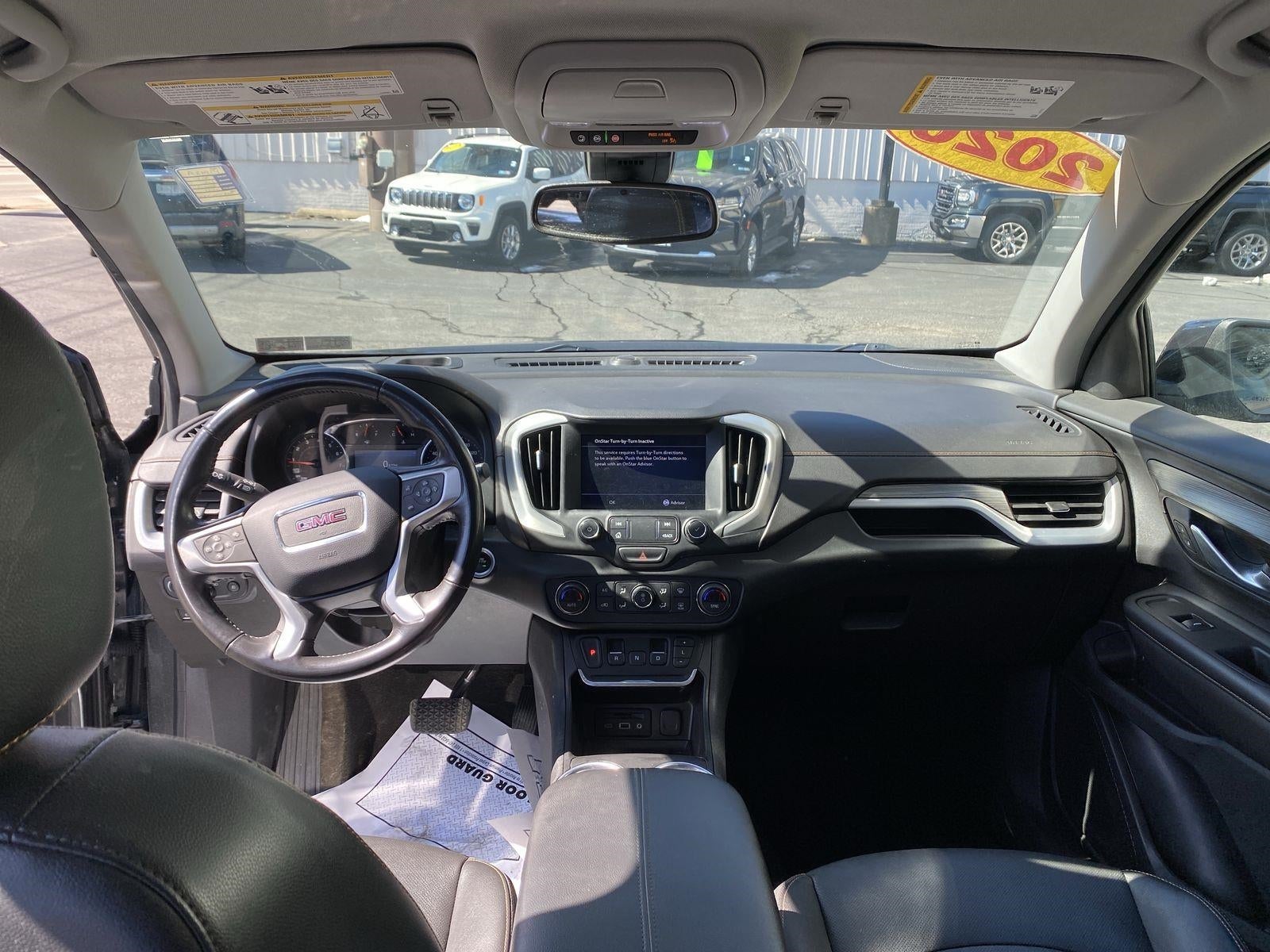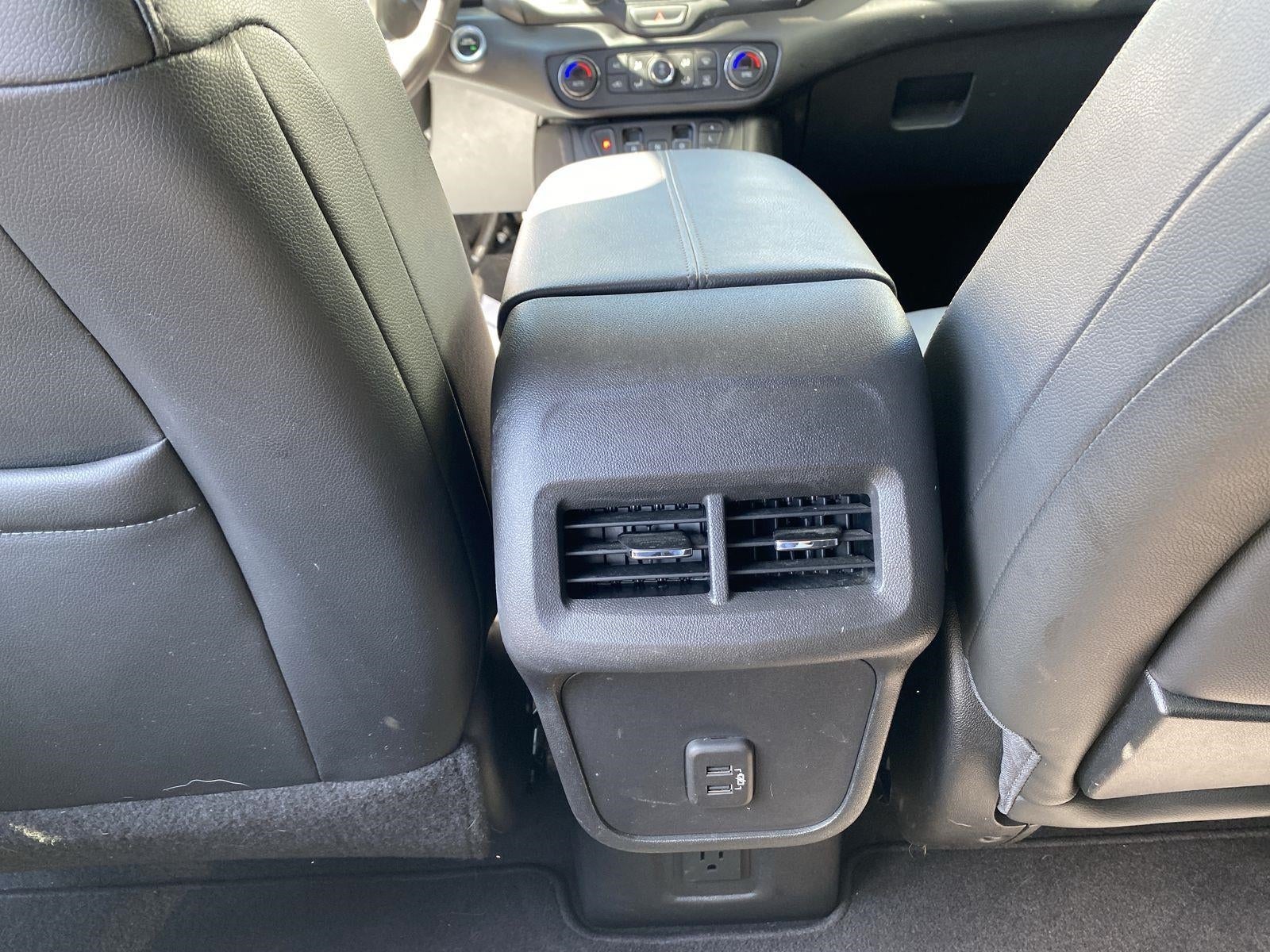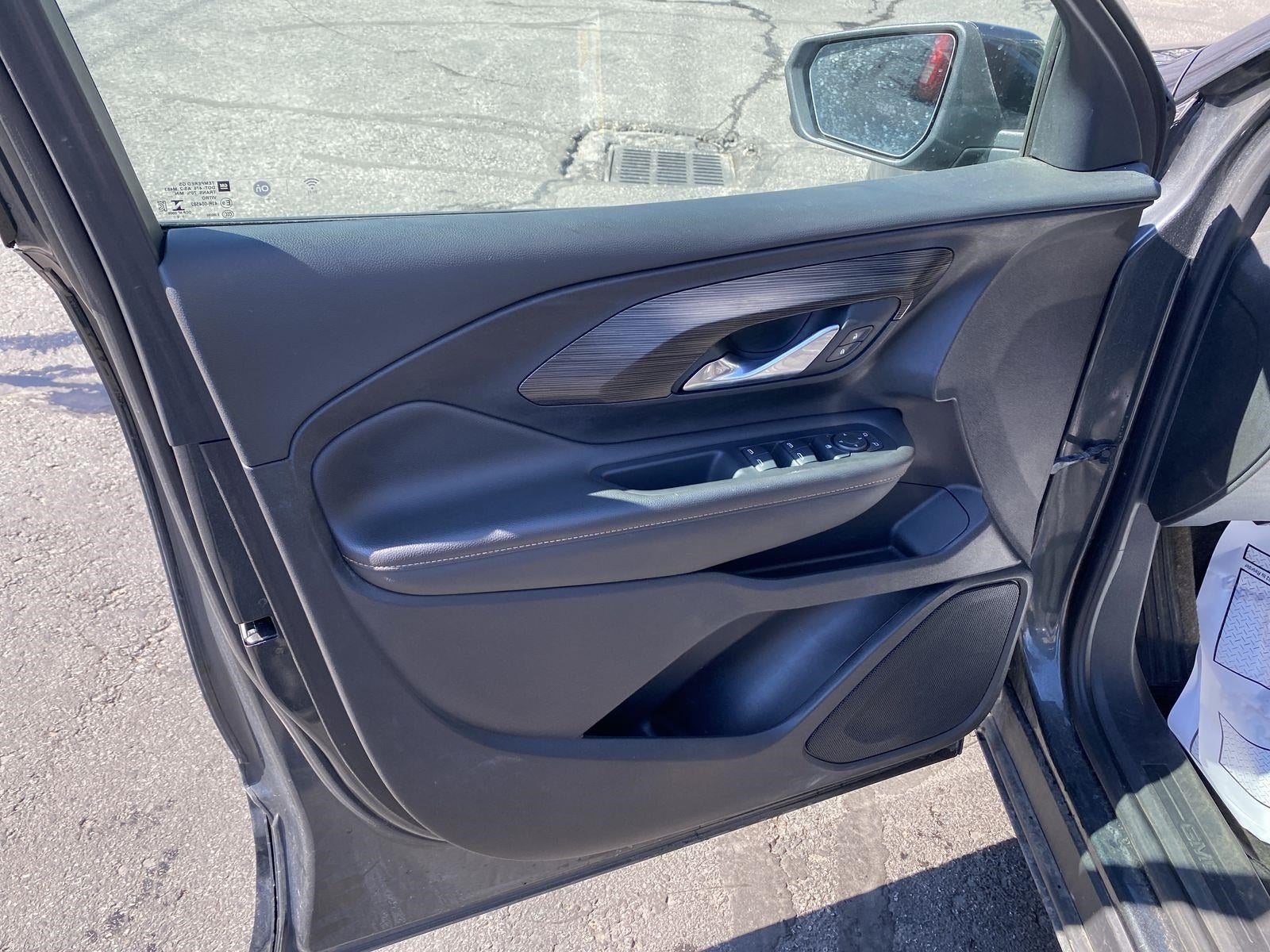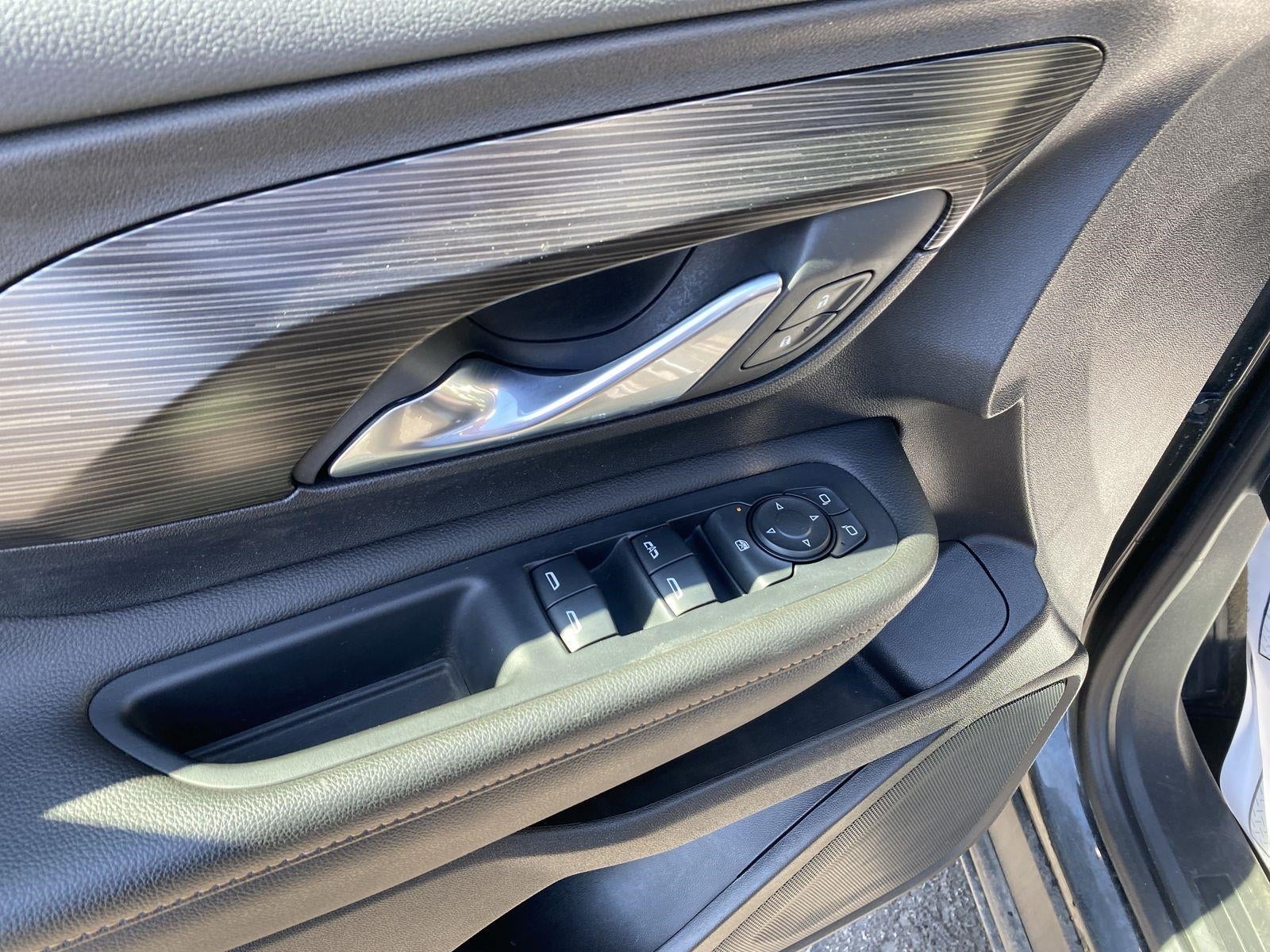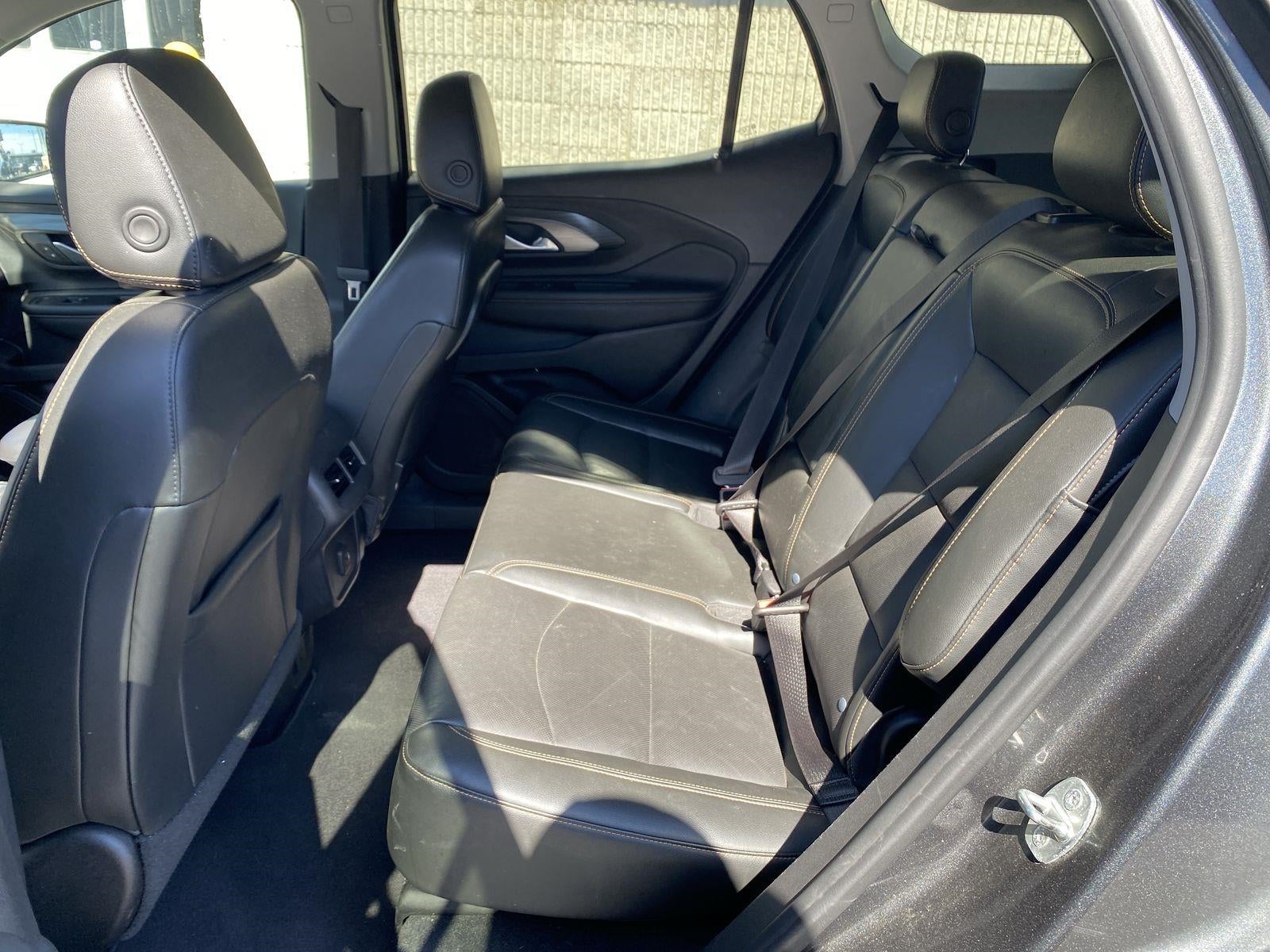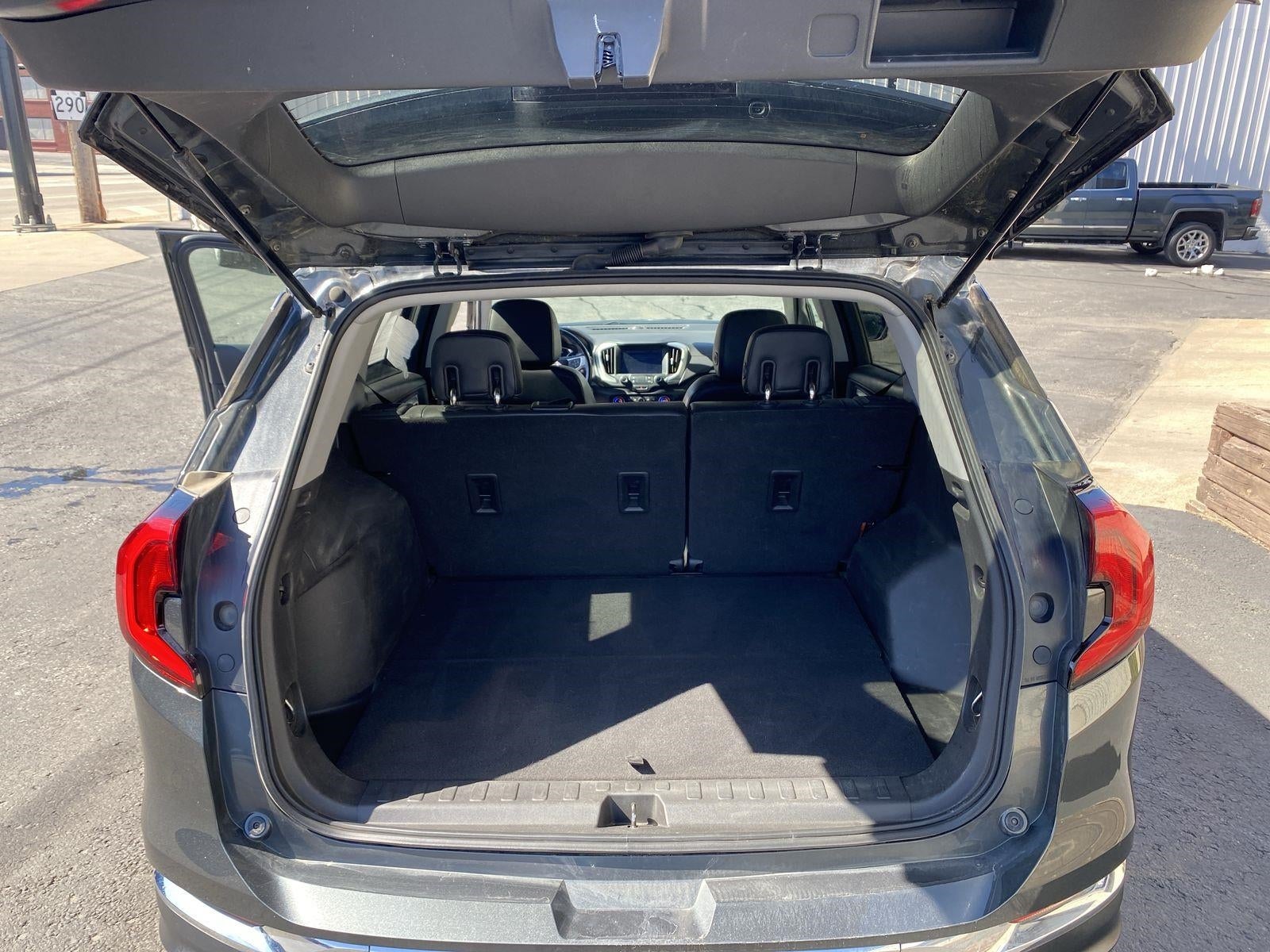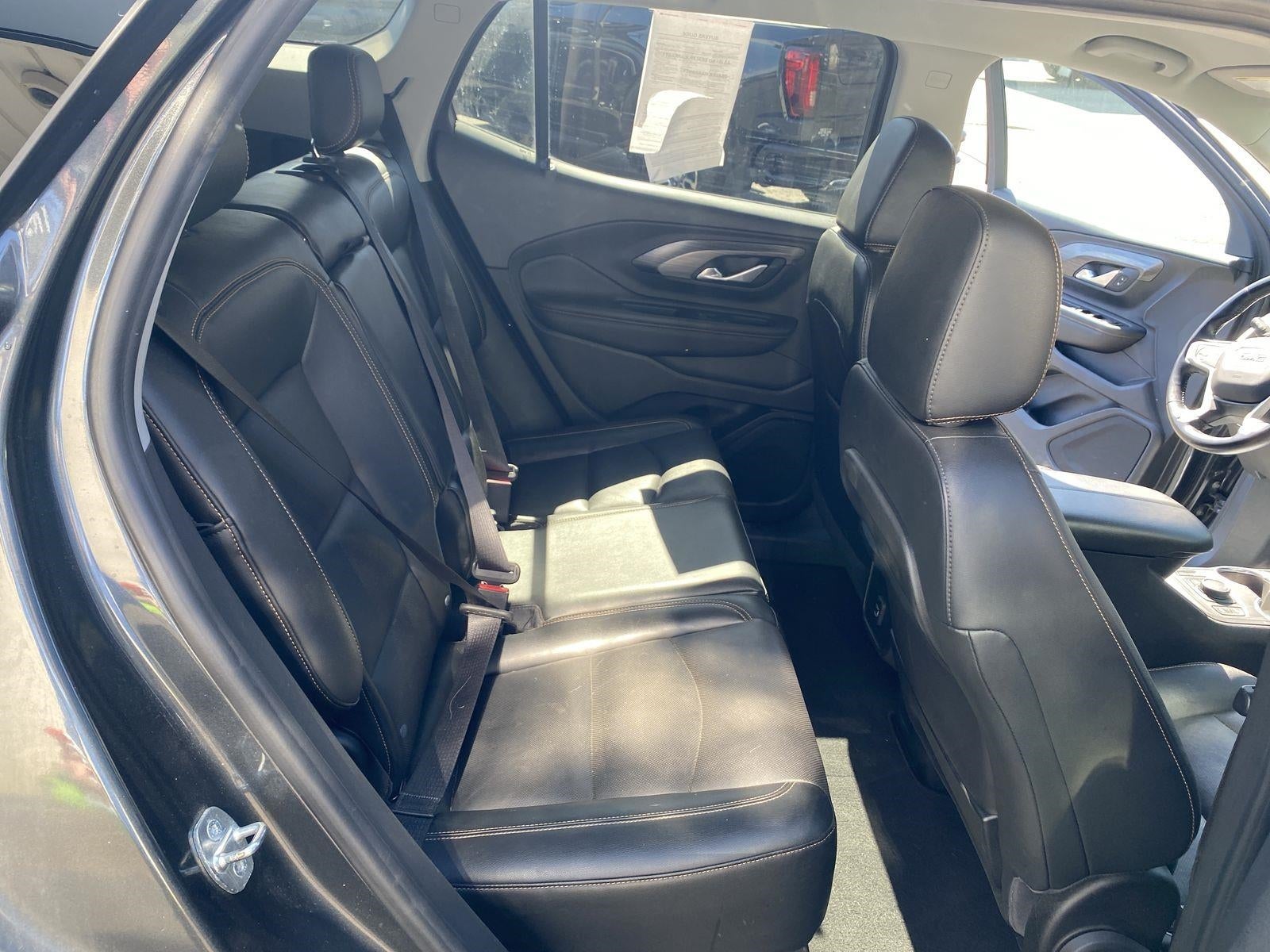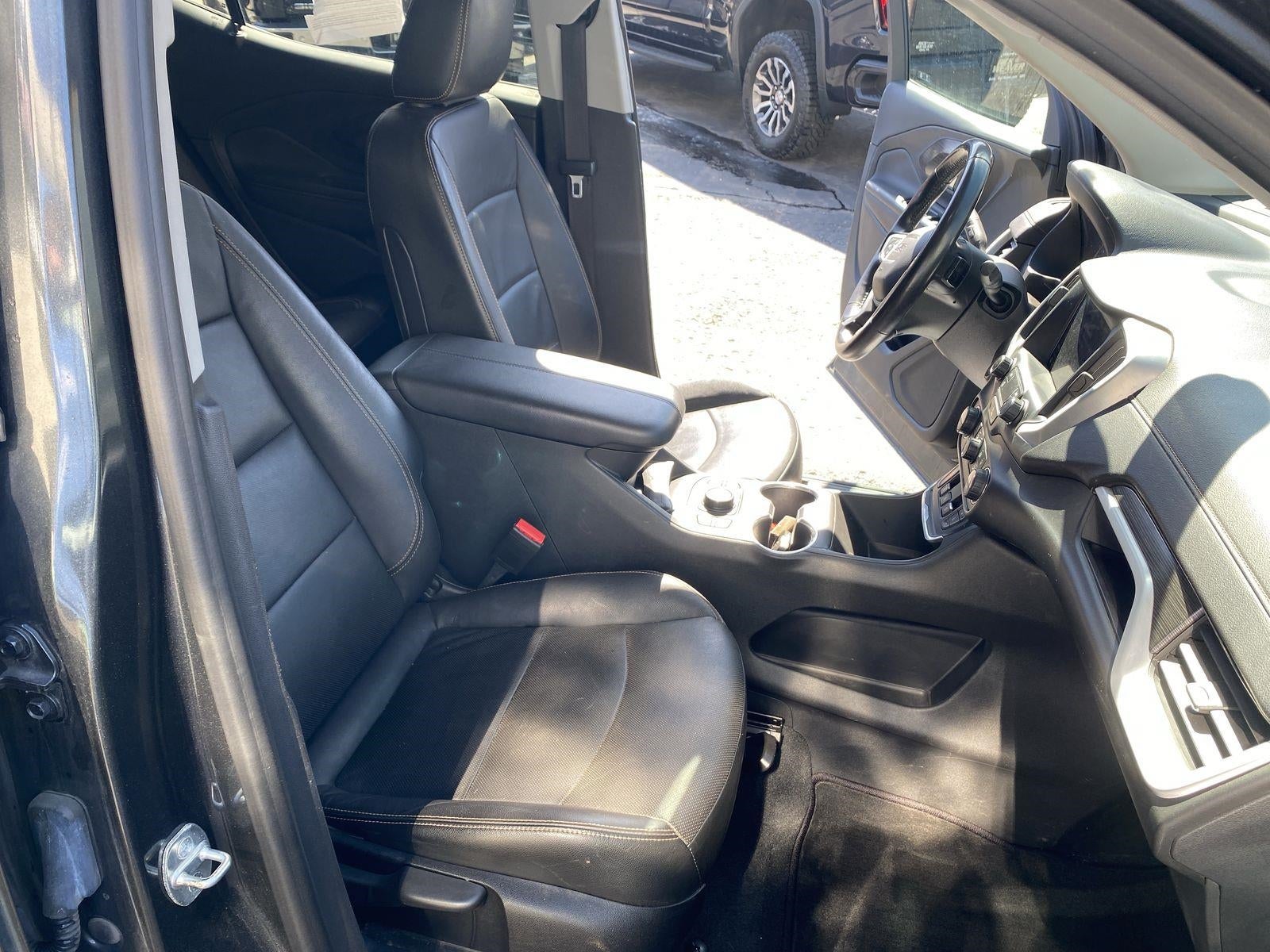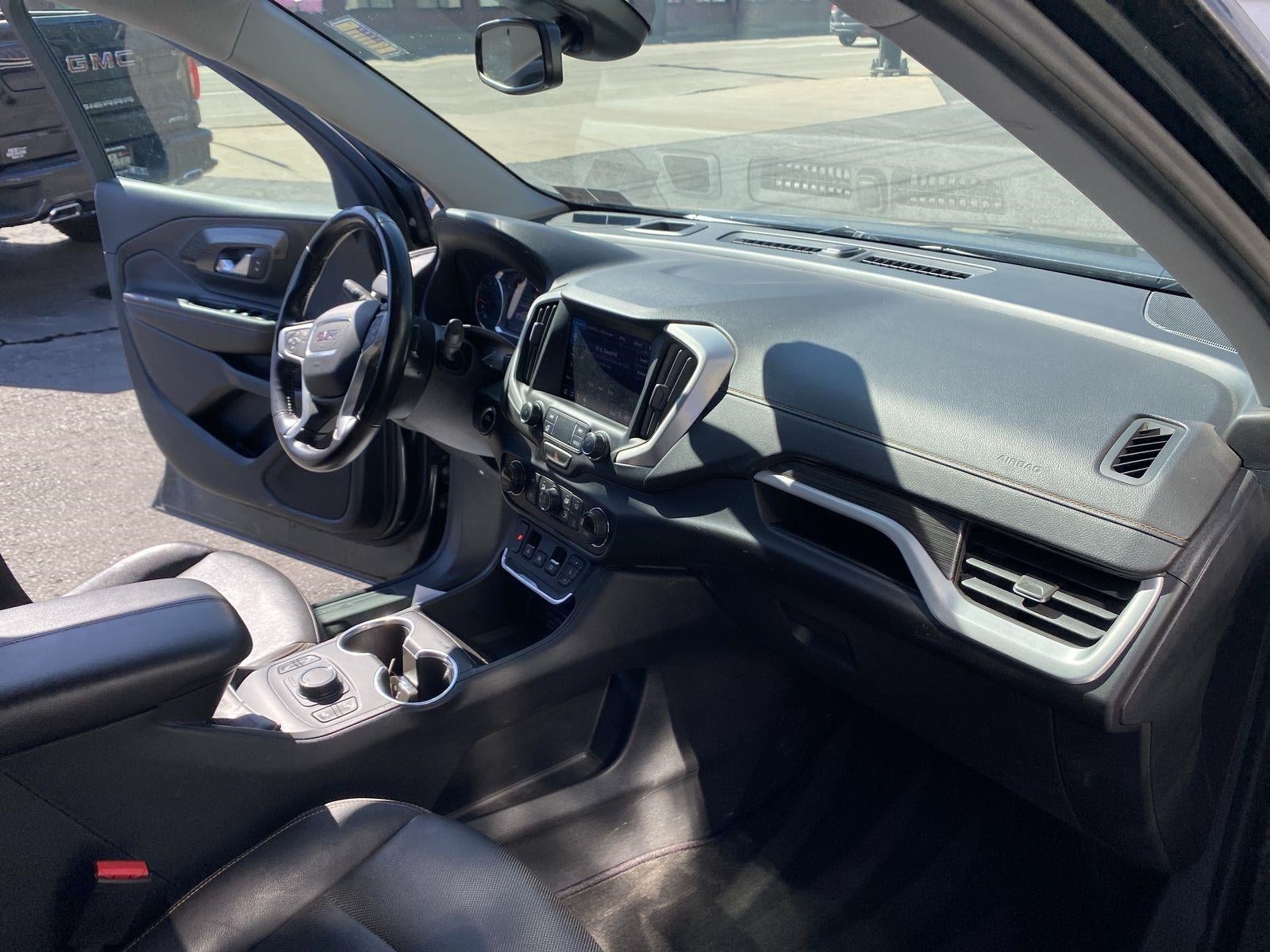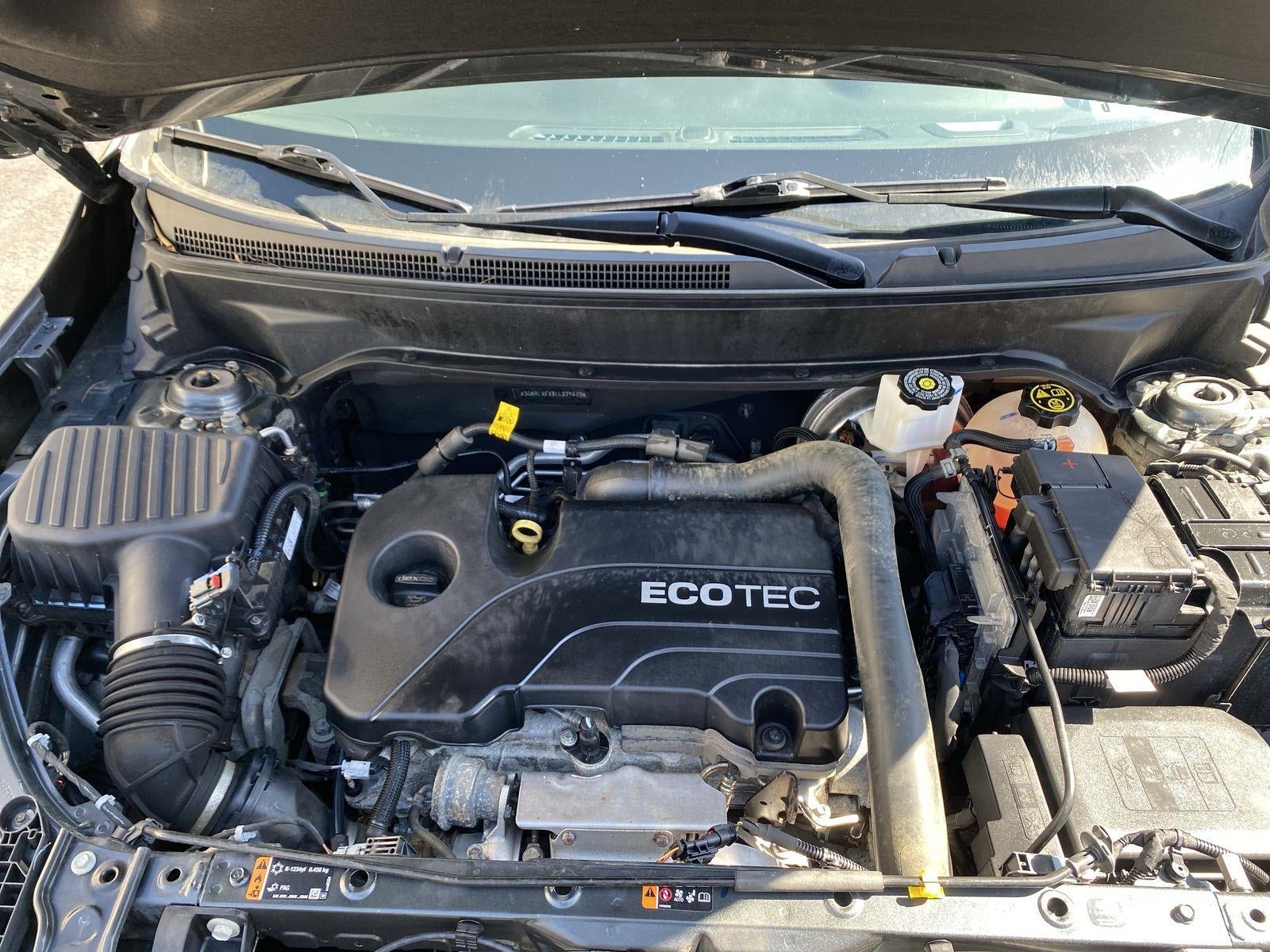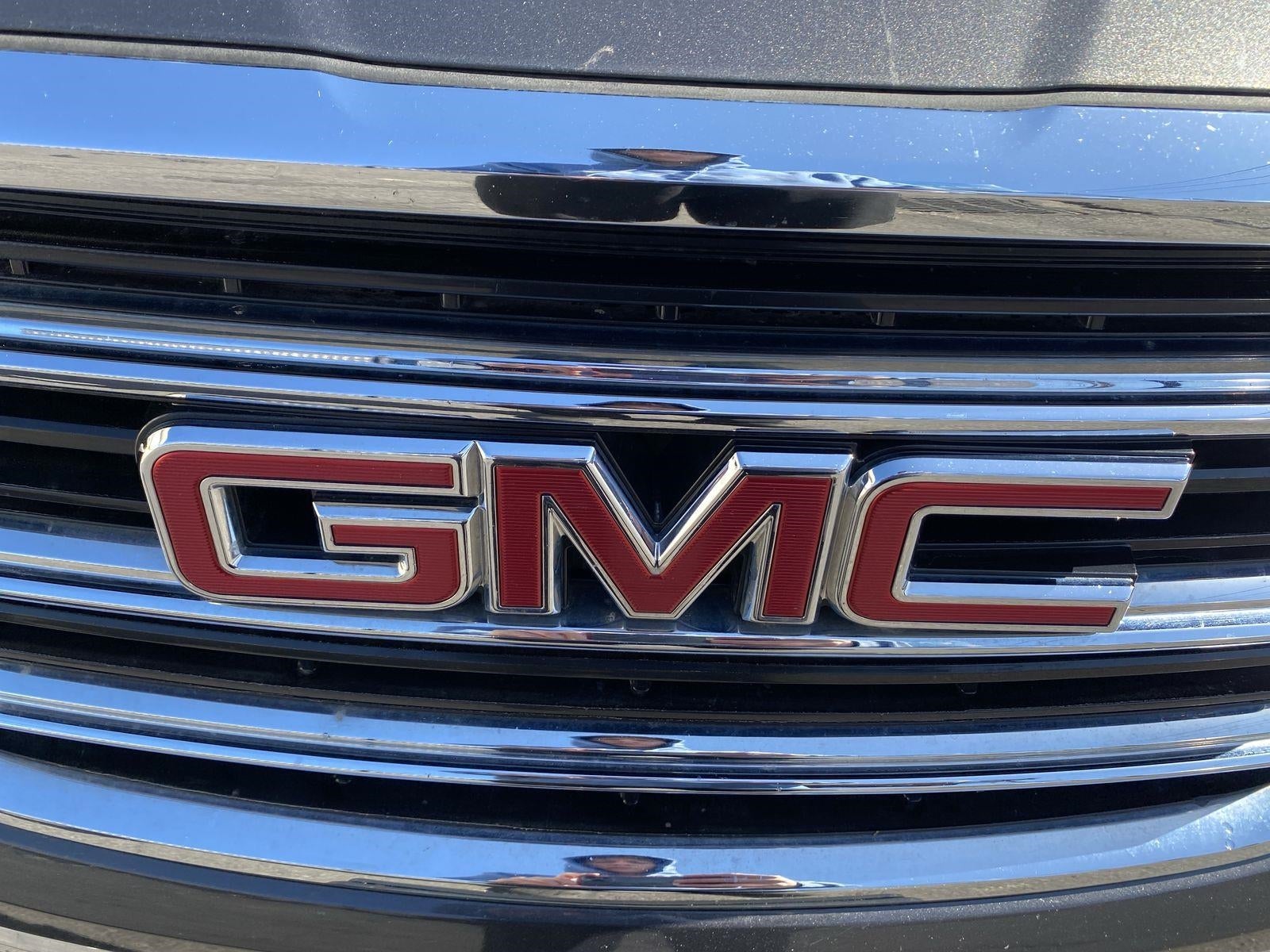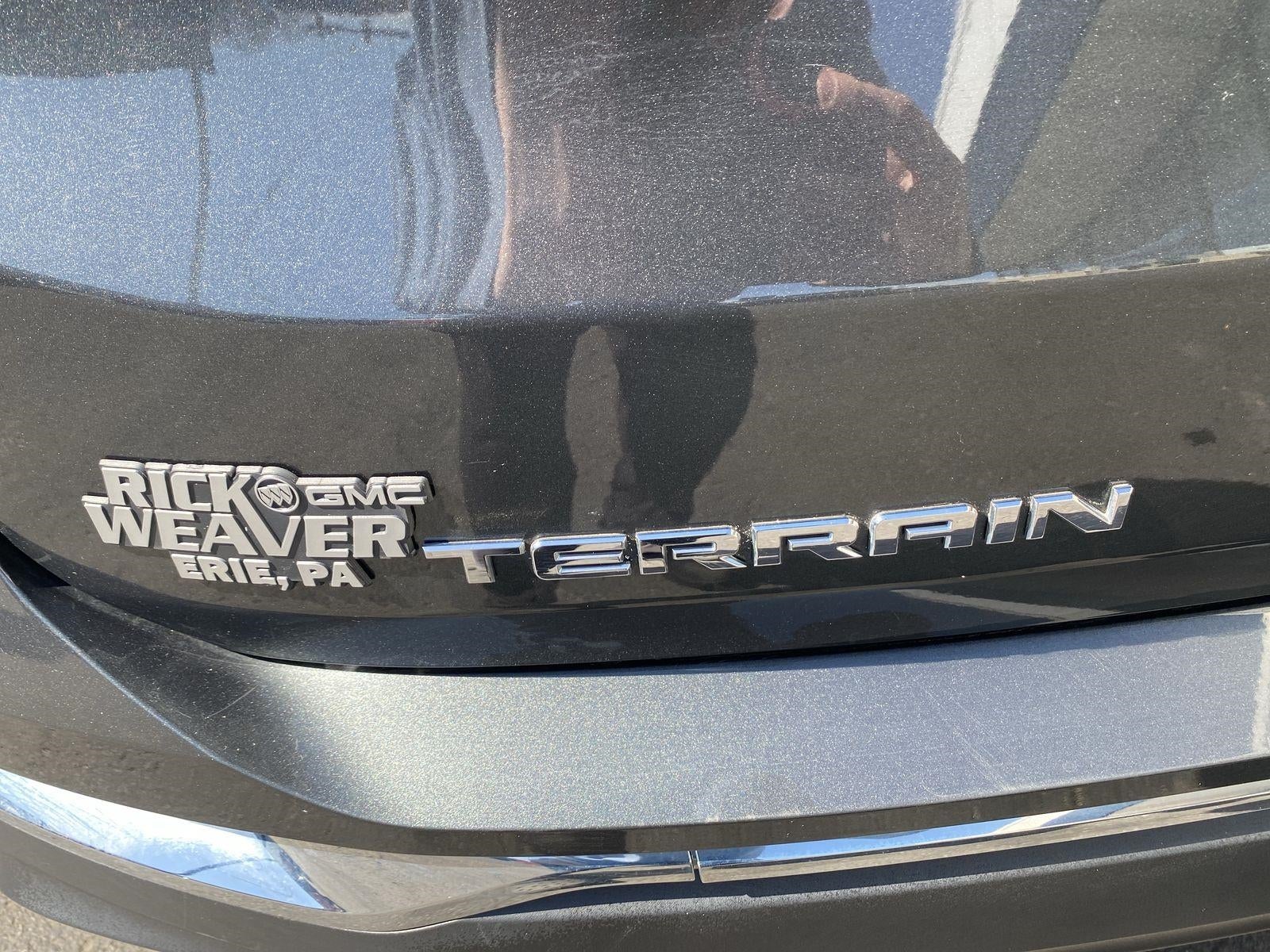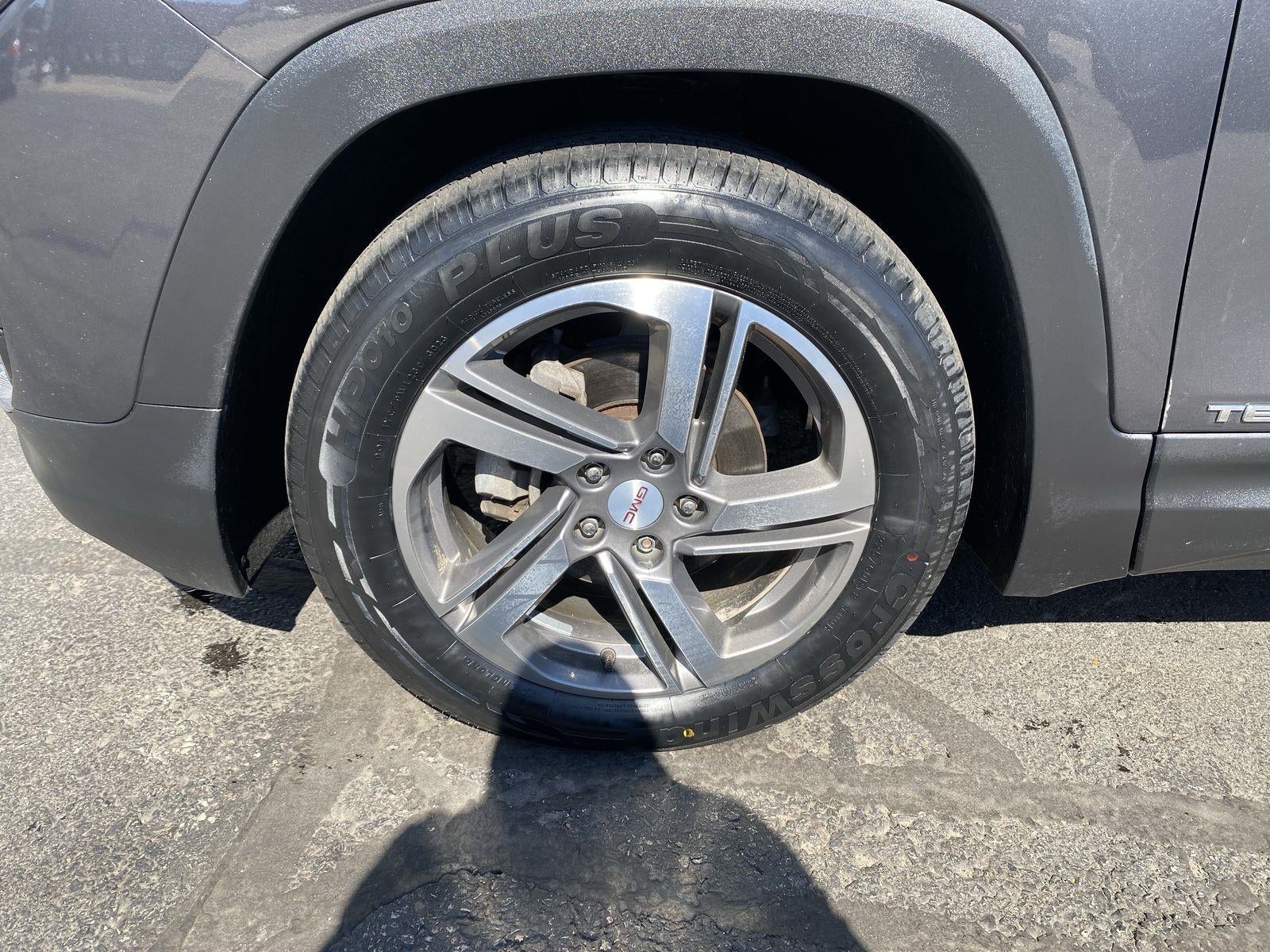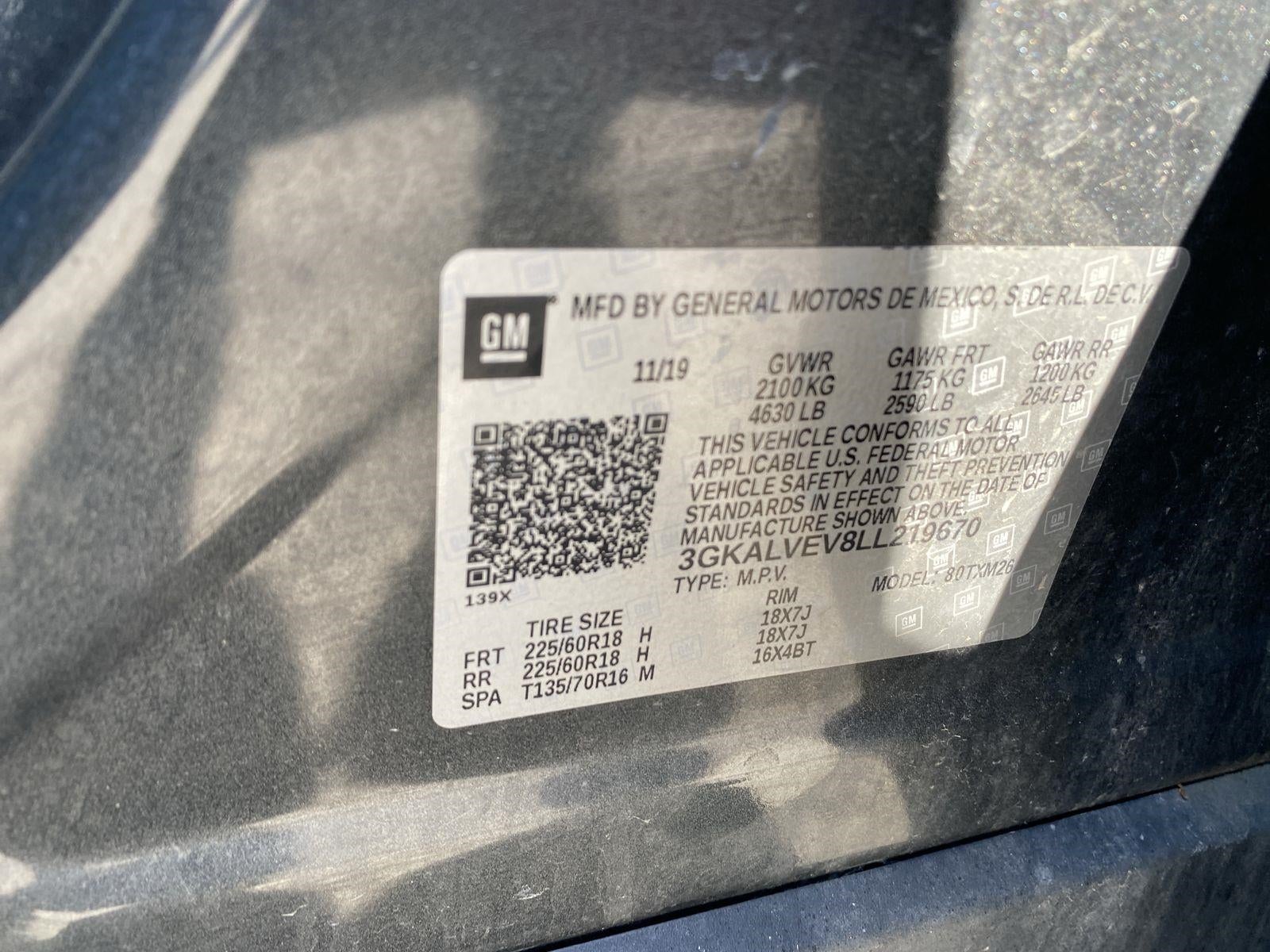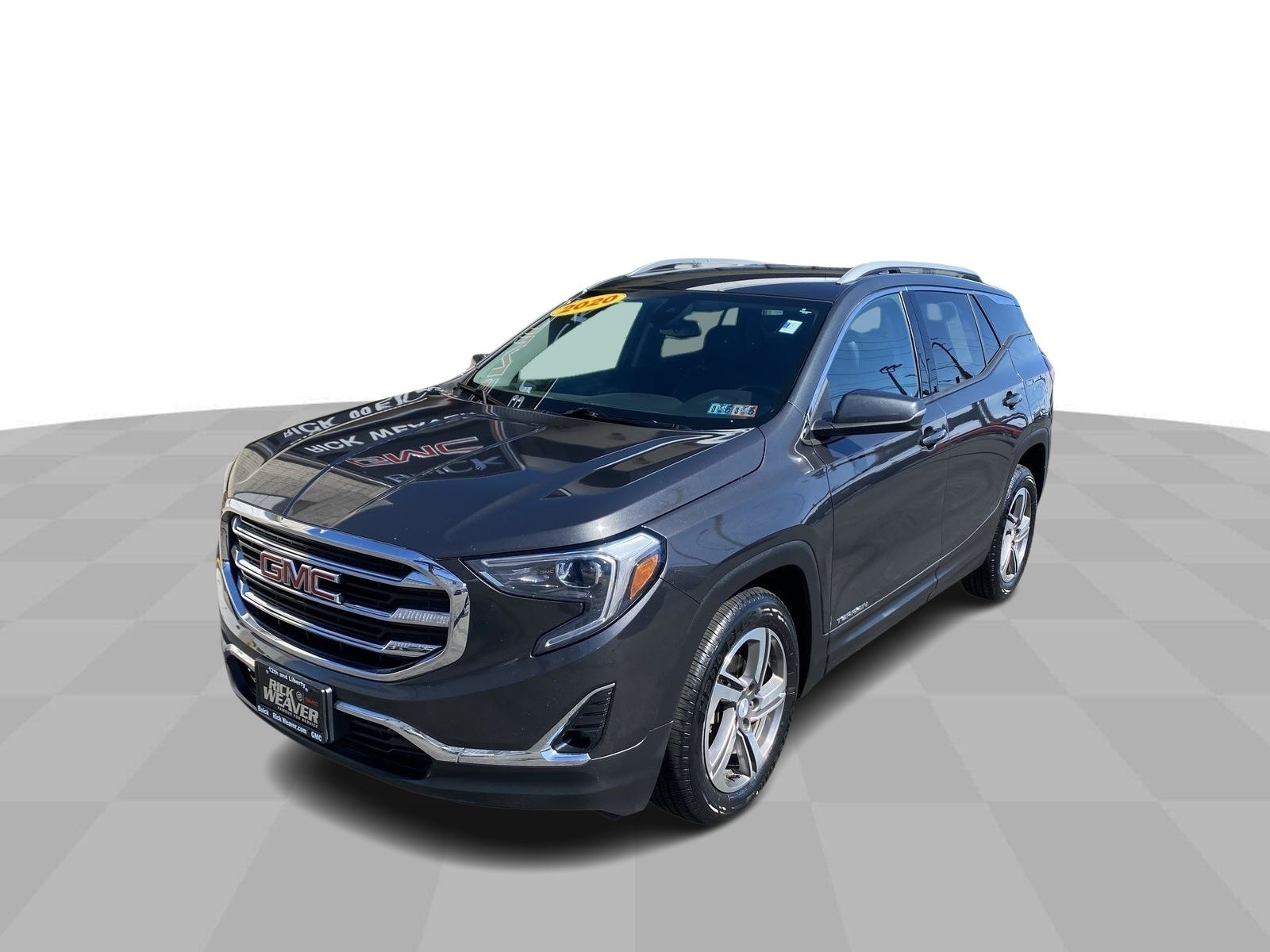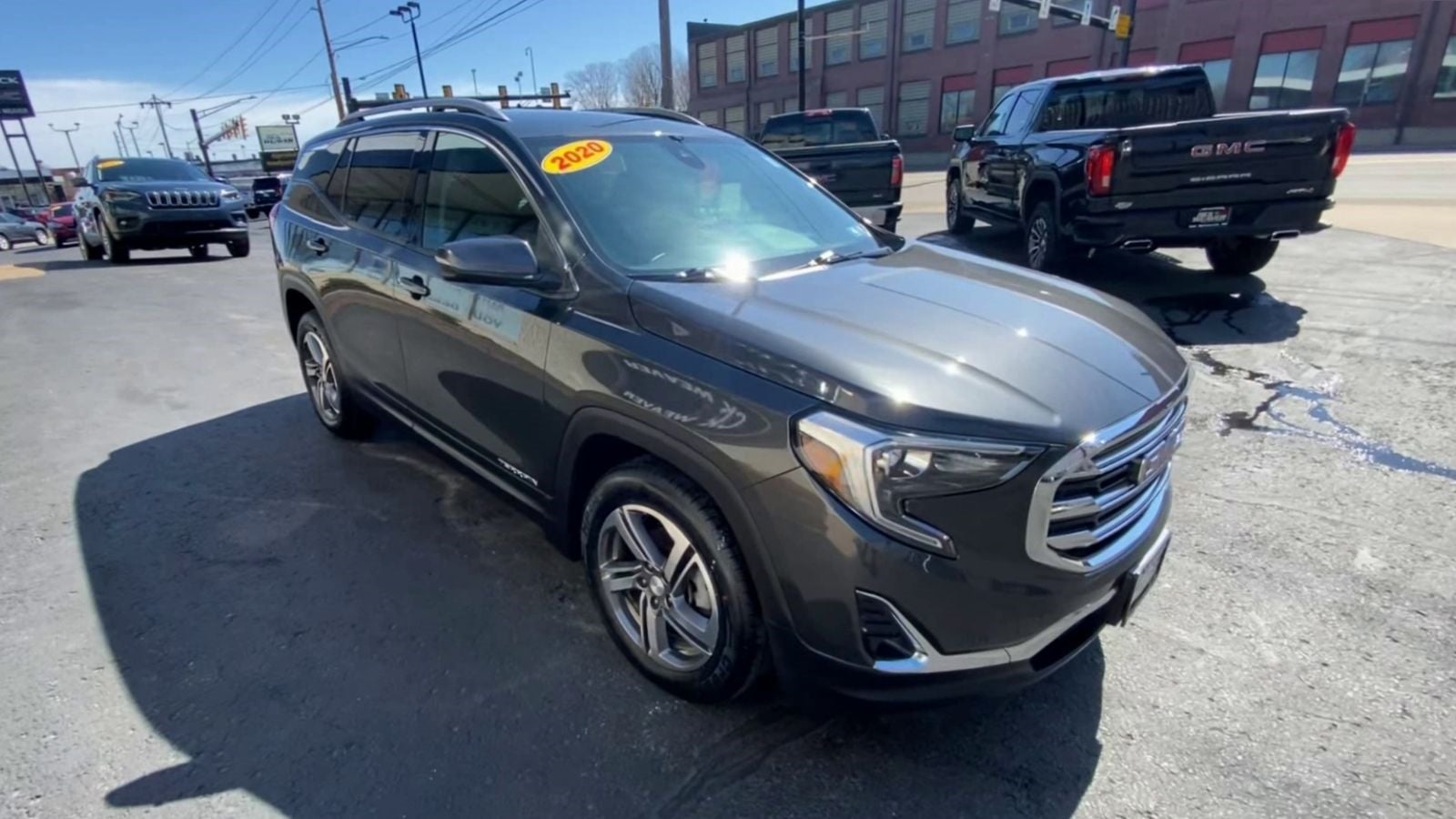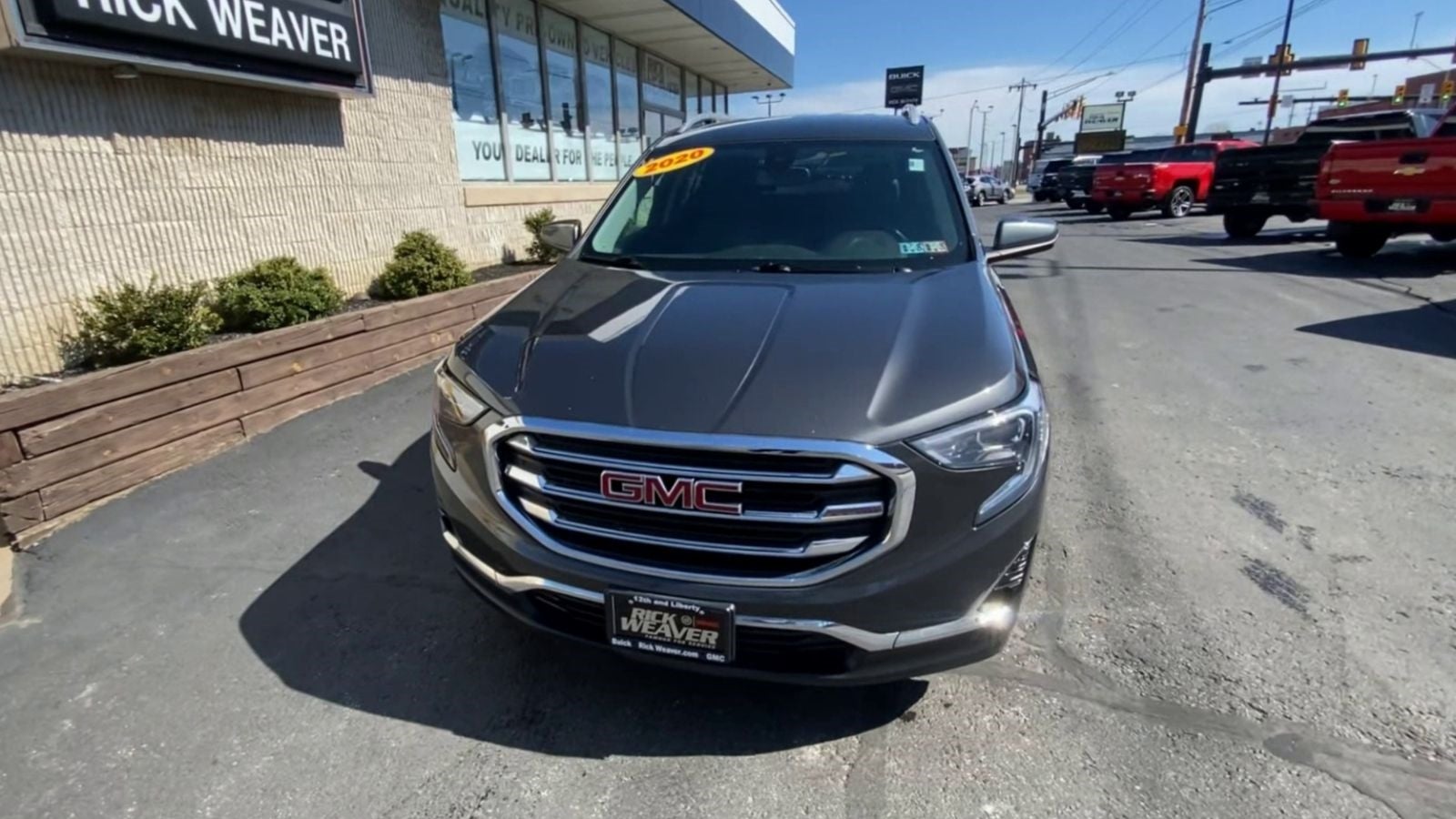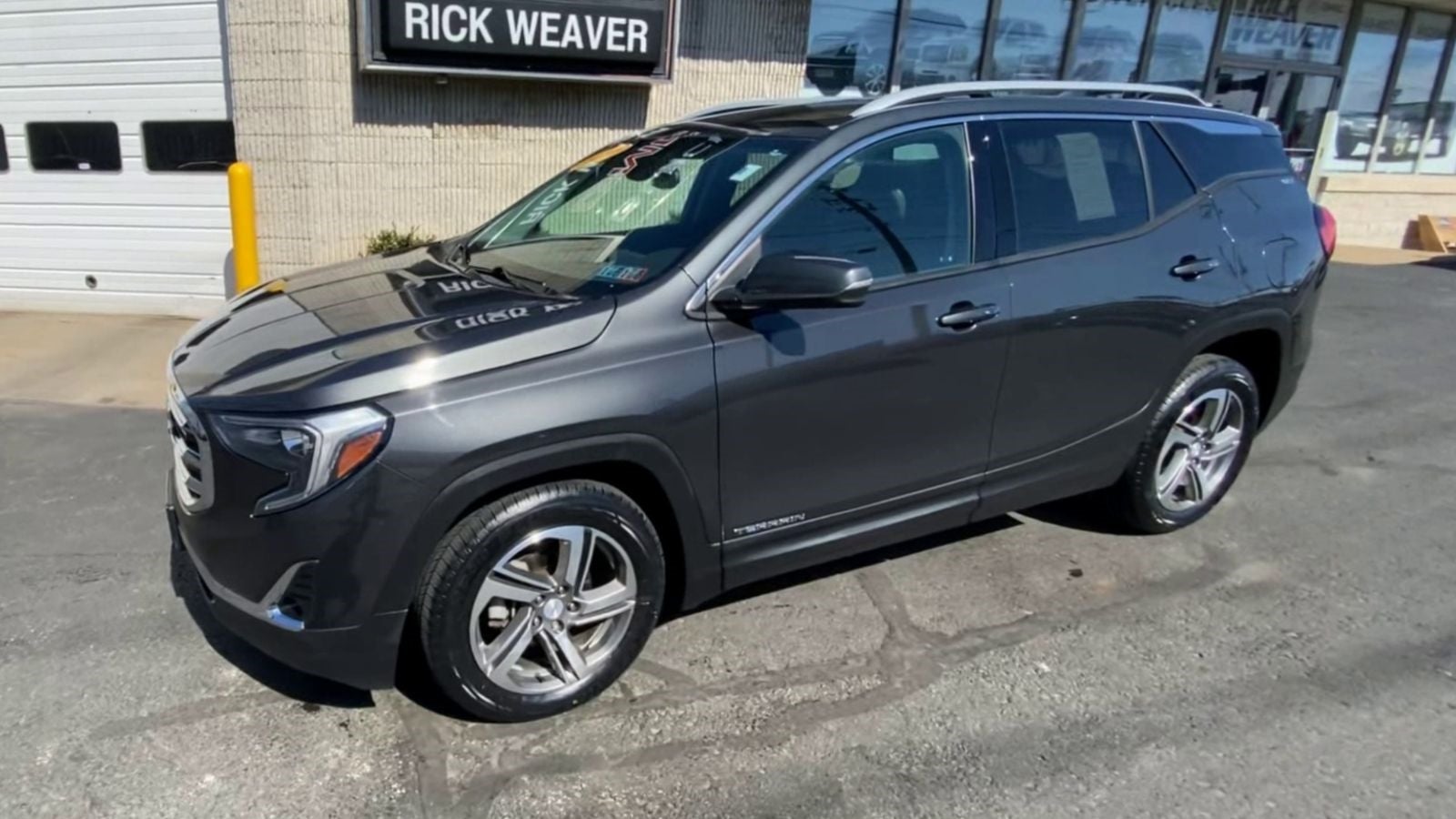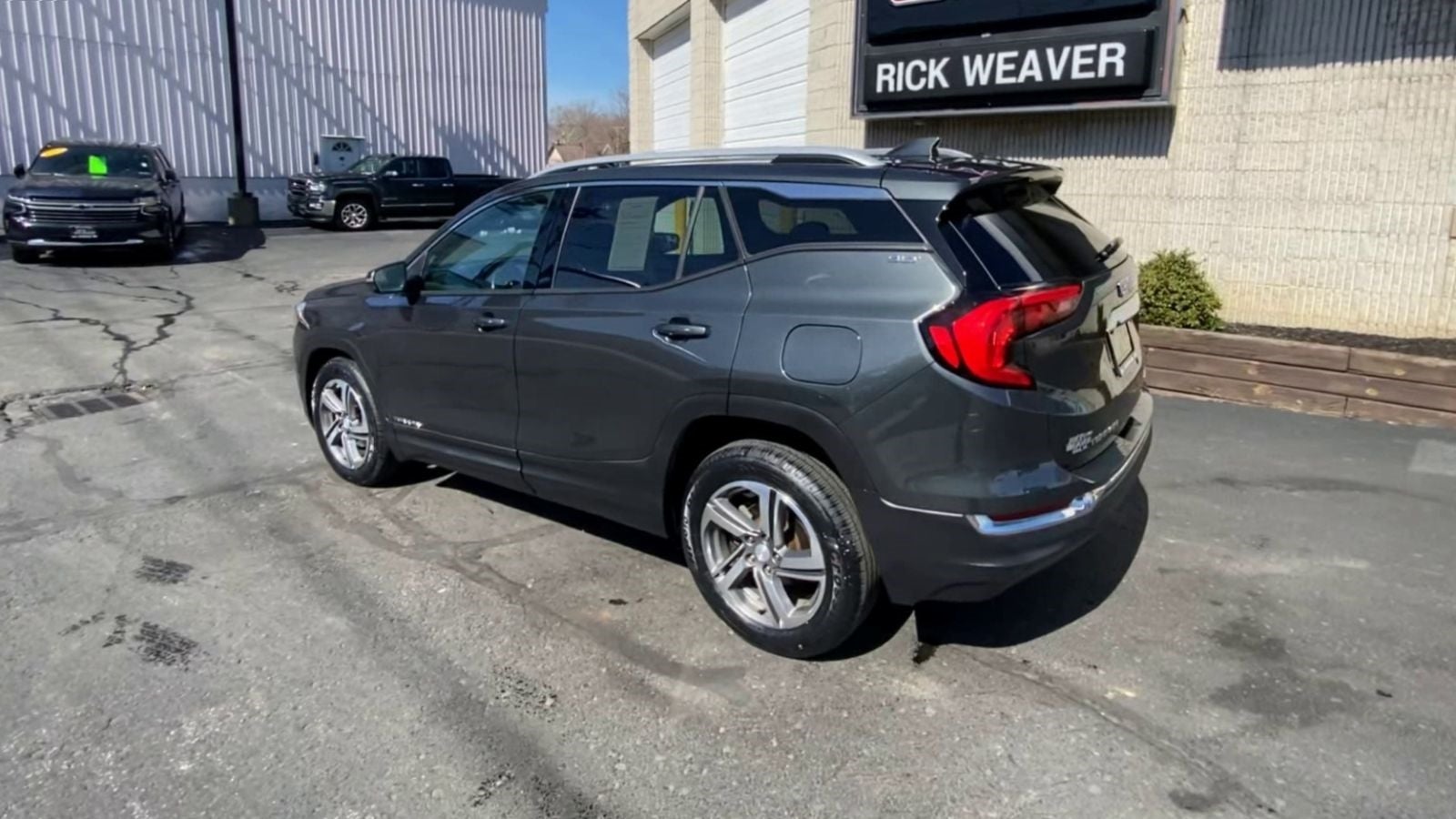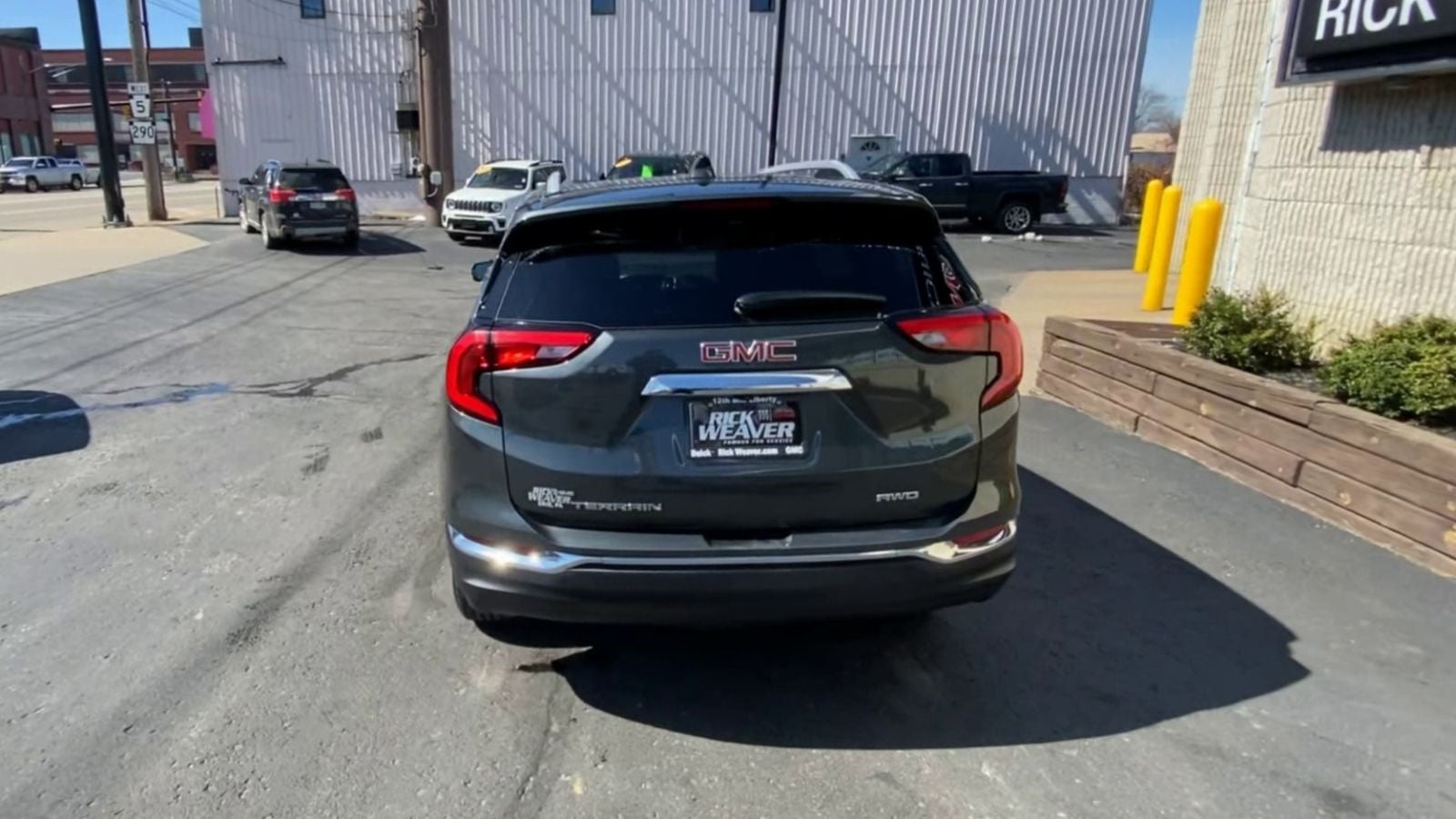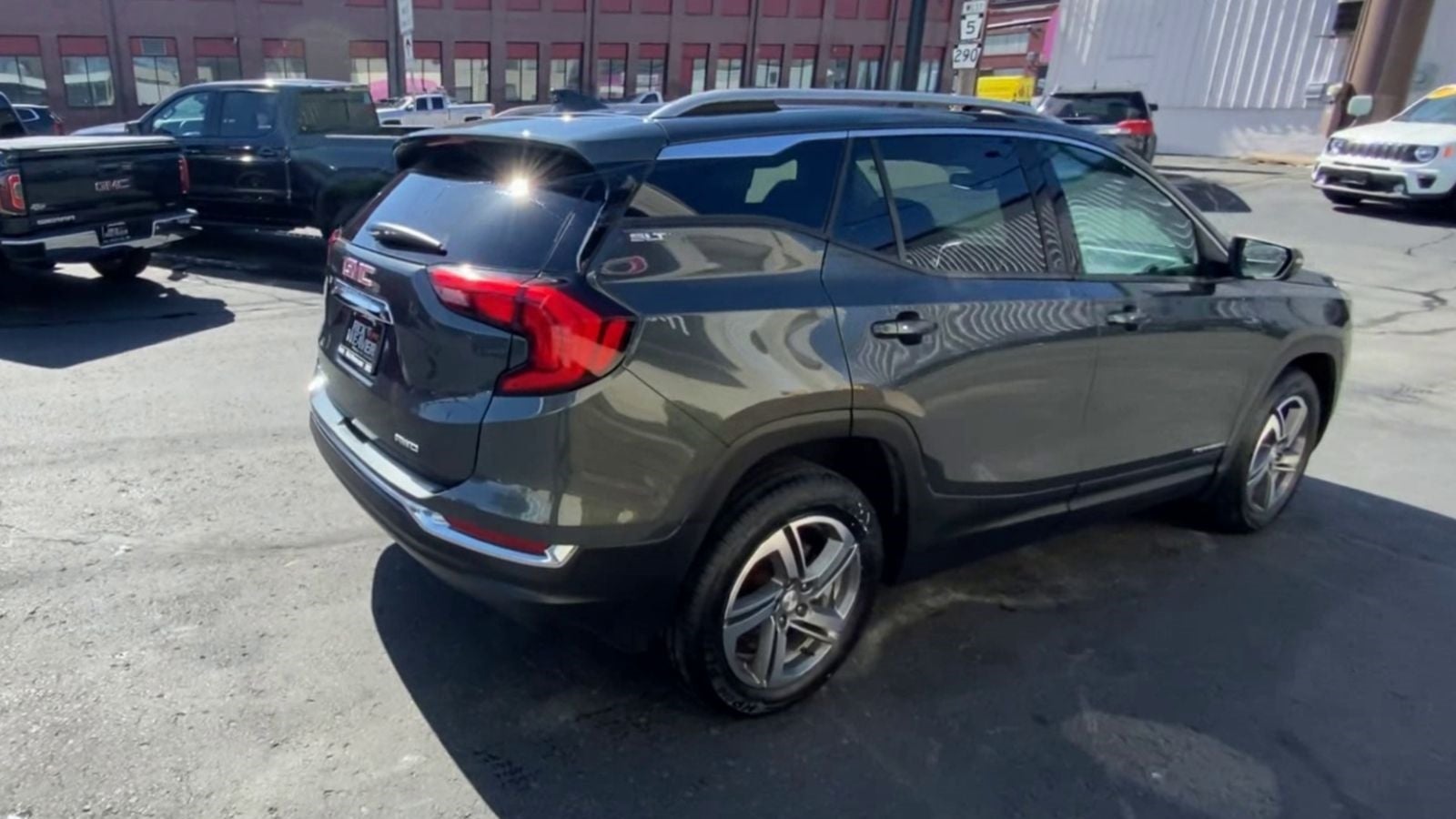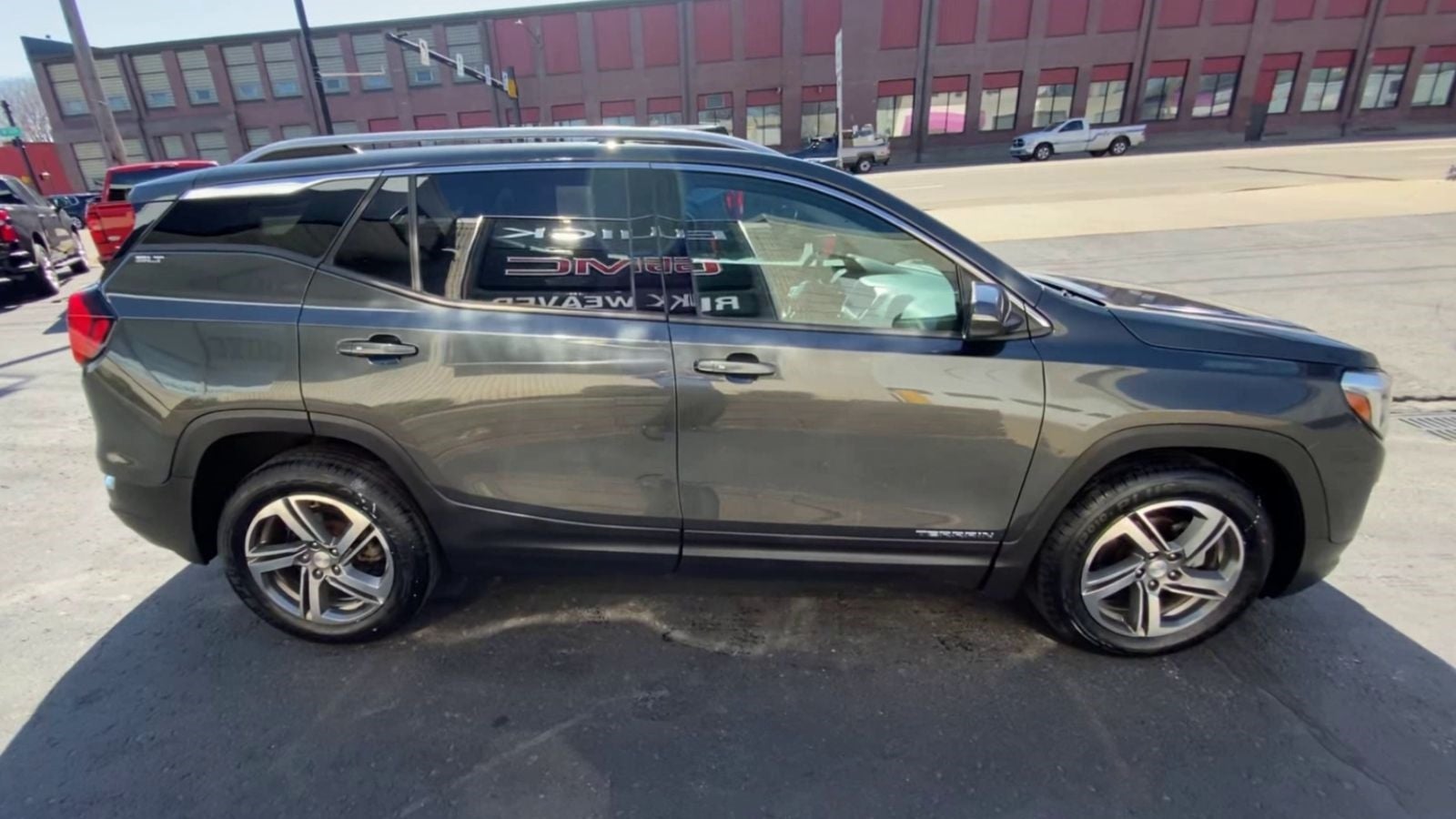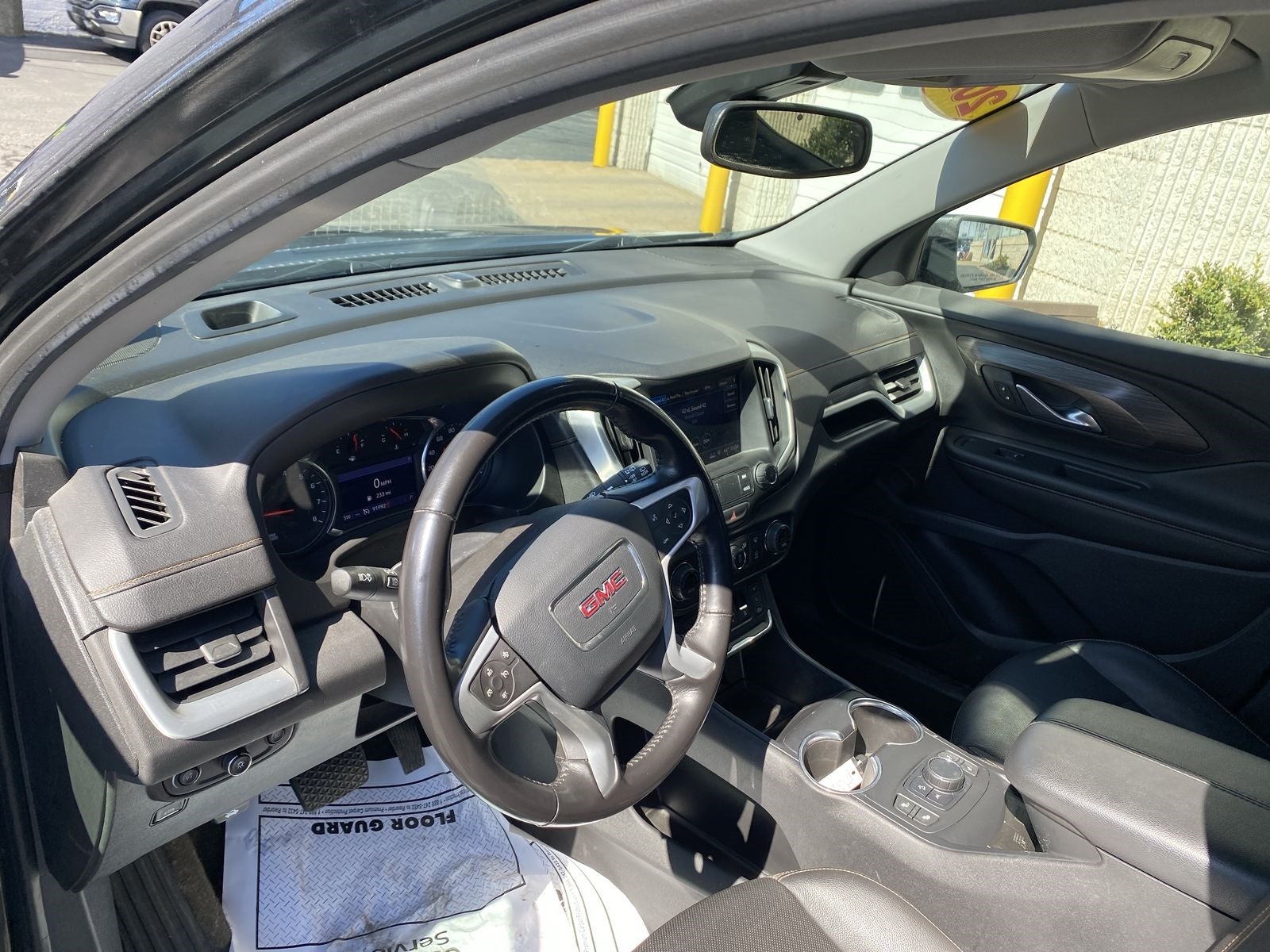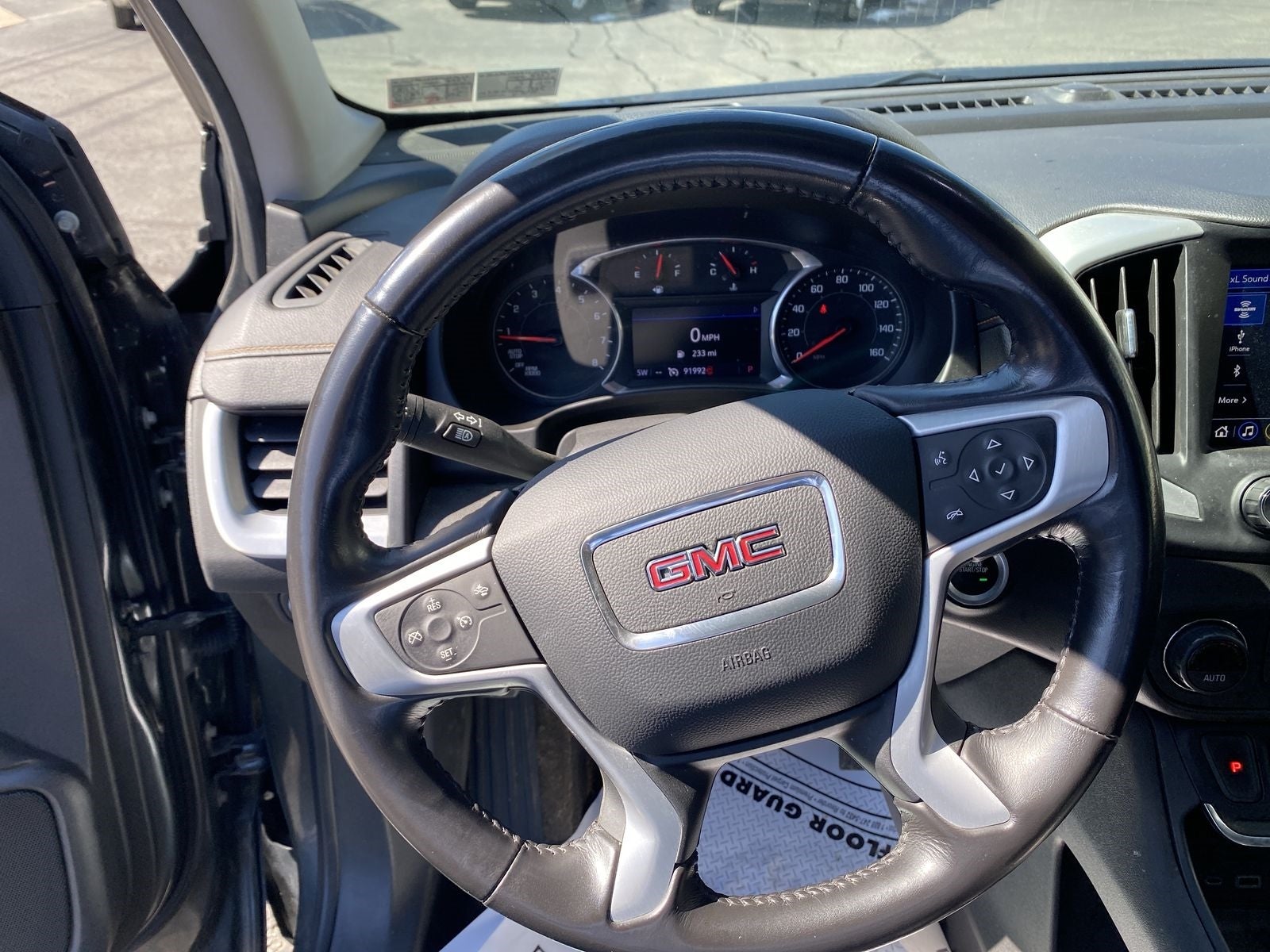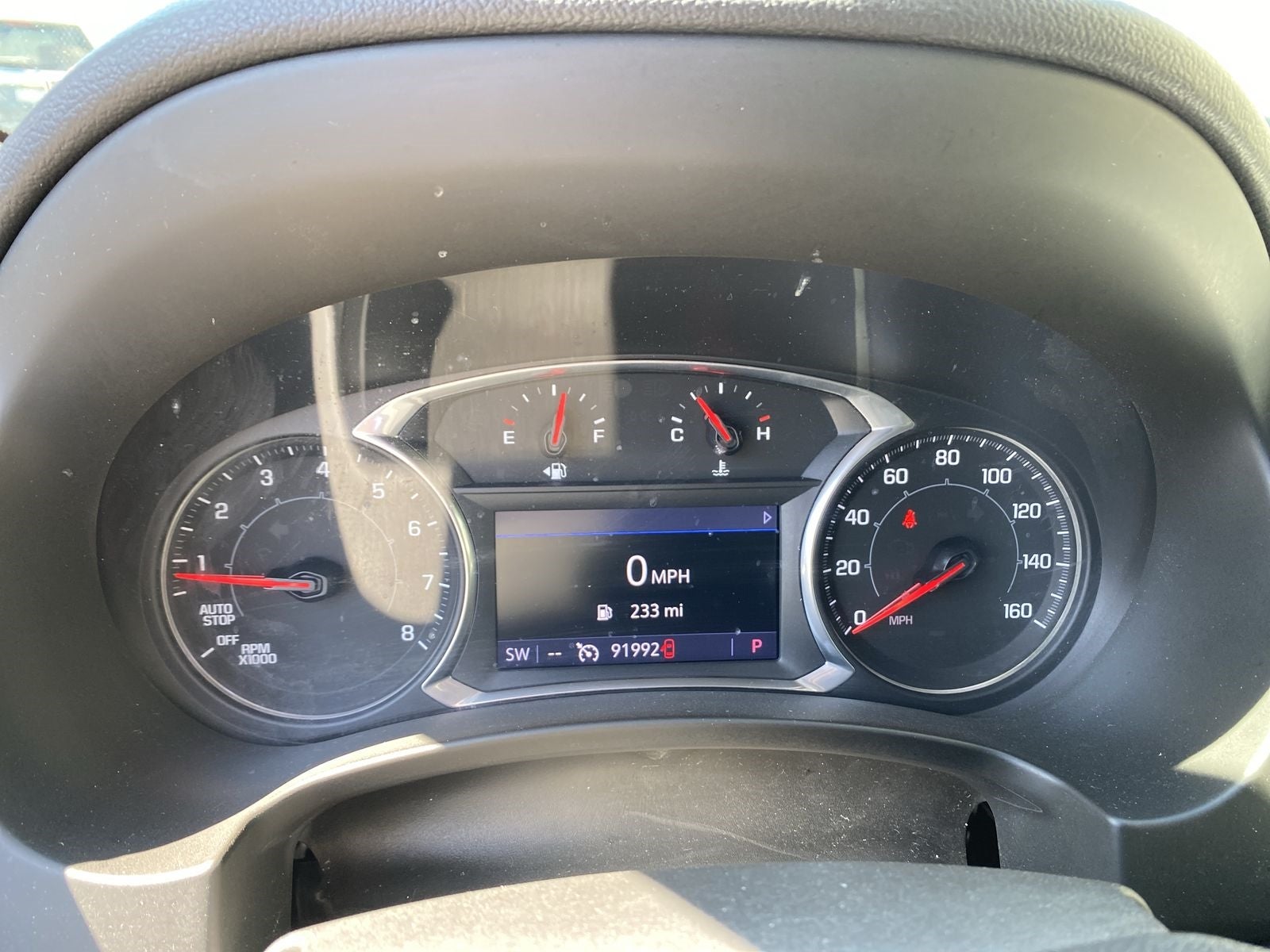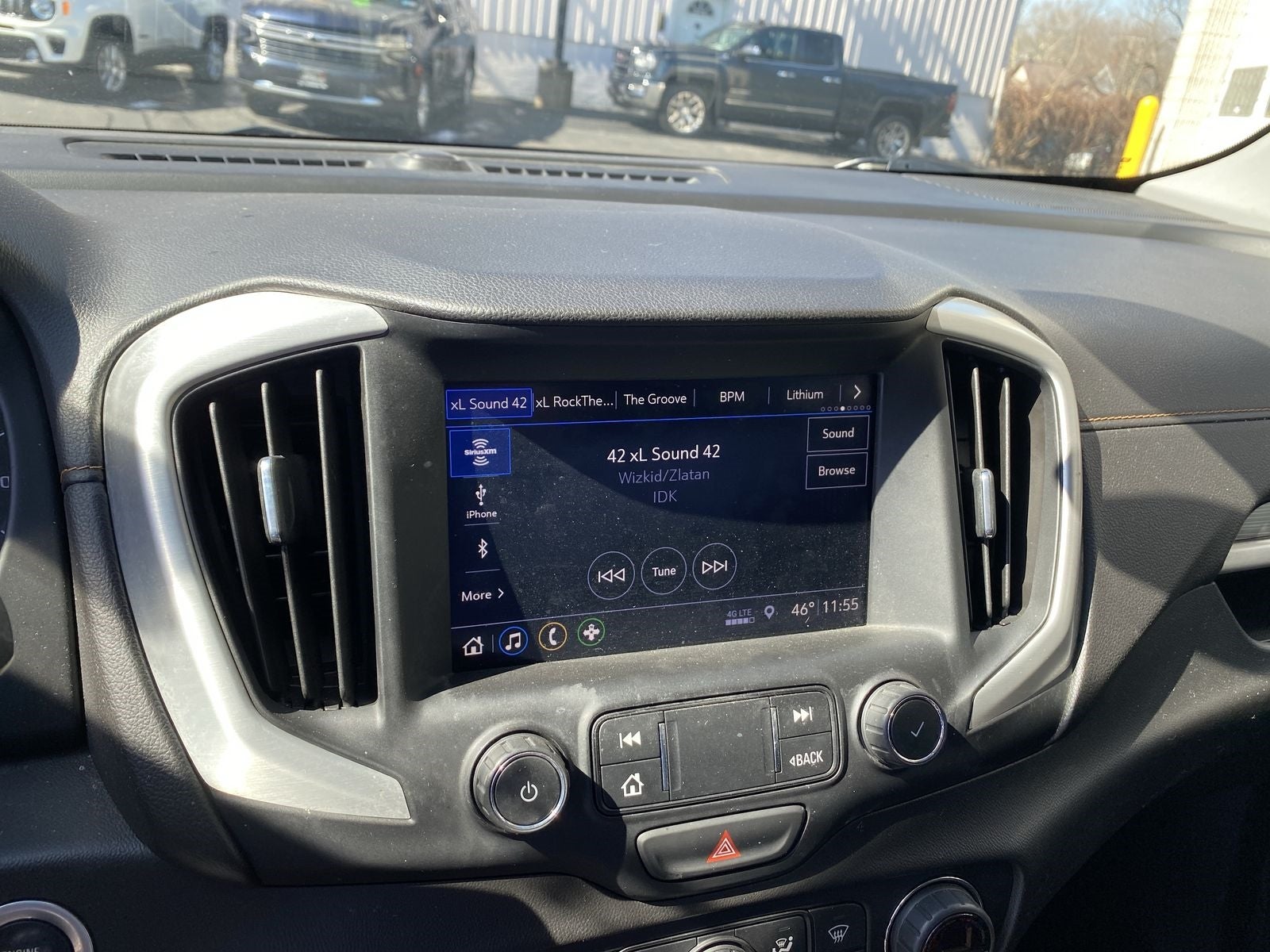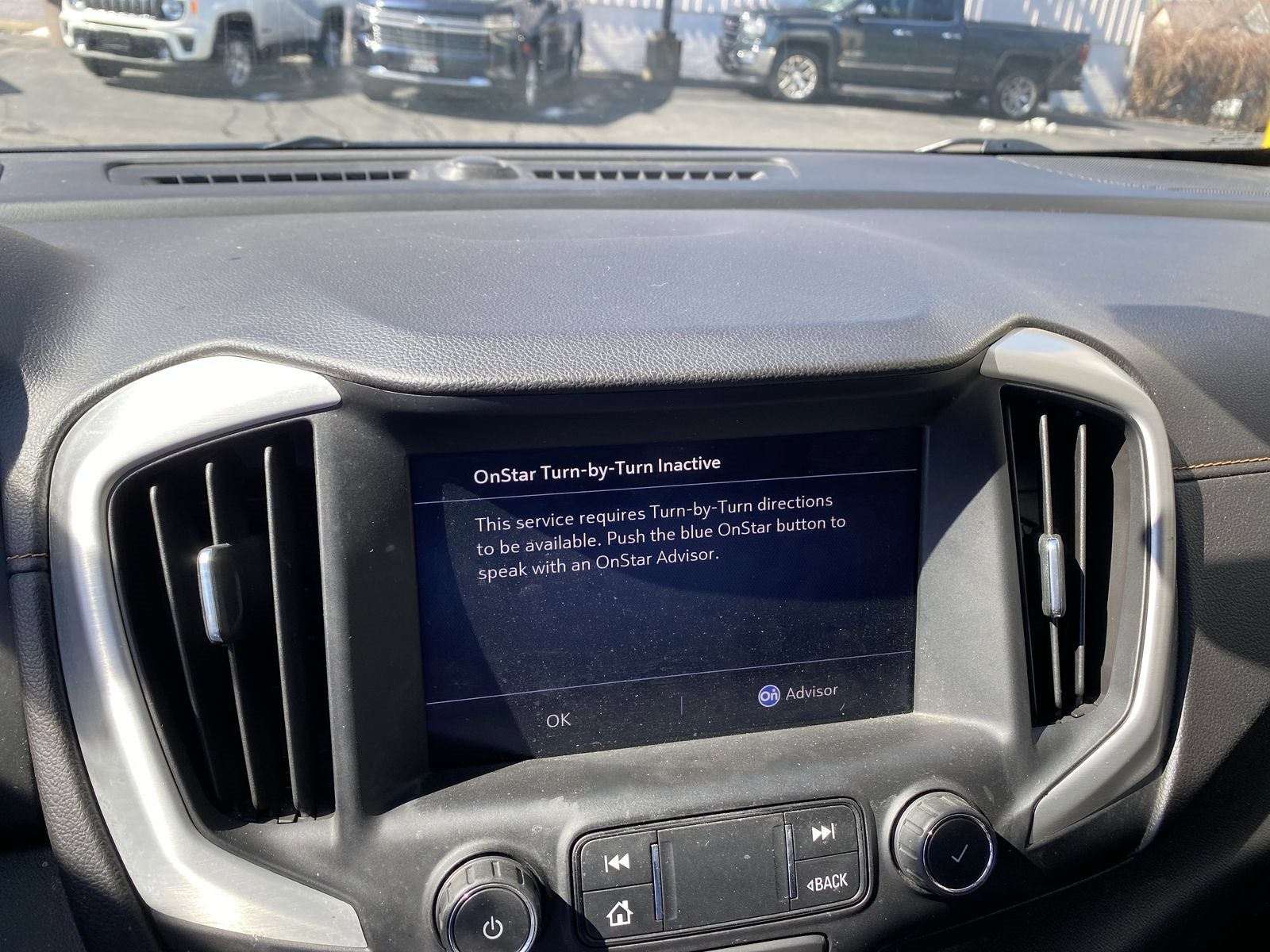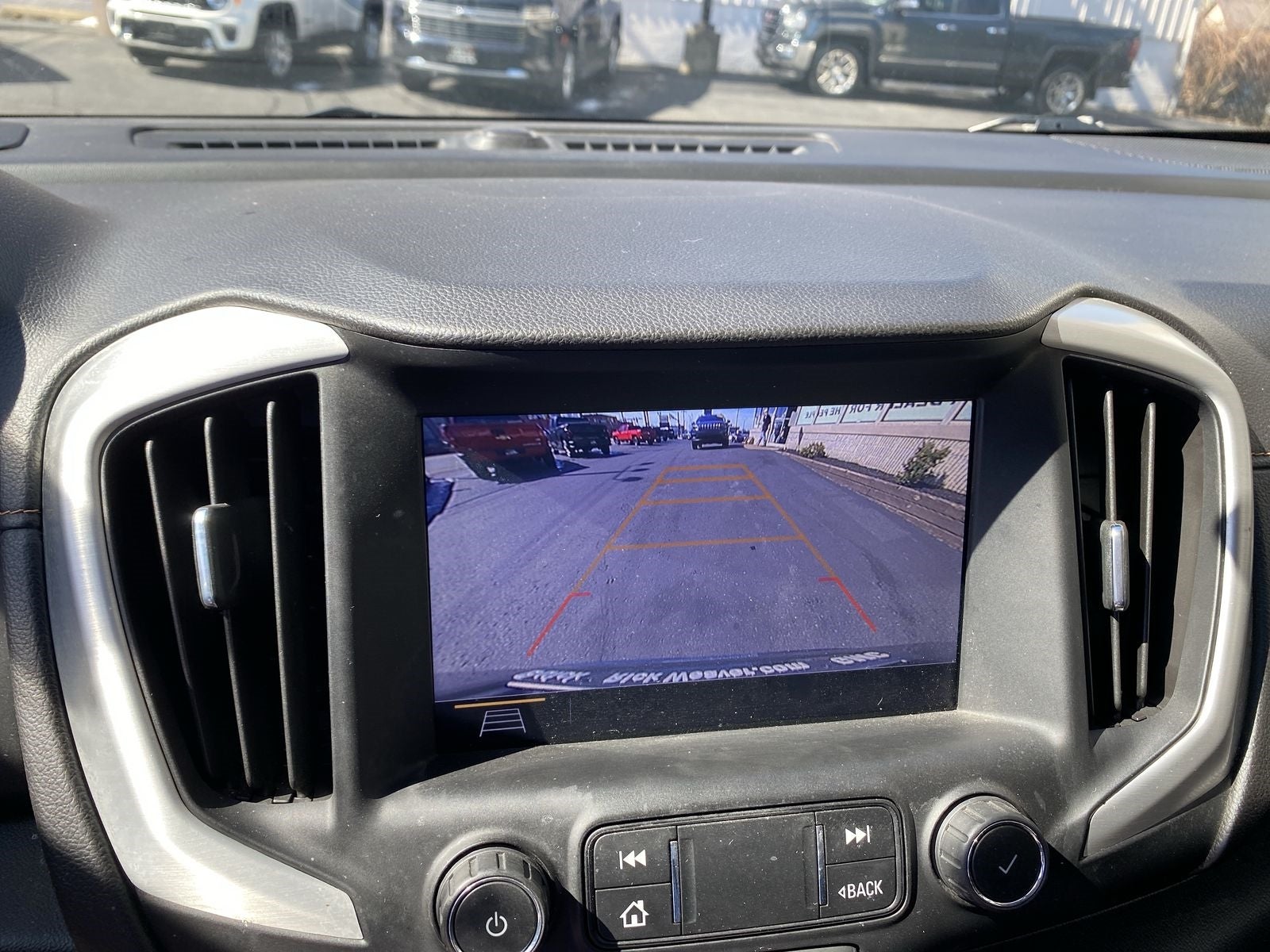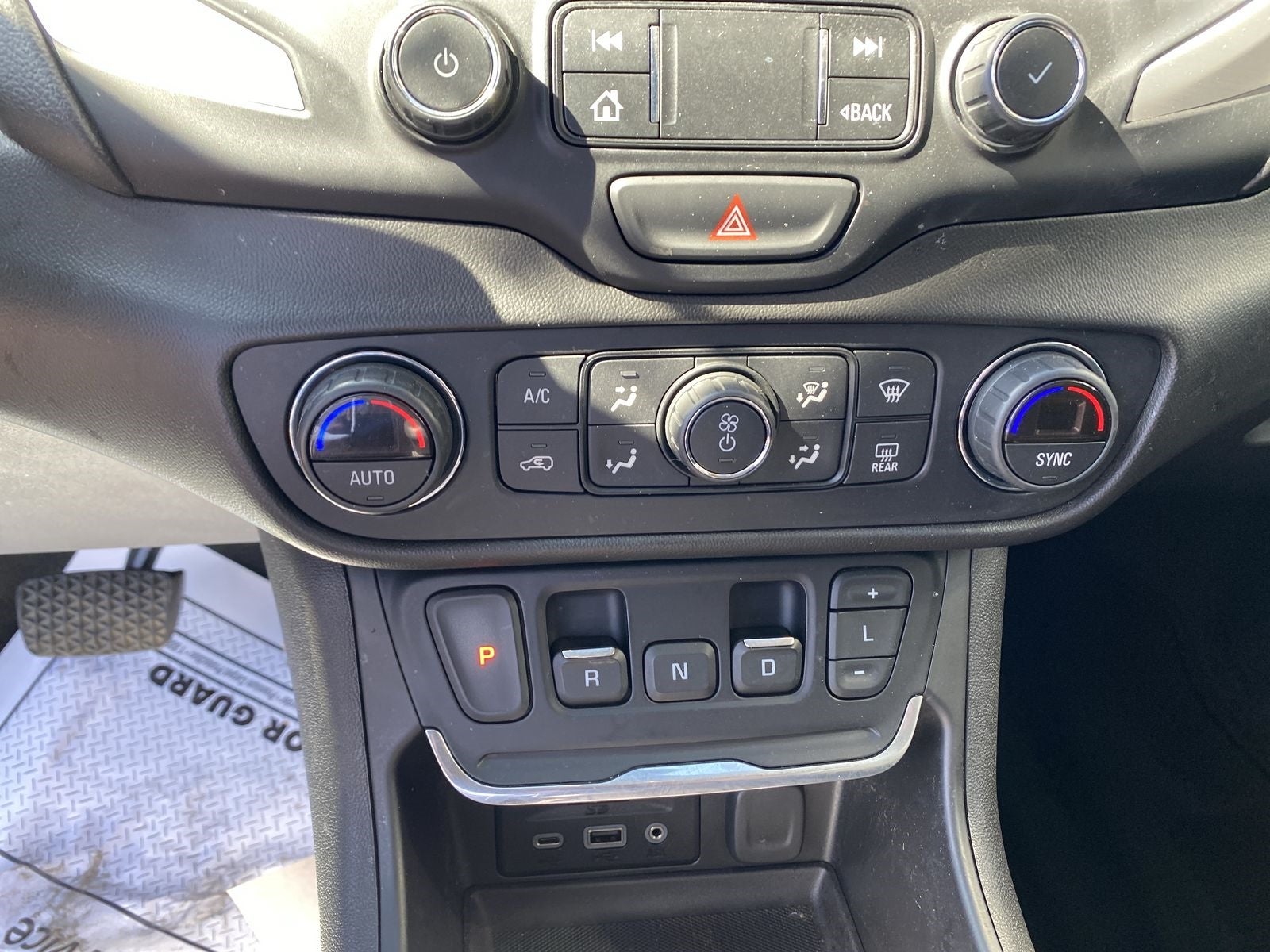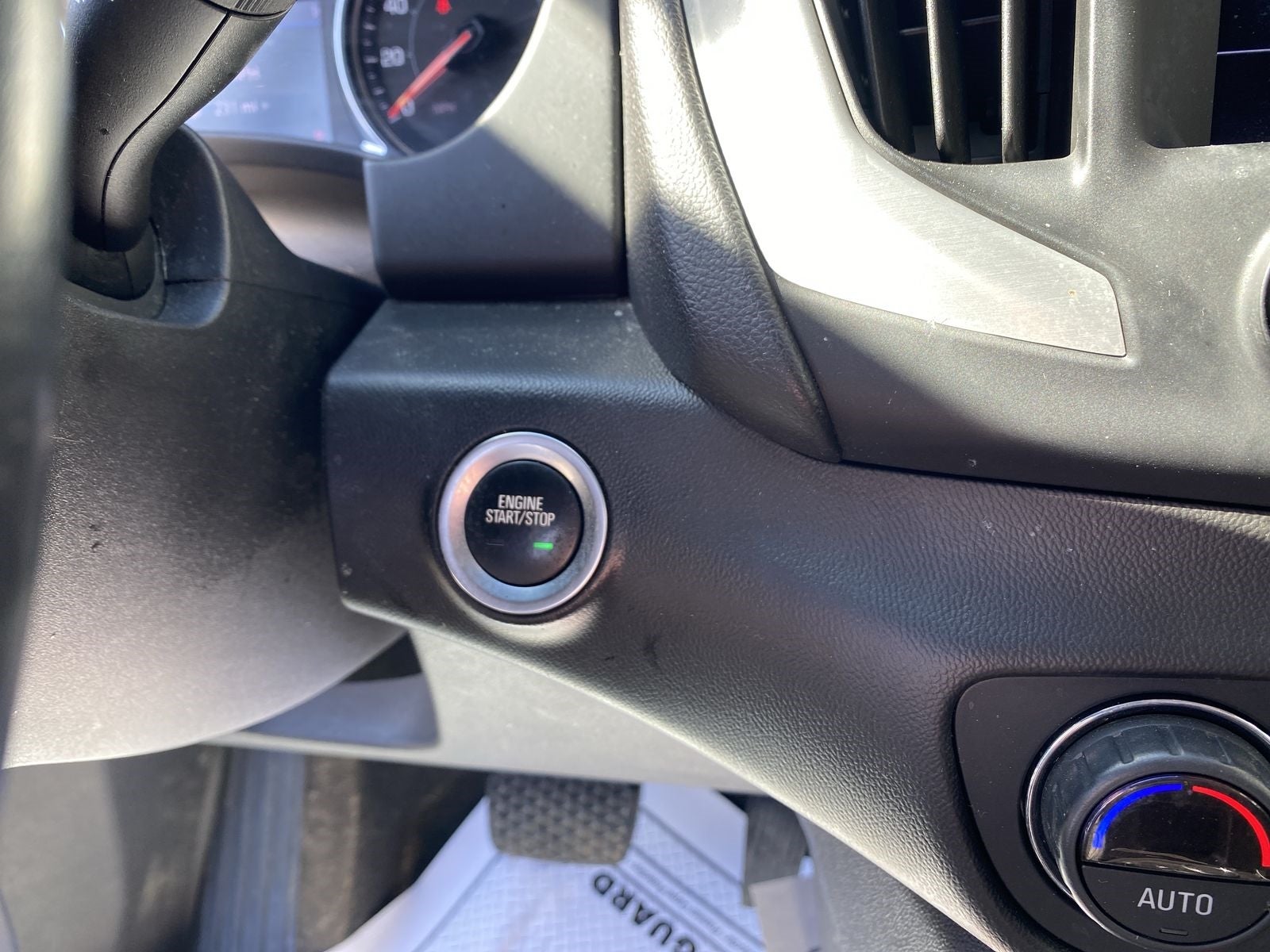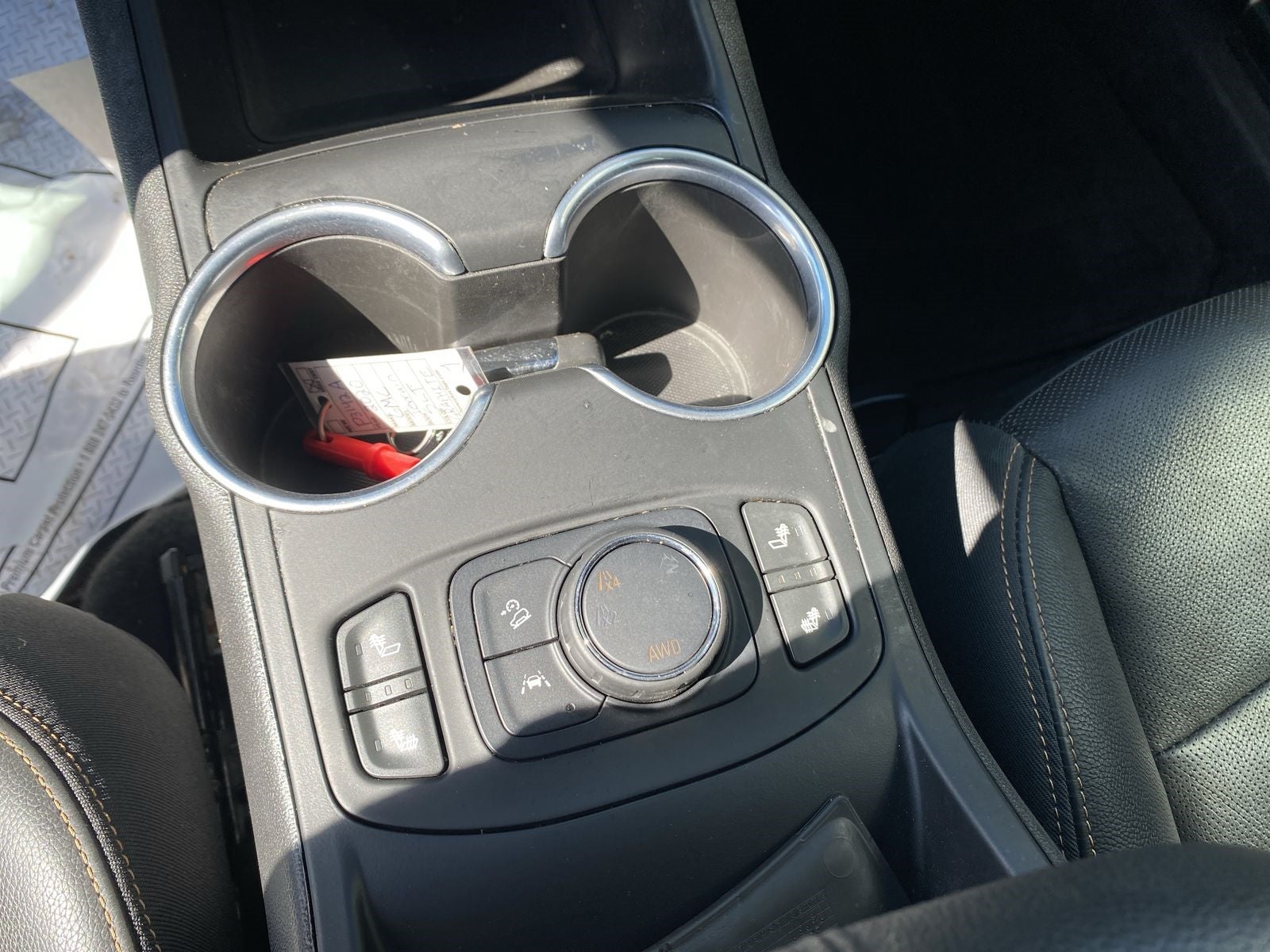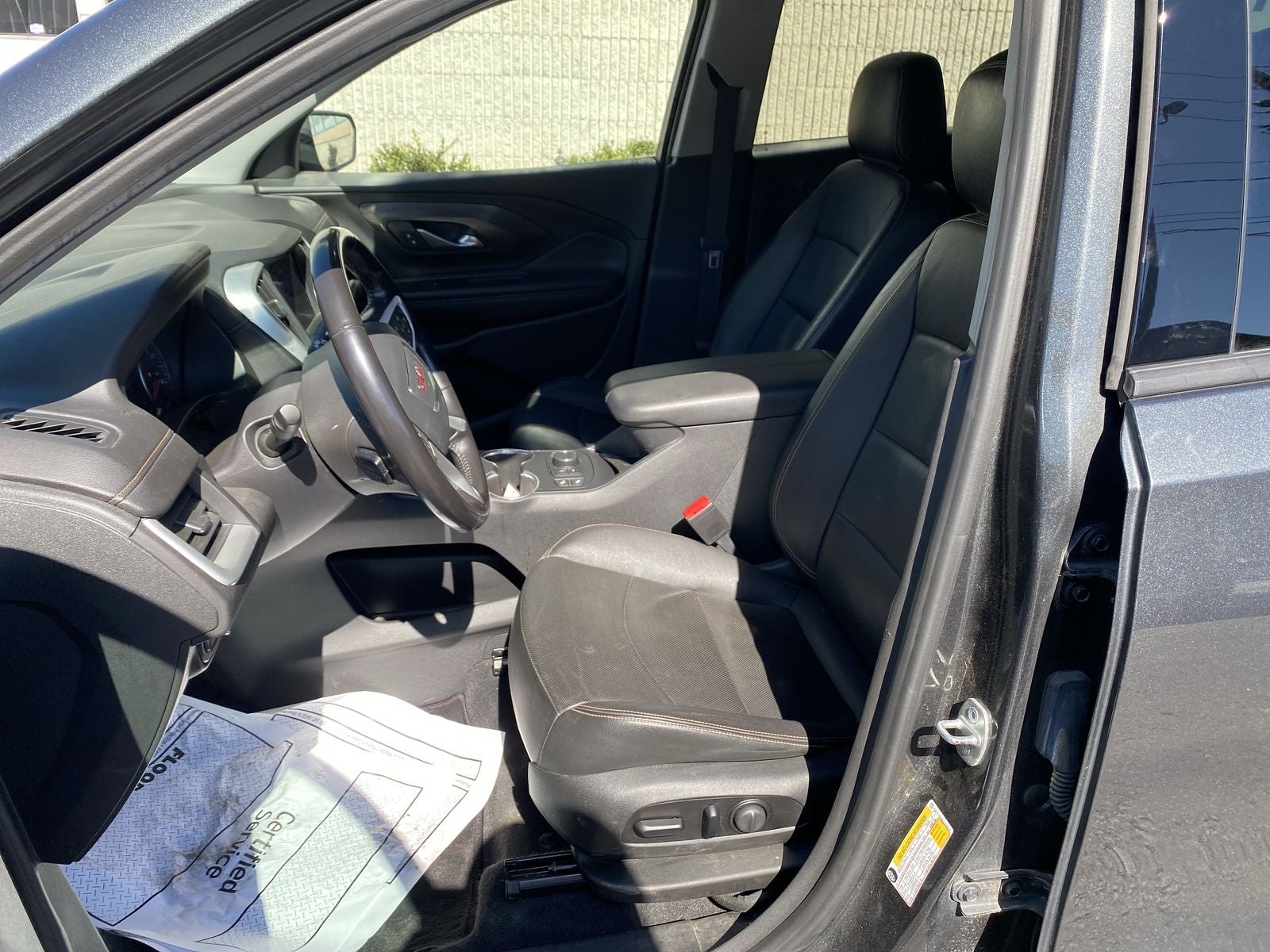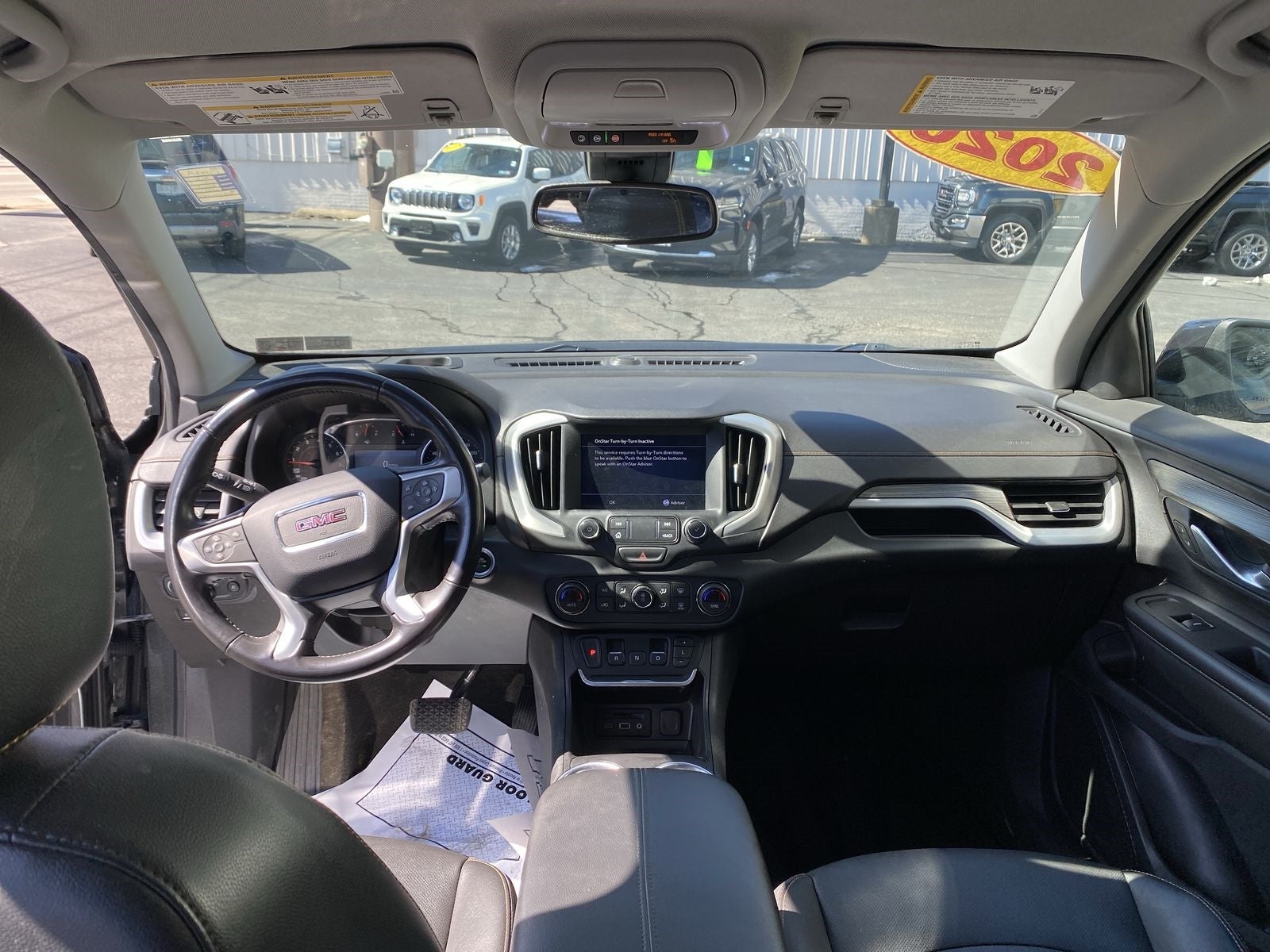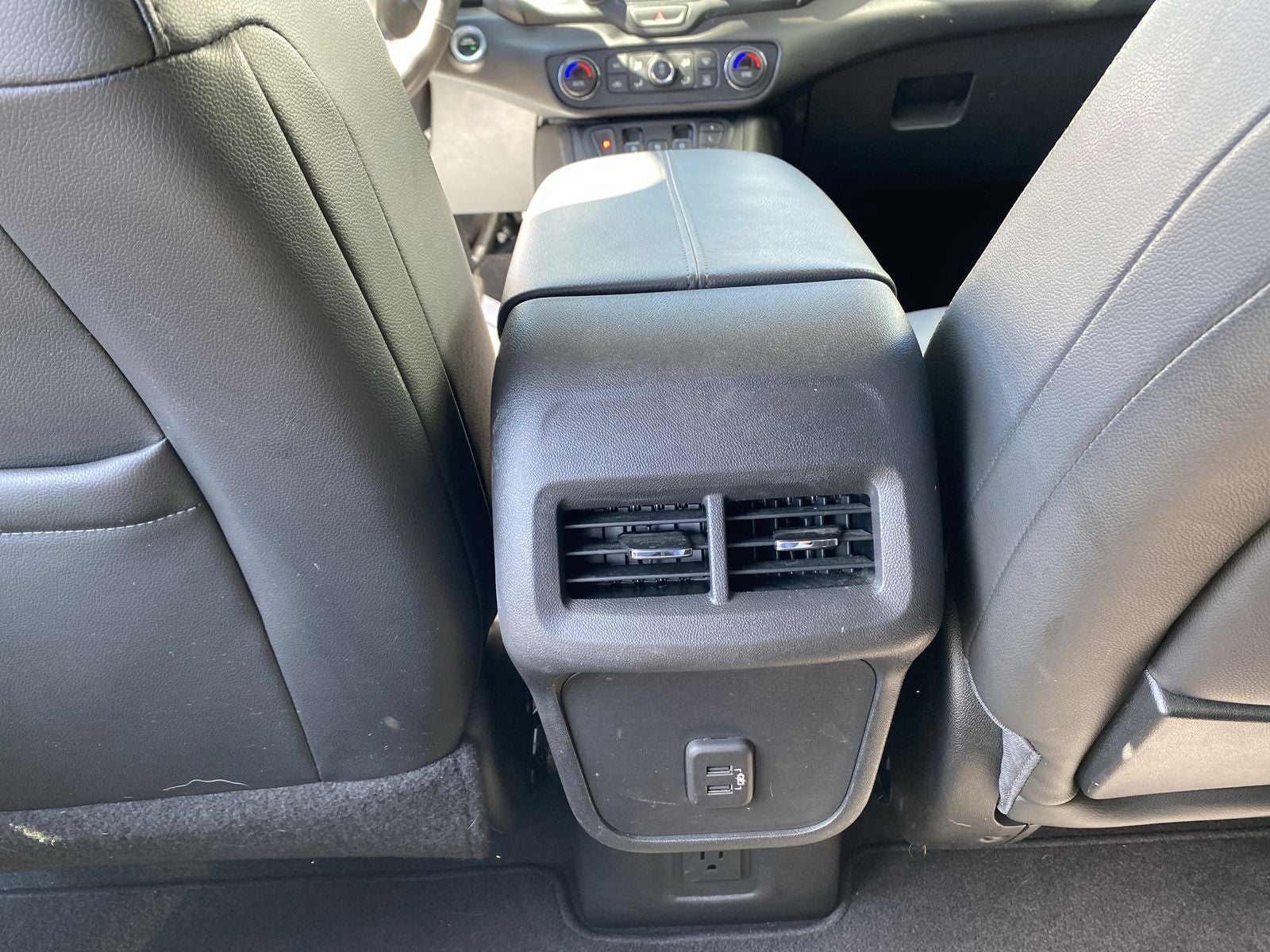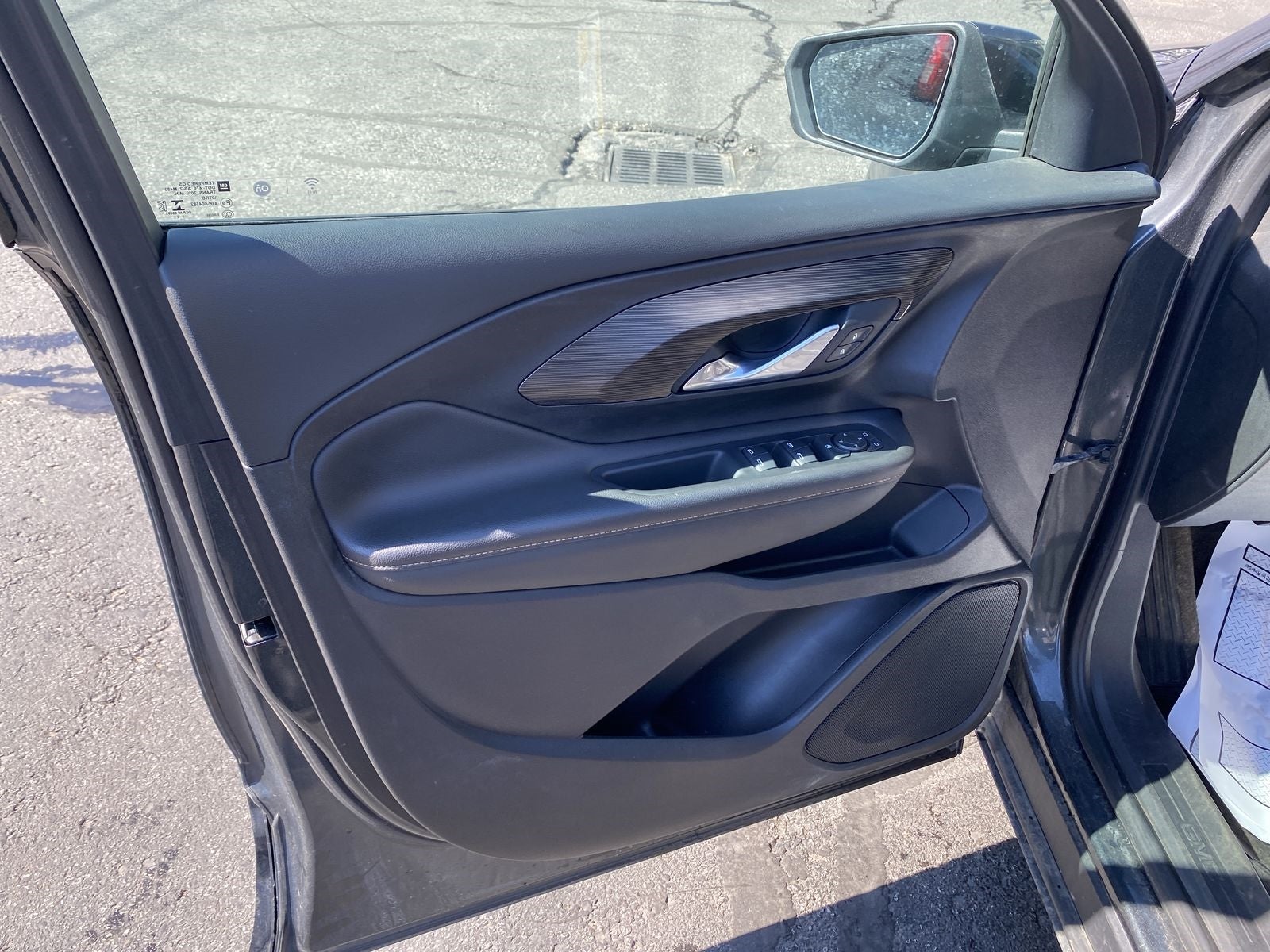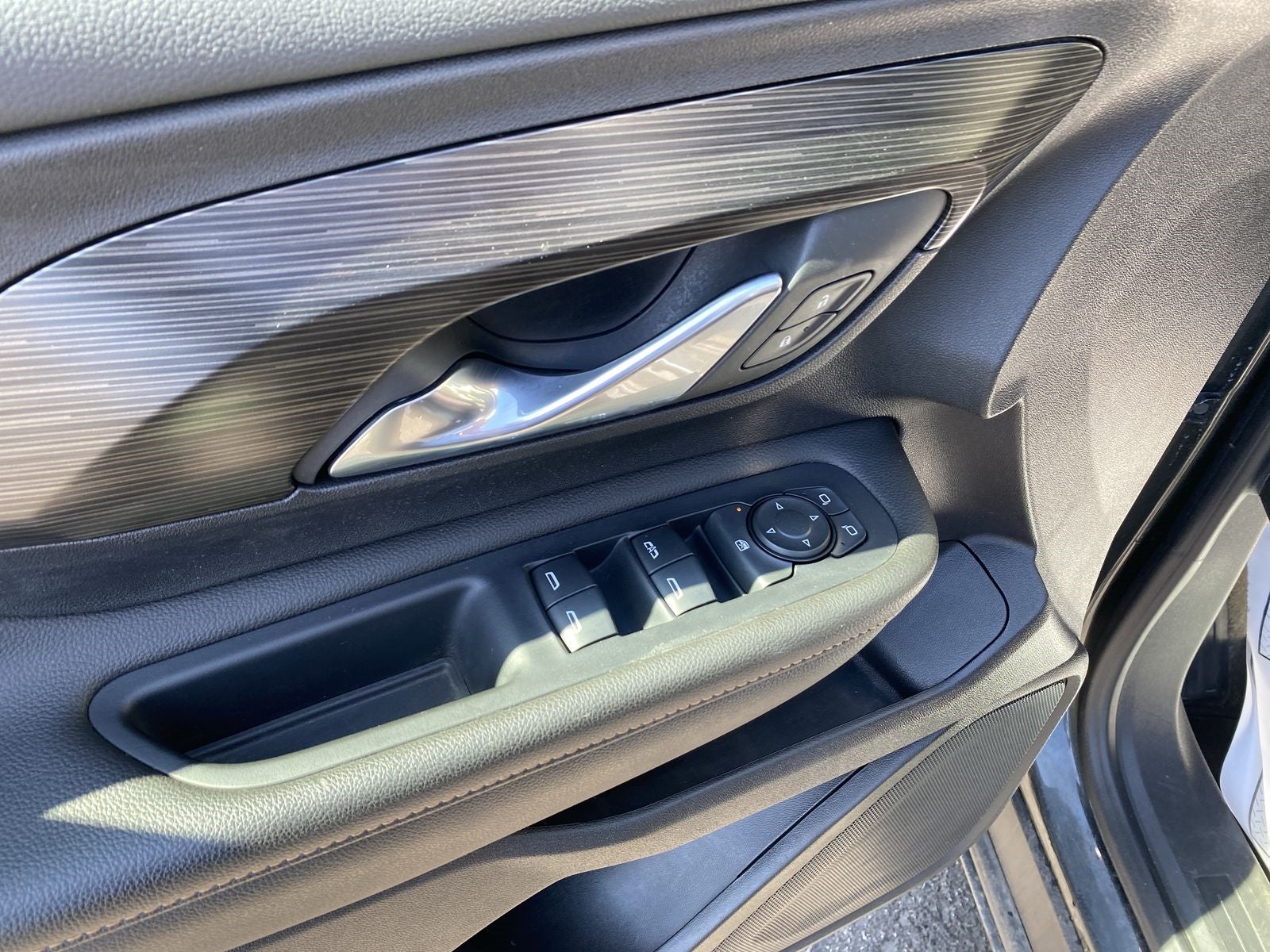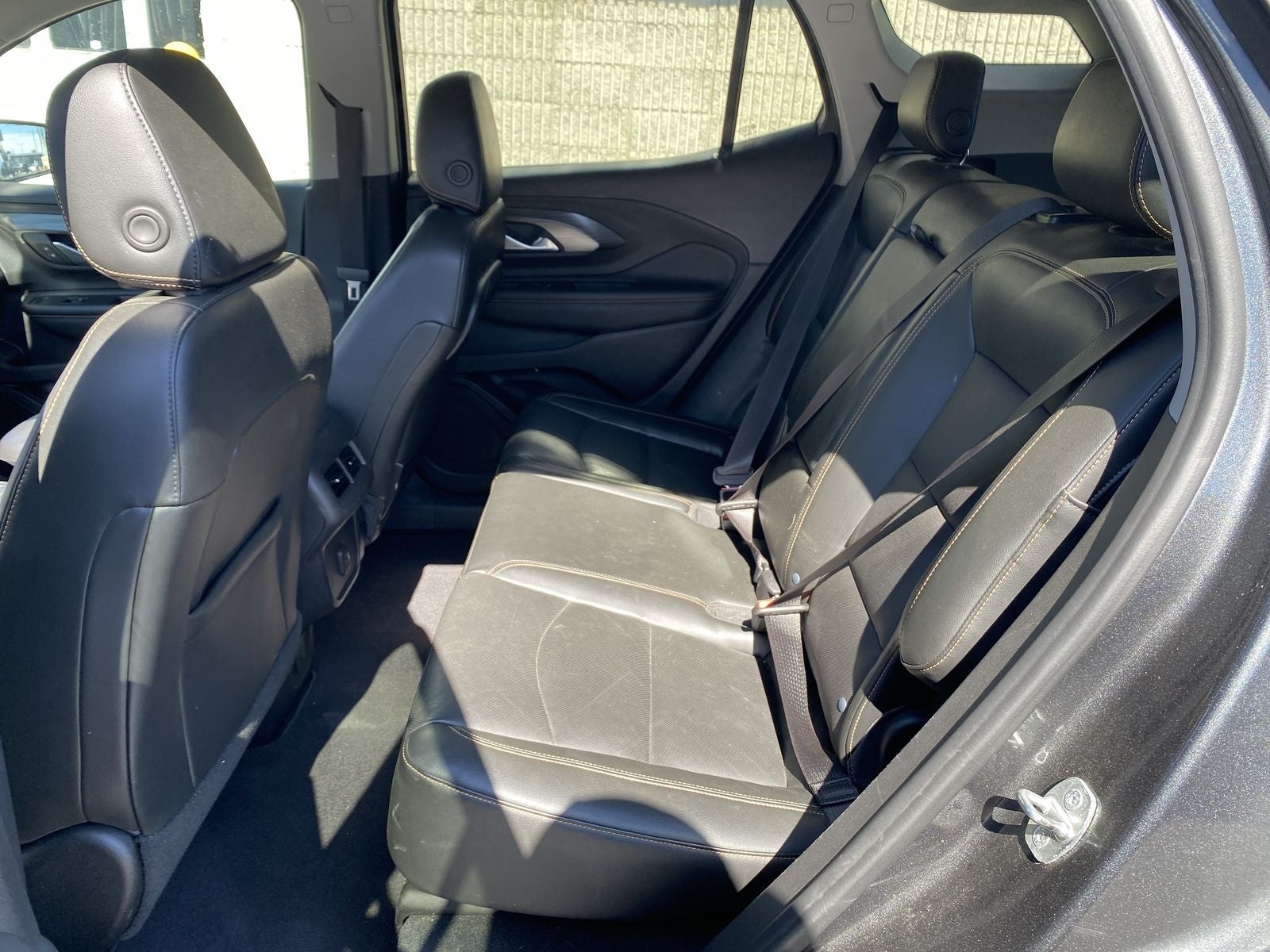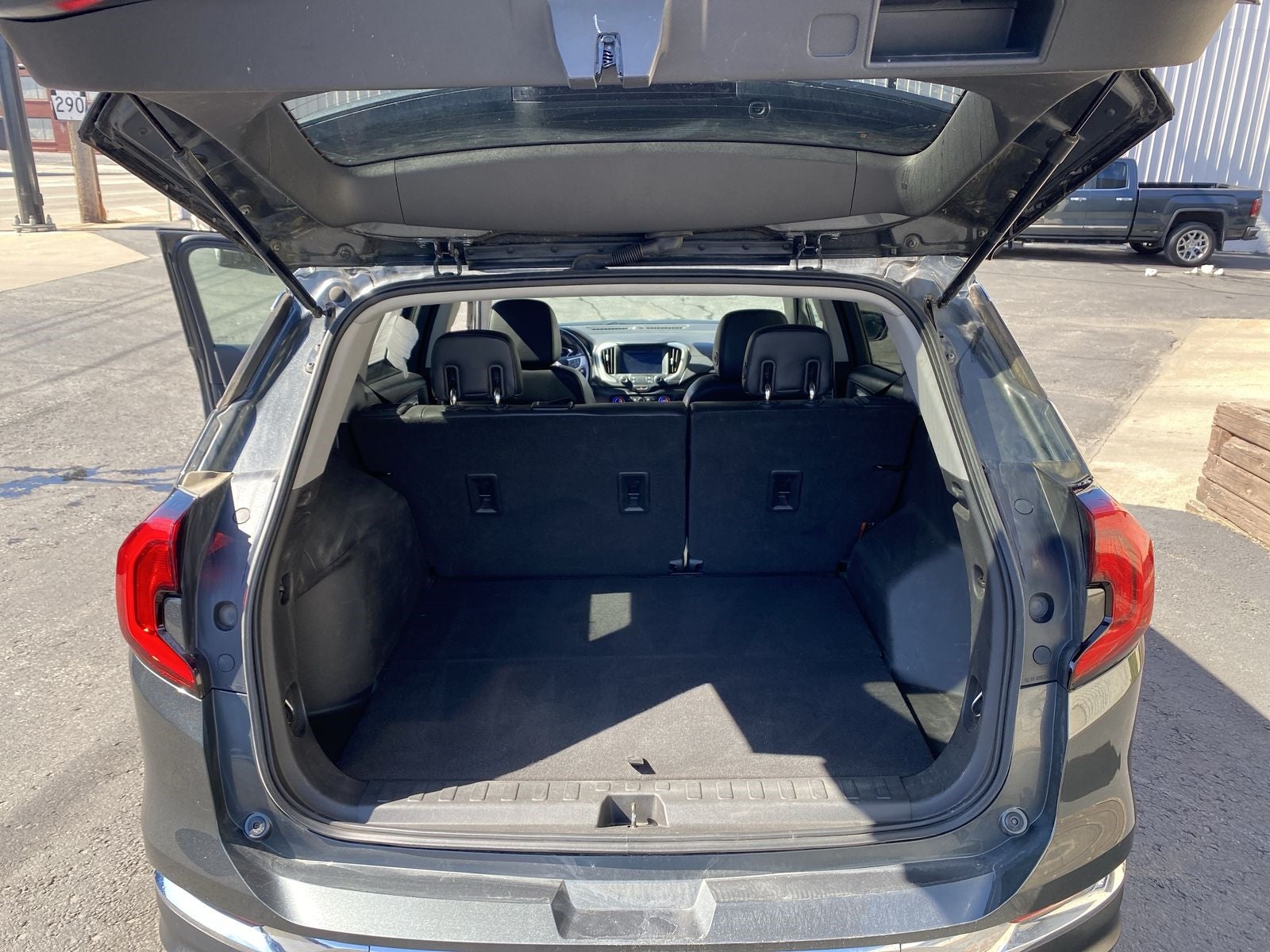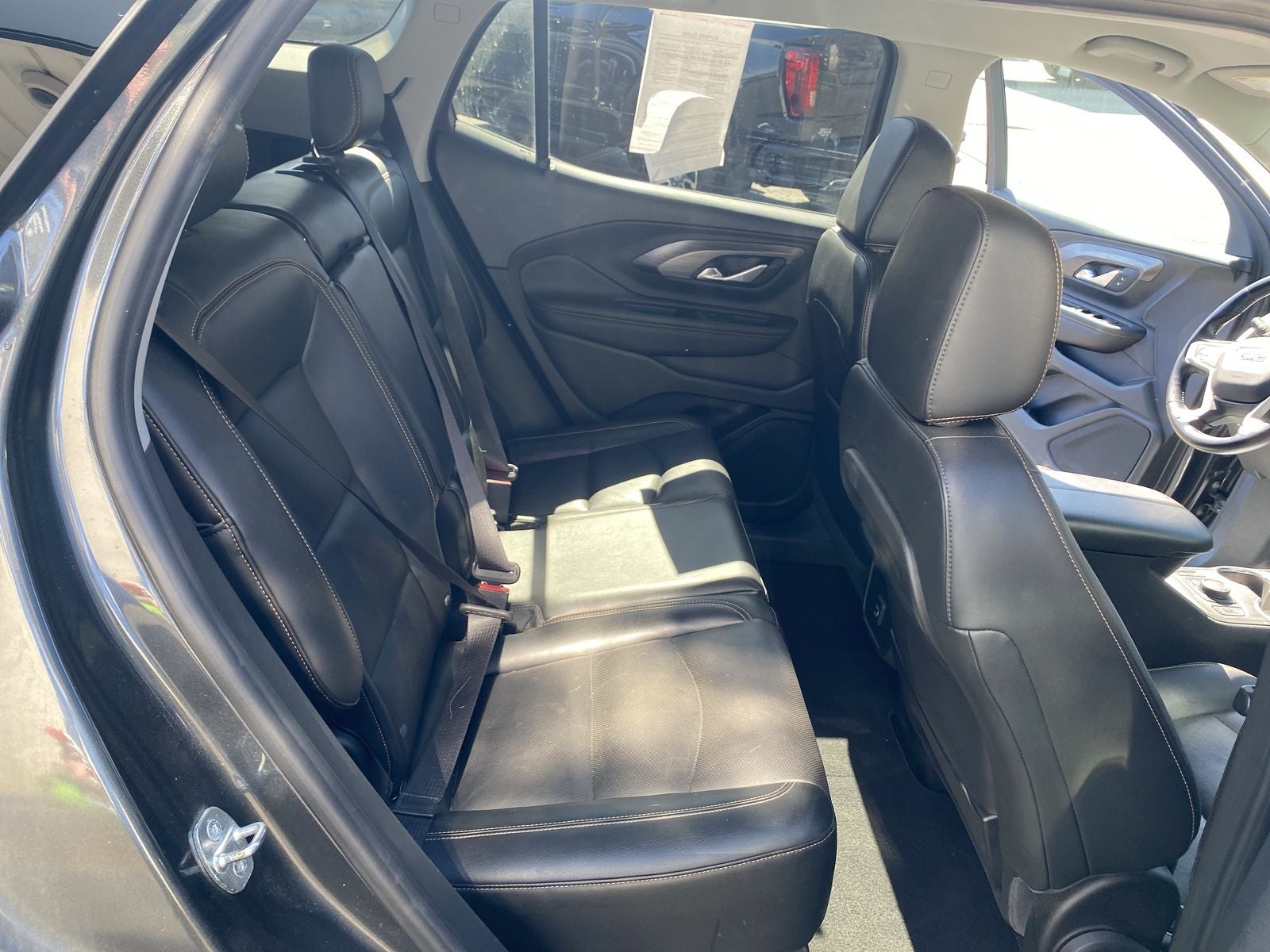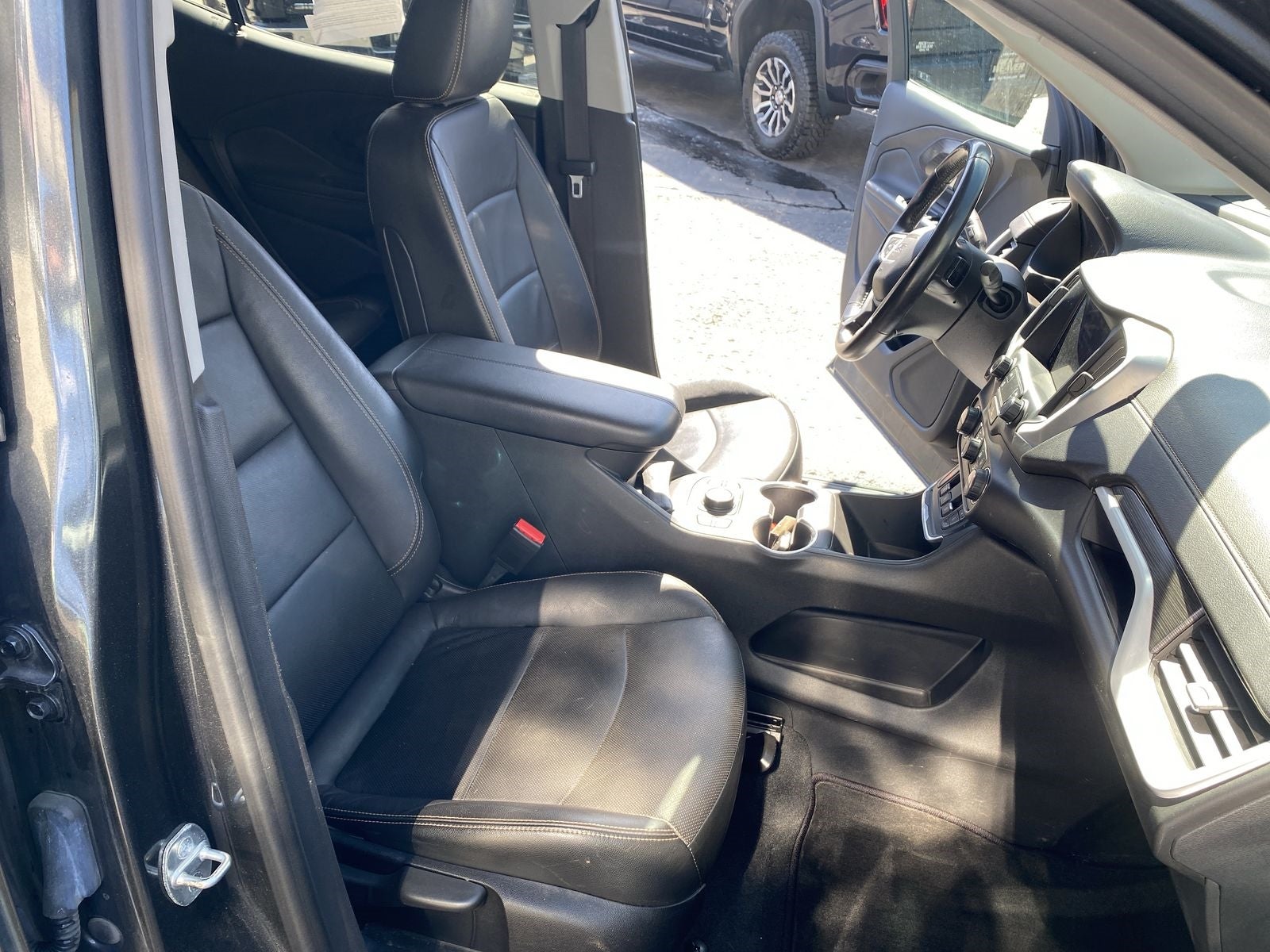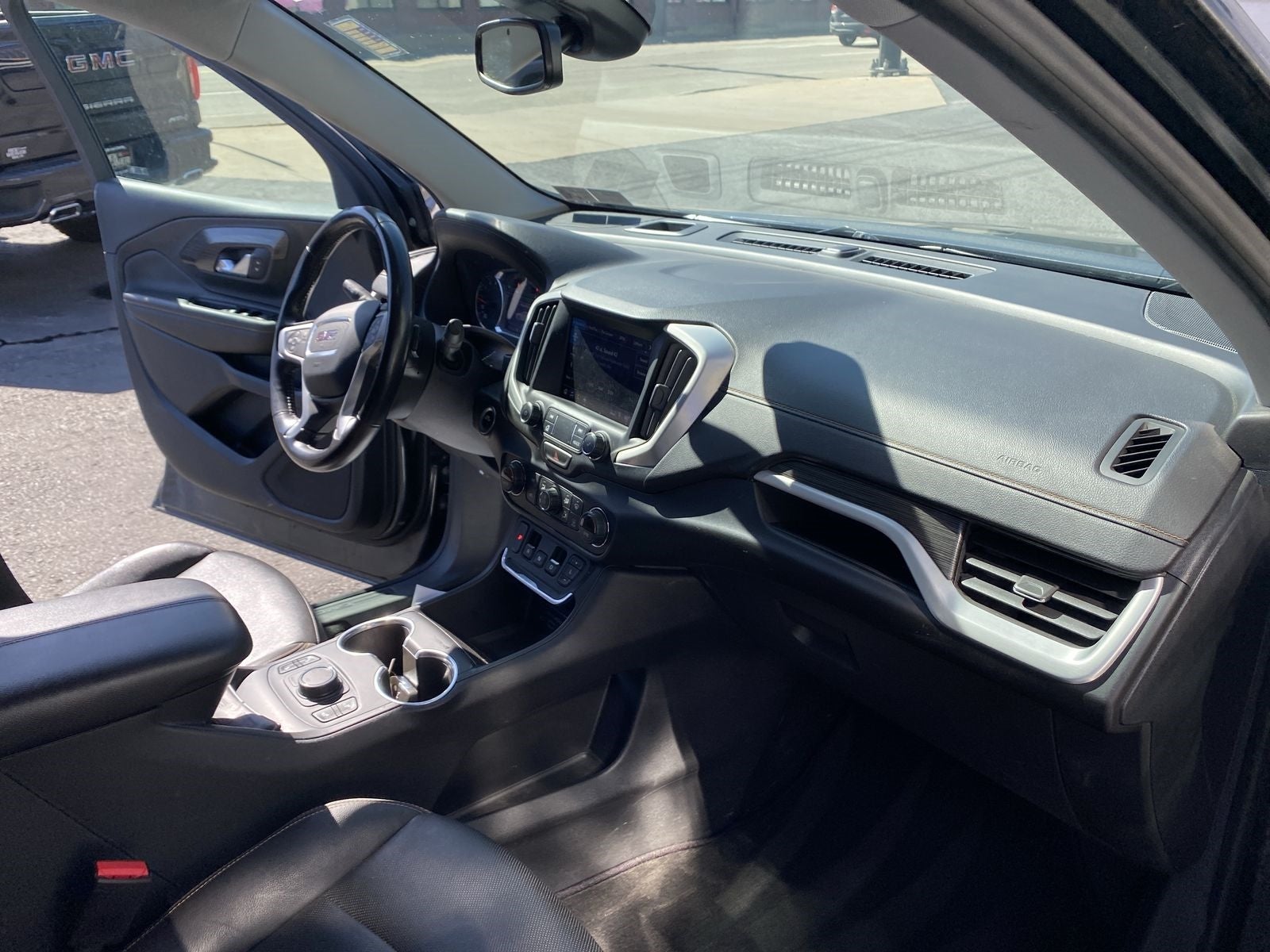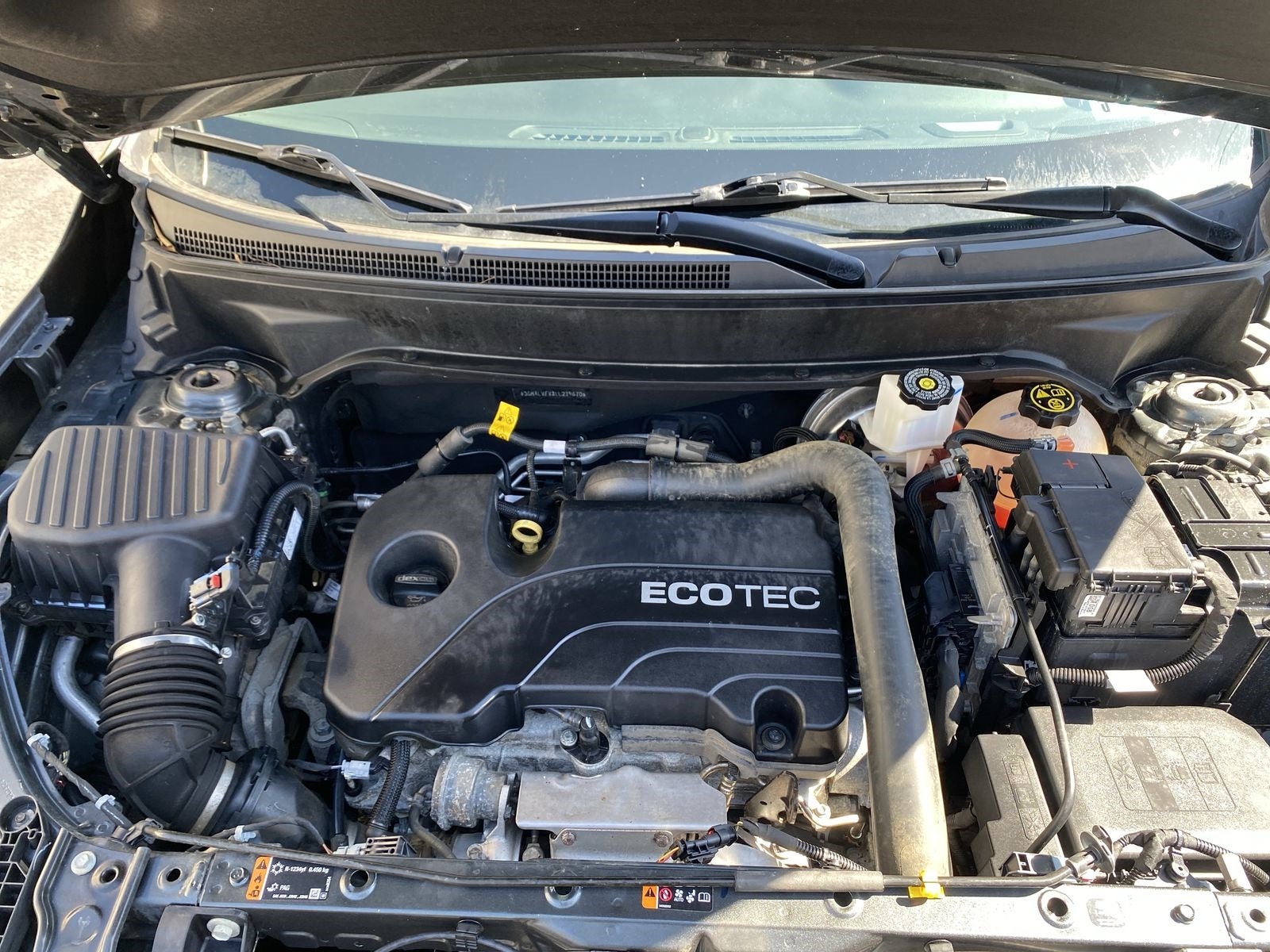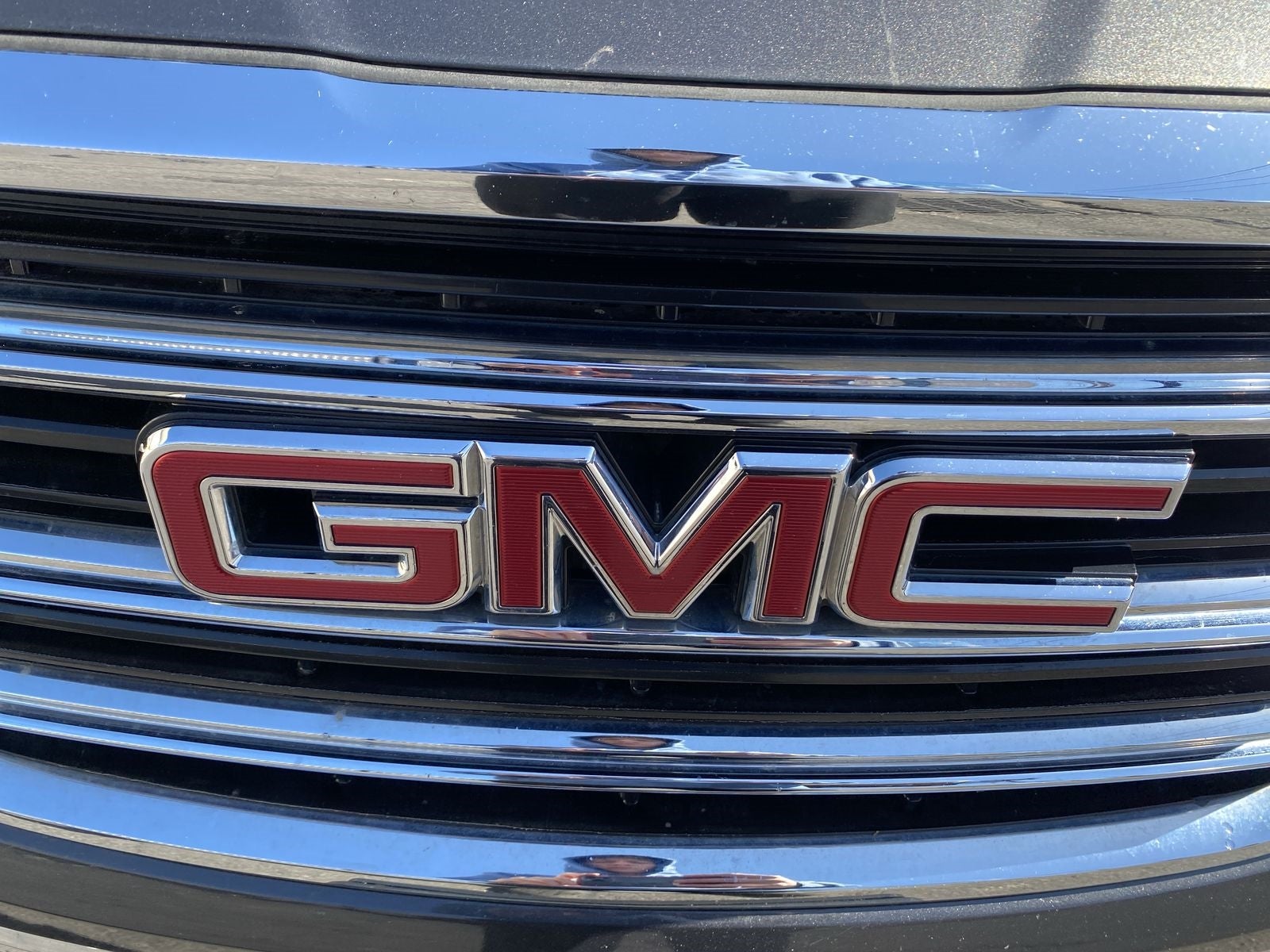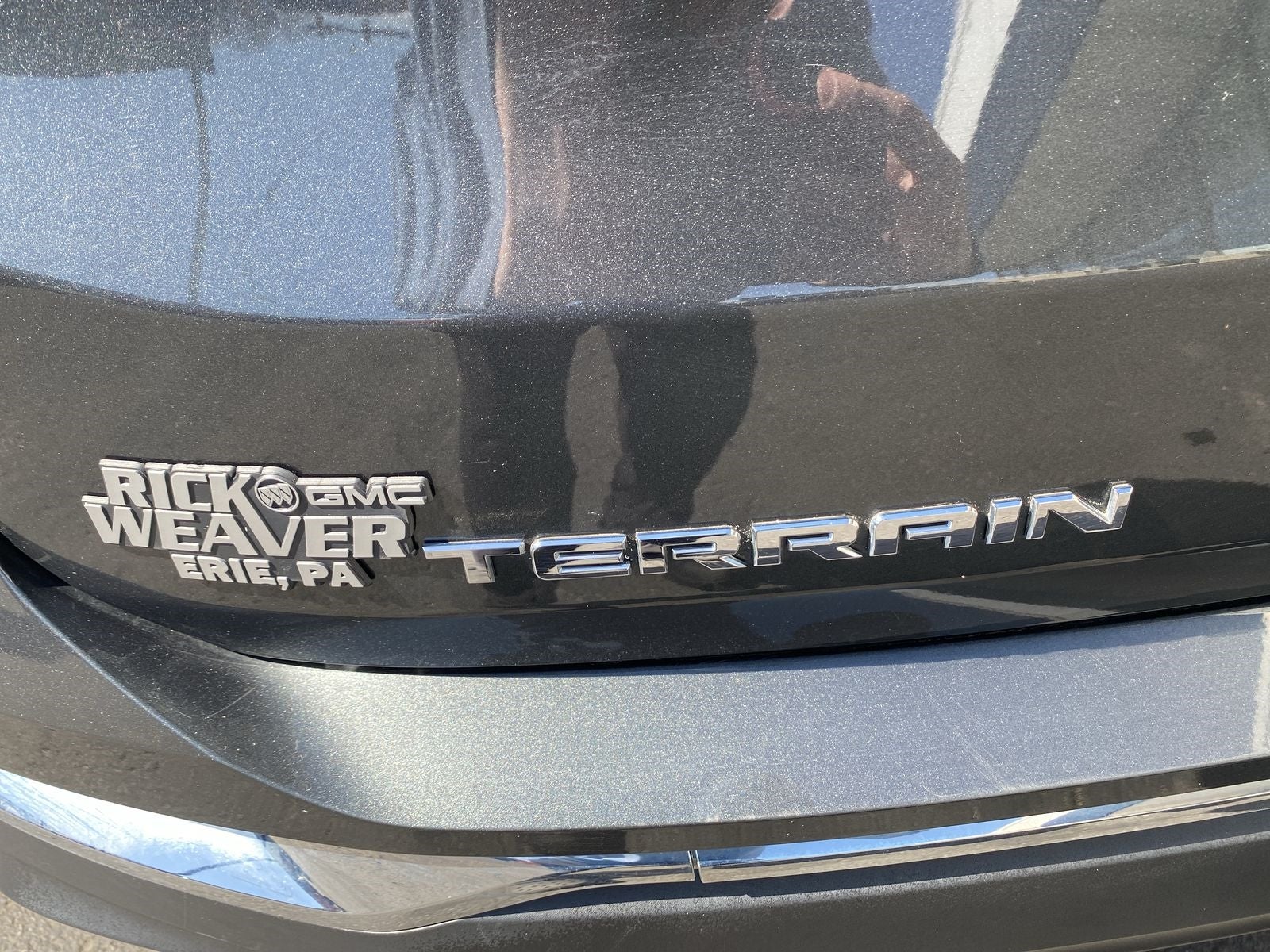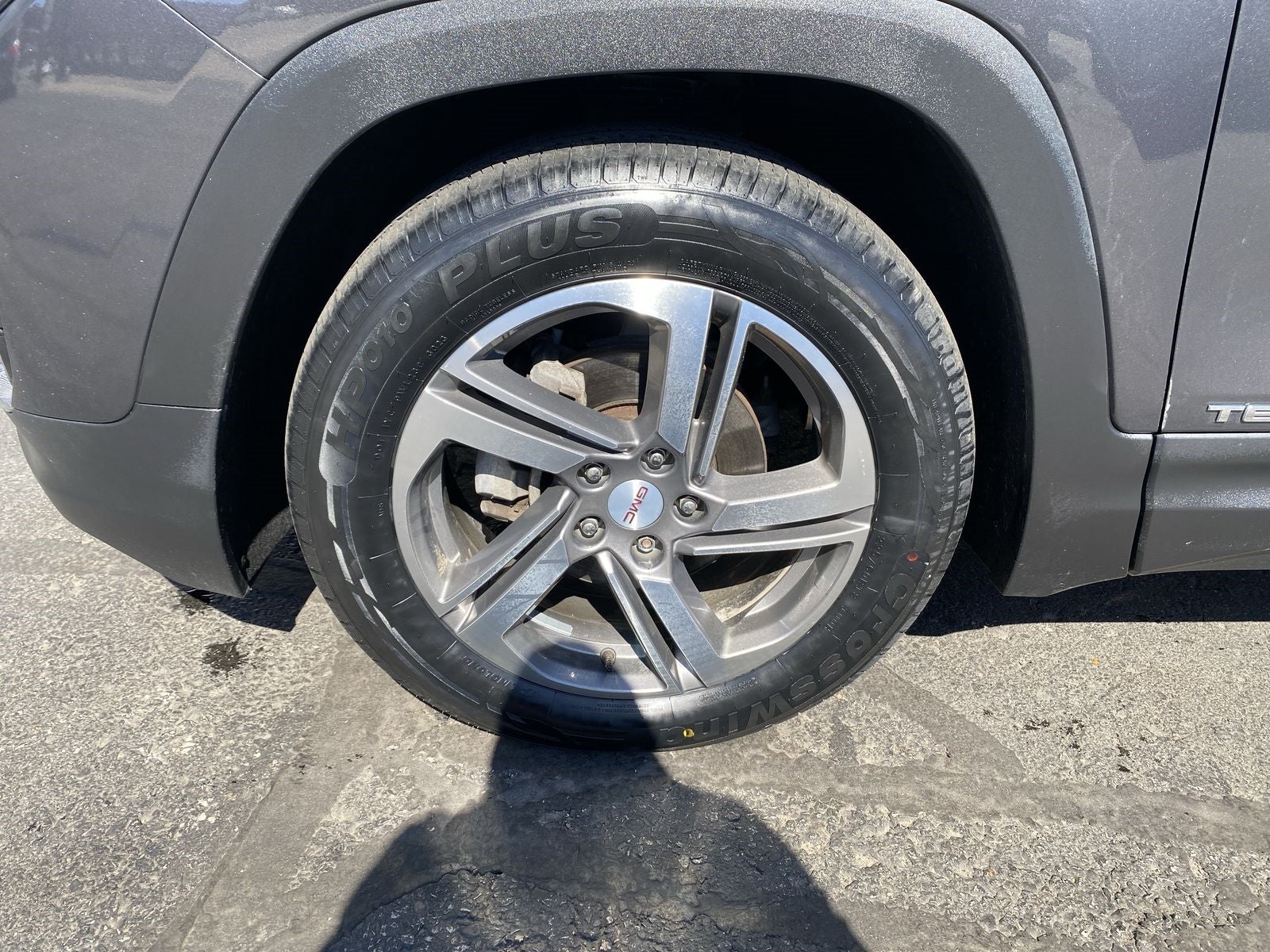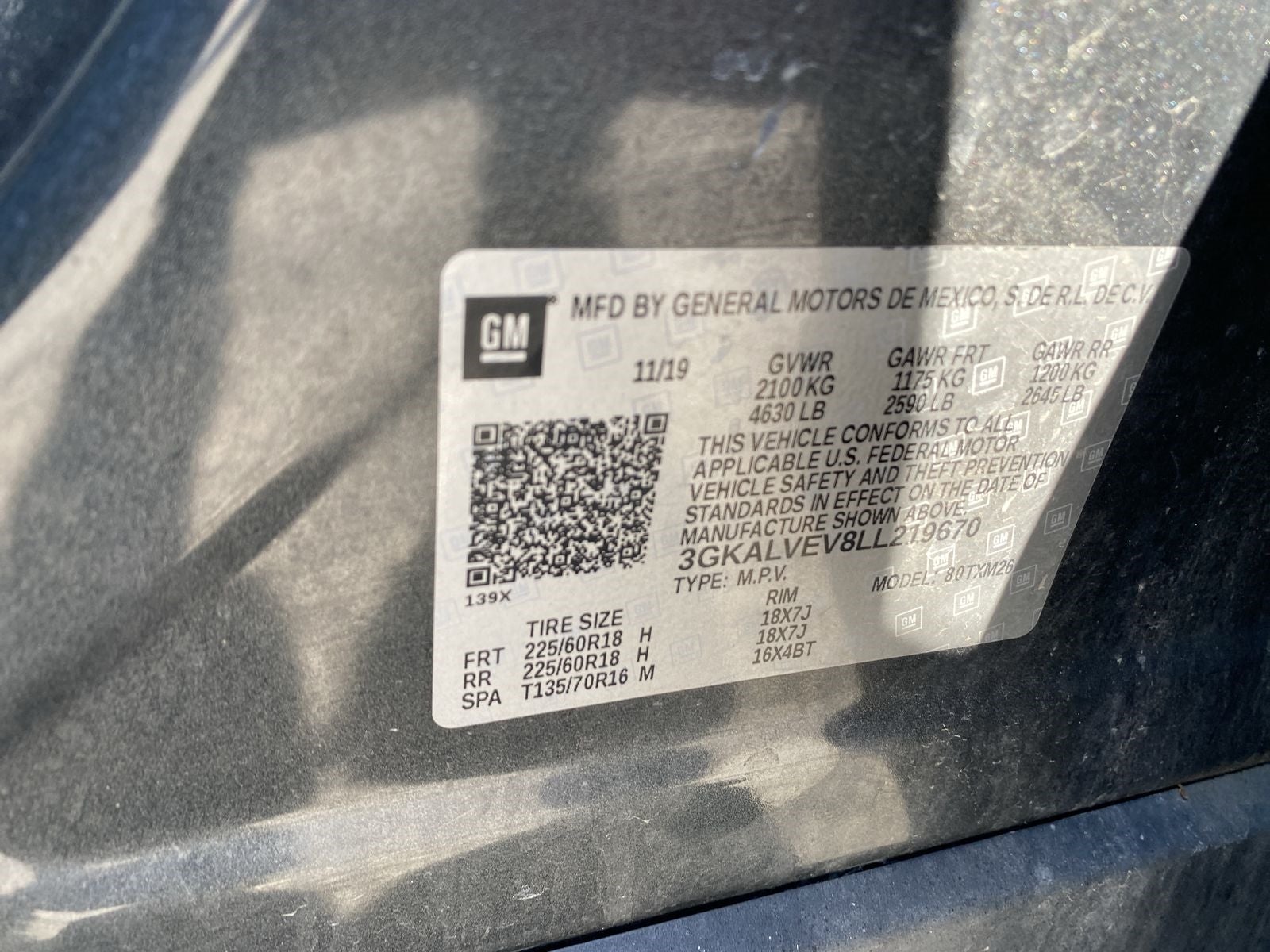2020 GMC Terrain SLT
-
$19,500 Internet Price
- GET MORE DETAILS
- Get Payments
- Value Your Trade
*Please Note: We turn our inventory daily, please check with the dealer to confirm vehicle availability.
-
$19,500 Internet Price
- CALL US
- Get Payments
- Value Your Trade
*Please Note: We turn our inventory daily, please check with the dealer to confirm vehicle availability.
Visit our Store
- Rick Weaver Buick GMC
-
714 W. 12th St.
Erie, PA 16501
- Sales: 814-240-3270
- Service: 814-455-8071
- Parts: 814-455-8071
Vehicle Information
VIN:
3GKALVEV8LL219670
Stock #:
P3142A
Model Code:
TXC26
-
Condition Used
-
 Body Style SUV
Body Style SUV -
Exterior Color Graphite Gray Metallic
-
Interior Color Jet Black, Perforated Leather-Appointed Seat Trim
-
Mileage 91,989
-
 City/Highway 25/28 MPG
City/Highway 25/28 MPG -
 Engine 1.5L Turbo 4-cylinder engine
Engine 1.5L Turbo 4-cylinder engine -
 Transmission Automatic / AWD
Transmission Automatic / AWD
Highlighted Features
- Bluetooth®
- 4WD/AWD
- Aux Input
- Heated Seats
- Keyless Entry
- Keyless Ignition System
- Emergency Brake Assist
- Navigation System
- Satellite Radio
- Turbo Charged Engine
- Cruise Control
Dealer Comments
Rick Weaver, Famous For Service since 1982. 2020 GMC Terrain SLT, finished in Graphite Gray Metallic, with Jet Black interior. - -Only 91987 Miles!
Preferred Equipment Group 4SA
Safety and Security
- Lane departure prevention - Keep it between the lines. It only takes a moment of inattention for your vehicle to drift. With lane departure prevention, your vehicle takes corrective action to help you avoid unintentionally moving out of your lane. Lane departure prevention is an extra level of safety for you and those around you.
- Forward collision mitigation - Forward thinking. You look away for just a second and suddenly the vehicle in front of you has stopped. That's when the forward collision mitigation system comes to life. When it senses an impending impact, it will activate a combination of features to help prevent or reduce the severity of an accident. Forward collision mitigation is always looking ahead.
- Pedestrian impact prevention - An extra step toward safety. Pedestrians don't always stop, look, and listen, but with Pedestrian Impact Prevention, your vehicle is equipped to better see them and avoid them. This system constantly monitors the road ahead to identify and track pedestrians. It projects that image to an interior display screen, AND should an impact become likely, Pedestrian impact prevention takes steps to avoid a collision.
- Pedestrian impact prevention - An extra step toward safety. Pedestrians don't always stop, look, and listen, but with Pedestrian Impact Prevention, your vehicle is equipped to better see them and avoid them. This system constantly monitors the road ahead to identify and track pedestrians. It projects that image to an interior display screen, AND should an impact become likely, Pedestrian impact prevention takes steps to avoid a collision.
Technology and Telematics
- Smart device mirroring - Smartphone, meet smart car. You can control your device through your vehicle's infotainment system. Smart device mirroring brings together safety and convenience by making it easier to find what you're looking for while keeping your eyes on the road.
All Features
- Rear head restraint control: 2 rear seat head restraints
- Seating capacity: 5
- Automatic air conditioning: Automatic air conditioning is a completely integrated electronic system. The system automatically adjusts thermostat and fan settings as needed to maintain a preset temperature. The system may also be operated manually when preferred.
- Bucket front seats: Separate driver and front passenger seats with individual control are provided.
- Cabin air filter: A system that filters the air before it enters the passenger compartment of the vehicle.
- Carpet front and rear floor mats: Front and rear carpeted floor mats are included.
- Rear seatback upholstery: Carpet rear seatback upholstery
- Interior accents: Chrome and metal-look interior accents
- Headliner material: Cloth headliner material
- Door panel insert: Colored door panel insert
- Deep tinted windows: Some of the vehicle's glass has a dark, privacy tint.
- Power reclining driver seat: The seatback angle is power adjustable.
- Power 2-way driver lumbar: Lumbar support is power adjustable in and out.
- 8-way driver seat: The seat provides a variety of adjustments to enhance seating comfort.
- Dual zone front HVAC controls: Dual zone HVAC provides separate temperature controls for the driver and front passenger.
- Rear seats fixed or removable: Fixed rear seats
- Fold flat passenger seat: The front passenger seat folds forward and forms a flat loading area so long items may be carried within the vehicle.
- Fold forward seatback: The seatback folds forward to rest on the seat cushion.
- Rear head restraints: Foldable rear seat head restraints
- 6-way passenger seat: The seat provides a variety of adjustments to enhance seating comfort.
- Front seat center armrest: A single center armrest divides the front seating positions.
- Full floor coverage: The entire passenger compartment floor is covered with flooring material.
- Full floor coverage: The entire passenger compartment floor is covered with flooring material.
- Headliner coverage: Full headliner coverage
- Heated driver and front passenger seatbacks: Heated seats offer cool weather comfort by warming the seat quickly, before the air in the passenger compartment is fully warmed by the heater.
- Height adjustable front seat head restraints: The head restraint(s) can be adjusted up or down.
- Leather and metal-look steering wheel material: The steering wheel has sections wrapped in leather and sections of metal-look plastic.
- Leather seat upholstery: The seating surfaces are covered in leather.
- Leather rear seat upholstery: The seating surfaces are covered in leather.
- Front seatback upholstery: Leatherette front seatback upholstery
- Front head restraint control: Manual front seat head restraint control
- Rear head restraint control: Manual rear seat head restraint control
- Manual reclining rear seat: The seatback angle is manually adjustable.
- Manual telescopic steering wheel: The distance of the steering wheel from the driver is manually adjustable.
- Manual tilt steering wheel: The angle of the steering wheel is adjustable manually.
- Panel insert: Metal-look instrument panel insert
- Manual reclining passenger seat: The seatback angle is manually adjustable.
- Rear bench seat: A bench seat provides a common seating surface for all rear passengers.
- Rear console ducts: HVAC ducts are located on the back of the front console which direct airflow to the rear passenger compartment.
- Rear seat center armrest: A center rear armrest divides the seating positions.
- Rear underseat ducts: Rear underseat ducts direct HVAC airflow to the rear passenger compartment from under the front seats.
- Automatic air conditioning: Automatic air conditioning is a completely integrated electronic system. The system automatically adjusts thermostat and fan settings as needed to maintain a preset temperature. The system may also be operated manually when preferred.
- 1 120V AC power outlet: A single AC power outlet is provided.
- 2 12V power outlets: Multiple 12-volt DC power outlets are provided.
- 2 seatback storage pockets: Two seatback storage pockets are provided.
- Number of beverage holders: 8 beverage holders
- Key integrated remote control: The keyfob and ignition key are integrated into one unit.
- Ambient interior lighting: Indirect illumination that highlights elements of the interior.
- Auto-dimming driver side mirror: These mirrors contain a sensor and a film of light-sensitive molecules behind the mirror surface that automatically dim and reduce glare when it senses bright lights approaching the vehicle from the rear.
- Auto-dimming passenger side mirror: These mirrors contain a sensor and a film of light-sensitive molecules behind the mirror surface that automatically dim and reduce glare when it senses bright lights approaching the vehicle from the rear.
- Auto-dimming rear view mirror: An auto-dimming rear-view mirror automatically tints itself when excess glare is detected from traffic at night.
- Auto-locking doors: All doors are automatically locked when the vehicle is put into gear or a pre-determined speed is reached.
- Battery charge warning: A message, or specific light illuminates to indicate the vehicle's charging system is not producing acceptable levels.
- Capless fuel filler: A spring-loaded flap replaces the traditional screw-in style gas cap.
- Cargo light: A light provides illumination in the cargo area.
- Cargo tie downs: Cargo tie downs are secure mounting points in the cargo area designed to hold cargo firmly in place.
- Carpeted cargo space floor trim: The cargo area floor is covered with carpet.
- Compass: A display showing the direction the vehicle is traveling - on a global scale.
- Passenger doors rear left: Conventional left rear passenger door
- Passenger doors rear right: Conventional right rear passenger door
- Covered floor console storage: The floor console offers a covered space to store items.
- Cruise control with steering wheel mounted controls: Cruise control maintains a preset vehicle speed; automatically increasing or decreasing throttle to maintain that speed.
- Day-night rear view mirror: An interior, rear-view mirror that has a manually operated switch that adjusts the mirror slightly, up or down, to reduce glare from traffic at night.
- Passenger door bin: The inner door panel has an integrated storage bin.
- Driver foot rest: The driver's foot rest, or dead pedal, is located on the left side of the driver's footwell.
- Driver information center: A driver information center is a display screen that provides the driver with vehicle information and/or warnings in graphical and/or textual form.
- One-touch up driver windows: A one-touch up power driver's window raises the glass completely with one press (or pull) of the button.
- Driver vanity mirror: The visor has a mirror incorporated into its design.
- Exterior temp display: Displays the temperature of the ambient air outside the vehicle.
- Fixed interval rear wiper: A fixed interval rear wiper has a setting for non-adjustable, delayed wiping.
- Rear windshield: Fixed rear windshield
- Third-row windows: Fixed third-row windows
- Front and rear one-touch down windows: One-touch down power windows lower the glass completely with one press of the button.
- Front beverage holder(s): An area is provided to securely hold beverages.
- Front reading lights: Spot lighting is provided for the driver and front passenger that is brighter and more focused than the dome lamp.
- Full floor console: A full floor console separates the front seating areas and divides the footwell.
- Heated passenger side door mirror: A heating element within the housing clears condensation, frost and ice from the mirror's surface.
- Heated rear wiper park: A heating element is embedded in the glass at the position where the wipers rest when not in use.
- Illuminated driver vanity mirror: The visor has an illuminated mirror incorporated into its design.
- Illuminated passenger vanity mirror: The visor has an illuminated mirror incorporated into its design.
- Clock: In-radio display clock
- Keyfob activated door locks (all doors): A handheld keyfob capable of remotely operating all the door locks.
- Keyfob vehicle start control: The keyfob has the ability to remotely start the vehicle.
- Keyfob Cargo Access Control: The keyfob has a dedicated button for unlocking the cargo area trunk/hatch/door.
- Liftgate rear cargo door: Access to the cargo area is gained via a large rear door that opens upwards. This door may also contain the rear windshield of the vehicle.
- Low fuel warning: A message, or specific light illuminates to indicate the vehicle will run out of fuel soon, and refilling the tank is required.
- Manually folding passenger side door mirror: Manually folding exterior mirrors can pivot on a joint to bring the mirror housing closer to the vehicle body.
- Mini overhead console: A short console, mounted to the headliner of the vehicle, that may contain several useful features such as map lights and storage.
- Oil pressure warning
- Overhead console storage: An overhead storage compartment for items such as sunglasses or a garage door opener.
- Passenger vanity mirror: The visor has a mirror incorporated into its design.
- Plastic trunk lid trim: The inside of the trunk lid or cargo access door(s) is covered with plastic.
- Power cargo area access remote release: A remote release provides access to the cargo area via a button located in the passenger compartment.
- Power door locks with 2 stage unlocking: A two-stage power door lock system can unlock the driver's door only or, if desired, all doors.
- Power passenger door mirror: The passenger side door mirror is adjusted from the interior of the vehicle by an electric switch, which can modify the angle of the mirror surface.
- Power first-row side windows: The first-row of glass on the side of the vehicle can be raised and lowered by electric motors.
- Power second-row side windows: The second-row of glass on the side of the vehicle can retract into the body electrically.
- Tailgate/rear door lock included with power doors locks: The tailgate/rear door locking is integrated into the rest of the power lock system just like any other door on the vehicle.
- Rear beverage holder(s): An area is provided to securely hold beverages.
- Trunk/liftgate ajar warning: A message, or specific light illuminates to indicate the rear cargo door/trunk/hatch or middle gate is open.
- Rear door bins: The inner door panels have integrated storage bins.
- Rear seat check: A safety feature that activates when the vehicle is parked and turned off. The driver receives an audio/visual warning to check the rear seats of the vehicle.
- Rear window defroster: Heating elements on the rear windshield.
- Speedometer: Redundant digital speedometer
- Service interval indicator: A message, or specific light illuminates to indicate the vehicle needs to be taken in for routine servicing (oil change).
- Glove box: Standard glove box
- Steering wheel mounted audio controls: Auxiliary controls for the audio system are located on the steering wheel.
- Tachometer
- Tire fill assistant: When filling the tires, the vehicle uses the horn and/or lights to indicate when the correct pressure has been reached.
- Trip computer: A trip computer calculates and can display any, or all of the following functions: current fuel consumption, average speed, distance traveled, elapsed time, distance to empty and remaining fuel.
- Trip odometer: A trip odometer counts the miles or kilometers the vehicle travels and can be reset by the driver.
- Trunk/hatch auto-latching: An auto-latching trunk/hatch is an electrically-assisted closing feature that gently pulls the trunk/hatch snug once it is set on its latch.
- Variable IP lighting: The intensity of the instrument panel lighting can be adjusted manually.
- Variable intermittent front windshield wipers: The vehicle's front wiper system has low and high speeds, as well as a variable intermittent setting to change the pause length between wipes.
- Aluminum wheels: Aluminum wheels are light and strong.
- Number of doors: 4 doors
- Black bodyside cladding: Black bodyside cladding is a large piece of rubber, plastic, or vinyl that is attached to the lower half of the exterior side of the vehicle.
- Wheel well trim: Black wheel well trim
- Door handle material: Body-colored door handles
- Door mirror style: Body-colored door mirrors
- Bumpers front: Body-colored front bumper
- Bumpers rear: Body-colored rear bumper
- Bumper rub strip front: Chrome front bumper rub strip
- Grille style: Chrome grille
- Bumper rub strip rear: Chrome rear bumper rub strip
- Window Trim: Chrome side window trim
- Steel spare wheel: The spare wheel is constructed of steel.
- Front license plate bracket: A front license plate bracket provides a dedicated means to mount a front plate to the front bumper or fascia of the vehicle.
- Fully galvanized steel body panels: Galvanized steel body panels are found on the vehicle's entire exterior.
- Metallic paint: Metallic paint is a base/clear paint containing small metallic flakes that reflect light and make the finish sparkle.
- Special paint: Monotone paint
- AS tires: All-season tires are designed to provide good all-around traction and handling, and a smooth, quiet ride in all conditions.
- Rear step bumper: A rear bumper with an adequate surface to stand on, that is strong enough to support the weight of a person without causing damage to the bumper. Usually has a protective covering to prevent damage to the finish.
- Rear lip spoiler: A lip style rear spoiler is an additional, molded air foil piece attached to the rear of the vehicle. This type of spoiler has no gap between it and the vehicle.
- Roof rails: Roof rails are raised bars that run the length of the roof and are on both sides of the vehicle.
- Spare tire mounted inside under cargo: The spare tire is carried in a compartment underneath the cargo floor.
- Door mirror type: Standard style side mirrors
- Trailer sway control: A computer-controlled system used to automatically counteract trailer sway. When the computer senses the vehicle has left the driver's intended path, it will automatically apply select brakes to regain control and restore the intended path of the vehicle and trailer.
- Wheel locks: Each wheel has a locking nut that requires a key to remove the wheel.
- Fuel economy (city/highway/combined): 25/28/26 MPG
- SULEV III emissions: This vehicle meets Super Ultra Low Emission Vehicle III exhaust emissions regulations.
- Emissions tiers: Tier 3 Bin 30 emissions
- First-row LCD display screen: One or more LCD screens are located in the vehicle's first row of seating.
- Satellite trial: 3 month satellite trial subscription
- Speakers number: 6 speakers
- LCD primary display size: 8 inch primary LCD display
- AM/FM/satellite radio: In addition to AM and FM radio reception, this radio, when properly equipped, is capable of receiving digital radio signals from a satellite.
- Active noise cancellation: Active noise cancellation reduces exterior noise levels inside the vehicle.
- Audio system theft deterrent: The in-dash headunit incorporates anti-theft circuitry. Typically, if power to it is disconnected, function can only be restored by entering a code number.
- Automatic equalizer: An automatic equalizer includes several preset acoustic environments (e.g., concert hall, rock, jazz, talk, etc.) that optimize the sound quality for different types of music or special listening preferences.
- Auxiliary input jack: Any means of input that allows audio to flow from, and be controlled by, an external device through the vehicle's primary audio system. The most common forms of auxiliary audio input are: RCA or a 3.5 mm jack.
- External memory control: The vehicle can directly access and control digital memory stored on a hard-drive or memory card/stick. Digital memory can contain audio, video, pictures, or general files.
- Integrated roof antenna: The antenna that receives AM/FM broadcasts is mounted on the roof of the vehicle.
- Touchscreen: The primary display in the vehicle offers touchscreen control.
- Radio data system (RDS): The audio system is capable of receiving a Radio Data System (RDS) sub-channel, broadcast by some radio stations, which contains identification and programming information.
- Seek scan
- Speed sensitive volume: An automatic volume that increases/decreases the volume of the audio system based on vehicle speed.
- Speakers: Standard grade speakers
- Voice activated audio controls: The audio system functions respond to voice command.
- Wireless audio streaming: This feature allows music to be transferred from a mobile device to the vehicle without the need to physically connect the two devices.
- Displacement: 1.5 L
- Horsepower: 170 HP @5600 RPM
- Steering type number of wheels: 2-wheel steering system
- Valves per cylinder: 4
- All wheel drive: All-wheel drive supplies power to both the front and rear axles all the time. Power is instantly redirected by the center differential to the wheels with greater traction when slip is detected. Unlike full-time 4-wheel drive systems, there is no 2-speed transfer case for 4WD Low operation.
- Alternator: The alternator is an electromagnetic device that converts mechanical energy into electrical energy.
- Automatic locking 4WD wheel hubs: The spring-loaded hub automatically engages on the fly when the transfer case is shifted from 2-wheel drive into 4-wheel drive. The application of torque to the axle causes the mechanism inside the hub to slide in and lock.
- Battery run down protection: Battery run-down protection automatically turns off interior lights and accessory power after a set time period, or when the battery power level reaches a predetermined point, in order to prevent excessive power drain on the battery.
- Electric power-assisted steering: An electric power-assisted steering system replaces the traditional hydraulic system with a dedicated electric motor and sophisticated electronics.
- Electronic parking brake: The parking brake can be engaged electronically.
- Electronic transfer case shift: 4-wheel drive is engaged electronically, using convenient button or switch controls.
- Four channel ABS brakes: Four channel ABS monitors and operates on each wheel individually.
- Front anti-roll bar: An anti-roll bar, also called anti-sway or stabilizer bar, is a transversely mounted link connecting the right and left sides of the suspension. Body roll or individual wheel movement causes the bar to twist, adding its own spring rate to that of the vehicle's springs to help reduce body roll.
- Front coil springs: A spiral-shaped spring that can be compressed or extended without permanent deformation.
- Front ventilated disc brakes: The front disc brakes incorporate channels, or vents, to promote air circulation. This provides better heat dissipation for cooler operation to maximize braking effectiveness.
- Gas-pressurized front shock absorbers: A shock absorber, also known as a damper, is a cylindrical device that prevents a vehicle's springs from continually bouncing up and down. Energy caused by axle motion is converted into heat, dissipating the energy through hydraulic fluid before it reaches the vehicle body. Pressurized nitrogen gas prevents aeration (formation of air bubbles) of the hydraulic fluid in the shock absorbers, which can occur during hard use and diminish effectiveness.
- Powertrain type: ICE
- Independent front suspension: Independent front suspension allows either wheel to track over road imperfections with minimal effect on the opposite wheel.
- Independent rear suspension: An independent rear suspension allows either wheel to track over road imperfections with minimal effect on the opposite wheel.
- Battery type: Lead acid battery
- Multi-link rear suspension: In this independent rear suspension, three or more lateral arms and one or more longitudinal arms are used to locate the rear wheels and to absorb braking and acceleration forces.
- Part and full-time 4-wheel drive: The part- and full-time 4-wheel drive system allows the driver to manually shift from 2-wheel drive into 4-wheel drive High or Low Range, and in addition, permits the use of full-time 4-wheel drive on dry pavement.
- Rack-pinion steering: Rack-and-pinion steering is a simple and direct system that uses a gear (pinion) meshing with a toothed bar (rack) to directly actuate the steering linkage.
- Rear anti-roll bar: An anti-roll bar, also called anti-sway or stabilizer bar, is a transversely mounted link connecting the right and left sides of the suspension. Body roll or individual wheel movement causes the bar to twist, adding its own spring rate to that of the vehicle's springs to help reduce body roll.
- Rear coil springs : A spiral-shaped spring that can be compressed or extended without permanent deformation.
- Fuel Type: Regular Unleaded
- Regular grade rear springs: Springs are an integral part of a vehicle's suspension system. They control motions and absorb impacts caused by tires passing over uneven road surfaces to reduce the effect on the vehicle body and spreading the weight of a load more widely over the vehicle's chassis.
- Spark ignition system: Contemporary ignition systems provide a high level of spark energy to ensure ignition under a wide variety of operating conditions
- Speed sensitive power steering: Speed sensing steering governs the amount of power assist inversely proportional to speed. The system provides greater assist when the vehicle is moving slowly, decreasing assist as speed increases.
- Stainless steel exhaust system: Stainless steel construction is used for the exhaust system.
- Regular ride suspension: A regular ride suspension provides riding comfort in typical driving situations.
- Strut front suspension: A strut suspension uses an elongated type of shock absorber (strut) that provides a dampening function and structural support for the vehicle suspension.
- Seatbelt pretensioners number: 2 seatbelt pre-tensioners
- 4-wheel ABS brakes: 4-wheel anti-lock brakes use computer-controlled sensors to continuously monitor the rotational speed of each wheel. When impending wheel lockup is detected the computer signals the hydraulic system to pump the brakes more quickly than human reflexes permit.
- 4 wheel disc brakes: 4-wheel disc brakes consist of a disc at each wheel that rotates at wheel speed, straddled by a caliper that squeezes the disc (rotor) with friction pads to provide braking.
- 6 airbags: Airbags are designed to cushion the occupants' impact and therefore reduce the possibility of serious injury in the event of a crash.
- Airbag occupancy sensor: Determines if a seat is being used, either by weight and/or occupancy position sensors within the seat. These factors help to determine which airbags should and should not inflate, and the intensity with which they should deploy, in the event of a collision.
- Analog instrumentation display: The majority of the instrument cluster gauges are a traditional analog style or are a digital representation of analog gauges and their movement.
- Auto high-beam headlamps: Auto high-beam headlights automatically dip a vehicle's headlamps to the low beams when a sensor detects the headlights of an oncoming vehicle.
- Auto on/off headlamp control: A sensor controls the vehicle lamps, turning on or off all the lights, including the headlights at full power, depending on ambient light conditions.
- Brake assist: Brake assist senses panic braking from the speed of the brake pedal's travel and applies all available power brake boost.
- Configurable gauges: The position, appearance, and/or gauge type can be altered by the driver.
- Curtain first and second row overhead airbags: Airbags are designed to cushion the occupants' impact and therefore reduce the possibility of serious injury in the event of a crash.
- Delay-off headlamps: When the vehicle is turned off the headlamps automatically turn off after a preset time delay.
- Convex spotter driver side door mirror: A separate mirror in addition to the standard driver side mirror. It has a slight spherical dome surface, which offers a larger field of view.
- Driver front impact airbag: Airbags are designed to cushion the occupants' impact and therefore reduce the possibility of serious injury in the event of a crash.
- Fade dome light: A fade dome light remains on for several seconds after the door(s) have been shut, then slowly begins to dim until it has shut itself off.
- Following distance alert: The vehicle is equipped with sensors which alert the driver if the vehicle is following the vehicle ahead too closely.
- Front pedestrian impact prevention: The vehicle constantly monitors the roadway in front of the vehicle and identifies and tracks pedestrians on an interior display. If the system determines a likely impact, it will automatically take preventative steps to avoid hitting the pedestrian.
- Fog lights: Front fog lights extend the lighting range beyond the capabilities of many standard headlamp systems.
- Height adjustable front seatbelts: The upper anchor point of the outboard front seats can be raised or lowered manually.
- Front seatbelt pretensioners: Pyrotechnic retractors quickly remove slack from the safety belts in a crash exceeding a preset level of severity.
- Gage cluster display size (inches): Gage cluster display size: 4.20
- Center high mounted stop light: The auxiliary brake light (CHMSL) is located in a center position at the rear of the vehicle, higher than traditional brake lamps.
- High-intensity discharge low beam headlamps: High-intensity discharge (HID) headlamps use a xenon bulb for the low beam that produces an intense bluish-white light that more closely approximates natural daylight. A separate halogen bulb is used for the high beam.
- Hill descent control: The vehicle automatically maintains a safe speed when descending a steep grade without the driver having to apply the brake.
- Hill hold control: When starting from an incline position, the vehicle automatically applies brake force to prevent itself from rolling back.
- Illuminated entry: An illuminated entry system lights the interior before opening a door, and illumination is sustained for a period of time after a door is closed.
- Ignition immobilizer: Ignition immobilizer is a passive means of security. It consists of a transmitter embedded within the ignition key and a sensor located in the vehicle. These two circuits must be present, and must recognize each other before the vehicle will start.
- LED brakelights: The vehicle's rear brakelights are equipped with light-emitting diodes (LEDs).
- LED daytime running lights: Daytime running lights provide headlamp illumination as soon as the vehicle is started.
- Lane departure prevention: An active lane departure system alerts the driver of unintended movement of the vehicle out of a designated traffic lane and automatically maintains the vehicle's position within that lane.
- Manual rear child safety locks: Child safety locks prevent the rear doors from being opened from the inside.
- Passenger front impact airbag: Airbags are designed to cushion the occupants impact and therefore reduce the possibility of serious injury in the event of a crash.
- Front pedestrian impact prevention: The vehicle constantly monitors the roadway in front of the vehicle and identifies and tracks pedestrians on an interior display. If the system determines a likely impact, it will automatically take preventative steps to avoid hitting the pedestrian.
- Projector beam headlamps: Projector beam lamps focus light in a precise pattern and project it downward and onto the roadway.
- Rear camera: The vehicle is equipped with a camera that displays an image of the area behind the vehicle on an interior display.
- 3-point rear center seatbelt: A 3-point seatbelt offers enhanced center occupant protection by providing a belt that crosses the lap and the chest.
- Remote activated perimeter approach lighting: Perimeter approach lighting provides illumination around the vehicle as the owner approaches and unlocks the vehicle with the keyfob.
- Panic alarm: A button on the remote keyfob that, when pressed, will activate the vehicle's horn or siren, interior lights, and cause the exterior lights to flash.
- Restricted driving mode: Restricted driving mode allows the owner to impose limits on features such as maximum vehicle speed and audio volume.
- Seat mounted driver side impact airbag: Airbags are designed to cushion the occupants' impact and therefore reduce the possibility of serious injury in the event of a crash.
- Seat mounted passenger side impact airbag: Airbags are designed to cushion the occupants' impact and therefore reduce the possibility of serious injury in the event of a crash.
- Security system: The vehicle is equipped with a means of anticipating and/or detecting unwanted vehicle intrusion.
- Low tire air pressure warning (tire specific): A message, or specific light illuminates to indicate exactly which tire is under inflated or will display the exact pressure in each tire. Some systems also monitor the spare tire.
- Turn signal indicator in driver door mirror: A turn signal flasher is incorporated in the surface of the mirror, or is built into the mirror housing.
- Tracker system with vehicle slowdown: The vehicle is equipped with a means of externally monitoring its position in case of theft. Also provides law enforcement the ability to remotely bring the vehicle to a controlled stop.
- Mobile hotspot: Mobile devices can wirelessly connect to the internet through the vehicle's private mobile network.
- 6 USB ports: A Universal Serial Bus (USB) allows connection, data transfer, and/or power supply between the vehicle and electronic devices.
- Smart device mirroring: Without the need for a manufacturer specific app to be installed on the smart device, the vehicle infotainment system can access and control functions of a smart device physically plugged-into the vehicle.
- Wireless connectivity: Otherwise known as Bluetooth®, this technology allows electronic devices to integrate with the vehicle systems without the need for a physical connection between them.
- Vehicle integrated emergency SOS system: An emergency SOS. system integrated into the vehicle provides an immediate connection with the push of a button, to an emergency aid representative who can summon medical, police or roadside assistance. The system precisely locates the vehicle through the Global Positioning System (GPS). It will also automatically call if an airbag is deployed.
- Turn-by-turn navigation directions: The vehicle is capable of accessing a remote service which then provides turn-by-turn voice and/or visual navigation guidance.
- DriveType: All Wheel Drive
- City: 25 MPG
- Hwy: 28 MPG
- Combined: 26 MPG
- Fuel System: Direct Injection
- Fuel Tank Capacity: 15.6 gal
- Fuel Type: Gasoline Fuel
- Horse Power: 170
- Rear Wheel: Single
- Trailering Capacity: 1500 lbs
Vehicles You Might Like
May not represent actual vehicle. (Options, colors, trim and body style may vary)
May not represent actual vehicle. (Options, colors, trim and body style may vary)





